

How to Travel to Lebanon in 2024 & 11 Days Itinerary
- On May 10, 2022
You might wonder what travelling to Lebanon in 2023 looks like. Is it safe? Is there electricity? What places to visit? Our travel guide gives you answers and valuable tips on how to visit Lebanon on your own.
In Lebanon, you cry twice. Once when you arrive. And once when you are leaving. This is exactly what happened to us, and it is still hard to explain what kind of country Lebanon is. However, we met only the kindest people, tried the most delicious food, saw beautiful nature and on top of that, local transportation is very cheap and frequent. Overall we felt very safe and welcomed.
We put really hard work into this article because we feel Lebanon is a very underrated country. Especially now due to the country’s current economic crisis and instability. Most articles online these days are just updated from travelling a few years ago.
We provide updated information from our visit in April 2022. We tell you how to travel between places, where to stay as some of the hotels you might hear of maybe don’t exist anymore and give you all the information you will need to plan your trip.
QUICK OVERVIEW
Beirut – capital, a fantastic mixture of luxury with war destroyed buildings that are still left as it was. A perfect base for day trips to Saida, Sour (Tyre), Byblos, Batroun, and Zahlé and also manageable but more time-consuming trips to Baalbek, Tripoli and Bcharré (but those three we recommend going overnight).
South Lebanon – visit Saida, a traditional city with an amazing souk. Make sure you try the delicious sweets. Another city, Sour (Tyre), is perfect for seeing a mixture of Christian and Muslim cultures.
North Lebanon – Tripoli is the most traditional town, and it feels like a step back in time. Make a trip to Bcharré, a Christian mountain village that is a perfect base for hiking in Qadisha Valley.
Beeka Valley – close to the borders with Syria lies Baalbek. Home to ancient Roman Ruins that are the most preserved in the Middle East. You can stay in the oldest hotel in Lebanon, built in 1874. On the way between Beirut and Baalbek, there is Zahle, perfect for some wine tasting.
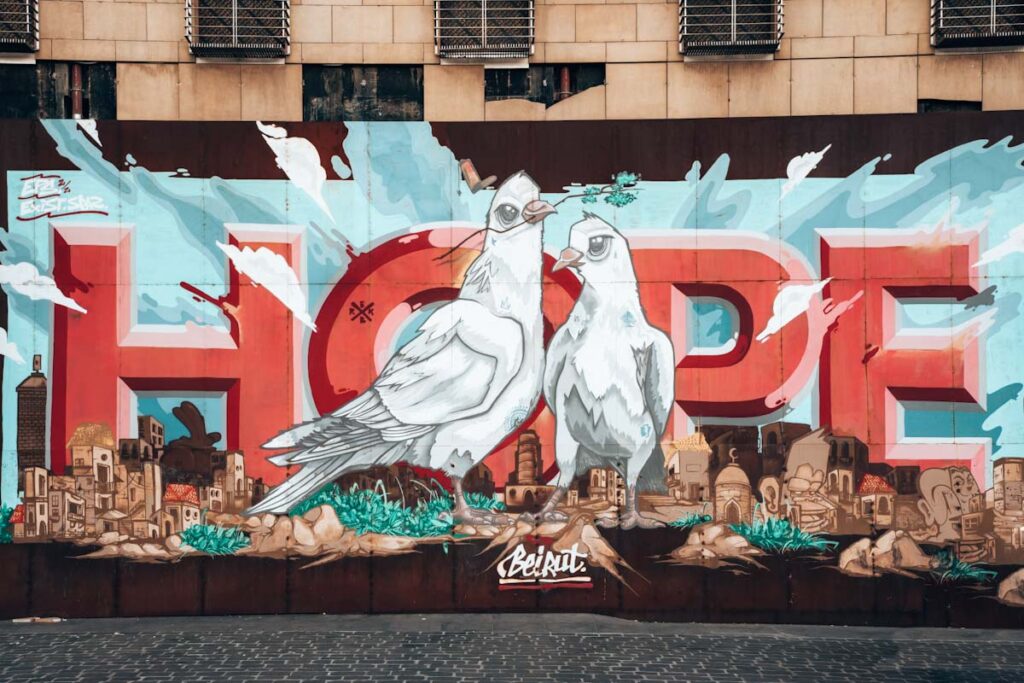
Visa & Covid 19
Most nationalities can get a 30-day free visa on arrival. In October 2022, Lebanon lifted all its Covid 19 restrictions.
Where to do Covid 19 test in Beirut
There are many places where you can do Covid 19 test in Beirut, in case you need one for further travels. We did ours through the American Diagnostic Center for $20. Find the list of places that do PCR and rapid antigen tests in Beirut here.
How to get to Lebanon
We took a flight from Cyprus that took only 45 minutes. Beirut is a pretty busy airport, and many flights come every day. Middle East Airlines and Royal Jordanian are the most typical airlines.
Click here to find your cheap flight.
Food in Lebanon is spectacular. From Falafel, Shawarma, Hummus, and beans to any kind of western food. Make sure to try unique Lebanese sweets.
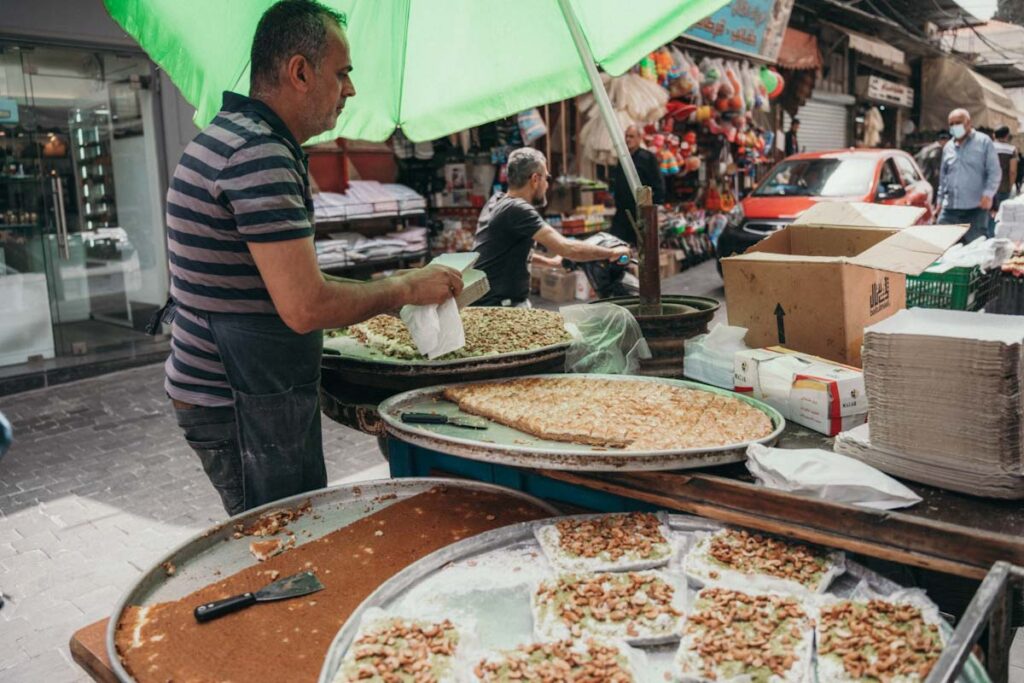
We visited Lebanon in April 2022, when the economic crisis was in full swing, and we got out of the country right before the elections. The situation left many people begging on the streets for money and food. Not only locals but also Syrian and Palestinian refugees. It was such a hard time to see this side of the country, as the number of people on the streets was overwhelming.
We felt safe during the whole time we travelled around the country and didn’t have any troubles. Make sure you read well about the areas to avoid before you travel.
These areas are:
- Beirut: Southern suburbs of Beirut, South of sport stadium
- Tripoli: suburbs of Bab al Tabbaneh, Jabal Mohsen
- Baalbek & Beeka Valley: common area for drug smuggling and the main headquarter of Hezbollah. The city itself is safe.
- South Lebanon: South of Litani river except for Sour (Tyre) because of the unexploded missiles between Lebanon and Israel.
We pay more attention to this topic in a separate article.
Essential reading: Is it safe to travel to Lebanon in 2022?
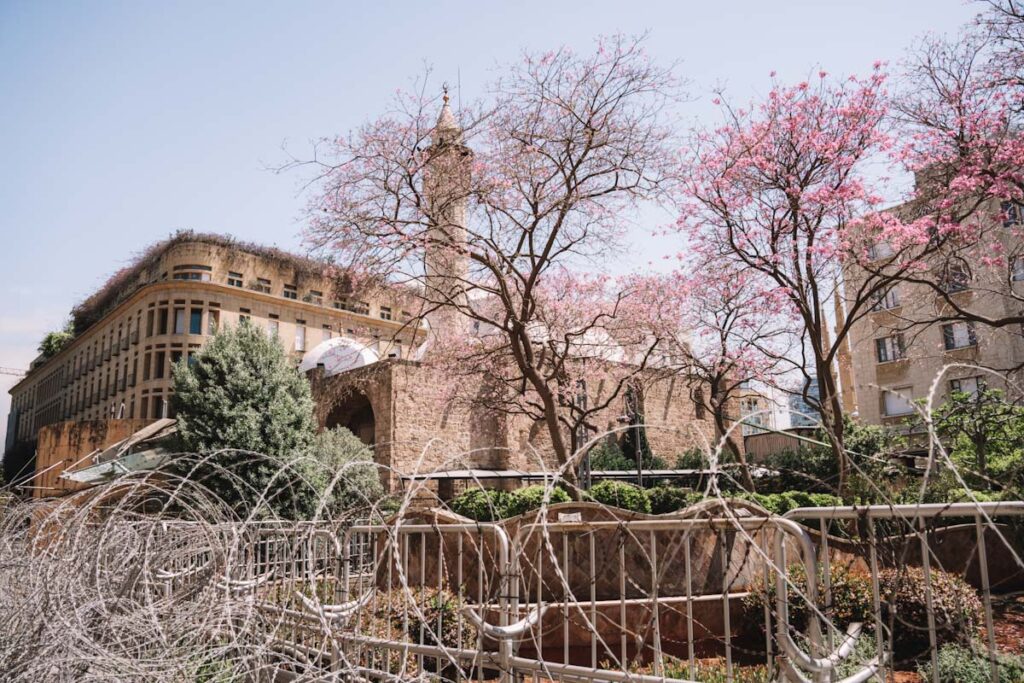
ELECTRICITY
With the current crisis, electricity is a big problem. First days, we tried to figure out the best way to make sure we had our phones charged. Power outages are common. Our hotel in Beirut didn’t have electricity for the first two days. But other than that, for the rest of the stay, we didn’t have any major problems.
Be prepared, the electricity doesn’t work during the night – mostly between 1am to 8am. And for a few hours during the afternoon, usually 3 – 5 pm. Basically, the more you pay for your hotel, the better chance you get of having more electricity. People who can afford it have generators for electricity. People who can’t, sit home in darkness. It is simple like that.
Public lights are mostly not working, so the streets are pretty dark after sunset. However, cafes and restaurants are good for charging things and fast wifi. Make sure you have your charger always with you and charge your phone anytime you have an opportunity.
The situation with the fuel is much better than we expected. Currently, it seems it is under control, and petrol is available. Surprisingly, the fuel crisis was much more visible when we travelled in neighbouring Syria.
Essential reading: How to travel to Syria in 2022 & Is it safe?
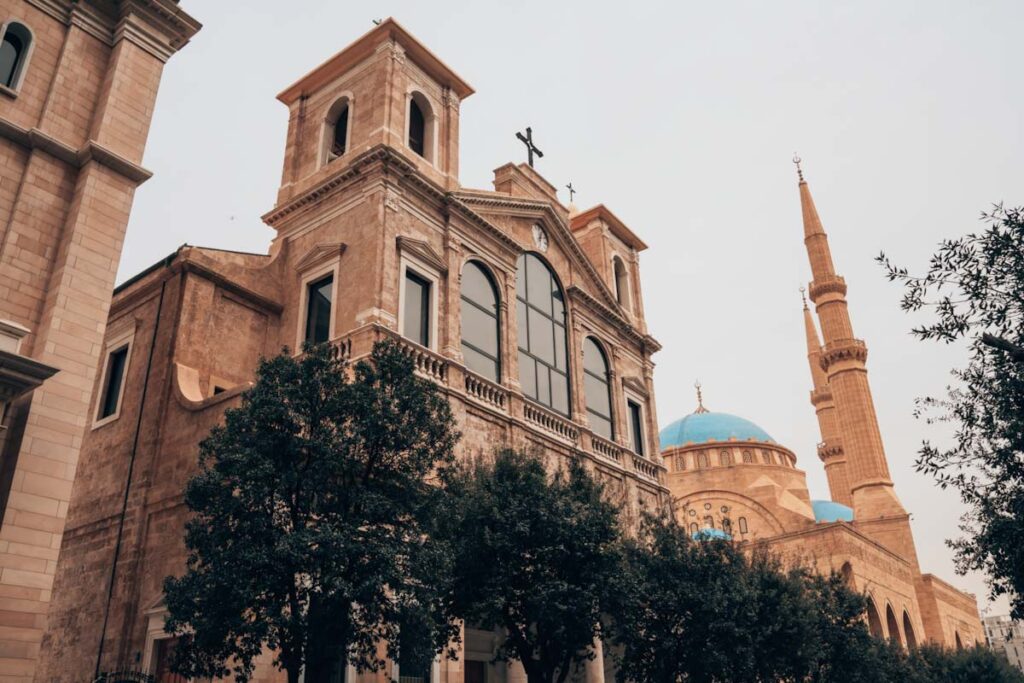
There are plenty of mobile stores selling local sim cards. The most popular providers are Alfa and Touch. Both work pretty well all around the country and have very good packages with data – up to 100 GB, which is awesome. We picked Touch, 10 GB costs $25, and we got it on Hamra street.
When catching a ride with Bolt or Uber, you need internet on your phone, especially in Beirut, so make sure you have some data. Otherwise, all hotels we stayed in had stable wifi. Even when electricity doesn’t work, they use a battery router, so at least in the lobby or shared room, it works well. Better Cafés and restaurants have good wifi too.
You have to exchange the money on the black market as otherwise, with an official rate, you will lose 90% of your money. If you pay in USD, businesses still use an official exchange rate that is ten times higher than the rate on the black market, so make sure you do not pay by card.
The best place to exchange money is on Hamra street. There are many exchange offices. The best is to just walk in a few and ask for their rate.
With an ongoing economic crisis, the rate for LBP is constantly changing. At the time of our visit in April 2022, the exchange rate on the black market for one dollar was LBP 23 500 to LBP 25 800.
Lebanon is the country of cash at the moment. So make sure you bring enough to cover your whole stay. If you pay by a card or withdraw from ATM (they don’t issue any dollars, just LBP), it will exchange based on the official rate, which means you will lose 90%. Don’t do it.
Dollars are the best and easiest to go by, but you can also exchange Euros, and it is actually accessible on the black market too. The rate for €1 was LBP 26 784 in April.
If you run out of money, you can send money through Western Union and pick it up in cash.
Hotels started to charge in dollars, and the rest of the things in Lebanon we paid in LBP.
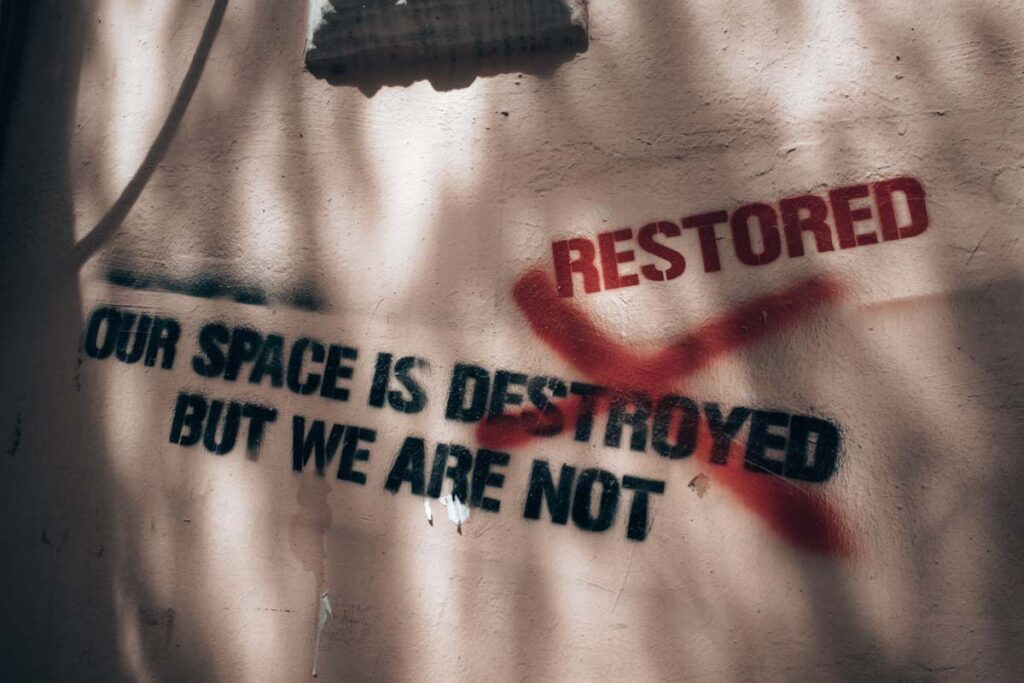
The currency in Lebanon is the Lebanese Pound (LBP). In April 2022: $1 = 24 000 LBP
Coffee – LBP 7000 ($0,3)
Falafel – LBP 35 000 ($1,5)
Bolt ride – LBP 40 000 ($1,7)
Water 1,5L – LBP 7000 ($0,3)
Bus between cities – LBP 50 000 ($2)
Hummus – LBP 30 000 ($1,25)
Lunch in local restaurant – LBP 40 – LBP 100 000 ($1,6-$4)
Street food snacks – LBP 20 000 ($0,8)
Make sure to have travel insurance with good coverage, especially in countries like Lebanon, where many governments advise against all the travel. One of the little providers on the market who covers Lebanon, including Covid-19, is IATI Insurance . We have a 5% discount for Broken Navigation’s readers.
Get your 5% discount with IATI Insurance.
HOW TO TRAVEL AROUND BEIRUT
Travelling around Beirut is very easy and convenient. Even though there is no public transport, there are three options.
- Bolt – the number one app. It works the same as Uber but is a bit cheaper. We never waited for a ride longer than 5 minutes. It is safe, cheap and fast. The ride within a city costs around LBP 32 000 – LBP 55 000 ($1,2-$2).
- Uber – another convenient option. We personally always used the Bolt, but we know Uber works well too.
- Taxi – just wave on a taxi by the road, and they will pick you up. The prices are similar to Bolt or Uber, but sometimes it can be tricky to communicate where you want to go if the driver doesn’t speak English.
All the service cars meant for transportation of people have a red plate, or the numbers on the plate are red. Make sure you don’t get in a car with a different plate colour as it means they are not official. It applies to all – Bolt, Uber, Minivans, Buses, taxis…
Many people also use the services of local guides and tours, which take you to places difficult to get by public transport. We met more travellers using these services, and if you have less time and want to see more, or simply don’t want to worry about transportation, it is the perfect option for you. You can find many exciting tours here .
Find the l o c a l g u i d e f o r y o u r t r i p here.
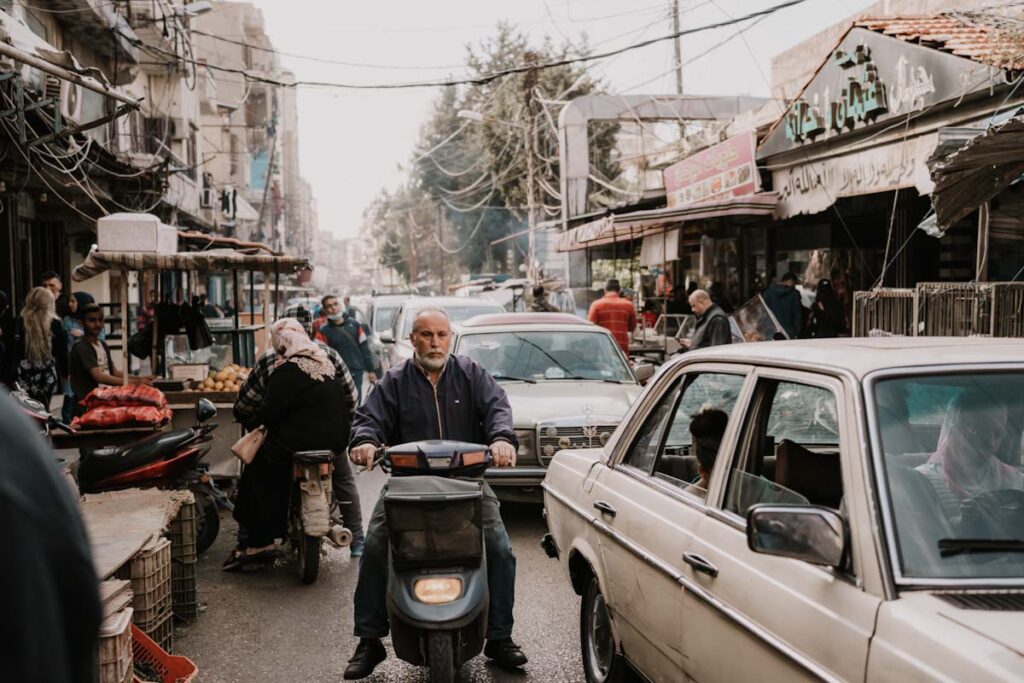
PUBLIC TRANSPORT
There are two main bus stations – Cola and Dawra . After the explosion in the port in 2020, the Charles Helou station doesn’t work anymore.
- From Cola intersection : Saida, Tyre, Baalbek, Zahlé
- From Dawra station : Byblos, Tripoli, Batroun
- A fast option to Tripoli (Byblos, Batroun): go-to station on Martyr’s square from where big Connexion buses running
- To Bcharré: Estephan Transport company run buses from the little roundabout near Dowra .
Bus Schedules
Except for a few routes with a fixed schedule (mentioned below), buses leave once they are full. It is actually a brilliant and convenient way of travel, as it means there are still busses running. Once one is full, another one is immediately waiting for its passengers. Mostly, the drivers don’t wait to be completely full. They just go when they want to. We never waited on the bus for more than 20 minutes.
PLACES TO VISIT IN LEBANON & 11 DAYS ITINERARY
The following can serve as an itinerary as the places are mentioned in the order we visited them.
DAY 1-2 BEIRUT
Beirut, as a capital, has a lot to offer. The city and its people went through so much in recent years, from the civil war and explosion in the port in 2020 to a recent economic crisis that affected a whole country.
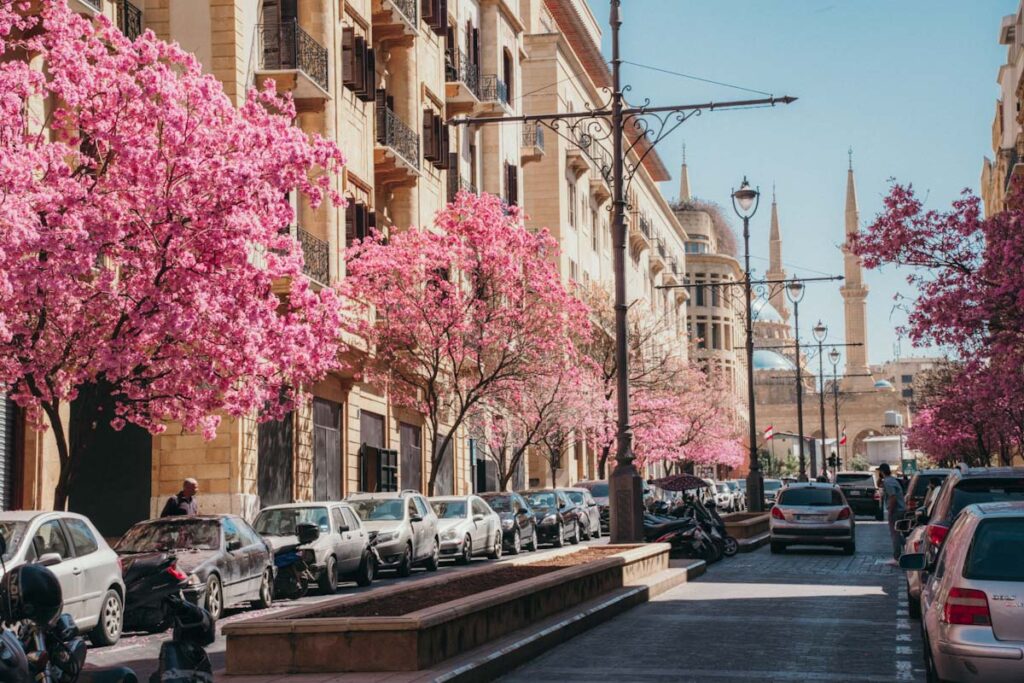
When we arrived, the first impression was quite weird as there were so many destroyed buildings and barricades in the city centre. Now we already know this is a style that Lebanon keeps for purpose. The old destroyed buildings by war serve as a reminder of old horrific times. Also, Lebanese thinks that’s a cool kind of art, so it is just something different from what we are used to, but after a day of wandering around, we didn’t even pay attention to it anymore.
Beirut is a more western city rather than the Middle East experience you might be expecting here, with different parts of the town all very different from each other.
Hamra street is a busy street full of exchange offices, restaurants, cafes, and mobile shops and basically, all you want to buy is here. Gemmayzeh and Mar Mikhael are known for hipster cafes and restaurants. Recently life is going back to normal after the explosion destroyed a big part of this street. Rue Armenia , as the name suggests, is an Armenian part and don’t forget the Corniche , a seafront that is always busy with locals and tourists.
Read more: Detailed city guide to Beirut & Top things to do in 2022
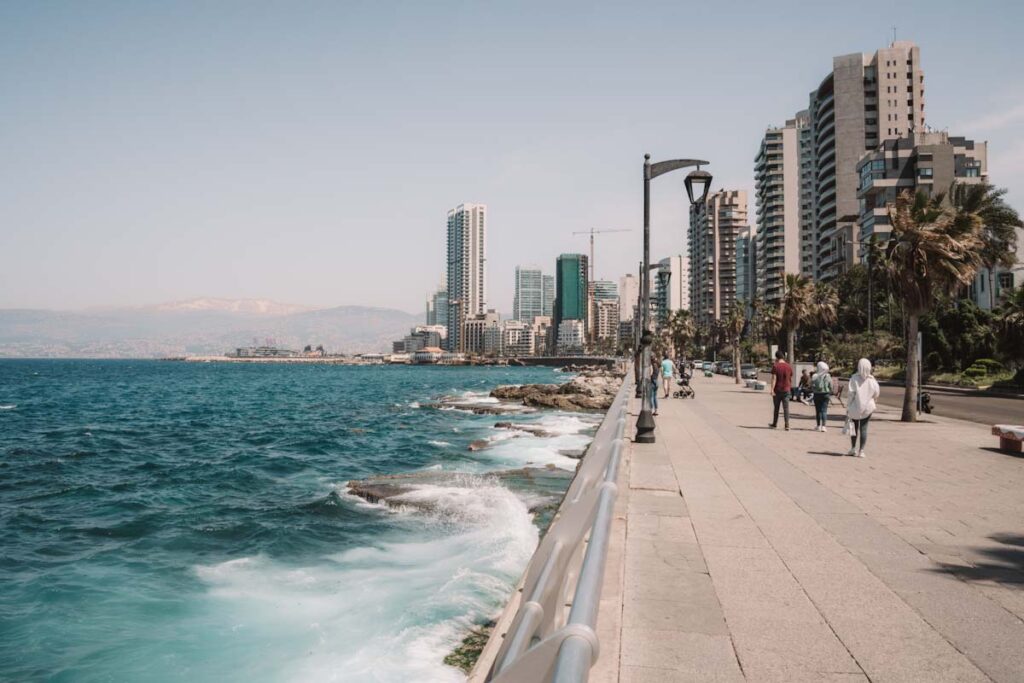
Among the best places to see is, without a doubt, the biggest mosque in the Middle East, Pigeon Rocks and the Egg, and we loved the contrast of the church being right next to the mosque.
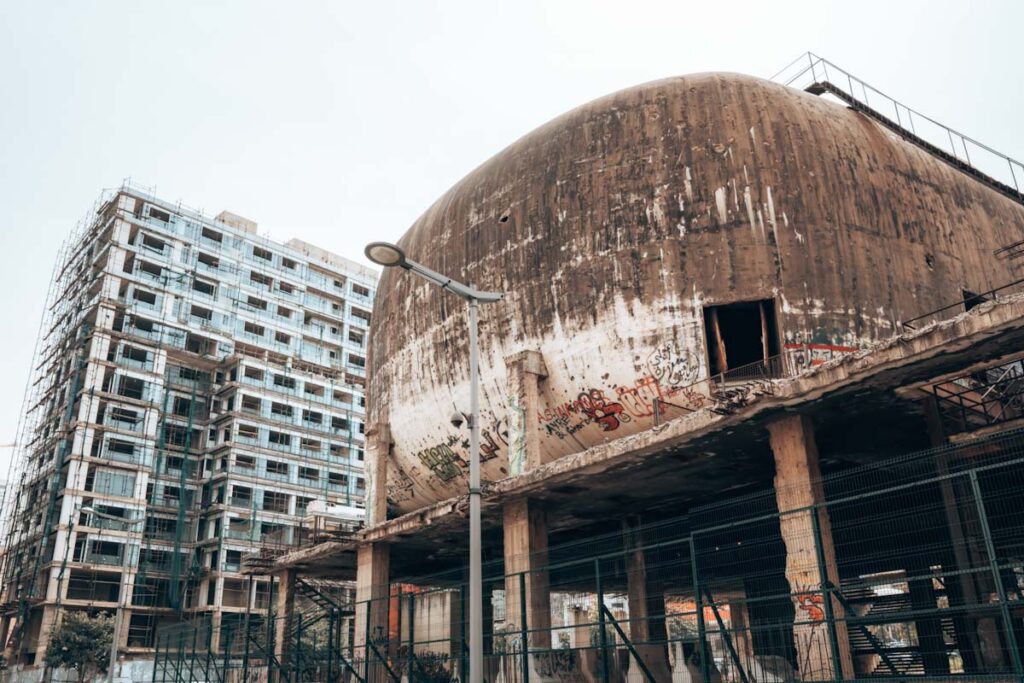
WHERE TO STAY IN BEIRUT
We would like to quickly mention that since Lebanon is going through one of the biggest economic crises. Electricity does not work everywhere, and the same applies to hotels. Many of the budget and Mid-Range hotels are either completely disconnected from electricity or rely on the government supply that usually lasts around 2 hours. Make sure you do your research before you come.
Budget I Regis Hotel – we stayed here. The price is very good for what you get. The location is in a good, clean neighbourhood close to Zaitunay Bay and 1 km from Hamra street. There was hot water, and our room had a nice balcony. We paid $20. The guys running this hotel are absolutely amazing and, beyond words, helpful. We felt like at home during our whole stay, and if we ever come back, we will stay here again.
Mid-Range I Bossa Nova Beirut – the location and price of this hotel is exceptional. There is a rooftop pool and a garden, so it makes a perfect place to relaxing after a long day of exploring. The views are exceptional.
Luxury I Sodeco Suites – The piece of luxury in the centre of Beirut. There is everything you might need. Breakfast is included as well as a fully equipped kitchen.
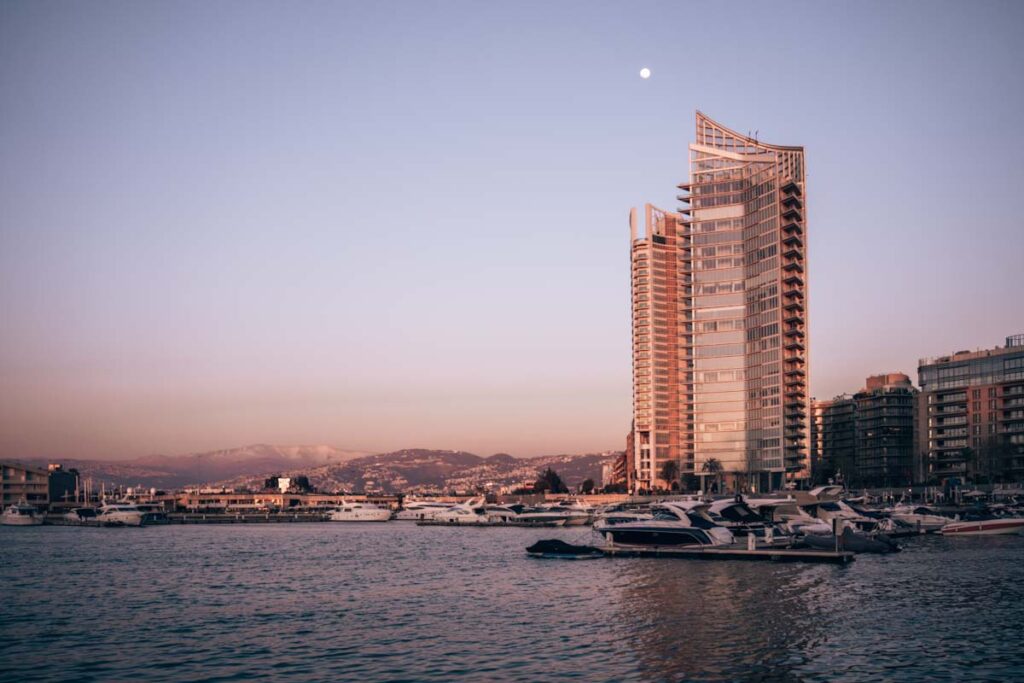
WHERE TO EAT IN BEIRUT
Many restaurants are especially in the Gemmayze district, and Hamra street has many street food options.
Le Chef – a traditional, family-owned restaurant with a handwritten menu of the day. The food is amazing, and the prices are cheap compared to other restaurants in the area. Sometimes you have to wait for a table as this place gets crowded. It is located in the Gemmayze district.
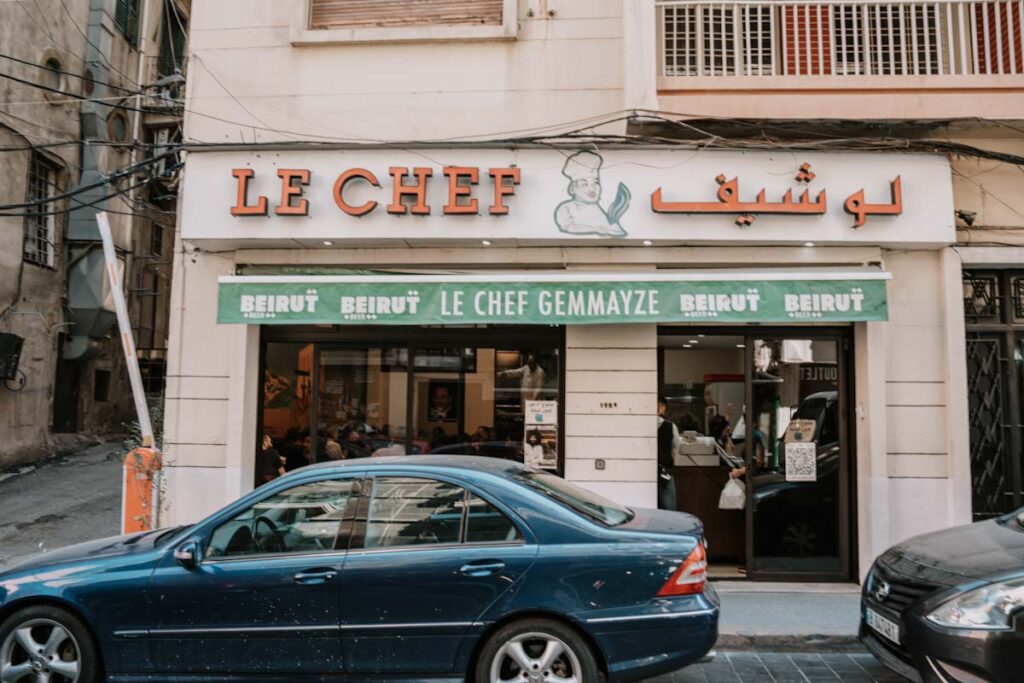
DAY 3 SAIDA (Sidon)
Saida is a Sunni Muslim city, which surprised us with how different from Beirut it is. Saida is more conservative than other cities, so you should dress accordingly. It is a city where you can spend hours wandering around its bustling market. Looking back, Saida was one of our favourite places to visit.
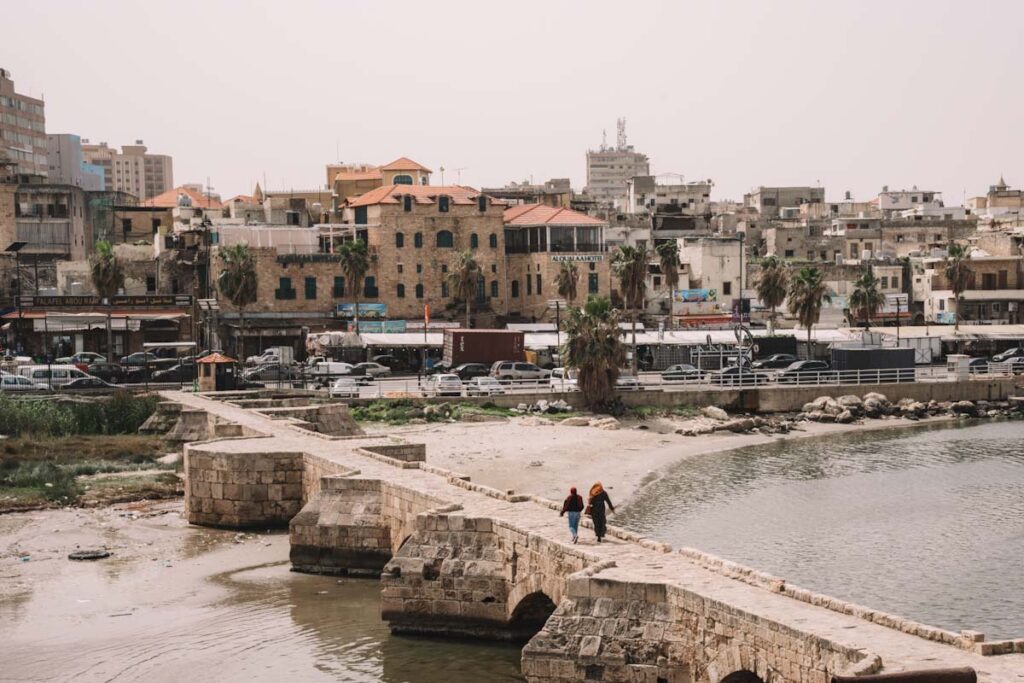
W HAT TO DO IN SAIDA
We fell in love with the souk. It is actually the most authentic one, together with the one in Tripoli, that you can find in Lebanon. There are many small passages where you can just wander around and enjoy the atmosphere of this bustling souk. Make sure you try some sweets as Saida is well known for its delicious cookies.
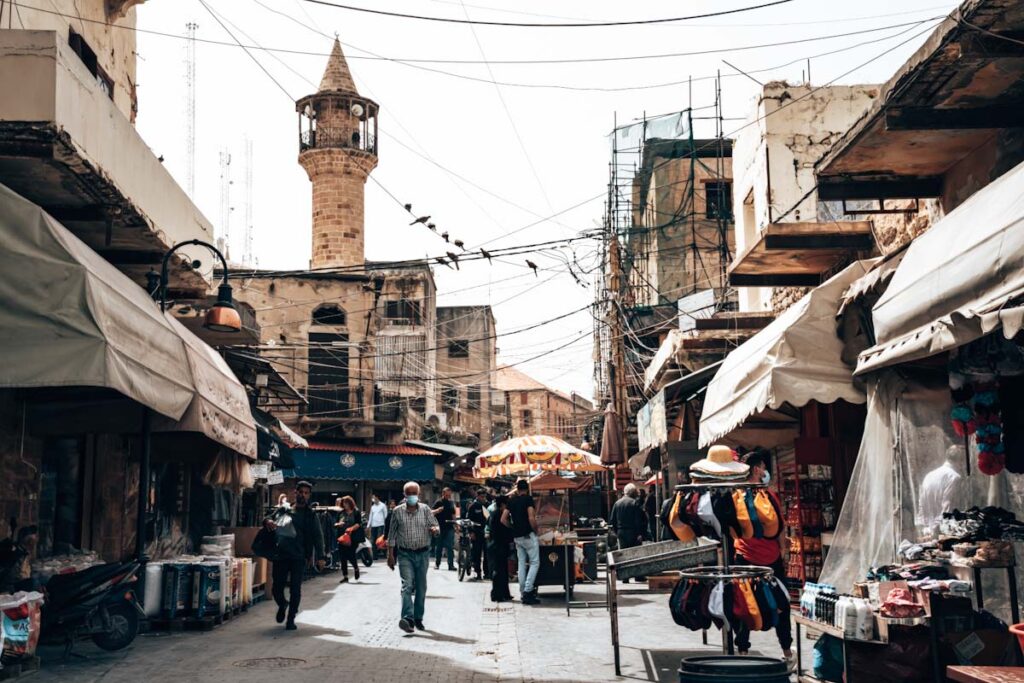
Saida Sea Castle
Crusader castle that is nestled on the sea. A beautiful pathway leads you to this little castle surrounded by sea. It was built in 1228 and later renovated. You also get a nice view of the city from a different perspective. Entry LBP 4 000 ($0,17).
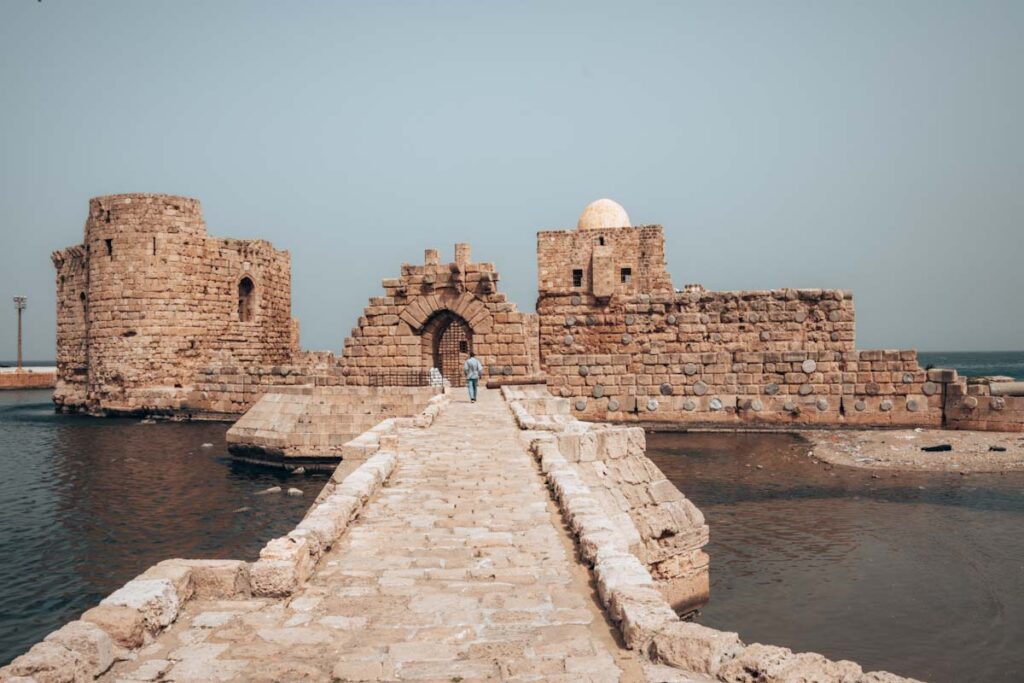
Bab Al-Serail Square
Perfect place to sit down and just observe what is going on. There is a mosque, restaurants, stores, and cool decorations worth visiting. It is located inside the old city, so it is easy to find it.
Since we visited Lebanon during Ramadan, all restaurants on this square were closed. So, unfortunately, we didn’t have a chance to try any of their food, but if you arrive at a different time, you will have plenty of options to choose from.
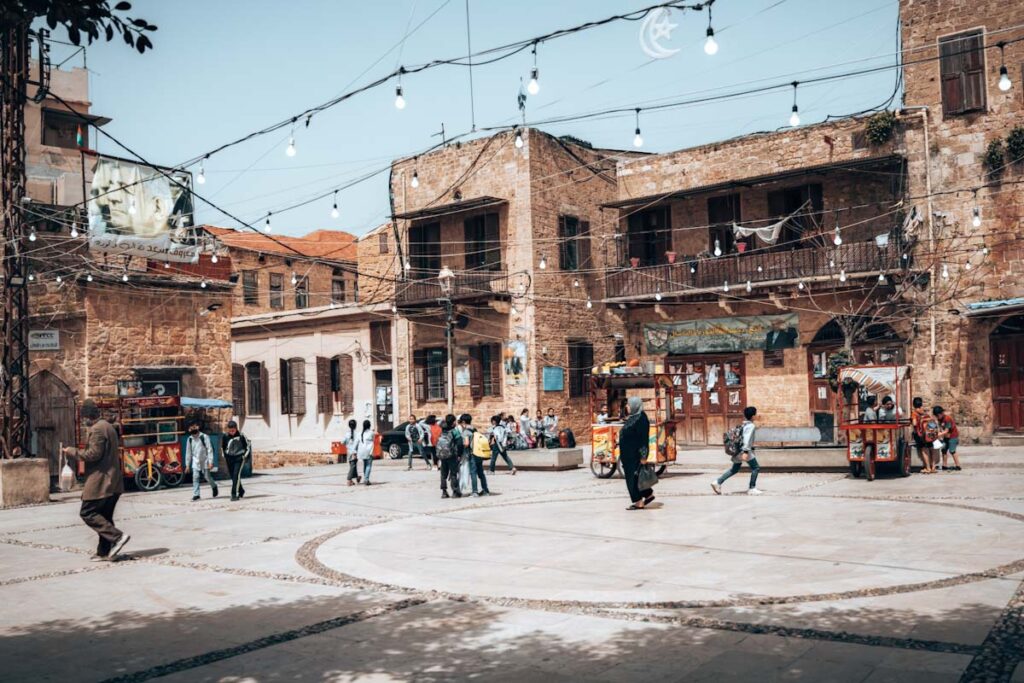
HOW TO GET FROM BEIRUT TO SAIDA (SIDON)
Buses, minibuses, minivans or shared taxi to Saida leaves from the Cola intersection. It is a bustling station, where everyone is yelling the bus destination, so just ask around or listen carefully.
The price for a minibus is LBP 20 000 ($0,85). For a shared taxi, LBP 30 000 ($1,2) and the ride takes between half an hour and an hour and 15 minutes and drops you off on Nejmeh Square, a big roundabout very close to the old town. The fastest option is to take a big bus in Cola that goes directly to Saida and takes only half an hour. LBP 30 000 ($1,2).
To get back from Saida to Beirut , buses leave from Nejmeh Square. Again, you can choose from the big bus, minibus, minivan or shared taxi. The best option is the big bus as it doesn’t stop along the way and takes only 30-40 minutes to get to Beirut Cola station.
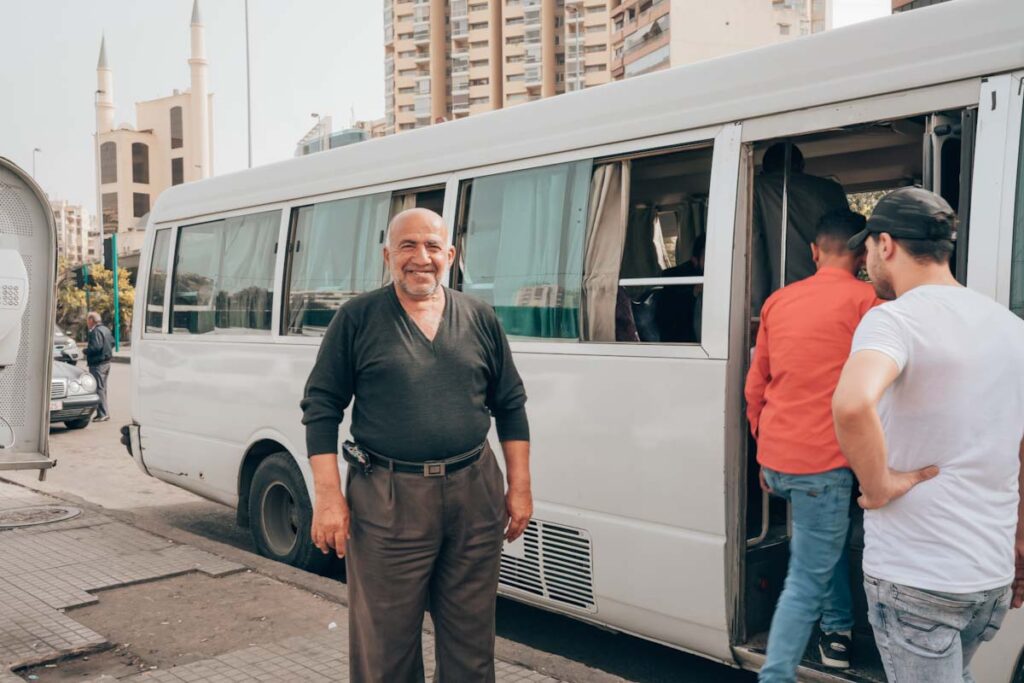
WHERE TO STAY IN SAIDA
There is almost no accommodation in Saida. Actually, we found only one hotel that is currently open. We visited Saida on a day trip from Beirut, and most of the travellers do the same as it is the most convenient way. Anyway, if you would like to stay overnight, check Saidon Hostel.
Budget I Saidon Hostel – the only cheaper option; however it comes with a con. It is located 6 km’s from the city centre. They offer a free pick up.
Where to eat in Saida
Make sure you try falafel in the family-run charming eatery Falafel Abou Rami, where Abou Rami has served his crispy falafel himself since 1988. It is in the corner opposite the Saida Sea Castle.
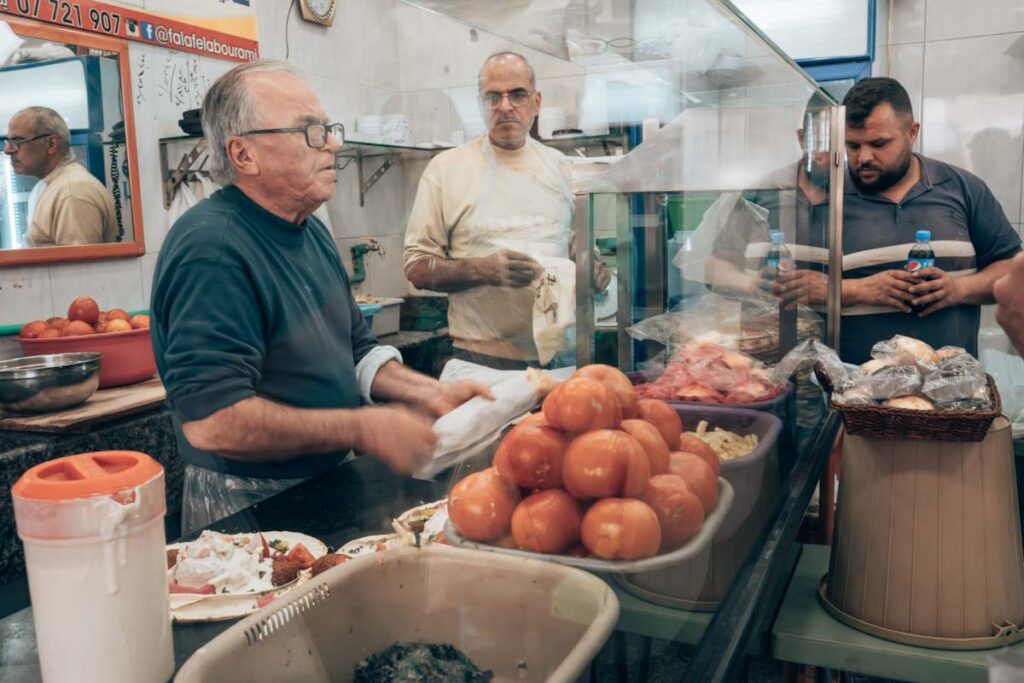
DAY 4 SOUR (TYRE)
Shiite town Sour (Tyre) is located 80 km south of Beirut. You find here the power base of Hezbollah’s Secretary-General and UN peace-keepers.
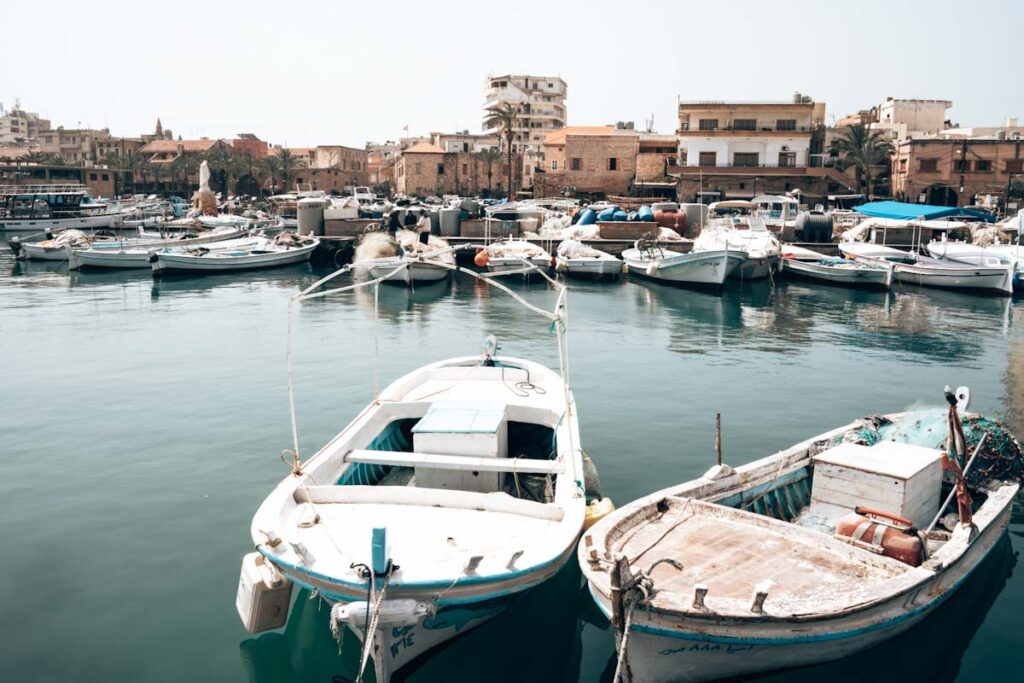
What to do in Sour (Tyre)
We liked Sour’s amazing mixture of different cultures living next to each other. At one moment, you walk through the bustling souk, and suddenly you find yourself in a port, with seafood restaurants reminding us of France. This is all within a short walk through the old part of the town.
Tyre is known for the archaeological sites of Phoenician ruins that brought Sour into the Unesco world heritage list. The city has a rich history. It was colonised variously, for example, by the Assyrians, Romans, Byzantines, Crusaders, Arabs and Ottomans.
Walkthrough the Christian quarter that starts behind the port. You can visit a beautiful church, walk through colourful narrow streets, and see a promenade along the wild sea once you walk out of the Christian quarter.
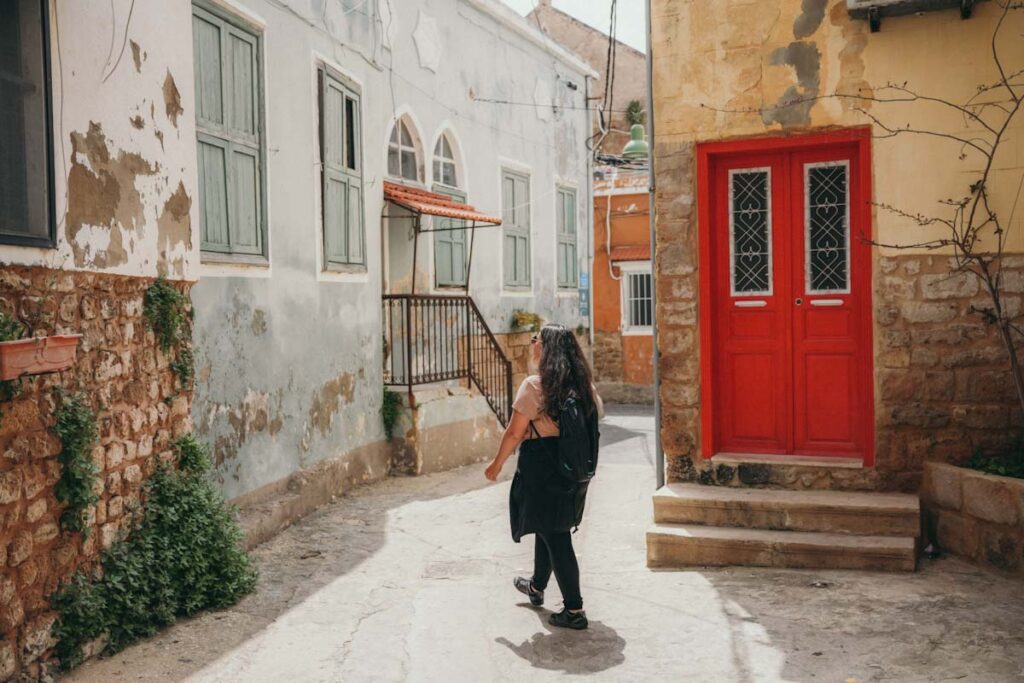
HOW TO GET TO SOUR
The buses or minibuses leave from the Cola intersection. The best is to take a big bus from Cola station to Saida (LBP 30 000), which takes around 30-40 minutes, then change a bus in Saida to a minivan to get to Sour (LBP 30 000). The bus in Saida drops you off at Nejmeh square. You need to walk 200 m to the Sidon bus stop by the sea, next to the Cafe Nour. The bus takes from one to two hours; the times vary greatly. On the way to Sour, it took us one hour but on the way back one hour and a half.
To go back from Sour to Beirut, get a minibus going from Tyre Bus station in the city centre, the same place they dropped you off before.
There is also a direct minivan from Beirut Cola station to Sour, but we heard this can take up to three to four hours since they stop frequently.
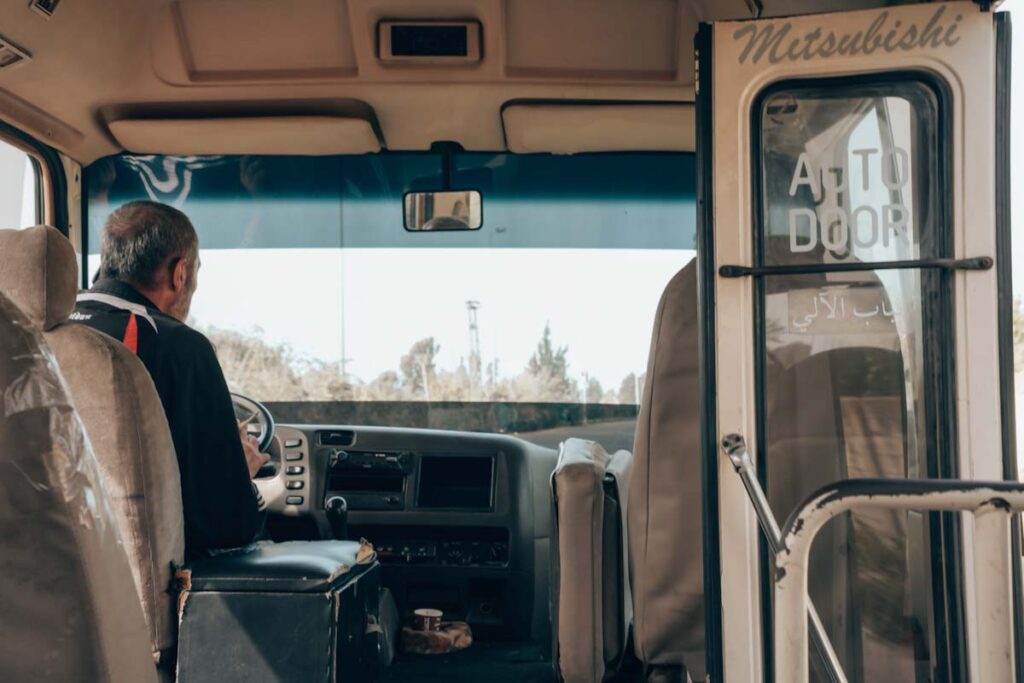
WHERE TO STAY IN SOUR
Sour is a perfect day trip from Beirut. Since the accommodation is very expensive, we opted to go back to Beirut for a night. If you feel like staying, you for sure will have a great time. The hotels are located in a Christian part, and most of them have a beautiful sea view. Those are the best options in the area:
Mid-Range I Dar Camelia – Possibly the most beautiful and stylish place to stay overnight in Tyre. The design of the rooms, garden and breakfast all are made with love, and you can tell from all the details.
Luxury I Dar Alma – Beautiful accommodation is in an old part of the city. Make sure you ask for a room with a balcony overlooking the sea. Breakfast is included.
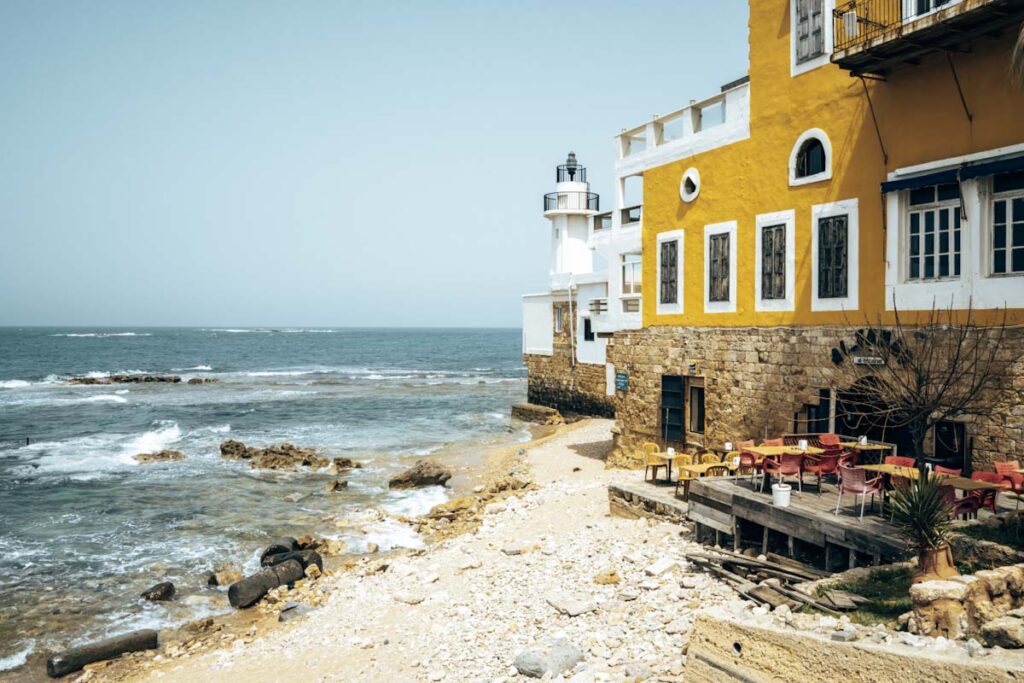
DON’T GET OFF THE BEATEN TRACK IN SOUTH LEBANON
The area south of Beirut, including Saida and Sour, has an unfortunate history. It is a usual target for missiles from Israel; therefore, wandering around nature outside the cities is not recommended as there might be unexploded missiles. There is nothing to worry about in the city; it is a popular holiday destination for Beirutis.
Also, make sure you check the current safety situation before going to this part. At the time of our visit in April 2022, everything was fine.
DAY 5 BYBLOS (JBAIL)
Byblos is a touristic city with a Christian population located 40 km north of Beirut. Once we got to Byblos, the city inhabited since 7000 years ago, we felt like this couldn’t even be Lebanon. It was like being back in Cyprus. The old town is very picturesque, and we felt really great wandering around its stone, vintage streets. However, we visited Byblos in April, when it was off-season, and the city was quite empty. We can imagine how unpleasantly busy it can get during summer. No wonder, as the restaurant & bar scene here is bringing crowds.
What to do in Byblos
Crusader castle.
The most visited archaeological sight is a crusader castle located right in the middle of the old town. It offers a perfect mixture of Neotholic, Chalcolithic, Greek and Roman ruins. You also get a beautiful view over the port. The entry fee if LBP 8000, and it is open from 8am to 6:30pm.
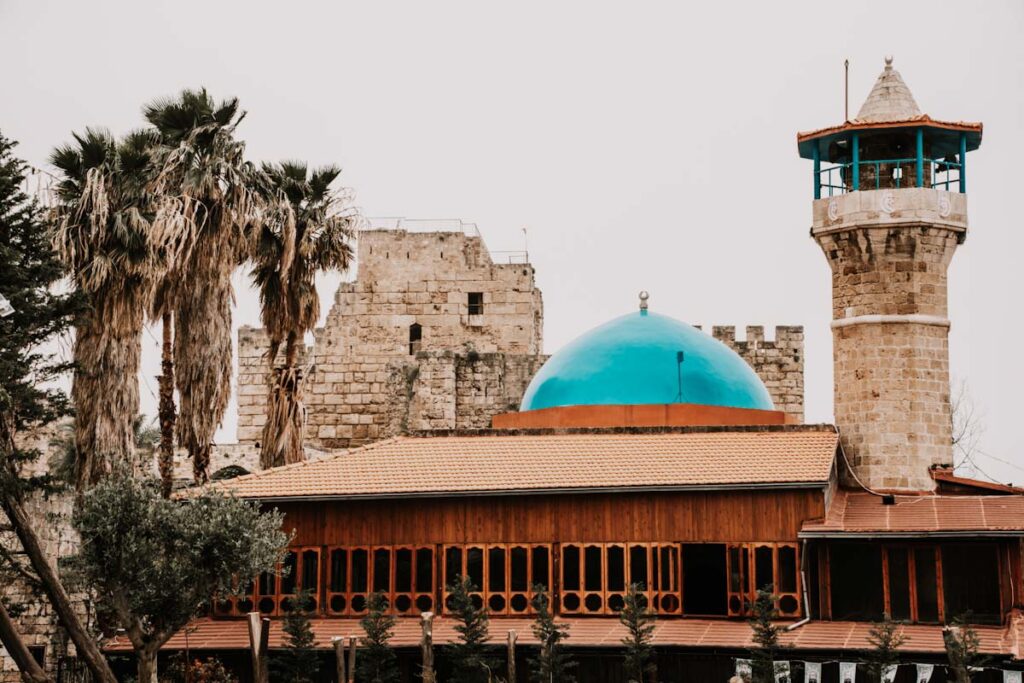
Church of St. John Baptist
Breathtaking Romanesque church from the year 1115 a.c. It is usually closed to get inside, but it is amazing from the outside. There are beautiful glass mosaic pictures outside of the church that you can admire.
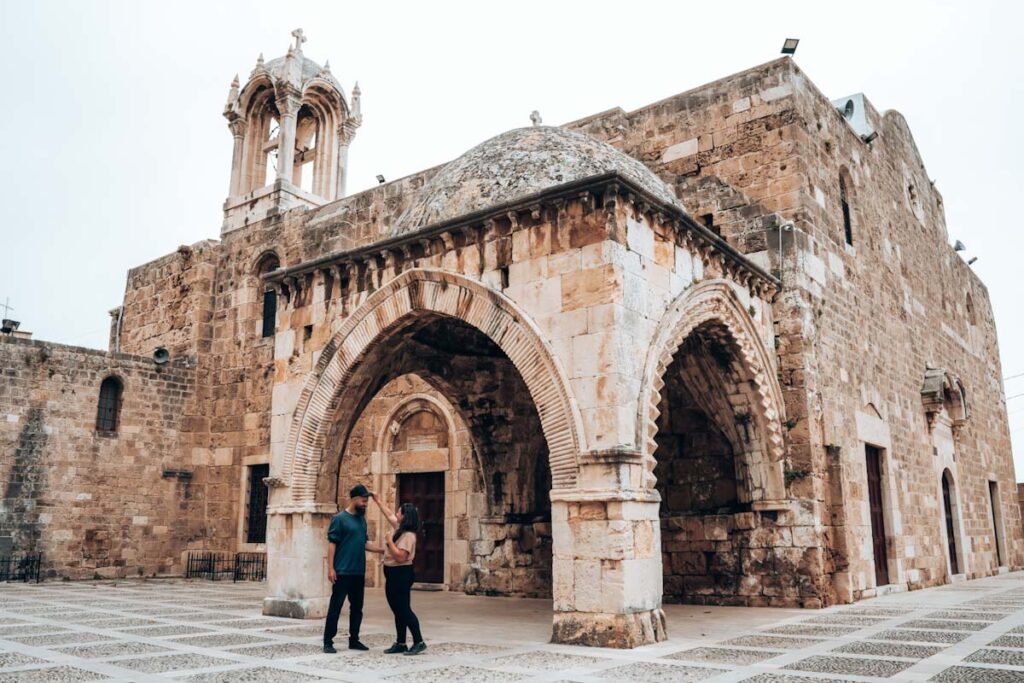
There are many interesting museums around Byblos. In the city centre, you can find a wax museum or a bizarre museum featuring silicon figurines of controversial politicians, leaders etc., that is located right in the centre of the old town.
Fishing port
From the city centre, you can walk to a beautiful fishing port with an ancient harbour with pretty wooden boats. Many restaurants and hotels are around, but the promenade is still relatively empty in April. You can get a view of the town from a different perspective.
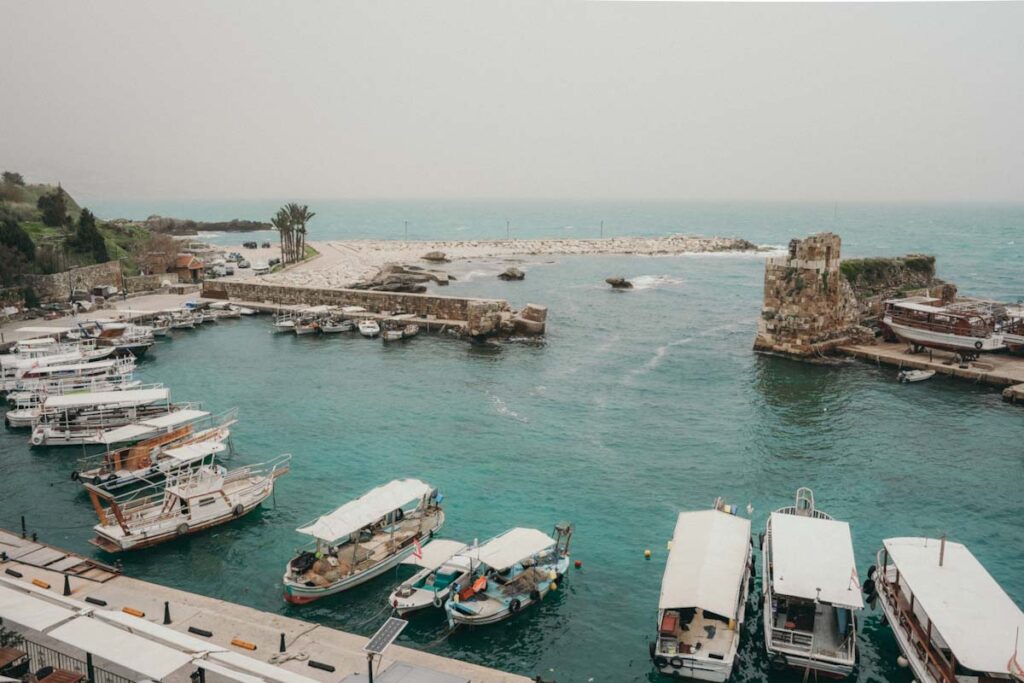
Where to eat in Byblos
There is an amazing eatery where locals gather called Rock. They serve shawarma, falafel, batatas harra and many other traditional Lebanese food. It is located on the way from the bus to the old town.
How to get to Byblos
Minibuses are leaving from Dawra station in Beirut (LBP 25 000), and it takes 50 minutes to get to Byblos. The bus drops you off at the main intersection, where you easily walk to the city. The old part is roughly 5 minutes walk.
To go back to Beirut , go to the same intersection, just from the other side of the road. Buses are waiting there to go to Beirut.
WHERE TO STAY IN BYBLOS
It is effortless to come for a day trip with an overnight in Beirut; that’s what we did. We are sure though, if you want to stay a night in Byblos it will be a pleasant experience, especially if you’re going to enjoy cafes & bars in the old part. And you can find pretty good deals for hotels.
Budget I Byblos Guesthouse – the cheapest option in Byblos. The rooms are spacious and clean. However, you need to walk or take a taxi to the city centre 2 km away.
Mid-Range I Monoberge Hotel – if you want to stay in the city centre and 2 minute walks from the beach this hotel is a perfect option. It is a popular place with a good breakfast included.
Luxury I Maximus Hotel – the piece of an absolute luxury. Maximus hotel features an outdoor swimming pool, fitness centre and delicious breakfast. The views are magnificent, and it is a perfect resort if you search for this kind of stuff during your travels.
DAY 6 TRIPOLI (TARABULUS)
The second-largest city in Lebanon. In Tripoli, you find the Sunni population and the best souk in the whole country. It is necessary to check the safety situation before travelling to Tripoli, as there are issues between the two districts, where guns are often used. Even though most governments advise against the travel to Tripoli, the conflict doesn’t go further than in the areas of Jebel Mohsen and Bab Al-Tabbaneh, and it doesn’t affect tourists. With a frequent military presence on the streets, we felt very safe.
Tripoli is a traditional city north of Beirut, especially famous for its sweets and labyrinthal souk, where you can get lost for hours. If you want to learn Arabic, it is a perfect base with some pretty good Arabic course options for foreigners and volunteering options; check Levantine Institute of Tripoli for more details if this interests you.
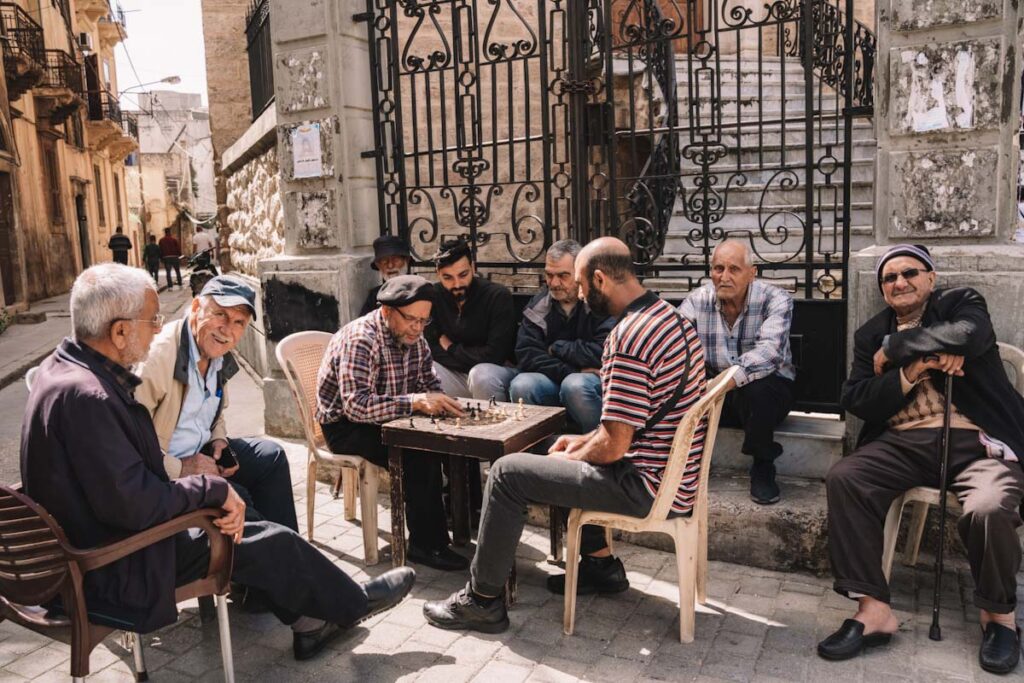
What to do in Tripoli
There are two main areas to explore. The old city is rich in history and great for seeing Ottoman and Crusader architecture examples. Al-Mina is a new part, where all the bars and modern restaurants are located very close to the harbour.
Citadel of Raymond de Saint-Gilles
Impressive Crusader fortress built in 1104 a.c., with an active military base inside, yet still open to the public. Even if you are not a fan of history and citadels, it is with it to come at least for an impressive 360 view over the city. It is open from 8 am till sunset, and the entry fee is LBP 7500.
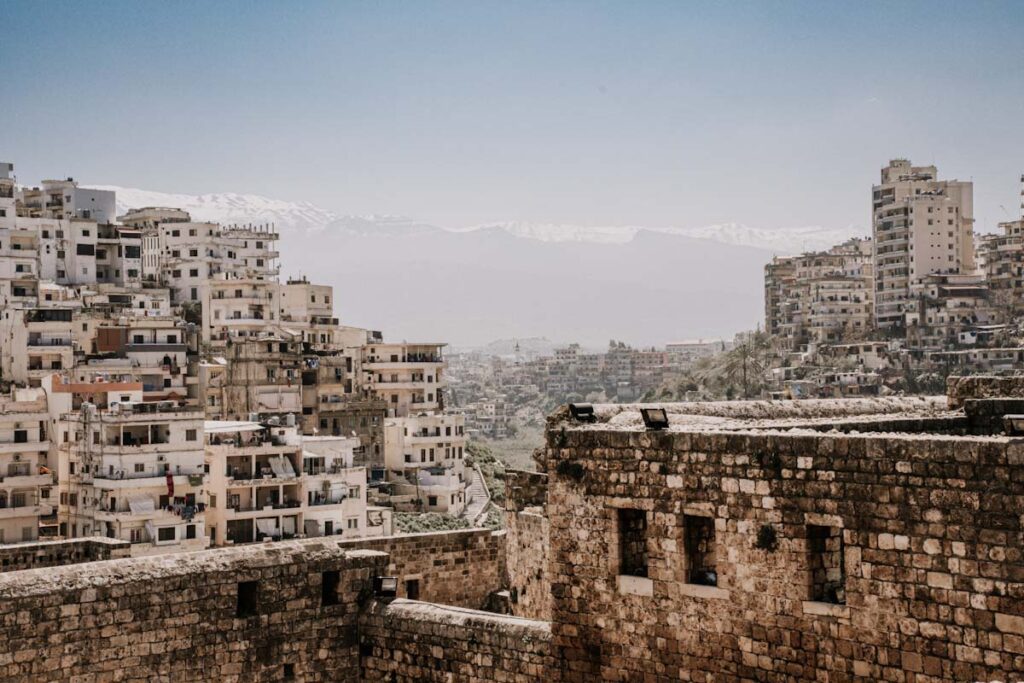
The biggest souk in Lebanon from the 14th century is the best part of any visit to Tripoli. Narrow streets full of vendors selling everything from clothes to delicious food. Visit hammams, mosques or madrassas.
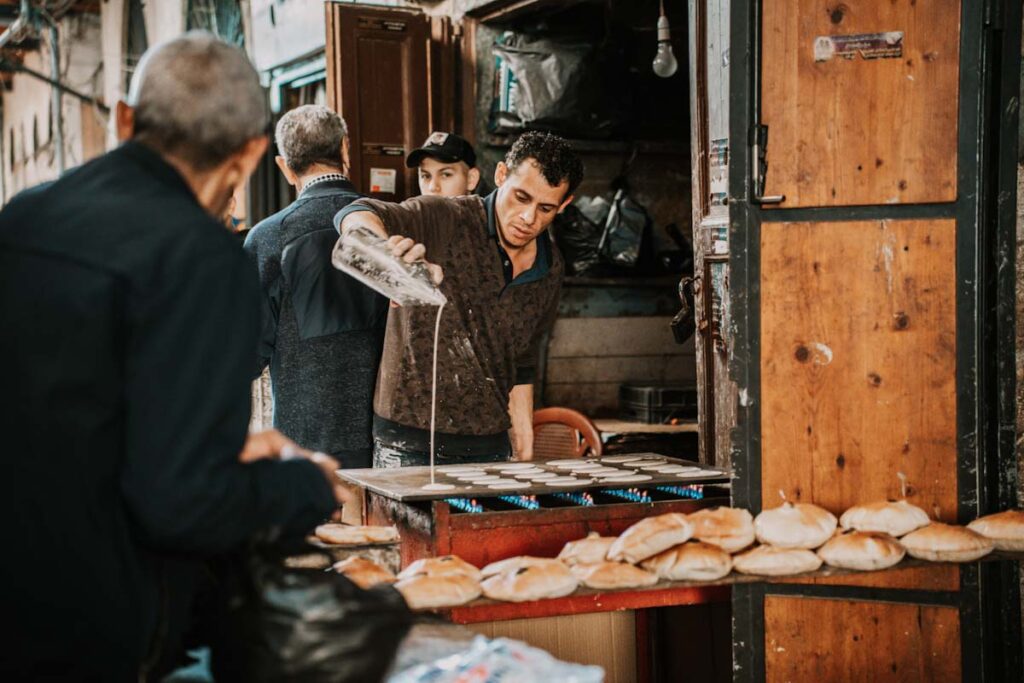
Traditional soap factory
A small family-run company making soap. There is not that much going on, but it is worth a visit as the place feels really authentic and traditional.
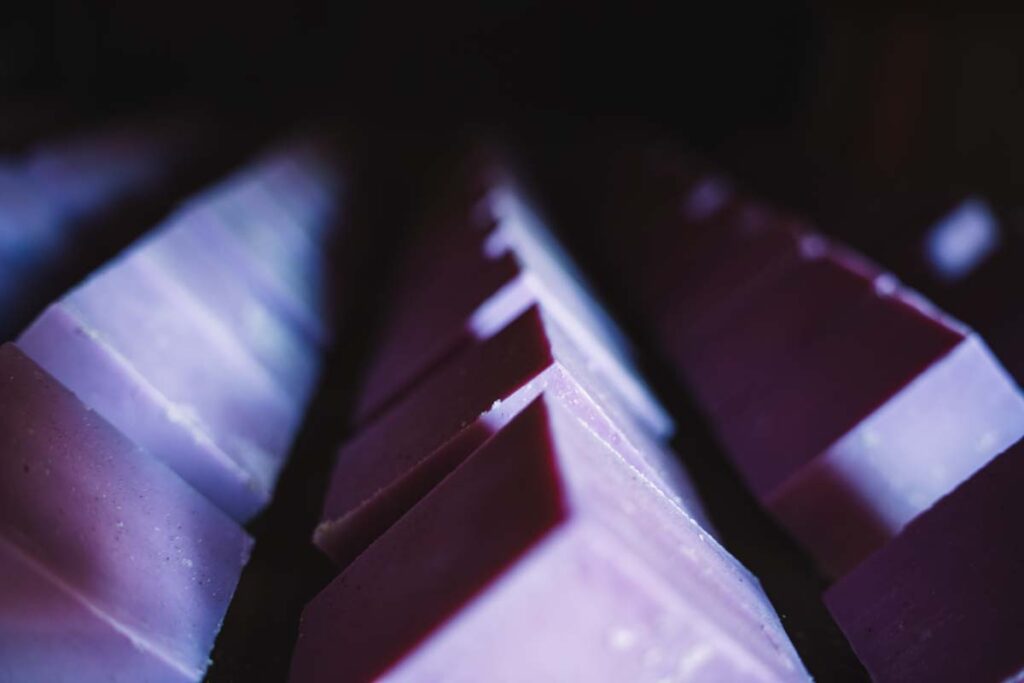
Great Mosque
Located in the heart of the old centre, it attracts visitors for its beautifully decorated entrance and an unusual minaret that is believed it once served as a cathedral bell tower.
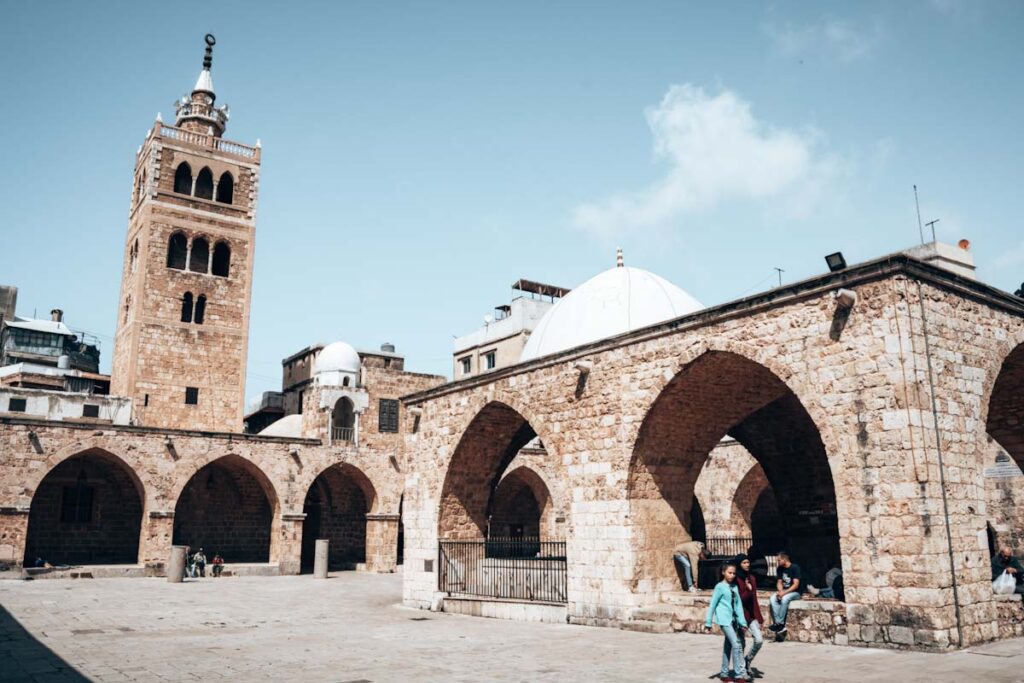
HOW TO GET TO TRIPOLI
Frequent minibuses are going from Dawra station in Beirut, but we recommend you take a Connexion bus. It’s a big direct bus that takes around one hour and a half to reach Tripoli. You can check their schedule here. They leave from Martyr’s square, opposite the mosque and cost LBP 50 000.
WHERE TO STAY IN TRIPOLI
Budget I City Guesthouse – former Seed Guesthouse is the only budget option in the city. We stayed here for a night. It is centrally located, just a few metres from the souk. Rooms are clean, and some of them even have a balcony. The owner is very helpful and provides you with many useful tips about places in the area.
Mid-Range I Azur Suites Hotel – located in the El Mina part, this beautifully decorated hotel has spacious rooms depending on the room, and you can also have a seating area. If you want to go to the bar in the evening, this is the best option to stay in.
Luxury I Aquarius Touristic Resort – to escape the hustle of cities, this place is a resort with everything you need: an outdoor pool, balconies, breakfast and other facilities.
DAY 7-8 BCHARRÉ
Escape the hustle of bigger cities and make your way to the mountains around Qadisha Valley. If you search for nature, some hiking options and perfect views from your room, make sure you have this place on your itinerary.
The best base to explore Qadisha Valley is a small Christian mountain village called Bcharré, located just a few metres away from the beginning of the famous Qadisha Valley Trail and Cedar forest.
Make sure you stay in Bcharré overnight. We stayed for two nights, and it was the best decision we made. After a busy Tripoli, it was an amazing escape. Also, it is unbelievable how quickly the atmosphere change between places in Lebanon. Again, it felt like we are in another country.
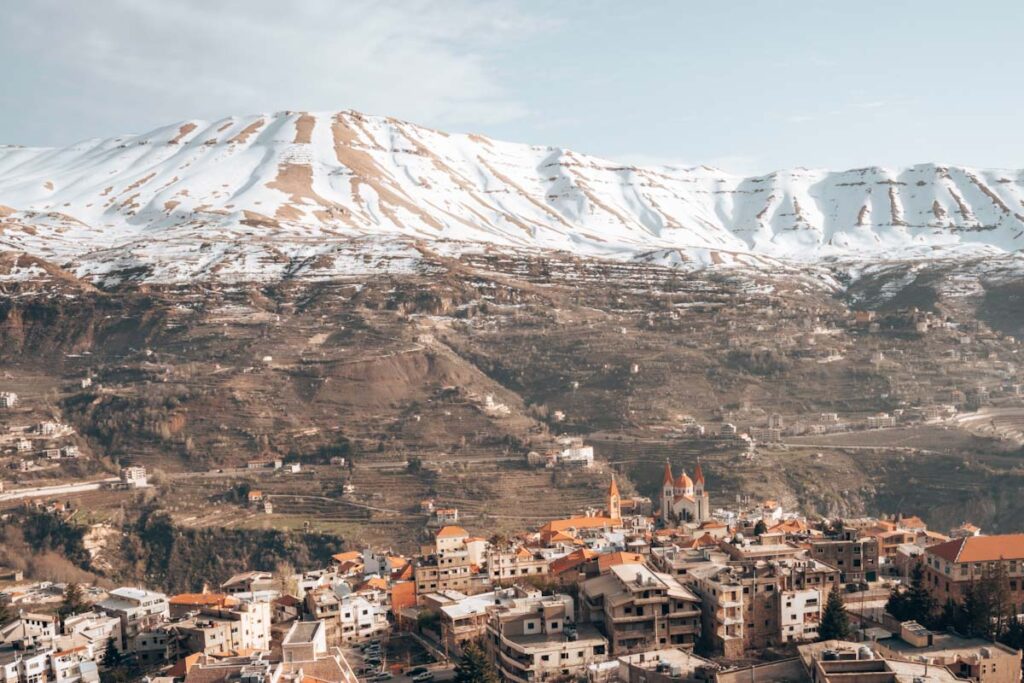
WHAT TO DO IN BCHARRÉ
The Mountain village of Bcharré is mostly about nature or/and relaxation. There are beautiful churches that are most of the day open for the public. What is very interesting is that some people here still speak Aramaic, which is the language of Jesus. Not many places in the world still keep the knowledge of this precious language. Other Christian villages where people know Aramaic are in Syria; we visited Maaloula and Sednaya.
Qadisha Valley Monasteries
A twelve km hike leads from Bcharré down to the Qadisha valley. It takes you to the monasteries still inhabited by monks. The beginning of the hike is behind the cathedral; from the right side, you see the set of stairs that take you all the way down to the big sign where the hike begins.
The beginning of the hike is the most difficult as the descent is pretty steep. You will have an amazing view of the other side of the valley. Especially in April, there is plenty of water, and you see many waterfalls making their way between the rocks.
The first monastery Deir Mar Elisha, visible from a distance, is open from 9 am till sunset. It is carved into rocks. From here, the trails lead through the bottom of the valley to another monastery that is 5km away. You can go back to the main road anytime and hitchhike a lift back to Bcharré or wait for the bus (the one from Tripoli or Beirut, you just wave, and they stop).
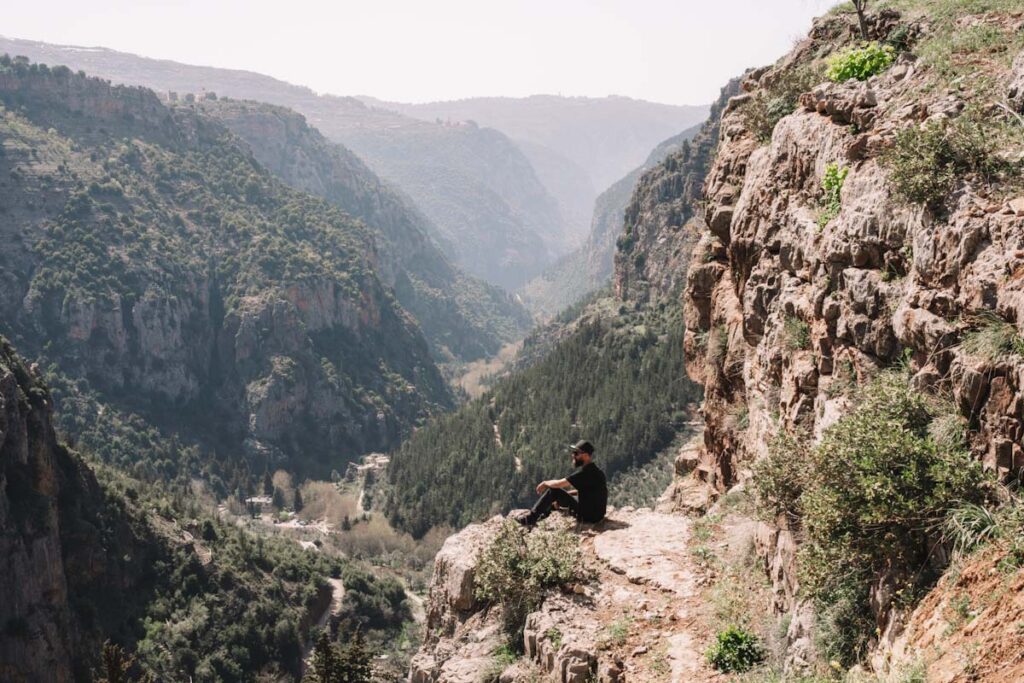
The Cedars
From Bcharré, it is a six km uphill; you need to take a taxi or hitchhike to get to the Cedars. Unfortunately, the Cedar forest was closed due to a high volume of snow in April, but we still get a view, at least from the road.
Taxis are pretty expensive; it costs LBP 350 000 to go there and back, with a driver waiting for you.
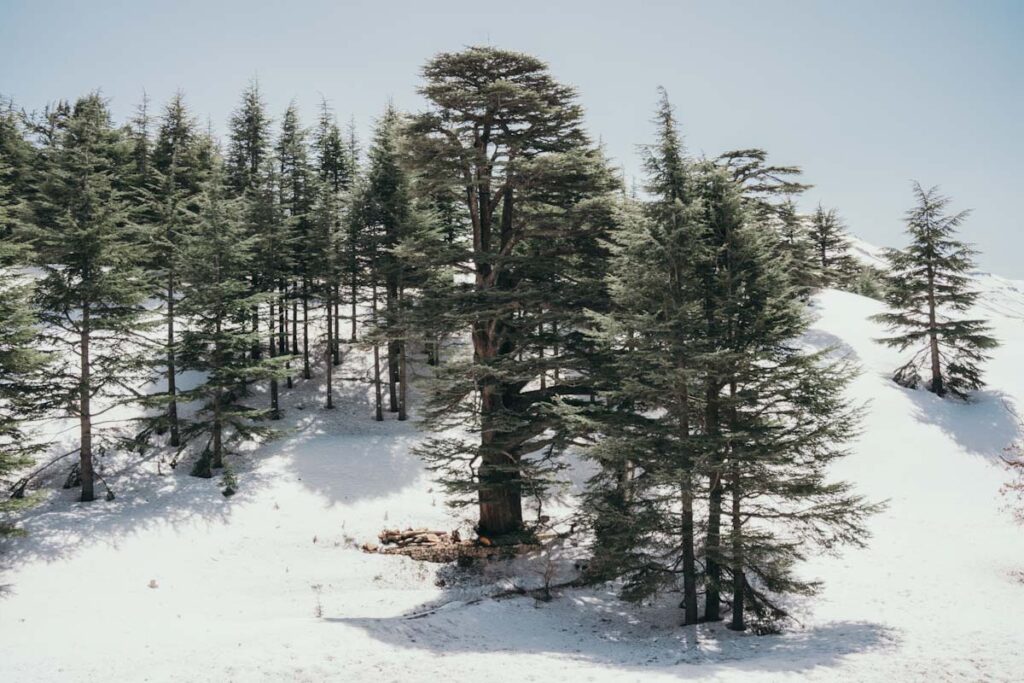
There are many churches in and around Bcharré. Especially on Sunday, it is very lively and nice to go inside.
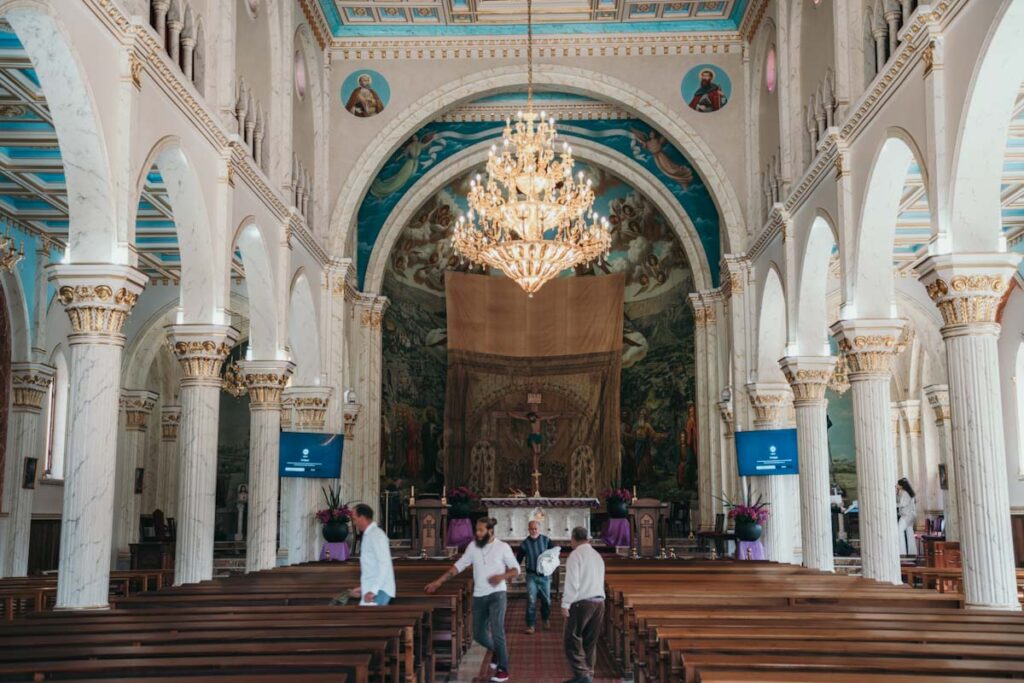
Where to eat in Bcharré
The best food we had in Al Zeitouni restaurant , the prices are good and food tasty. Mostly they have sandwiches – fish, falafel, chicken…
HOW TO GET TO BCHARRÉ
If you follow our itinerary, you go to Bcharré from Tripoli. Take a bus leaving from the roundabout in Abdel Hamid Karameh Square (exact location: 34.4345947, 35.8361633). Those buses have a set schedule, so make sure you come on time. They leave every day from Tripoli to Bcharré at 9:05am, 1pm, and 5:30pm.
To return from Bcharré to Tripoli, they leave outside Saint Saba Cathedral at 6:20am, 10:55am, and 3:20pm. Contact for a driver is +961 70 055 525.
There is also a direct bus between Beirut and Bcharré. It also leaves outside of the cathedral. The first one to Beirut leaves at 9am. Contact for a bus company is +961 3 534 701.
Don’t hesitate to contact the numbers on WhatsApp to check the current schedule.
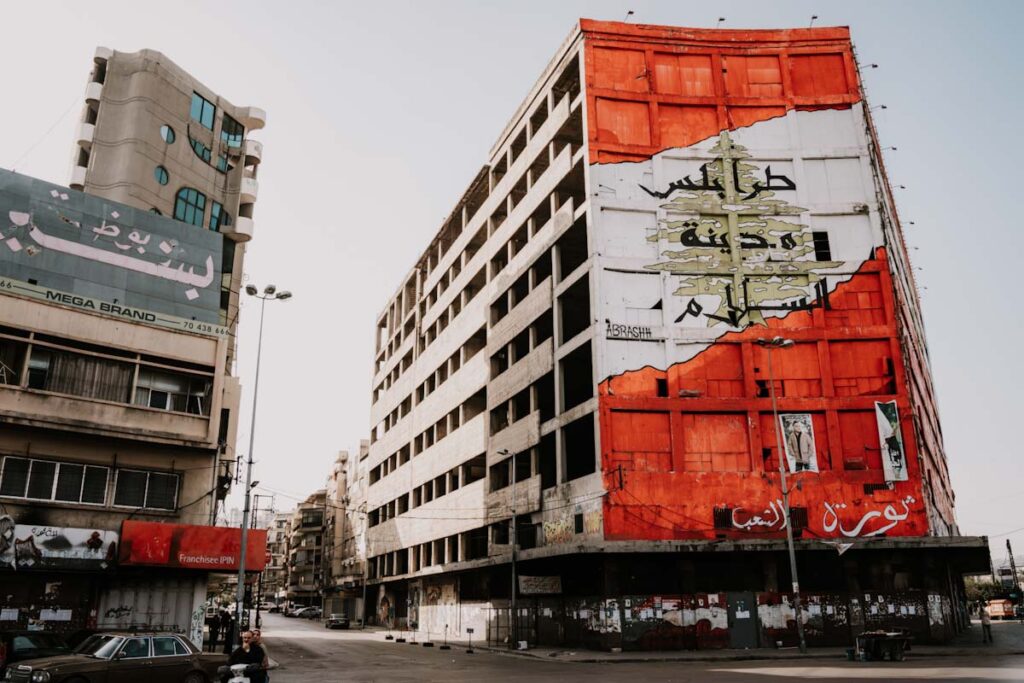
WHERE TO STAY IN BCHARRÉ
Budget I View Lodge Bcharré – the best stay we had in Lebanon. Such a friendly owner made us feel like at home. The homemade breakfast is excellent, especially the kiwi fruit jam from his farm. The house has a big living room with a huge window with an unforgettable view over the valley and snow-covered mountain peaks. It is centrally located, electricity, wifi and drinkable water provided. It is more like a wooden cottage with a fireplace, and there is also access to a rooftop, where you can have a cup of tea. If we can recommend you one place, make sure you stay here.
Budget I Tiger guest house – another budget option in town. It seems a very popular place as everyone is staying here. It is located quite up the hill, so be prepared to walk uphills multiple times a day, but it also means a better view.
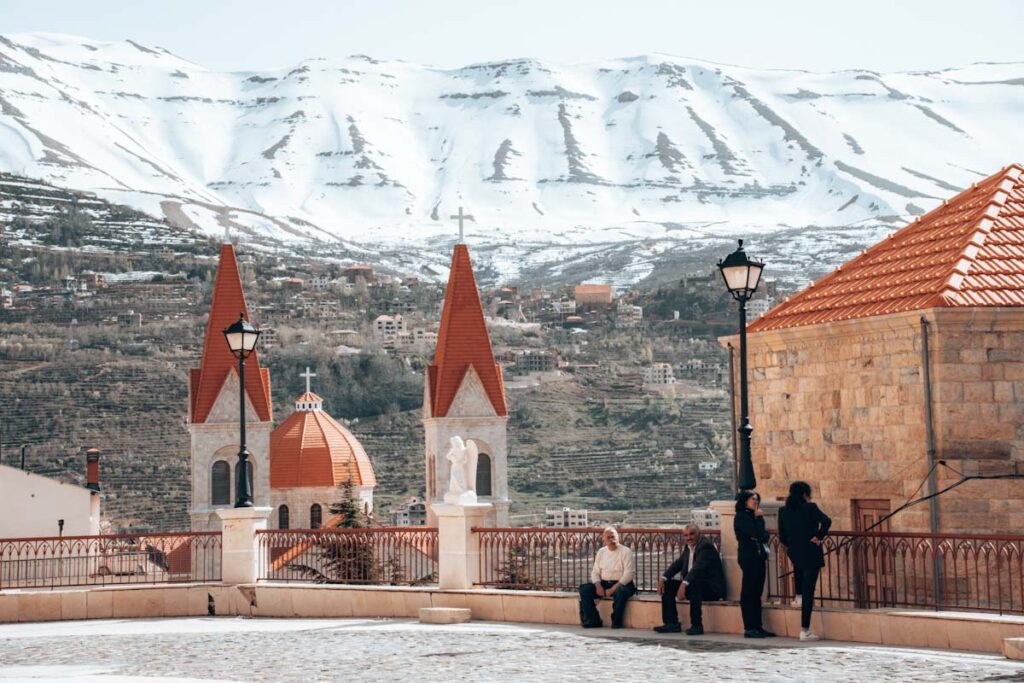
DAY 9-10 BAALBEK
Baalbek is located in Beeka Valley, close to the Syrian borders. Make sure to stay in Baalbek overnight. The city is different from others, with a beautiful shrine and impressive Roman ruins. It is also home to the oldest hotel in Lebanon. A night here was an experience with the same value as exploring the Roman ruins.
Before you go, make sure you check the safety situation, as Beeka Valley is home to Hezbollah’s headquarters, which you will see with yellow flags lining the streets. During our visit, the situation was stable; however, make your research right before you go. In these sensitive areas, the safety situation can change quickly.
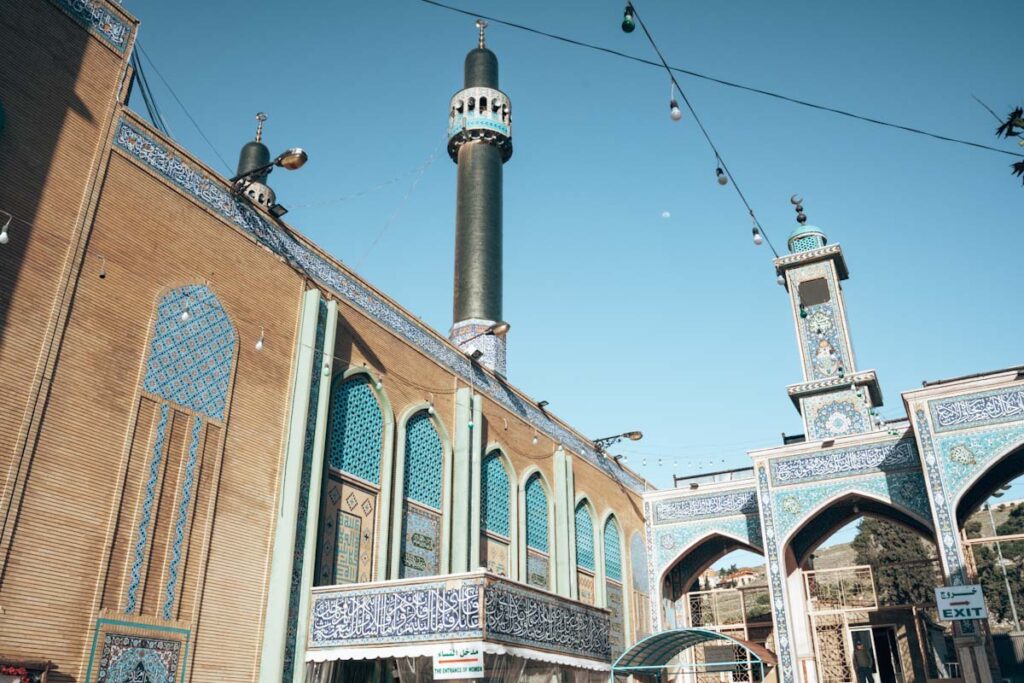
What to do in Baalbek
Baalbek ruins .
Ancient ruins from around 60AD are the best-preserved site in the whole Middle East. There were just a couple of people during our visit, so we felt like we had an entire area for ourselves. Amazing how beautiful the carving is with so many visible details. You need a good two hours to explore the site or, like us, stay in Palmyra Hotel, where you also get a view over the ruins, which are especially beautiful for sunset.
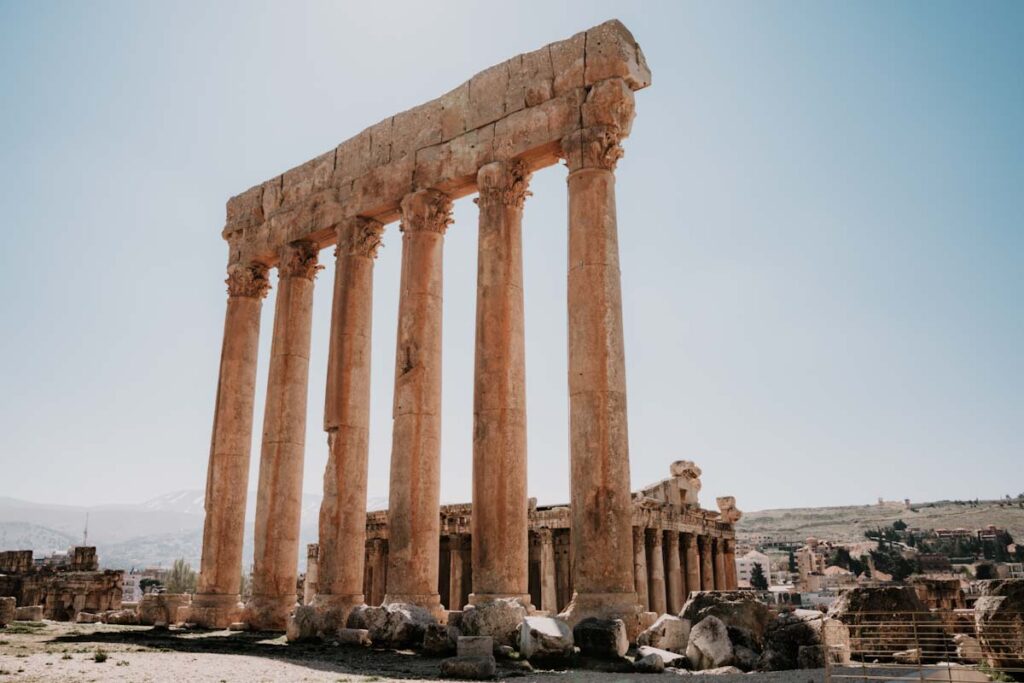
Sayyida Khawla Shrine
The Shrine of Sayyida Khawla, the daughter of Imam Hussein and great-granddaughter of Prophet Muhammad, is a special place and a different kind of mosque than we are used to in Lebanon. This design is the same as the shrines you see in Iran, with glass decorations inside and beautifully coloured outside. There are clothes to cover for women so you can visit. We met friendly locals who gave us a tour and explained a bit of history.
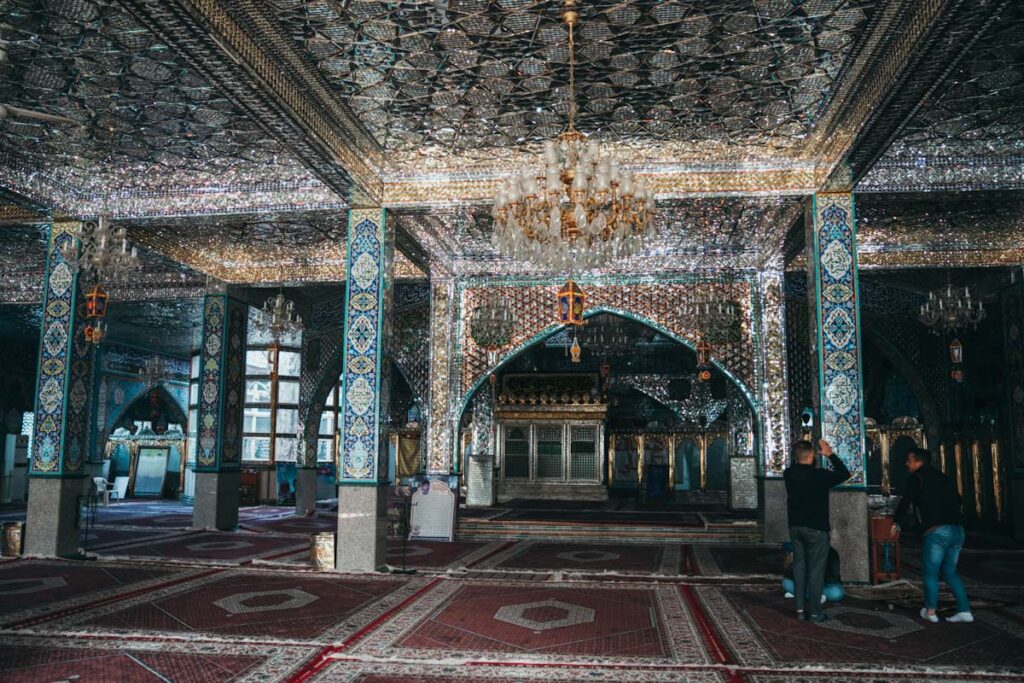
City Centre
Except for the ruins, mosque and Palmyra Hotel, we weren’t really impressed by the Baalbek city, to be honest. After you see souks in Tripoli and Saida, there is not much going on in Baalbek.
Where to eat in Baalbek
There are many small eateries serving shawarma or falafel and hummus, as well as sweets. But one bakery, in particular, caught our attention. They make fresh bread, different kinds of pastries filled with meat or cheese in an oven, the place is bustling with locals, and the pastry and bread are the best ones we had in Lebanon. The bakery is called Turn el Asdiqaa .
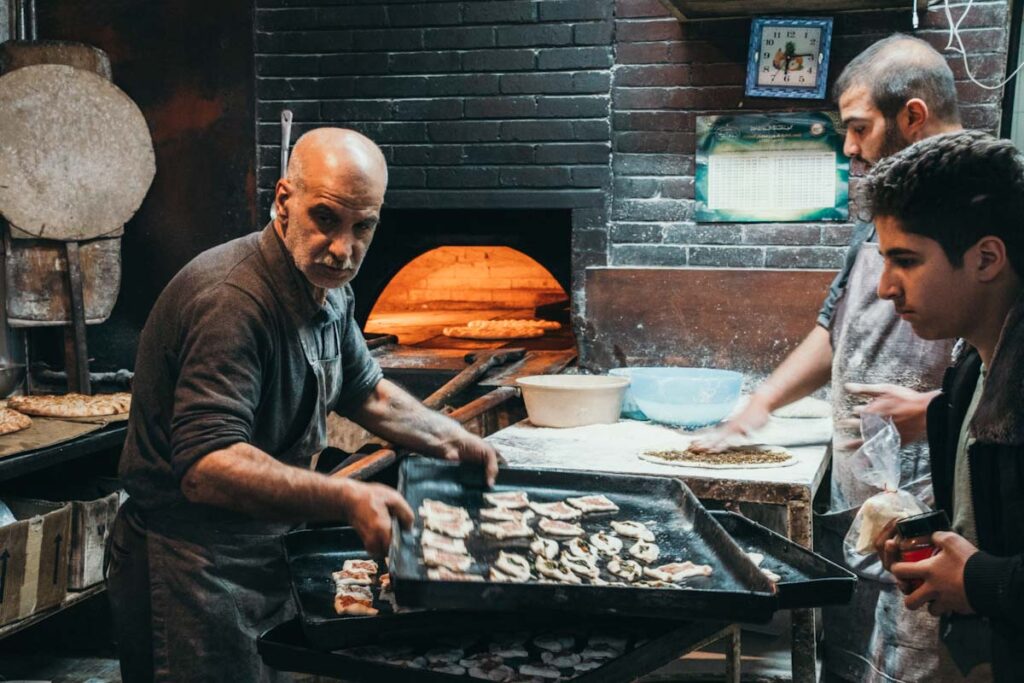
HOW TO GET TO BAALBEK FROM BCHARRÉ AND BEIRUT
From Bcharré, direct buses run from 9 o’clock to Beirut, Dowra station (2.5 hours, LBP 70 000). The bus stop is in front of the Saint Saba Cathedral.
Another option is to take a bus to Tripoli (1 hour 20 min, LBP 50 000), which leaves every day at 6:20am, 10:55am and 3:20pm. It drops you off at Abdel Hamid Karameh Square, from where you can catch a Connexion bus to Beirut (1.5 hours, LBP 50 000).
Then from Beirut, you need to take another bus that goes to Baalbek from the Cola intersection (2.5 hours LBP 100 000). Direct buses are frequently running, as well as minivans that go to Chtoura, where you change a bus to Baalbek. This transport took us 6 hours, so if you feel like it, you can break a journey and explore and stay overnight either in Batroun or Zahlé, two exciting cities that are along the way.
The best option is to take a bus from Bcharré directly to Baalbek, through the mountains. It takes only around one hour. But the road is open only when the snow is gone. In April, it was still closed.
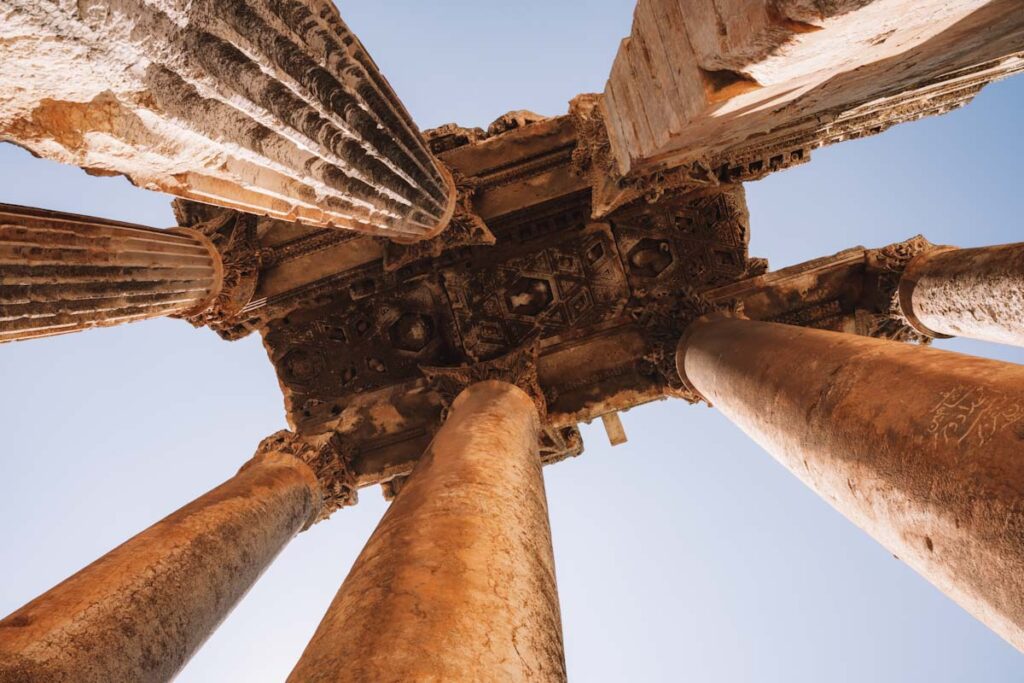
HOW TO GET FROM BAALBEK TO BEIRUT
Buses stay in front of the Palmyra Hotel and frequently run throughout the day. We took a bus to Chtoura and from there another bus to Beirut. The way to and from Baalbek was the only one in Lebanon where drivers wanted us to pay more money than locals. We had to pay also for our bags, and they dropped us off not in the Cola intersection but in some random part of Beirut. On the way back, we paid LBP 150 000 per person.
WHERE TO STAY IN BAALBEK
Mid-Range I Palmyra Hotel – the oldest history-filled hotel in Lebanon is like a stay in a museum. It was built in 1874 and has never closed ever since. It hosted famous people such as Charles de Gaulle, Albert Einstein, Ella Fitzgerald and many others. We loved our stay here, and it was the highlight of our trip to Baalbek, together with the impressive ruins that you actually see from your hotel room. We contacted them directly through WhatsApp +9618370230 and managed to get a price of $30 per night with an amazing buffet breakfast.
Mid-Range I Kanaan Hotel – the only option that can be booked online is Kanaan Hotel, a decent hotel with breakfast included, it is 15 minutes walk from the ruins.
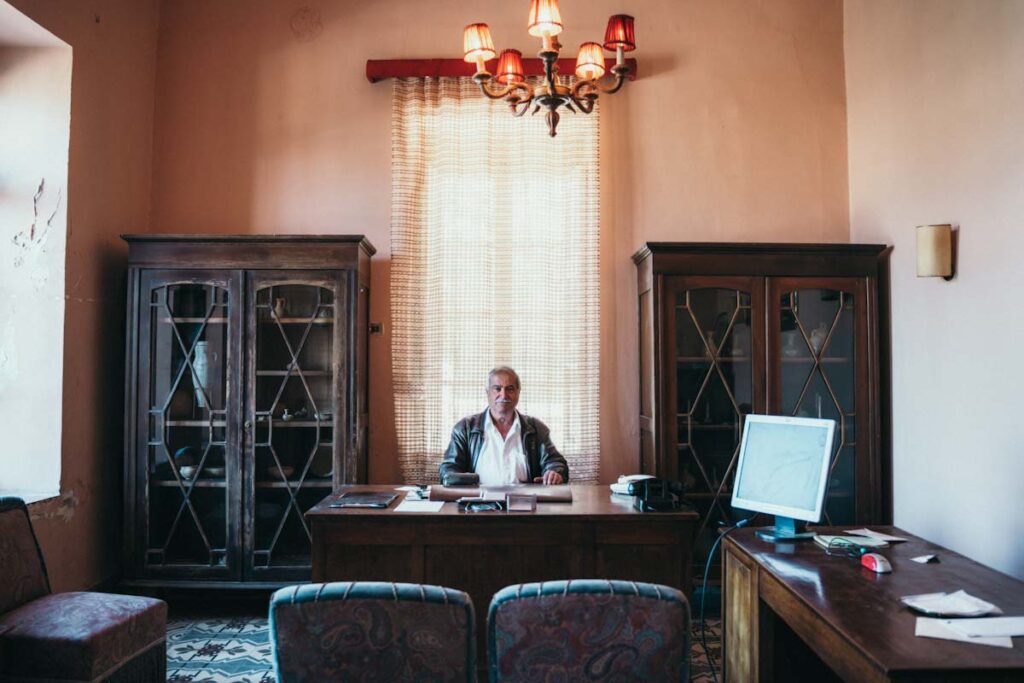
DAY 11 Back to Beirut & Other places
If you have more time, you can visit Mleeta – the Hezbollah Resistance Museum , an open-air museum showing the battles between Hezbollah against the Israeli troops. To get there, you need to take a service taxi from Saida. Or you can take a bus from Beirut, which leaves near the Kuwaiti embassy and takes you to the Nabatiyeh village, from where you take a service taxi to Mleeta.
If you are interested in a more offbeat location, the 2,500 year-old Pyramid of Hermel is a great place to be! Nobody is quite sure who build it but still, it’s standing there! To learn more about these cool locations, read Rowan’s in-depth article about Lebanon at Quit & Go Travel .
USEFULL TIPS
- We experienced one checkpoint when travelling by bus in Lebanon on the way to Baalbek. So it is better to have a passport always with you.
- Check the current lira rate on the black market on the Lira Rate app.
- Bring a power bank and headlamp. You will need it.
- Don’t leave any chargers in a plug when not charging. Why? We made a mistake; we left the chargers in a plug after charging our things. It burned all of them down completely.
- Everyone communicates via WhatsApp – even hotels, bus companies, and drivers. Everyone.
Onward travel
Lebanon is the best gateway to travel to Syria; many people cross the overland border daily, and it’s the easiest overland border crossing you can do. We crossed the overland borders from Lebanon to Syria in April 2022. You can read our detailed travel guide below:
Read: How can you travel to Syria in 2022 & Is it safe to visit?
It’s time to plan your trip!
Find our travel resources below that help you plan your next trip. Good luck and safe travels.
Book your flight
Skyscanner is our favourite tool for searching for the cheapest flights and flight combinations. Multi-city or Explore Everywhere helps us to find real bargains.
The best platform to rent a car and compare the prices for your next road trip anywhere in the world is Discovercars.com . The booking process is hassle-free.
Find your acommodation
On Booking.com we always find the best deals for accommodation. Another great option for cheap accommodation is Hostelworld .
Travel insurance
We always recommend IATI Travel Insurance which offers excellent plans. As a reader of Broken Navigation, get an exclusive 5% discount. For Europeans Truetraveller offers perfect travel insurance for the best price.
Explore more with Tours
Some places are better off explored with a knowledgeable guide. Or, if you simply want to save time and hassle, we recommend GetYourGuide . Another great option that also has an amazing range of activities is Viator .
protect yourself online by VPN
We always use NordVPN everywhere we travel for safe internet browsing and access to specific sites that might be blocked.
Disclosure: We recommend only companies we personally use. If you book services through any of the affiliate links in our posts, it earns us a small commission at no extra cost to you.
Travelling for years now, she found the passion in unique and off the beaten path places. Romana is a food lover, but it doesn’t stop her from hiking the mountains for several days. By sharing her experiences, she wants to help you experience the same.
You may also like
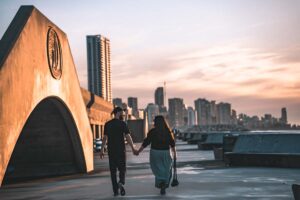
Ultimate Travel Guide to Beirut & Top Things To Do in 2024
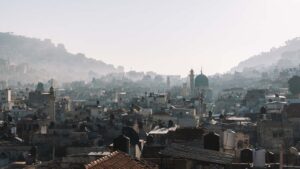
Palestine: Comprehensive Travel Guide 2024 & 11-day Itinerary
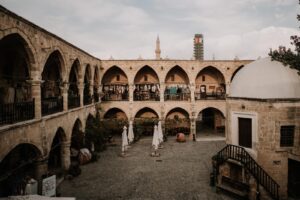
How to travel to the Turkish Republic of Northern Cyprus in 2024
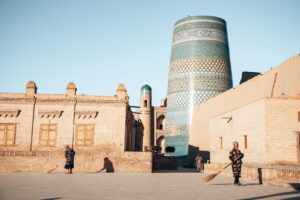
25 Things to Know Before You Go To Uzbekistan in 2024
Leave a reply cancel reply.
Your email address will not be published. Required fields are marked *
Name *
Email *
Add Comment *
Email me when someone replies to my comment
Subscribe to newsletter
Post Comment
Guys, I read an article about Lebanon. Very interesting and informative, and most importantly, everything is very detailed. I also wanted to go there. You are great, continue to please with new articles.
Thank you so much! We appreciate it!
Subscribe to our newsletter
Get access to exclusive content and stay up to date with the latest travel tips and news.
Update April 12, 2024
Information for u.s. citizens in the middle east.
- Travel Advisories |
- Contact Us |
- MyTravelGov |
Find U.S. Embassies & Consulates
Travel.state.gov, congressional liaison, special issuance agency, u.s. passports, international travel, intercountry adoption, international parental child abduction, records and authentications, popular links, travel advisories, mytravelgov, stay connected, legal resources, legal information, info for u.s. law enforcement, replace or certify documents.
Before You Go
Learn About Your Destination
While Abroad
Emergencies
Share this page:
Travel Advisory January 29, 2024
Lebanon - level 3: reconsider travel.
Updated to reflect lowering the overall Travel Advisory to Level 3, information about southern Lebanon, the border with Syria, and refugee settlements in Lebanon, information on crime and political violence, kidnapping, unexploded landmines, civil unrest, and the “If you decide to travel” section.
Reconsider travel to Lebanon due to crime, terrorism, civil unrest, kidnapping, unexploded landmines, and armed conflict . Some areas, especially near the borders, have increased risk. Read the entire Travel Advisory.
Do Not Travel to:
- Southern Lebanon due to the potential for armed conflict;
- The border with Syria due to terrorism and armed conflict;
- Refugee settlements due to the potential for armed clashes .
Country Summary : U.S. citizens in Lebanon should be aware of the risks of remaining in the country and review their personal security plans. U.S. citizens are urged to avoid travel to southern Lebanon, the Syrian border, and refugee settlements in Lebanon.
U.S. citizens in Lebanon should be aware that consular officers from the U.S. Embassy are not always able to travel to assist them. The Department of State considers the threat to U.S. government personnel in Beirut sufficiently serious to require them to live and work under strict security. The internal security policies of the U.S. Embassy may be adjusted at any time and without advance notice.
Terrorist groups continue plotting possible attacks in Lebanon. Terrorists may conduct attacks with little or no warning targeting tourist locations, transportation hubs, markets/shopping malls, and local government facilities.
The Lebanese government cannot guarantee the protection of U.S. citizens against sudden outbreaks of violence and armed conflict. Family, neighborhood, or sectarian disputes can escalate quickly and can lead to gunfire or other violence with no warning.
Local security authorities have noted a rise in violent crimes, including political violence. Multiple unsolved killings in Lebanon may have been politically motivated.
Kidnapping, whether for ransom, political motives, or family disputes, has occurred in Lebanon. Suspects in kidnappings may have ties to terrorist or criminal organizations.
Unexploded landmines and explosive remnants of war are a hazard along the border with Syria. Heed land mine warning signs. Do not venture off the road into areas marked off with red and white plastic tape. Avoid roadside ditches, shoulders, and unmarked trails. Never touch anything resembling unexploded munitions.
U.S. citizens should avoid demonstrations and exercise caution if in the vicinity of any large gatherings or protests as these have the potential to turn violent quickly and with little notice. Protesters have blocked major roads, including thoroughfares between downtown Beirut and the area where the U.S. Embassy is located, and between Beirut and Beirut Rafic Hariri International Airport.
Read the country information page for additional information on travel to Lebanon.
If you decide to travel to Lebanon:
- Visit our website for information on Travel to High-Risk Areas .
- Appoint one family member to serve as the point of contact with kidnappers/hostage-takers, media, U.S. and host country government agencies, and members of Congress if you are kidnapped, or taken hostage.
- Keep travel documents up to date and easily accessible.
- Do not touch unknown metal objects and avoid traveling off well-used roads, tracks, and paths due to risk of unexploded ordnance.
- Avoid demonstrations and crowds.
- Stay alert in locations frequented by Westerners.
- Monitor local media for breaking events and adjust your plans based on new information.
- Enroll in the Smart Traveler Enrollment Program ( STEP ) to receive Alerts and make it easier to locate you in an emergency.
- Follow the Department of State on Facebook and Twitter .
- Review the Country Security Report for Lebanon.
- Visit the CDC page for the latest Travel Health Information related to your travel.
- U.S. citizens who travel abroad should always have a contingency plan for emergency situations. Review the Traveler’s Checklist .
Southern Lebanon – Level 4: Do Not Travel (See map below)
The U.S. Embassy strongly urges U.S. citizens to avoid southern Lebanon; that is, all parts south of the city of Saida, to include inland areas, as illustrated in the map below. Cross-border rocket, missile, and artillery fire continues to impact southern Lebanon on a daily basis and has caused a significant number of fatalities and injuries.

Border with Syria – Level 4: Do Not Travel
The U.S. Embassy strongly urges U.S. citizens to avoid the Lebanon-Syria border, which has seen clashes between Lebanese security forces and Syrian-based violent extremist groups. The U.S. Department of State also warns U.S. citizens of the risk of traveling on flights that fly over Syria, which include some flights to and from Beirut.
Refugee Settlements – Level 4: Do Not Travel
The U.S. Embassy urges U.S. citizens to avoid travel to refugee settlements in Lebanon, which are prone to outbreaks of violence including shootings and explosions.
Visit our website for Travel to High-Risk Areas .
Embassy Messages
View Alerts and Messages Archive
Quick Facts
Valid for ninety days following entry, with no Israeli stamps or visas
One page required for entry stamp
Embassies and Consulates
U.S. Embassy Beirut Awkar (facing the Awkar Municipality Building), Main Street Beirut, Lebanon Telephone: +(961) 4-542600 or +(961) 4-543600 Emergency After-Hours Telephone: +(961) 4-543600 Fax: +(961) 4-544209 Email: [email protected]
Destination Description
See the Department of State’s Fact Sheet on Lebanon for information on U.S.-Lebanon relations.
Entry, Exit and Visa Requirements
- Passports and visas are required.
- U.S. citizens coming to Lebanon for tourism routinely receive a one-month visa on arrival at Beirut International Airport or other port of entry. This visa can be extended. Details on the extension can be obtained at a local office of Sûreté Générale (General Security) .
- U.S. citizens who also hold Lebanese citizenship are subject to the requirements and responsibilities of Lebanese citizenship under Lebanese law.
- More information on Lebanon’s entry and exit requirements can be found on General Security’s website .
- Travelers who hold passports that contain visas or entry/exit stamps for Israel will be denied entry into Lebanon and may be subject to arrest or detention. Even if travel documents contain no Israeli stamps or visas, persons who have previously traveled to Israel may still face arrest and/or detention if prior travel is disclosed.
- Travelers who have previously worked in Lebanon without the appropriate work visa may be denied entry, detained or deported.
- Travelers who have previously resided in Lebanon under refugee status, regardless of current citizenship, may be denied entry.
- Travelers who have overstayed their entry visa validity in Lebanon must obtain an exit visa from General Security’s Department of Passport and Immigration prior to their departure.
- Individuals who are detained and awaiting deportation will remain detained until they pay the cost of their return airfare.
- Authorities with General Security may retain U.S. passports for an extended period while U.S. citizens await issuance of work or residency permits.
For Additional Information:
- Contact the Embassy of Lebanon , 2560 28th Street NW, Washington, DC, 20008, tel. (202) 939-6300; e-mail: [email protected] .
- Los Angeles
- Additional information on Honorary Consulates in the United States can be found within the Consular Affairs section of the Embassy of Lebanon website .
The U.S. Department of State is unaware of any HIV/AIDS entry restrictions for visitors to or foreign residents of Lebanon.
Find information on dual nationality , prevention of international child abduction and customs regulations on our websites.
Safety and Security
Terrorism: Across the world, terrorist groups and those inspired by such organizations are intent on attacking U.S. citizens abroad and resort to various methods of attack – including knives, firearms, and vehicles – frequently on unprotected or vulnerable targets, such as:
- High-profile public events (sporting contests, political rallies, demonstrations, holiday events, celebratory gatherings, etc.)
- Hotels, clubs, and restaurants frequented by tourists
- Places of worship
- Shopping malls and markets
- Public transportation systems (including subways, buses, trains, and scheduled commercial flights)
In Lebanon, there is potential for death or injury because of terrorist attacks. Violent extremist groups, including U.S. government-designated terrorist organizations, operate in Lebanon. ISIS and affiliated groups have claimed responsibility for suicide bombings in Lebanon. U.S. citizens have been the targets of terrorist attacks in Lebanon. The threat of anti-Western terrorist activity persists, as does the risk of death or injury to bystanders. Clashes between Lebanese authorities and criminal elements continue to occur in areas of the Bekaa Valley and border regions. Hizballah maintains a strong presence in the Bekaa Valley, in addition to areas in southern Lebanon and south Beirut. In addition to the threat of Hizballah conducted terrorist activity, Hizballah has been the target of attacks by other extremist groups for their support of the Assad regime in Syria.
Avoid the Lebanon-Syria border region: The U.S. Embassy strongly urges U.S. citizens to avoid the Lebanese-Syrian border region because of past clashes, extremist activity, and the potential for these to recur at any time.
Avoid the Lebanon-Israel border region: Hostilities flared in Southern Lebanon in April 2022, and again in April 2023, due to tensions between Israel, Hizballah, and the Palestinian terrorist group HAMAS. The potential for wider conflict remains. The U.S. Embassy urges U.S. citizens to avoid the Lebanon-Israel border area due to ongoing tensions between the two countries. Attacks and responses can occur without warning. Landmines and unexploded ordnance pose significant dangers throughout southern Lebanon, particularly south of the Litani River. Travelers should watch for posted landmine warnings and strictly avoid all marked areas.
Avoid travel to refugee settlements: Violence within refugee settlements has resulted in shootings and explosions. U.S. citizens should avoid travel to refugee settlements. Palestinian groups hostile to both the Lebanese government and the United States operate autonomously in formal and informal refugee settlements in different areas of the country.
For more information, see our Terrorism page.
Crime: Reported crime rates in Lebanon are moderate but rising. Violent crime and sexual assault are rare but do occur. Petty theft -- such as pickpocketing and purse snatching -- occurs in crowded public areas. More recently, the dire economic situation is engendering a significant increase in economically motivated crimes, including home invasions and car thefts. Police are responsive but often unable to affect a positive outcome.
Demonstrations occur frequently. They may take place in response to political or economic issues, on politically significant holidays, and during international events. Protests often occur spontaneously with little to no advance warning.
- Even demonstrations intended to be peaceful can turn confrontational and possibly become violent.
- Avoid areas around protests and demonstrations.
- Check local media for updates and traffic advisories.
International Financial Scams: Internet romance and financial scams are prevalent in Lebanon. Scams are often initiated through Internet postings/profiles or by unsolicited emails and letters. Scammers almost always pose as U.S. citizens who have no one else to turn to for help.
Common scams include:
- Romance/Online dating
- Work permits/job offers
See the Department of State and the FBI pages for information.
Victims of Crime: U.S. citizen victims of sexual assault or domestic violence are encouraged to contact the U.S. Embassy for assistance. Report crimes by visiting the nearest police or by calling the ISF hotline 1745 and contact the U.S. Embassy at +(961) 4-542600 or +(961) 4-543600. Local authorities are responsible for investigating and prosecuting crimes.
See our webpage on help for U.S. victims of crime overseas .
- Help you find appropriate medical care
- Assist you in reporting a crime to the police
- Contact relatives or friends with your written consent
- Provide general information regarding the victim’s role during the local investigation and following its conclusion
- Provide a list of local attorneys
- Provide our information on victim’s compensation programs in the U.S.
- Provide an emergency loan for repatriation to the United States and/or limited medical support in cases of destitution
- Help you find accommodation and arrange flights home
- Replace a stolen or lost passport
Domestic Violence: U.S. citizen victims of domestic violence are encouraged to contact the Embassy for assistance.
Tourism: The tourism industry is unevenly regulated, and safety inspections for equipment and facilities do not commonly occur. Hazardous areas/activities are not always identified with appropriate signage, and staff may not be trained or certified either by the host government or by recognized authorities in the field. In the event of an injury, appropriate medical treatment is typically available only in/near major cities. First responders are generally unable to access areas outside of major cities and to provide urgent medical treatment. U.S. citizens are encouraged to purchase medical evacuation insurance. See our webpage for more information on insurance providers for overseas coverage.
Local Laws & Special Circumstances
Criminal Penalties: You are subject to local laws. If you violate local laws, even unknowingly, you may be expelled, arrested, or imprisoned. Individuals establishing a business or practicing a profession that requires additional permits or licensing should seek information from the competent local authorities, prior to practicing or operating a business.
Penalties for possessing, using, or trafficking in illegal drugs in Lebanon can be significant, and convicted offenders can expect long jail sentences and heavy fines. Visitors lacking passport or identification documents at government checkpoints are subject to questioning by Lebanese authorities. In certain areas, taking photos of buildings or other infrastructure has led to questioning and detention. In Lebanon, persons driving under the influence can be jailed immediately.
Furthermore, some laws are also prosecutable in the United States, regardless of local law. For examples, see our website on crimes against minors abroad and the Department of Justice website .
Arrest Notification: If you are arrested or detained, ask police or prison officials to notify the U.S. Embassy immediately. See our webpage for further information.
Individuals who were affiliated with the former militia known as the South Lebanon Army (SLA) and previously departed Lebanon because of their association with that group should carefully consider any plans to return to Lebanon. Alleged former members of the SLA have been detained on arrival and received threats to their physical security, even after receiving assurances from Lebanese officials and/or legal counsel in Lebanon that they could return safely.
Counterfeit and Pirated Goods: Although counterfeit and pirated goods are prevalent in many countries, they may still be illegal according to local laws. You may also pay fines or have to give them up if you bring them back to the United States. See the U.S. Department of Justice website for more information.
Faith-Based Travelers: See the following webpages for details:
- Faith-Based Travel Information
- International Religious Freedom Report – see country reports
- Human Rights Report – see country reports
- Hajj Fact Sheet for Travelers
- Best Practices for Volunteering Abroad
LGBTQI+ Travelers: LGBTQI+ status and/or conduct is criminalized in Lebanon, and LGBTQI+ persons can face significant social stigma. Article 534 of the Lebanese Penal Code prohibits sexual relations, “contradicting the laws of nature,” an offense punishable by up to one year in prison. Although Lebanese courts have interpreted this provision in different ways and prosecutions are rare, judicial decisions can vary case-to-case and LGBTQI+ adults have been charged, tried, and convicted for engaging in consensual same-sex relations. Authorities have arrested LGBTQI+ individuals for minor offenses, then charged them with violation of Article 534 when evidence of their LGBTQI+ identity is uncovered, through searches of cell phones or other personal material. While prosecution is uncommon, short-term detentions can expose individuals to discrimination and abuse.
There has been a rise in anti-LGBTQI+ rhetoric from political and religious leaders, accompanied by an increase in online harassment, threats of violence, and violence against LGBTQI+ persons. In August 2023, members of an anti-LGBTQI+ religious group attacked an LGBTQI+ friendly establishment in the Mar Mikhael neighborhood of Beirut, reportedly threatening, assaulting, and injuring patrons. Gatherings, events, or items (including those with rainbows) perceived as “promoting homosexuality” have the potential of being scrutinized, monitored or disbanded by security forces.
While Lebanese authorities indicate that travelers entering Lebanon with passports showing X gender will be admitted without difficulty, the United States government cannot guarantee your entry or transit through other countries.
See our LGBTQI+ Travel Information page and section 6 of our Human Rights Report for further details.
Travelers with Disabilities: The law in Lebanon prohibits discrimination against persons with physical, sensory, intellectual or mental disabilities, but the law is unevenly enforced. Social acceptance of persons with disabilities in public is relatively low. Some facilities and information have been made accessible, but such standard accessibility is not common. Expect infrastructure accessibility to be limited in urban areas, and even more so in the rest of the country. There are a handful of hotels that are partially accessible in the Beirut area. Some transportation companies do provide accessible services. Events and activities are rarely designed to be inclusive.
Service providers for people with disabilities, such as sign language interpreters or personal assistants, are available but limited in Lebanon. The best way to find assistance is to contact organizations for people with disabilities such as the Lebanese Union for Persons with Physical Disabilities, the Youth Association of the Blind, the Lebanese Federation of the Deaf, or the Lebanese Association for Self Advocacy.
Students: See our Students Abroad page and FBI travel tips .
Exit Bans: U.S. citizens living in or traveling in Lebanon are sometimes denied permission to depart the country because a criminal, civil, or family court has imposed an exit ban. For example, a head of household can place an exit ban against a spouse and children even before the family arrives in Lebanon. Easily initiated, exit bans remain in place for prolonged periods and can only be removed by petition from an attorney. The U.S. Embassy cannot have exit bans removed, even in times of crisis. An attorney’s list is available on U.S. Embassy Beirut’s website .
Women Travelers: See our travel tips for Women Travelers .
Dual Citizenship: U.S. citizens who also hold Lebanese nationality are considered by local authorities to be Lebanese, even when entering Lebanon using a U.S. passport. Lebanese-U.S. citizens who are suspected of association with Israeli citizens or officials, or to have traveled through Israel, are subject to detention, arrest, and prosecution. Their passports may be retained by Lebanese authorities on arrival, and they must appear at the Lebanese Military court the next business day for investigation, after which their passports may be returned if no connections with Israel are confirmed. U.S. citizen dual nationals of other Arab countries who arrive at a Lebanese point of entry with an Israeli stamp in their passports will be denied entry and may be detained or arrested. Travelers with a family name deemed to be of Israeli or Jewish origin may also be questioned or detained.
Travelers who have previously entered Lebanon illegally under Lebanese law, whether as refugees or for transit to a third country, may be denied entry, even if they are or have since become U.S. citizens.
Middle Eastern Heritage: U.S. citizens with names reflecting Middle Eastern heritage may face additional scrutiny at Lebanese ports of entry and may be required to show documentary evidence of their parentage: specifically, official proof of their father’s name such as a copy of their birth certificate.
Marrying in Lebanon: More than 18 separate and distinct religious sects solemnize marriages in Lebanon. Civil marriage is not available. U.S. citizen and Lebanese national couples should familiarize themselves with the rights and responsibilities of marriage as defined by the religion performing their marriage. They should be aware that religious clerics and religious courts dictate all personal status matters related to marriage, divorce, and child custody. In matters of marriage, child custody, inheritance, and divorce, personal status laws provide unequal treatment across the various confessional court systems but generally discriminate against women. Nationality law also discriminates against women, who may not confer citizenship to their spouses and children. Civil marriages performed outside of Lebanon and registered with Lebanon’s Ministry of the Interior fall under civil court jurisdiction regarding divorce and child custody.
Military Service Obligation: Mandatory military service in Lebanon was abolished in 2007. However, travelers with questions about prior military service, desertion, or failure to register in the past should contact the Embassy of Lebanon in Washington, D.C. for details prior to traveling to Lebanon.
Customs: Lebanese customs authorities may enforce strict regulations concerning import and export of items, such as firearms, military paraphernalia, professional camera equipment, other communications equipment, or antiquities. You should contact the Embassy of Lebanon in Washington, D.C., for specific information regarding customs requirements. Please see our information on customs regulations .
For emergency services in Lebanon dial 112.
Ambulance services are:
- not widely available and training and availability of emergency responders may be below U.S. standards.
- not equipped with state-of-the-art medical equipment.
- Injured or seriously ill travelers may prefer to take a taxi or private vehicle to the nearest major hospital rather than wait for an ambulance.
We do not pay the medical bills. Be aware that U.S. Medicare/Medicaid does not apply overseas. Most hospitals and doctors overseas do not accept U.S. health insurance.
Medical Insurance: Make sure your health insurance plan provides coverage overseas. Most care providers overseas only accept cash payments. See our webpage for more information on insurance providers for overseas coverage. Visit the U.S. Centers for Disease Control and Prevention for more information on type of insurance you should consider before you travel overseas.
We strongly recommend supplemental insurance to cover medical evacuation.
Always carry your prescription medication in original packaging, along with your doctor’s prescription. Check with the Lebanon Ministry of Health to ensure the medication is legal in Lebanon.
Vaccinations: Be up-to-date on all vaccinations recommended by the U.S. Centers for Disease Control and Prevention.
Further health information:
- World Health Organization
- U.S. Centers for Disease Control and Prevention (CDC)
Air Quality: Visit AirNow Department of State for information on air quality at U.S. Embassies and Consulates.
Water Quality: In all areas, tap water is not potable. Bottled water and beverages are generally safe.
Health facilities in general:
- Adequate health facilities are available in Beirut, but health care in rural areas may be below U.S. standards.
- Public medical clinics lack basic resources and supplies.
- Hospitals and doctors often require payment “up front” prior to service or admission. Credit card payment is not always accepted; most hospitals and medical professionals require cash payment, often in U.S. dollars.
- Private hospitals usually require advance payment or proof of adequate insurance before admitting a patient.
- Medical staff may have limited English proficiency.
- Patients bear all costs for transfer to or between hospitals.
- Psychological and psychiatric services are limited, even in the larger cities.
Pharmaceuticals
- Due to the current economic situation in Lebanon, many medications are not available in pharmacies and medical facilities.
- Exercise caution when purchasing medication outside the United States. Pharmaceuticals, both over the counter and requiring prescription in the United States, are often readily available for purchase with little controls. Medication should be purchased in consultation with a medical professional and from reputable establishments .
- Always carry your prescription medication in original packaging, along with your doctor’s prescription. Check with the Ministry of Health to ensure the medication is legal in Lebanon.
- U.S. Customs and Border Protection and the Food and Drug Administration are responsible for rules governing the transport of medication back to the United States. Medication purchased abroad must meet their requirements to be legally brought back into the United States. Medication should be for personal use and must be approved for usage in the United States. Please visit the U.S. Customs and Border Protection and the Food and Drug Administration websites for more information.
The U.S. Embassy maintains a list of doctors and hospitals . We do not endorse or recommend any specific medical provider or clinic.
Travel and Transportation
Road Conditions and Safety: Road conditions differ significantly from those in the United States. In certain areas, pedestrians have minimal access to sidewalks and are forced to walk along the sides of busy roadways. There are very few bicycle lanes designated for cyclists, and drivers are unaccustomed to sharing the road with cyclists. Beirut streets and highway lanes are known for their heavy traffic congestion and aggressive driving. Lanes are generally unmarked, and roads outside the capital may be poorly lighted.
Drivers generally will find inter-city directional signs and street markers, but side roads often bear no signposts.
An international driver’s license is required for visitors to Lebanon. Please refer to our Road Safety page and the website of Lebanon’s National Tourist Office for more information.
Traffic Laws:
- Drivers must carry a valid driver’s license, registration and proof of insurance while driving. Licenses are issued to those at least 18 years of age.
- Drivers must obey speed limits and traffic lights, and yield to ambulances, fire engines, and other emergency vehicles.
- Radar detection devices are prohibited.
- Seat belts are compulsory for both front and rear passengers in all vehicles, and helmets are mandatory for cyclists and motorcycle riders.
- A hazard triangle in the vehicle is mandatory.
- Driving under the influence of alcohol and drugs is prohibited, as are open alcohol containers in a vehicle
- Cell phone use while driving is prohibited, except with a hands-free system.
- Children under the age of 5 must be secured in a car seat, and children under the age of 10 may not sit in a front seat or be carried on a motorcycle.
A comprehensive listing of Lebanese traffic laws (in Arabic) is available on the website of the Lebanese Internal Security Forces (ISF).
Public Transportation: In general, public transportation in Lebanon is safe. Buses operate throughout the country but serve a primarily working-class clientele. Taxis are widely available and rideshare services are also active in Lebanon. See our Road Safety page for more information.
Aviation Safety Oversight: As there is no direct commercial air service to the United States by carriers registered in Lebanon, the U.S. Federal Aviation Administration (FAA) has not assessed the government of Lebanon’s Civil Aviation Authority for compliance with International Civil Aviation Organization (ICAO) aviation safety standards. Further information may be found on the FAA’s safety assessment page .
Because of the risks to civil aviation operating in airspace immediately adjacent to the Damascus Flight Information Region (FIR), the Federal Aviation Administration (FAA) has issued a Notice to Air Missions (NOTAM) and/or a Special Federal Aviation Regulation (SFAR) that prohibits U.S. and codeshare flights from flying through the Damascus FIR and advises caution for flights operating in the airspace within 200 nautical miles of the Damascus FIR due to heightened military activity in or around Syria.
For more information, U.S. citizens should consult the Federal Aviation Administration's Prohibitions, Restrictions, and Notices .
Maritime Travel: “The U.S. Coast Guard has concerns about the safety practices in the Port of Beirut and finds that the Lebanese Ministry of Public Works and Transport has not fully implemented the International Ship and Port Facility Security Code. As a result, the U.S. Coast Guard conducts additional screenings of ships that have stopped in Lebanon prior to arrival in the United States. Assessments by the U.S. Coast Guard indicate that Mariners and passengers traveling through the Port of Beirut should exercise caution.”
Mariners planning travel to Lebanon should also check for U.S. maritime advisories and alerts within the MARAD website . Information may also be posted to the U.S. Coast Guard homeport website , and the NGA broadcast warnings website . Navigational warnings can be found under the “Current Warnings” section for the applicable NAVAREA from within the NGA site.
For additional travel information
- Enroll in the Smart Traveler Enrollment Program (STEP) to receive security messages and make it easier to locate you in an emergency.
- Call us in Washington, D.C. at 1-888-407-4747 (toll-free in the United States and Canada) or 1-202-501-4444 (from all other countries) from 8:00 a.m. to 8:00 p.m., Eastern Standard Time, Monday through Friday (except U.S. federal holidays).
- See the State Department’s travel website for the Worldwide Caution and Travel Advisories .
- Follow us on Twitter and Facebook .
- See traveling safely abroad for useful travel tips.
Review information about International Parental Child Abduction in Lebanon . For additional IPCA-related information, please see the International Child Abduction Prevention and Return Act (ICAPRA) report.
Travel Advisory Levels
Assistance for u.s. citizens, lebanon map, learn about your destination, enroll in step.

Subscribe to get up-to-date safety and security information and help us reach you in an emergency abroad.
Recommended Web Browsers: Microsoft Edge or Google Chrome.
Make two copies of all of your travel documents in case of emergency, and leave one with a trusted friend or relative.
Afghanistan
Antigua and Barbuda
Bonaire, Sint Eustatius, and Saba
Bosnia and Herzegovina
British Virgin Islands
Burkina Faso
Burma (Myanmar)
Cayman Islands
Central African Republic
Cote d Ivoire
Curaçao
Czech Republic
Democratic Republic of the Congo
Dominican Republic
El Salvador
Equatorial Guinea
Eswatini (Swaziland)
Falkland Islands
France (includes Monaco)
French Guiana
French Polynesia
French West Indies
Guadeloupe, Martinique, Saint Martin, and Saint Barthélemy (French West Indies)
Guinea-Bissau
Isle of Man
Israel, The West Bank and Gaza
Liechtenstein
Marshall Islands
Netherlands
New Caledonia
New Zealand
North Korea (Democratic People's Republic of Korea)
Papua New Guinea
Philippines
Republic of North Macedonia
Republic of the Congo
Saint Kitts and Nevis
Saint Lucia
Saint Vincent and the Grenadines
Sao Tome and Principe
Saudi Arabia
Sierra Leone
Sint Maarten
Solomon Islands
South Africa
South Korea
South Sudan
Switzerland
The Bahamas
Timor-Leste
Trinidad and Tobago
Turkmenistan
Turks and Caicos Islands
United Arab Emirates
United Kingdom
Vatican City (Holy See)
External Link
You are about to leave travel.state.gov for an external website that is not maintained by the U.S. Department of State.
Links to external websites are provided as a convenience and should not be construed as an endorsement by the U.S. Department of State of the views or products contained therein. If you wish to remain on travel.state.gov, click the "cancel" message.
You are about to visit:
- Skip to main content
- Skip to "About this site"
Language selection
Search travel.gc.ca.
Help us to improve our website. Take our survey !
COVID-19: travel health notice for all travellers
Lebanon travel advice
Latest updates: The Need help? section was updated.
Last updated: April 16, 2024 07:58 ET
On this page
Safety and security, entry and exit requirements, laws and culture, natural disasters and climate, lebanon - avoid all travel.
The security situation can deteriorate further without warning.
If the armed conflict intensifies it could impact your ability to depart the country by commercial means. You should not rely on the Government of Canada for assisted departure or evacuation.
In the event of an evacuation, Government of Canada assisted departures will only be available to Canadian citizens and permanent residents in Lebanon, as well as their accompanying spouse and dependent children. All travellers will require valid travel documents for their assisted departure. The required onward travel to Canada from a safe third location will be at your own expense.
Make sure your travel documents and those of your spouse and children are up to date and secure at all times.
You should consider leaving by commercial means now, if you can do so safely.
Back to top
Security situation in Beirut and southern Lebanon
The situation in Lebanon remains volatile and unpredictable due to violent clashes along the border with Israel, including daily rocket and missile fire as well as air strikes. On January 2, 2024, explosions caused by suspected drone strikes occurred in the Dahiyeh district of Beirut, resulting in casualties. The attacks appear to be related to the ongoing conflict in the region and could lead to an escalation of hostilities in Lebanon.
Your safety and security could be at risk. If you intend to travel to Lebanon despite the advisory, you should consult local authorities and/or experienced local partners, plan a secure route, and monitor the security situation where you are travelling. Emergencies may require you to shelter in place with robust supplies of food, water and medications. Since October 2023, the Government of Canada has advised Canadians to leave Lebanon while commercial options remain available.
If you are in Lebanon, including in Beirut:
- be extremely vigilant and aware of your surroundings
- book a flight to leave the country
- expect a heightened security presence
- carry identification documents at all times
- avoid the area along the borders with Israel and Syria
- make sure your passport and travel documents are up-to-date, including those of your family
- register and update your contact information through the Registration of Canadians Abroad service and encourage other Canadian citizens in Lebanon to do so
Security situation
The security situation is precarious in Lebanon. Large-scale protests in response to the situation in Israel, the West Bank and the Gaza Strip have lead to civil unrest, particularly in Beirut. Protestors have targeted foreign embassies and international organizations.
The country faces a major economic crisis, resulting in severe shortages of basic necessities including medicines and fuel. Tensions and altercations between individuals waiting at gas stations and pharmacies have occurred outside Beirut. The economic instability has also affected the delivery of public services, including healthcare.
The crime rate is on the rise. Decreasing resources within security forces affects law enforcement capabilities.
Pre-existing sectarian tensions, coupled with the spillover of the conflict in Syria, are also playing a destabilizing role in the country.
2SLGBTQI+ persons
2SLGBTQI+ persons are discriminated against based on their sexual orientation, gender identity, gender expression or sex characteristics. Incitement to violence and attacks on 2SLGBTQI+ persons occur. On August 23, 2023, members of an organized group stormed a queer-friendly bar in Beirut and physically attacked clients.
There are reports of individuals using popular dating apps and websites to threaten, extort and blackmail 2SLGBTQI+ persons.
- Beware of people who show a keen interest online
- You could be the victim of a scam if you agree to meet with an online acquaintance
- Always meet new acquaintances in a secure and familiar location
- Inviting a stranger to your hotel room or apartment can be risky
Travel and your sexual orientation, gender identity, gender expression and sex characteristics
Areas South of Litani River
The United Nations Interim Force in Lebanon (UNIFIL) maintains additional peacekeepers south of the Litani River near the border with Israel due to the security situation. This region remains highly militarized and volatile. Rocket launches and border incidents resulting in casualties occasionally occur, provoking retaliatory attacks in this region and elsewhere in Lebanon.
Forces other than the Lebanese authorities exert significant control over parts of this region. Access restrictions may delay or prevent Canadian officials from providing assistance to citizens in these areas.
The international border between Lebanon and Israel is not entirely defined. UNIFIL enforces the Blue Line, which separates the two countries. Areas adjacent to the Blue Line are often heavily mined. The areas of Ghajar, Kfar Shouba Hills and Shebaa Farms are inaccessible from Lebanon. The border with Israel is closed.
Avoid all travel south of the Litani River, especially near the border with Israel due to ongoing military activity.
If you are travelling to the city of Tyre, use only the main coastal highway. Travel permits from Lebanese authorities and/or UNIFIL may be required to enter areas south of the Litani River that border Israel.
Southern Suburbs of Beirut
Armed groups are present in large parts of Beirut’s southern suburbs. These neighbourhoods are targets for organized crime and terrorist attacks causing deaths and injuries. Tactics used by terrorists include car bombing, suicide bombing and rocket fire. There is also a risk of kidnapping and you could be caught in violent clashes between armed groups.
North Lebanon
While Lebanese security forces have conducted operations in northern Lebanon to improve the security situation, some parts of the region remain unstable. Some of these areas have experienced inter-communal violence that can spread to outlying areas. Heavy weapons fire (machine guns, grenades and rocket-propelled grenades), sniper activity and terrorist incidents have occurred.
Extremist groups have sought refuge in northern Lebanon, including throughout Akkar District.
Border region with Syria
The security situation in regions bordering Syria has deteriorated as a result of the ongoing conflict. Armed groups as well as the Lebanese and Syrian military have carried out operations resulting in casualties. Tensions between armed groups have also increased in border areas, resulting in violent clashes and kidnappings.
The border is not always clearly marked.
North Eastern Bekaa Valley
The security situation in the North Eastern Bekaa Valley is volatile and there is an ongoing risk of sporadic violence, organized crime, and kidnapping.
Palestinian refugee camps
The security situation in Palestinian refugee camps and surrounding areas remains tense and unpredictable. Violence is common in some camps—particularly Ain el Helweh, near Saida, and Beddawi, near Tripoli.
Refugee camps are often located close to urban centres and are not always visibly demarcated. Exercise caution and remain aware of your whereabouts at all times in order to avoid unknowingly entering a camp. Palestinian authorities control the security in most camps and may delay or refuse to grant Canadian officials access to Canadian in these areas.
There’s a threat of terrorism. Attacks can occur at any time and any place in Lebanon.
Targets could include:
- government buildings, military installations and schools
- places of worship
- airports and other transportation hubs and networks
- public areas such as tourist attractions, restaurants, bars, coffee shops, shopping centres, markets, hotels and other sites frequented by foreigners
Local authorities are on a high state of alert and carry out anti-terrorism operations across the country to prevent attacks. The potential for attacks and a rapid deterioration of the security situation remains across the country, including in Beirut.
There is a significant presence of terrorist groups in several areas of southern Lebanon, including in the southern suburbs of Beirut and the northern Bekaa Valley. Armed actors other than Lebanese authorities exert a large amount of control in some areas, and they may delay or prevent Canadian officials from assisting Canadians in the region.
Politically-motivated attacks also remain likely. A number of such attacks have taken place in the southern suburbs of Beirut.
Always be aware of your surroundings when in public places. Be particularly vigilant during sporting events, religious holidays and other public celebrations. Terrorists may use such occasions to mount attacks.
Lebanon is experiencing chronic fuel shortages. You may have some difficulties securing fuel.
There are frequent, prolonged and unpredictable closures of fuel stations. Long lineups have formed at gas stations, creating road blockades which have led to several accidents. Arguments and violent altercations, sometimes involving use of weapons have also occurred. Decrease in fuel quality has also been reported causing damages to vehicles.
Fuel and diesel shortages are also impacting other sectors such as:
- telecommunication, including internet
- water and waste collection
- shops, cafes and restaurants
The difficulty to access fuel and diesel has led to frequent unplanned closures of power generators and interruptions in the delivery of basic commodities such as water, flour, and gas.
Medicine and medical supplies
There are shortages of medicine and medical supplies. When available, these may be very costly. Such shortages have also significantly affected the health care sector, with many private hospitals closing or reducing their services.
Ensure that your emergency kit is complete.
Exchange rates and foreign currency
In recent months, the value of the Lebanese Pound has depreciated quickly against the US Dollar. As a result, there is a high inflation on prices of most goods and services. The economic situation could affect your ability to pay for goods and services.
There is also a severe shortage of foreign currency. It is very difficult to access US Dollars locally. Change in foreign currency may also not be available. While ATMs are generally stocked with Lebanese Pounds, there may be limits on daily withdrawals imposed by certain banks.
Many stores and companies no longer accept credit/debit cards.
- Plan accordingly
- Ensure that you have access to adequate cash
- Avoid carrying large sums of cash on yourself and keep foreign currency out of sight
Power disruptions
Power outages and rationing of electricity are common in many parts of the country, including in Beirut. They may affect critical infrastructure, such as hospitals. They could also affect other essential services such as food production and distribution.
Other services are often disrupted during such events, including:
- public water supply
- communications, mainly cellular telephone and Internet
Demonstrations
The deterioration of the security environment and the political uncertainty may lead to an increase in civil unrest at any time. Planned and spontaneous demonstrations related to the domestic and regional situations regularly occur in Lebanon, particularly in Beirut.
Even peaceful demonstrations can turn violent at any time. They can also lead to disruptions to traffic and public transportation.
The road to Beirut–Rafic Hariri International Airport is subject to sporadic closures, due to various factors including clashes between various local groups. Access to the airport may be unavailable for extended periods when the security situation deteriorates.
- Avoid all areas where demonstrations and large gatherings are taking place
- Allow extra time to get to and from the airport
- Follow the instructions of local authorities
- Monitor local media for information on ongoing demonstrations
Mass gatherings (large-scale events)
Kidnappings have occurred in the border areas with Syria, in the Bekaa Valley and could happen in other parts of Lebanon. In the southern suburbs of Beirut, foreigners and residents have been held against their will. Although most incidents of kidnapping typically involve Lebanese residents, foreigners have also been targeted. Maintain a high level of vigilance at all times.
Landmines and unexploded ordnance continue to pose a threat in some parts of the country, including south of the Litani River and near the northeastern border region.
- Look for posted landmine warnings
- Stay on paved roads
- Avoid walking or hiking in these areas.
Petty crime has significantly increased since 2020. Purse snatching, pick pocketing, car thefts, and residential break-ins, occur regularly.
There are reports of thefts at Beirut’s international airport. Criminals have stolen goods from luggage, looking especially for medications.
- Be vigilant in all crowded locations
- Don’t carry large sums of money
- Ensure that your personal belongings, including your passport and other travel documents, are secure at all times
Violent crime and sexual assault have also increased. Shooting incidents, especially at gas stations, have led to injuries and deaths of civilians.
There is a highly visible security presence throughout the country.
- Exercise vigilance and appropriate safety precautions
- Carry personal documentation with you and follow the instructions of Lebanese security authorities
Road safety
Congestion and aggressive driving are serious problems throughout the country. Drivers often don’t respect the rules of the road, and traffic laws are not consistently enforced. Be cautious when crossing streets, as drivers don’t always give pedestrians and cyclists the right of way.
Road accidents and serious road rage incidents causing injury or death are common in Lebanon.
Road lighting is sporadic and unreliable in urban areas and virtually non-existent in rural areas. At night, many drivers use their high beams exclusively, often creating a serious hazard due to blinding glare. Increased power cuts have led to interruptions of traffic lights in the city centre, including at major intersections.
Public transportation
Avoid public transportation, which is crowded, unsafe and unreliable.
Foreigners using shared transportation have been victims of armed robbery, either by the driver or other passengers. Most major hotel chains will have an agreement with a reputable taxi company and can arrange the taxi for you.
- Don’t use shared or “service” taxis.
- Always pre-arrange transportation with a safe and reliable taxi company.
- Don’t hail taxis off the street and avoid using unmarked taxi services.
We do not make assessments on the compliance of foreign domestic airlines with international safety standards.
Information about foreign domestic airlines
Every country or territory decides who can enter or exit through its borders. The Government of Canada cannot intervene on your behalf if you do not meet your destination’s entry or exit requirements.
We have obtained the information on this page from the Lebanese authorities. It can, however, change at any time.
Verify this information with the Foreign Representatives in Canada .
Entry requirements vary depending on the type of passport you use for travel.
Before you travel, check with your transportation company about passport requirements. Its rules on passport validity may be more stringent than the country’s entry rules.
Regular Canadian passport
Your passport must be valid for at least 6 months beyond the date you expect to leave Lebanon.
Passport for official travel
Different entry rules may apply.
Official travel
Passport with “X” gender identifier
While the Government of Canada issues passports with an “X” gender identifier, it cannot guarantee your entry or transit through other countries. You might face entry restrictions in countries that do not recognize the “X” gender identifier. Before you leave, check with the closest foreign representative for your destination.
Other travel documents
Different entry rules may apply when travelling with a temporary passport or an emergency travel document. Before you leave, check with the closest foreign representative for your destination.
Useful links
- Foreign Representatives in Canada
- Canadian passports
Tourist visa: required Student visa: required Work visa: required Business visa: required
As a Canadian citizen, you must obtain a visa to visit Lebanon. Ensure you apply for the proper type of visa for the specific purpose of your trip. Visas are available at Lebanese diplomatic missions abroad or at any port of entry into Lebanon.
Make sure your visa is valid for the duration of your stay. An expired entry visa must be extended by Lebanese authorities or you will not be allowed to leave the country.
Entry stamp
Your passport must show a Lebanese entry stamp in order to exit the country. If you acquire a new passport while in Lebanon, you must present your old passport containing proof of entry to authorities upon departure.
Travel bans
Local authorities may issue travel bans that won’t allow you to enter or exit Lebanon, regardless of your nationality.
You may also be denied re-entry to Lebanon if you left Lebanon as a refugee. To ensure that you are not subject to a travel ban to re-enter Lebanon, contact the Lebanese authorities prior to your departure to Lebanon
Regional travel
Travel to or from Israel is illegal in Lebanon. You may be refused entry into Lebanon if your passport bears an Israeli visa, an Israeli border stamp, or an Egyptian or Jordanian border stamp issued by an office bordering Israel, as such a stamp could indicate you visited Israel prior to visiting Lebanon.
South of the Litani River
Travel permits from Lebanese authorities and/or UNIFIL may be required to enter areas south of the Litani River bordering Israel.
Children and travel
Children travelling with only one parent may be required to provide an authorization letter from the other parent to exit Lebanon.
- Travelling with children
Yellow fever
Learn about potential entry requirements related to yellow fever (vaccines section).
Relevant Travel Health Notices
- Global Measles Notice - 13 March, 2024
- COVID-19 and International Travel - 13 March, 2024
This section contains information on possible health risks and restrictions regularly found or ongoing in the destination. Follow this advice to lower your risk of becoming ill while travelling. Not all risks are listed below.
Consult a health care professional or visit a travel health clinic preferably 6 weeks before you travel to get personalized health advice and recommendations.
Routine vaccines
Be sure that your routine vaccinations , as per your province or territory , are up-to-date before travelling, regardless of your destination.
Some of these vaccinations include measles-mumps-rubella (MMR), diphtheria, tetanus, pertussis, polio, varicella (chickenpox), influenza and others.
Pre-travel vaccines and medications
You may be at risk for preventable diseases while travelling in this destination. Talk to a travel health professional about which medications or vaccines may be right for you, based on your destination and itinerary.
Yellow fever is a disease caused by a flavivirus from the bite of an infected mosquito.
Travellers get vaccinated either because it is required to enter a country or because it is recommended for their protection.
- There is no risk of yellow fever in this country.
Country Entry Requirement*
- Proof of vaccination is not required to enter this country.
Recommendation
- Vaccination is not recommended.
* It is important to note that country entry requirements may not reflect your risk of yellow fever at your destination. It is recommended that you contact the nearest diplomatic or consular office of the destination(s) you will be visiting to verify any additional entry requirements.
About Yellow Fever
Yellow Fever Vaccination Centres in Canada
There is a risk of hepatitis A in this destination. It is a disease of the liver. People can get hepatitis A if they ingest contaminated food or water, eat foods prepared by an infectious person, or if they have close physical contact (such as oral-anal sex) with an infectious person, although casual contact among people does not spread the virus.
Practise safe food and water precautions and wash your hands often. Vaccination is recommended for all travellers to areas where hepatitis A is present.
Measles is a highly contagious viral disease. It can spread quickly from person to person by direct contact and through droplets in the air.
Anyone who is not protected against measles is at risk of being infected with it when travelling internationally.
Regardless of where you are going, talk to a health care professional before travelling to make sure you are fully protected against measles.
Hepatitis B is a risk in every destination. It is a viral liver disease that is easily transmitted from one person to another through exposure to blood and body fluids containing the hepatitis B virus. Travellers who may be exposed to blood or other bodily fluids (e.g., through sexual contact, medical treatment, sharing needles, tattooing, acupuncture or occupational exposure) are at higher risk of getting hepatitis B.
Hepatitis B vaccination is recommended for all travellers. Prevent hepatitis B infection by practicing safe sex, only using new and sterile drug equipment, and only getting tattoos and piercings in settings that follow public health regulations and standards.
The best way to protect yourself from seasonal influenza (flu) is to get vaccinated every year. Get the flu shot at least 2 weeks before travelling.
The flu occurs worldwide.
- In the Northern Hemisphere, the flu season usually runs from November to April.
- In the Southern Hemisphere, the flu season usually runs between April and October.
- In the tropics, there is flu activity year round.
The flu vaccine available in one hemisphere may only offer partial protection against the flu in the other hemisphere.
The flu virus spreads from person to person when they cough or sneeze or by touching objects and surfaces that have been contaminated with the virus. Clean your hands often and wear a mask if you have a fever or respiratory symptoms.
Coronavirus disease (COVID-19) is an infectious viral disease. It can spread from person to person by direct contact and through droplets in the air.
It is recommended that all eligible travellers complete a COVID-19 vaccine series along with any additional recommended doses in Canada before travelling. Evidence shows that vaccines are very effective at preventing severe illness, hospitalization and death from COVID-19. While vaccination provides better protection against serious illness, you may still be at risk of infection from the virus that causes COVID-19. Anyone who has not completed a vaccine series is at increased risk of being infected with the virus that causes COVID-19 and is at greater risk for severe disease when travelling internationally.
Before travelling, verify your destination’s COVID-19 vaccination entry/exit requirements. Regardless of where you are going, talk to a health care professional before travelling to make sure you are adequately protected against COVID-19.
In this destination, rabies is commonly carried by dogs and some wildlife, including bats. Rabies is a deadly disease that spreads to humans primarily through bites or scratches from an infected animal. While travelling, take precautions , including keeping your distance from animals (including free-roaming dogs), and closely supervising children.
If you are bitten or scratched by a dog or other animal while travelling, immediately wash the wound with soap and clean water and see a health care professional. In this destination, rabies treatment may be limited or may not be available, therefore you may need to return to Canada for treatment.
Before travel, discuss rabies vaccination with a health care professional. It may be recommended for travellers who are at high risk of exposure (e.g., occupational risk such as veterinarians and wildlife workers, children, adventure travellers and spelunkers, and others in close contact with animals).
Safe food and water precautions
Many illnesses can be caused by eating food or drinking beverages contaminated by bacteria, parasites, toxins, or viruses, or by swimming or bathing in contaminated water.
- Learn more about food and water precautions to take to avoid getting sick by visiting our eat and drink safely abroad page. Remember: Boil it, cook it, peel it, or leave it!
- Avoid getting water into your eyes, mouth or nose when swimming or participating in activities in freshwater (streams, canals, lakes), particularly after flooding or heavy rain. Water may look clean but could still be polluted or contaminated.
- Avoid inhaling or swallowing water while bathing, showering, or swimming in pools or hot tubs.
Travellers' diarrhea is the most common illness affecting travellers. It is spread from eating or drinking contaminated food or water.
Risk of developing travellers' diarrhea increases when travelling in regions with poor standards of hygiene and sanitation. Practise safe food and water precautions.
The most important treatment for travellers' diarrhea is rehydration (drinking lots of fluids). Carry oral rehydration salts when travelling.
Typhoid is a bacterial infection spread by contaminated food or water. Risk is higher among children, travellers going to rural areas, travellers visiting friends and relatives or those travelling for a long period of time.
Travellers visiting regions with a risk of typhoid, especially those exposed to places with poor sanitation, should speak to a health care professional about vaccination.
Cholera is a risk in parts of this country. Most travellers are at very low risk.
To protect against cholera, all travellers should practise safe food and water precautions .
Travellers at higher risk of getting cholera include those:
- visiting, working or living in areas with limited access to safe food, water and proper sanitation
- visiting areas where outbreaks are occurring
Vaccination may be recommended for high-risk travellers, and should be discussed with a health care professional.
Insect bite prevention
Many diseases are spread by the bites of infected insects such as mosquitoes, ticks, fleas or flies. When travelling to areas where infected insects may be present:
- Use insect repellent (bug spray) on exposed skin
- Cover up with light-coloured, loose clothes made of tightly woven materials such as nylon or polyester
- Minimize exposure to insects
- Use mosquito netting when sleeping outdoors or in buildings that are not fully enclosed
To learn more about how you can reduce your risk of infection and disease caused by bites, both at home and abroad, visit our insect bite prevention page.
Find out what types of insects are present where you’re travelling, when they’re most active, and the symptoms of the diseases they spread.
Animal precautions
Some infections, such as rabies and influenza, can be shared between humans and animals. Certain types of activities may increase your chance of contact with animals, such as travelling in rural or forested areas, camping, hiking, and visiting wet markets (places where live animals are slaughtered and sold) or caves.
Travellers are cautioned to avoid contact with animals, including dogs, livestock (pigs, cows), monkeys, snakes, rodents, birds, and bats, and to avoid eating undercooked wild game.
Closely supervise children, as they are more likely to come in contact with animals.
Cases of locally-acquired Middle East respiratory syndrome (MERS) have been reported in this country.
MERS is a viral respiratory disease caused by the Middle East respiratory syndrome coronavirus (MERS-CoV).
Some people infected with MERS-CoV experience no symptoms, while others may experience mild flu-like or more severe pneumonia-like symptoms. About one-third of reported cases have result ed in death.
Eat and drink safely , and avoid close contact with animals, especially camels. If you must visit a farm or market, make sure you practise good hygiene and wash your hands before and after contact with animals.
There is currently no licensed vaccine to protect against MERS.
Person-to-person infections
Stay home if you’re sick and practise proper cough and sneeze etiquette , which includes coughing or sneezing into a tissue or the bend of your arm, not your hand. Reduce your risk of colds, the flu and other illnesses by:
- washing your hands often
- avoiding or limiting the amount of time spent in closed spaces, crowded places, or at large-scale events (concerts, sporting events, rallies)
- avoiding close physical contact with people who may be showing symptoms of illness
Sexually transmitted infections (STIs) , HIV , and mpox are spread through blood and bodily fluids; use condoms, practise safe sex, and limit your number of sexual partners. Check with your local public health authority pre-travel to determine your eligibility for mpox vaccine.
Medical services and facilities
The medical services and supplies in Lebanon are being affected by the economic crisis and the fuel shortages. As such :
- air conditioning and lighting may be turned off
- non-essential medical treatment may be cancelled
- some sections of hospitals may have reduced capacity or be closed
- hospitals may refuse to admit patients due to the lack of space or supplies
Medical care facilities could be difficult to access and services can be expensive. Private facilities may not have access to basic resources and may be forced to close or reduce their services, increasing the pressures on the public health system.
Payment in advance is almost always required in private health care facilities.
Make sure you get travel insurance that includes coverage for medical evacuation and hospital stays.
Travel health and safety
Keep in Mind...
The decision to travel is the sole responsibility of the traveller. The traveller is also responsible for his or her own personal safety.
Be prepared. Do not expect medical services to be the same as in Canada. Pack a travel health kit , especially if you will be travelling away from major city centres.
You must abide by local laws.
Learn about what you should do and how we can help if you are arrested or detained abroad .
Photography
It is prohibited to photograph or videotape government buildings or military personnel, equipment and installations.
Avoid photographing individuals without their permission.
Penalties for possession, use or trafficking of illegal drugs are severe. Convicted offenders can expect jail sentences and heavy fines.
Individuals charged with drug offences can expect to remain in jail and to be denied bail throughout the judicial process. This process often takes years.
Drugs, alcohol and travel
Dress and behaviour
The dress code in Lebanon is more relaxed than most Middle Eastern countries.
To avoid offending local sensitivities:
- dress conservatively
- behave discreetly
- respect religious and social traditions
Ensure your travel insurance is valid for driving in Lebanon.
You must carry an international driving permit.
International Driving Permit
In 2025, the lunar month of Ramadan is expected to begin on or around February 28.
In public, between sunrise and sunset, be discreet when:
Lebanese law criminalizes sexual acts ''contradicting the laws of nature’’ and a ''man disguising as a woman.’’ These provisions may be interpreted broadly to arrest, detain and prosecute 2SLGBTQI+ persons. If you are convicted, you could face imprisonment.
Authorities regularly ban peaceful gatherings and events related to 2SLGBTQI+ issues.
2SLGBTQI+ persons should carefully consider the risks of travelling to Lebanon.
Dual citizenship
Dual citizenship is legally recognized in Lebanon. However, local authorities will treat dual Canadian-Lebanese citizens as Lebanese nationals.
If local authorities consider you a citizen of Lebanon, they may refuse to grant you access to Canadian consular services. This will prevent us from providing you with those services.
Travellers with dual citizenship
Family law matters in Lebanon, including child custody and divorce-related decisions, are settled according to local religious laws.
Canadian custody documents, including Canadian court orders pertaining to custody, may not be automatically recognized or enforceable in Lebanon.
Relatives frequently place travel bans on Canadians. If you are involved in custody or other family disputes, consult a lawyer for advice on how religious law in Lebanon may affect your family situation.
International Child Abduction
The Hague Convention on the Civil Aspects of International Child Abduction is an international treaty. It can help parents with the return of children who have been removed to or retained in certain countries in violation of custody rights. It does not apply between Canada and Lebanon.
If your child was wrongfully taken to, or is being held in Lebanon by an abducting parent:
- act as quickly as you can
- consult a lawyer in Canada and in Lebanon to explore all the legal options for the return of your child
- report the situation to the nearest Canadian government office abroad or to the Vulnerable Children’s Consular Unit at Global Affairs Canada by calling the Emergency Watch and Response Centre.
If your child was removed from a country other than Canada, consult a lawyer to determine if The Hague Convention applies.
Be aware that Canadian consular officials cannot interfere in private legal matters or in another country’s judicial affairs.
- International Child Abduction: A Guidebook for Left-Behind Parents
- Canadian embassies and consulates by destination
- Emergency Watch and Response Centre
The currency is the Lebanese pound (LBP).
There is also a severe shortage of foreign currency. It is very difficult to access US Dollars locally. Change in foreign currency may not be available. While ATMs are generally stocked with Lebanese Pounds, there may be limits on daily withdrawals imposed by certain banks.
Traveller’s cheques are not accepted and will not be changed by local financial institutions.
Lebanon is located in a seismic zone. There have been several minor earthquakes in recent years.
In the winter months, mountain roads, including the main Beirut–Damascus highway, may be temporarily blocked or become impassable due to heavy snowfall. Flash floods can occur, rendering roads temporarily dangerous or impracticable.
Local services
In case of emergency, dial:
- police: 112
- medical assistance: 140
- firefighters: 175
Consular assistance
For emergency consular assistance, call the Embassy of Canada in Beirut and follow the instructions. At any time, you may also contact the Emergency Watch and Response Centre in Ottawa.
The decision to travel is your choice and you are responsible for your personal safety abroad. We take the safety and security of Canadians abroad very seriously and provide credible and timely information in our Travel Advice to enable you to make well-informed decisions regarding your travel abroad.
The content on this page is provided for information only. While we make every effort to give you correct information, it is provided on an "as is" basis without warranty of any kind, expressed or implied. The Government of Canada does not assume responsibility and will not be liable for any damages in connection to the information provided.
If you need consular assistance while abroad, we will make every effort to help you. However, there may be constraints that will limit the ability of the Government of Canada to provide services.
Learn more about consular services .
Risk Levels
take normal security precautions.
Take similar precautions to those you would take in Canada.
Exercise a high degree of caution
There are certain safety and security concerns or the situation could change quickly. Be very cautious at all times, monitor local media and follow the instructions of local authorities.
IMPORTANT: The two levels below are official Government of Canada Travel Advisories and are issued when the safety and security of Canadians travelling or living in the country or region may be at risk.
Avoid non-essential travel
Your safety and security could be at risk. You should think about your need to travel to this country, territory or region based on family or business requirements, knowledge of or familiarity with the region, and other factors. If you are already there, think about whether you really need to be there. If you do not need to be there, you should think about leaving.
Avoid all travel
You should not travel to this country, territory or region. Your personal safety and security are at great risk. If you are already there, you should think about leaving if it is safe to do so.

Everything You Need to Know Before Traveling in Lebanon
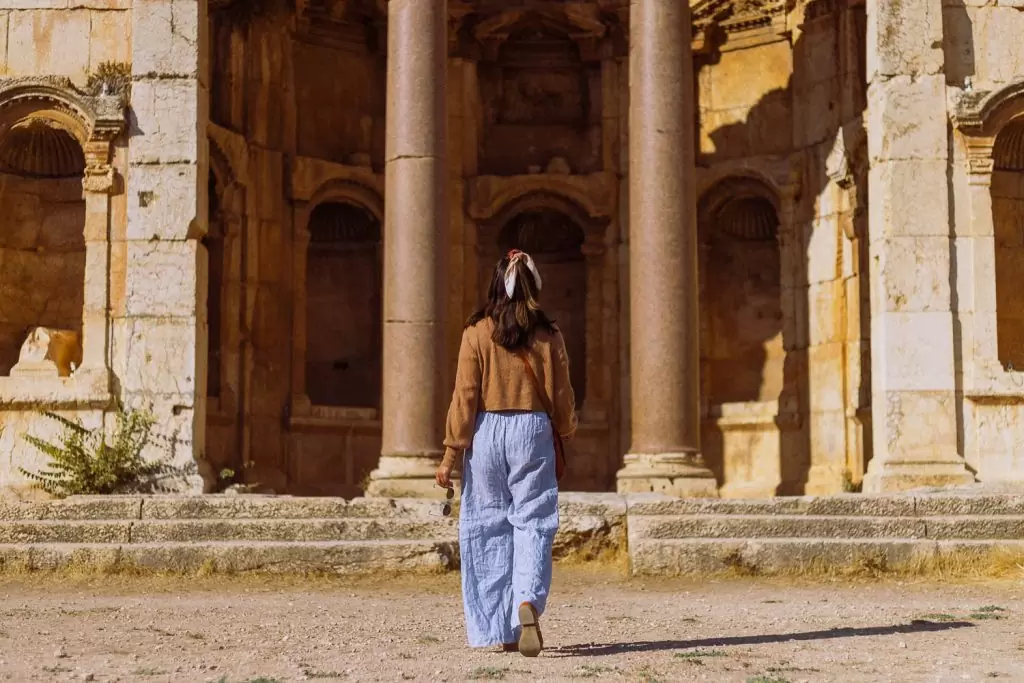
Some articles on Rachel Off Duty contain ads and affiliate links. If you plan on buying or booking something I’ve recommended, please consider using my links, which help power this site at no additional cost to you! To learn more, read our Privacy Policy .
Some articles on Rachel Off Duty may contain affiliate links. Read more in our Privacy Policy.
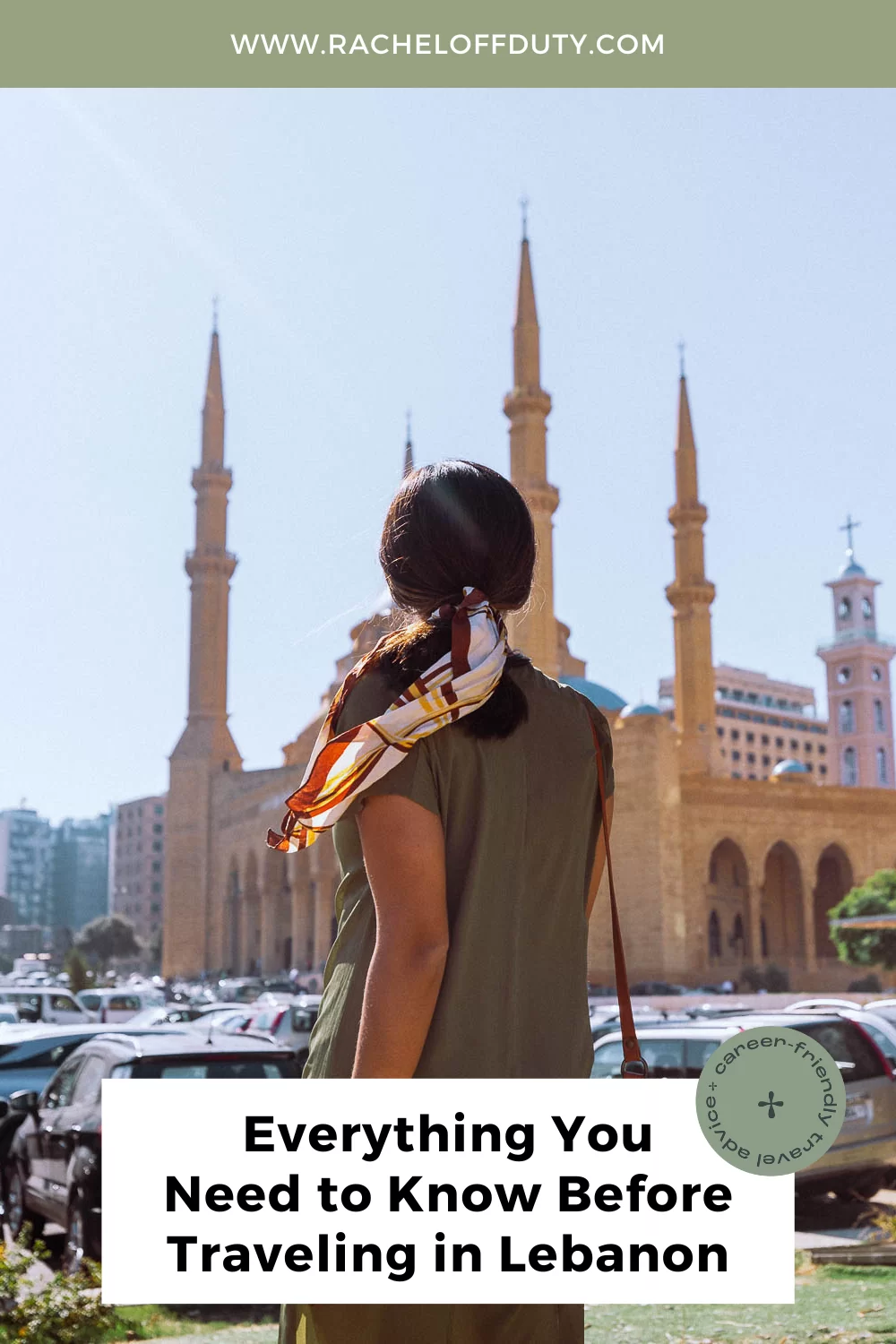
I was hosted by TourLeb while visiting Lebanon. All thoughts and opinions are my own.
Want to experience Lebanon firsthand? Come with me on a GROUP TRIP to Lebanon this Summer (Aug 19 – 27, 2023). Space is limited. Reserve your spot with a deposit by clicking this link .
“Have you been to crazy countries before, or is this your first time?”
My guide, Nada, asked me moments after I slid into her car at the busy Beirut-Rafic Hariri International Airport, weary after the 20-hour journey from Los Angeles to Beirut.
“Yes?” I replied, after making eye contact with my boyfriend Jacob sitting next to me in the back seat. My family is from the Philippines and Jacob’s is from Mexico , after all. Despite it being our first time in the Middle East, we didn’t feel out of place in a country worlds apart from our own, both geographically, culturally, and socio-politically. In fact, my heart was racing for a different reason. I was thrilled to finally set foot in a place I’d dreamt of visiting since I was 13.
“Good,” she chuckled, and with that we whizzed off to Beirut. Welcome to Lebanon!
Despite being one of the smallest countries in the world, Lebanon is fascinatingly, multi-dimensionally rich. Within just 4,036 square miles, Lebanon encompasses six million people, 18 religions, multiple languages and dialects, diverse geography, and more than 6,000 years of history that has carved the country into what it is today.
While traveling in Lebanon is relatively safe, there are lots of things you should know before you visit this country. Familiarizing yourself with Lebanon’s culture, religions, safety, politics, and economic situation will help you orient yourself more quickly.
Once you do, you’ll be able to better appreciate the spirit of Lebanese people, their joy, their food, and their joie de vivre.
So, let’s get into it. Here are 14 things you should know before traveling to Lebanon!
14 Things You Must Know Before Visiting Lebanon
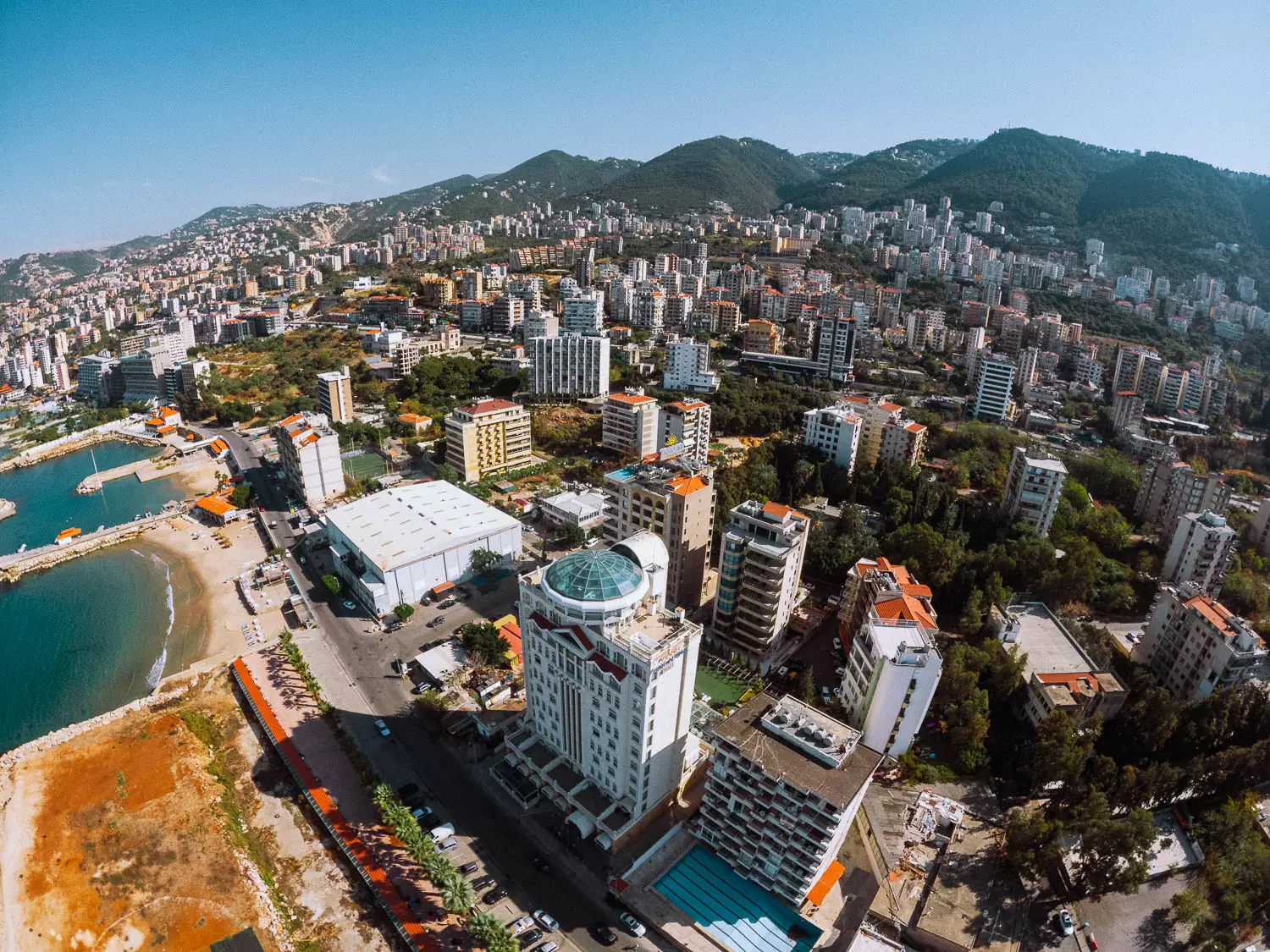
1. Guide vs Solo: Should You Visit Lebanon On Your Own?
First, do you need a guide when traveling to Lebanon? As a frequent solo traveler and avid trip planner, I am used to being fiercely independent when I travel abroad. So, I tend to only seek out local guides for individual activities, like walking tours and cooking classes.
But, after spending 10 days traveling in Lebanon, I can say with certainty that I wouldn’t have been able to do or see even half of the things I got to experience without having a local guide.
Lebanon is a chaotically beautiful country and many things work differently than you might be used to.
Some examples of this include:
- Street signs often only shown in Arabic or French
- Local guesthouses often not searchable on platforms like Booking.com and Airbnb
- Guesthouse staff, on occasion, not speaking English
- Navigating different cultural intricacies, from visiting mosques to traveling to more conservative parts of the country – like Tripoli and Saida
- Money being more difficult to understand in general (more on this later)
- More sensitive areas, like the Beqaa Valley near the Syrian border, having heightened precautions in order to visit safely
And so on.
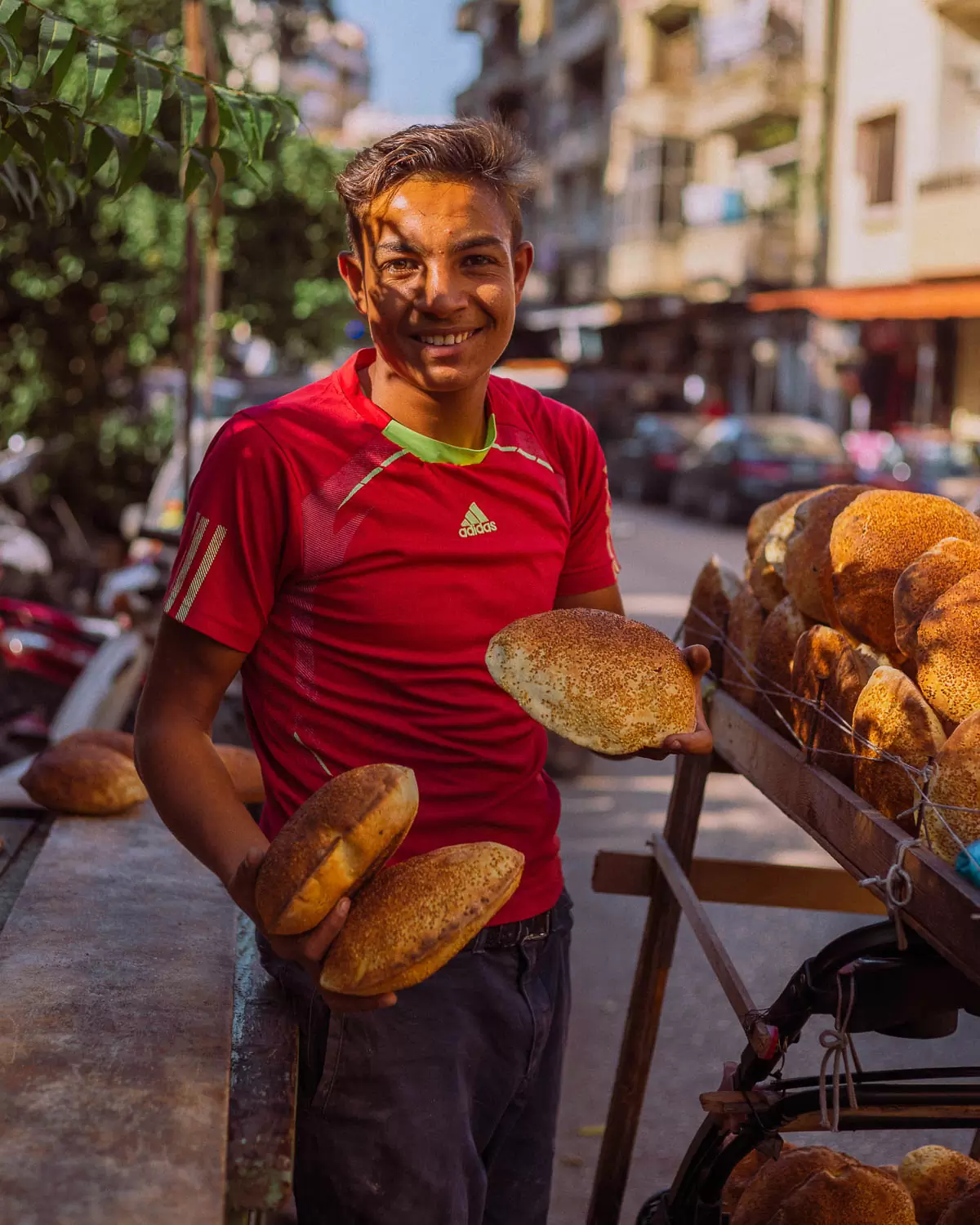
Visiting Lebanon With TourLeb
I visited Lebanon on a private, almost fully-guided itinerary with TourLeb , a women-owned tour company-meets-social enterprise that prioritizes responsible tourism and uplifting local businesses.
The TourLeb staff are unmatched in their knowledge of Lebanon, and I often joked throughout my trip that Nada has the entire country’s six million people on speed dial. In fact, she and her co-founder Joelle started TourLeb after traveling around Lebanon to interview 6,000 people across 1,000 villages to publish a book, Hyphen Islam Christianity , about the people and stories that interweave together to create the oft-hyphenated identities of Lebanon.
So, yes, they’re extremely well connected!
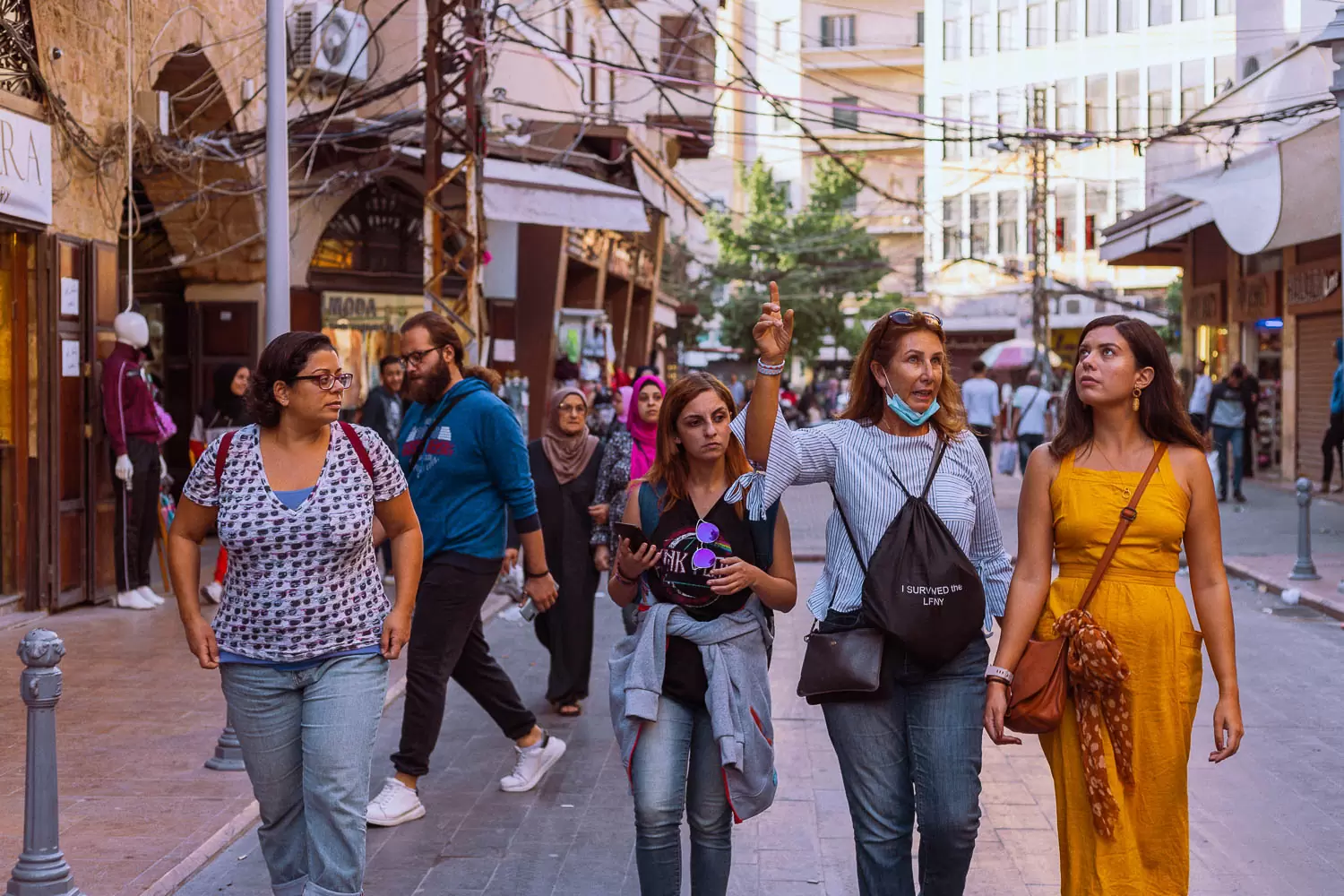
TourLeb offers a couple different options to help travelers visit Lebanon:
- Fully Bespoke Private Tours: Ranging from $900-$1500 per week for a couple (or $250 per day for parties of up to 4). This is what I did when I visited Lebanon!
- Itinerary Planning: $30/day to give you a blueprint for your own self-guided Lebanon holiday.
- Day Trips: Whether you want a private day trip (like, to visit the Beqaa Valley or Tripoli) or are interested in joining one of TourLeb’s weekly day trips that explore off-the-beaten-path Lebanese villages, they often provide excursions that can help you see more of the country even if you’re on a budget.
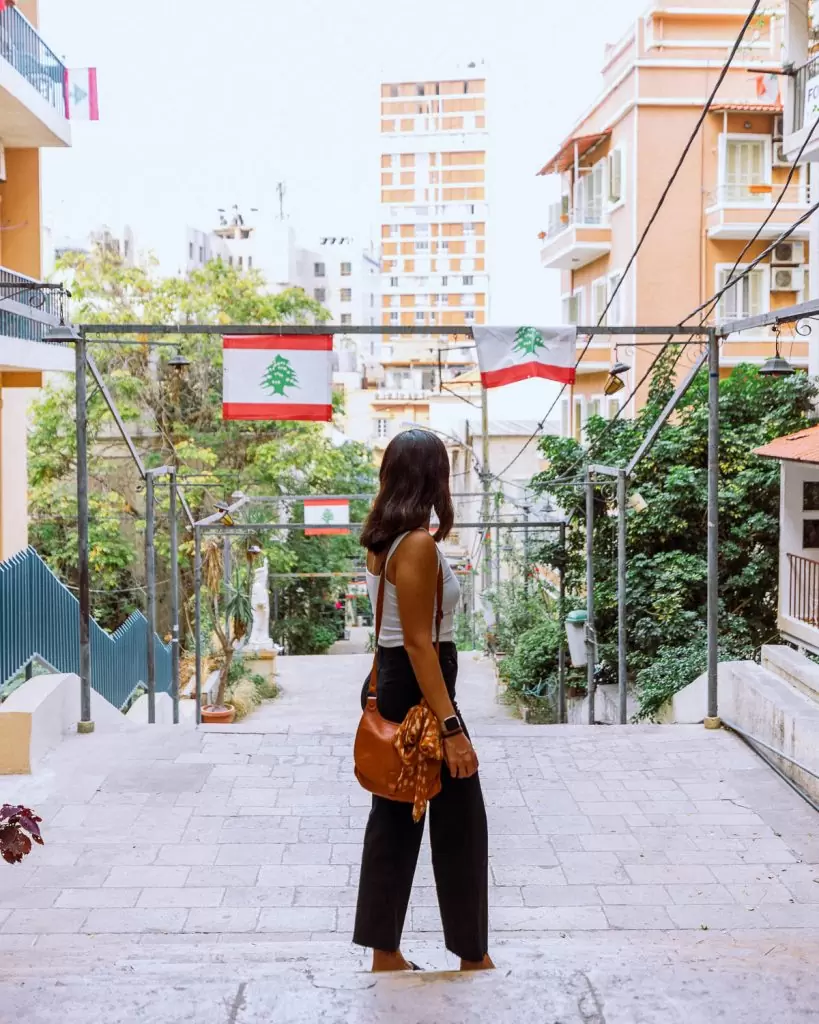
Want to Visit Lebanon with Me?
I’m hosting a group trip to Lebanon this summer! From August 19 – 27, 2023, we’ll walk the footsteps of ancient Romans, cheers to delicious mediterranean wines, dance the night away in Beirut, experience unmatched Lebanese hospitality, uncover palaces and hammams, soak up the sun at the beach, and eat like you’ve never eaten before.
See the full itinerary here or click the button below to reserve your spot! (LIMITED SPOTS AVAILABLE)
While I recommend having a local guide for your Lebanon trip, you might prefer flying solo. If you do, I still recommend hiring a driver – at least for your first visit – because navigating the roads, army checkpoints, and any unexpected situations in this country would be very tricky without one!
RELATED: Top Woman-Owned Travel Companies That Should Be on Your Radar
2. How to Get to Lebanon
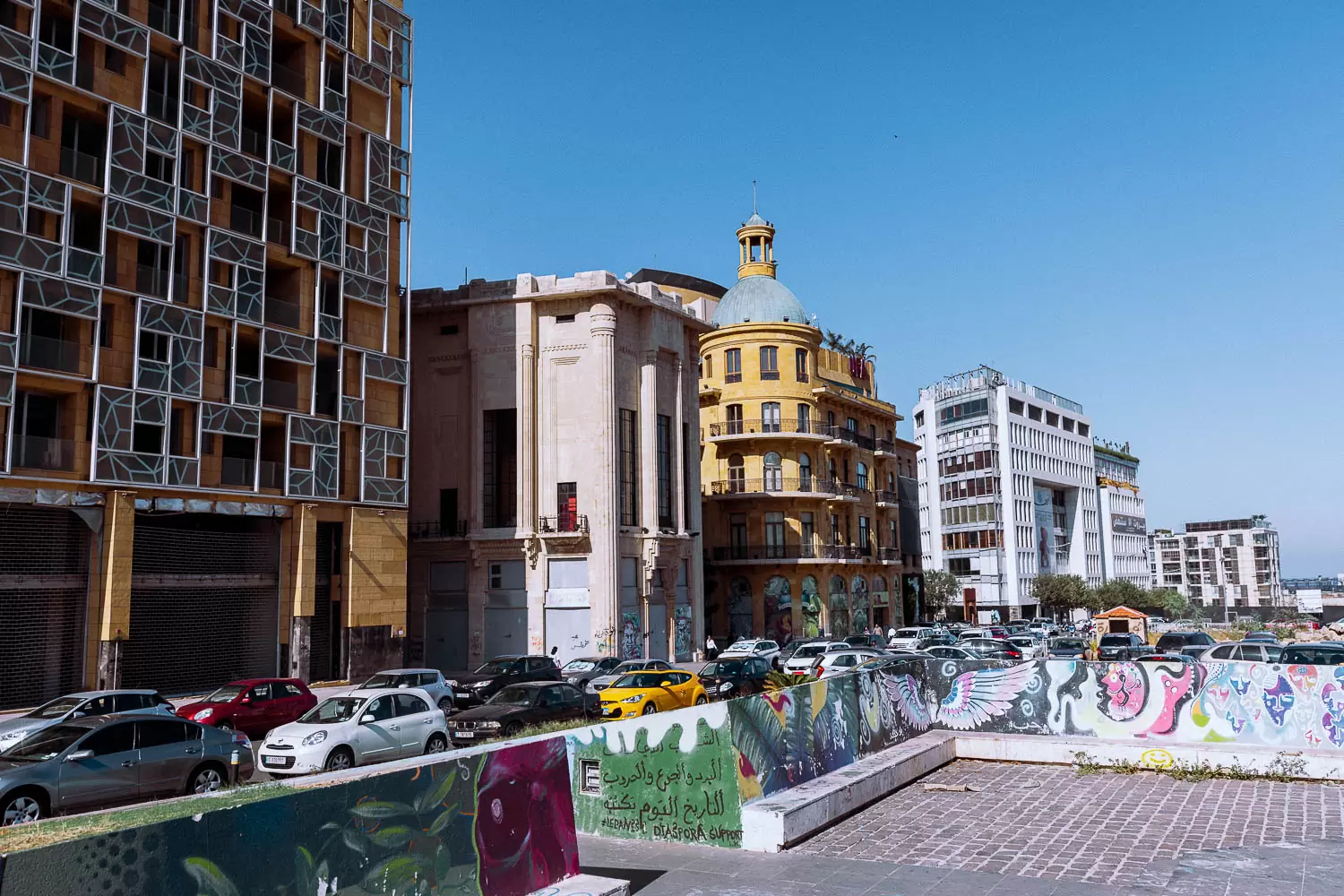
Getting to Lebanon is actually easier than you might think!
While there are currently no direct flights from the USA to Lebanon, you can often find routes that only require one layover. Airlines like Emirates, Turkish Airlines, Qatar Airways, and Air France have regular Beirut routes with layovers in Dubai, Istanbul, Doha, or Paris. Compare airlines and prices on Google Flights or Kayak to see which route is best for you.
When you arrive in Lebanon, you’ll be landing in Beirut. You’ll fill out a brief immigration document and go through customs upon arrival. Unlike the bad rap US customs officials get, customs officials in Lebanon are actually so kind and welcoming to tourists!
The only thing you need to remember? You cannot have any Israeli passport stamps or security stickers in your passport . If you do, you’ll be denied entry to Lebanon.
3. Lebanon’s History
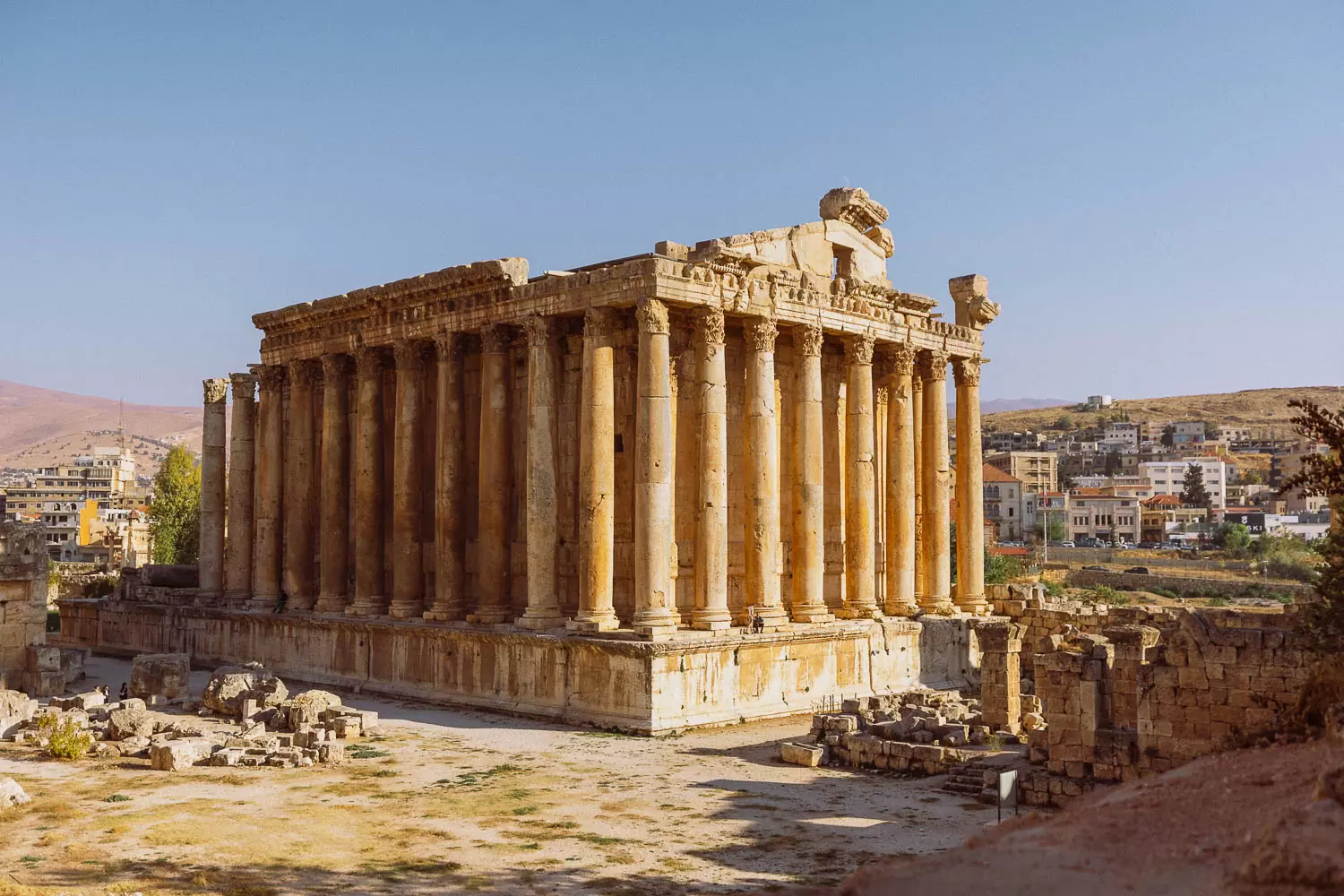
From the ancient Phoeniciean and Assyrian eras, to Roman and Byzantine regimes, to Crusaders, Mamluks, and eventually, Ottoman Rule, this ancient land had been molded and shaped by countless layers of influence and culture.
When 300 years of Ottoman rule dissolved after WWI, Lebanon finally became the country we know today. But, its complex history only gets even more nuanced in the last 100 years. Starting with the French Mandate (which is why you’ll hear French as commonly as you will Arabic) in the early 1900s, to the war in the 70s, to the economic and electricity crises of today, to the Beirut Blast of 2020, Lebanon has been dealt a series of hurdles – emerging from each even more resilient than the last.
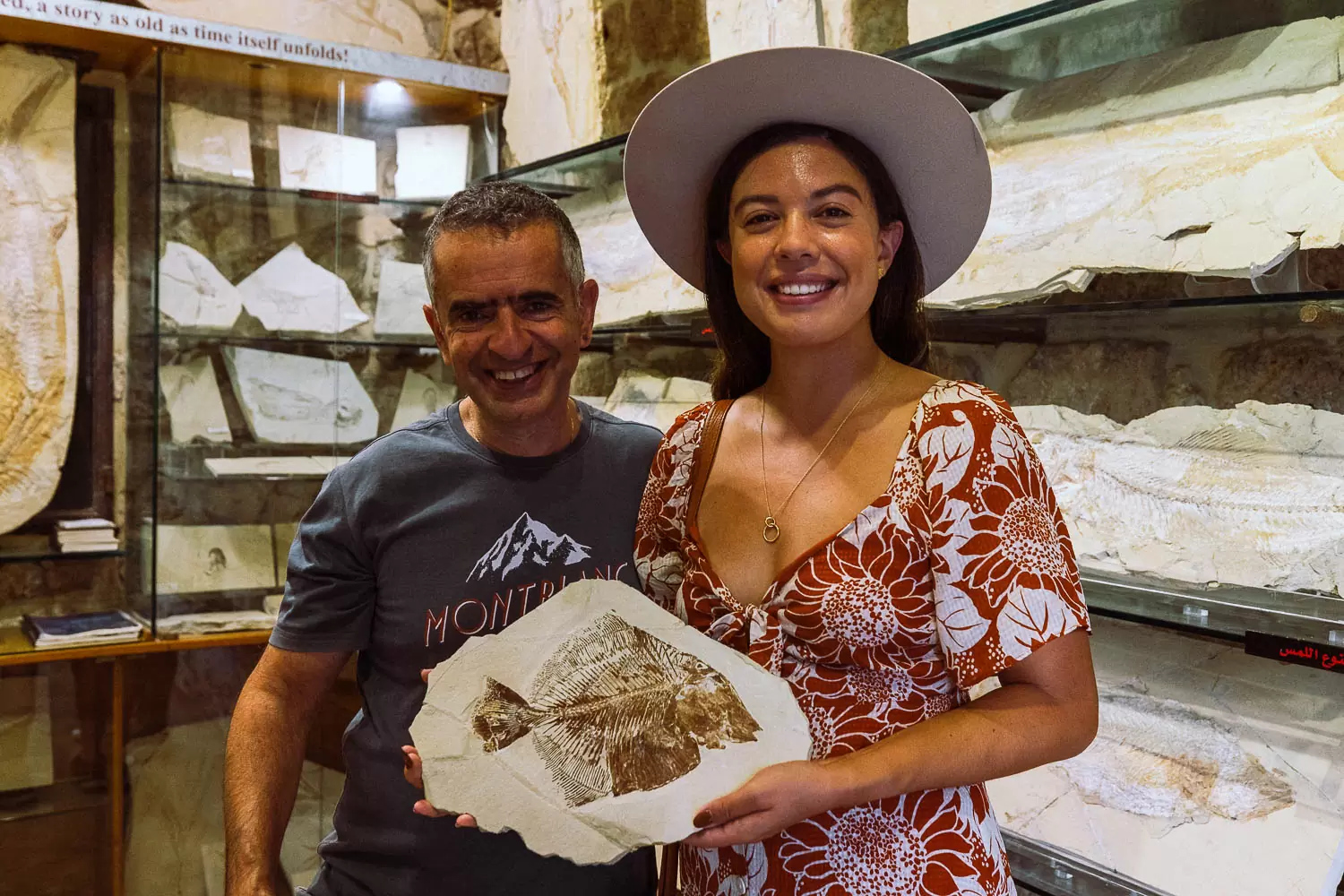
Spend some time exploring this country and you’ll begin to see these layers reveal themselves.
You’ll see it in the ruins that rival those of Athens, the French and Arabic dialects that echo across the souks, the ancient fish fossils of Byblos, the neighboring churches and mosques, and the chic cafes that are serenaded by daily calls to prayer.
4. Safety in Lebanon: Is Lebanon Safe to Visit?
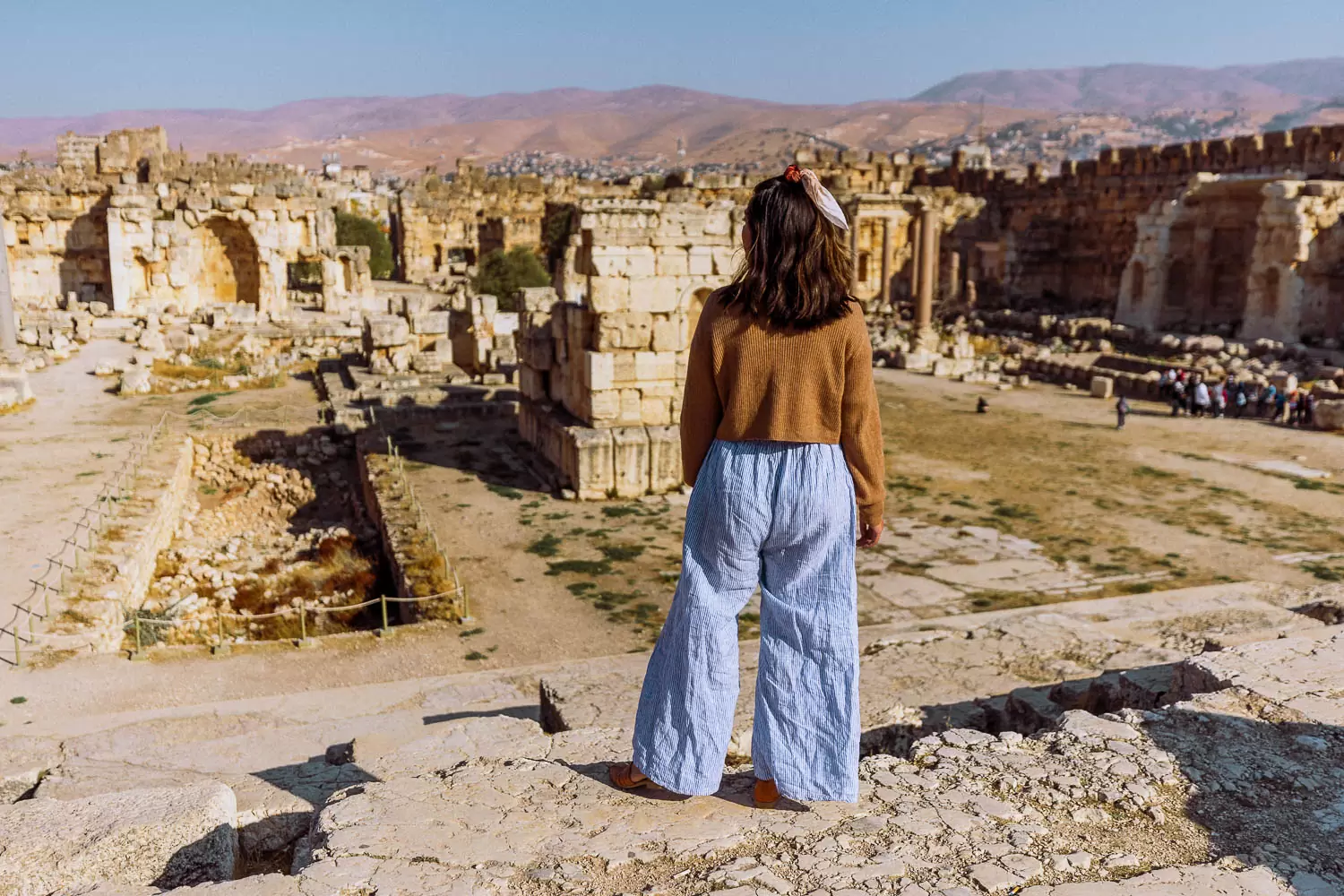
You might be asking yourself – is Lebanon safe? And with everything going on, is it safe to travel to Lebanon now ?
General Lebanon Safety Overview
In general, traveling to Lebanon is quite safe for tourists. Much safer than the news and our government-issued travel advisories would have us believe. I want to stress this, because the country is desperately in need of tourism and many Lebanese people are quite eager to shed the negative perceptions of their country that the media have long associated with Lebanon.
In fact, I was often met with a combination of surprise (that an American would be visiting their village, restaurant, or hotel!) and delight that resulted in some of the most unbelievable hospitality I’ve ever experienced.
Geographic / Political Situations Surrounding Lebanon
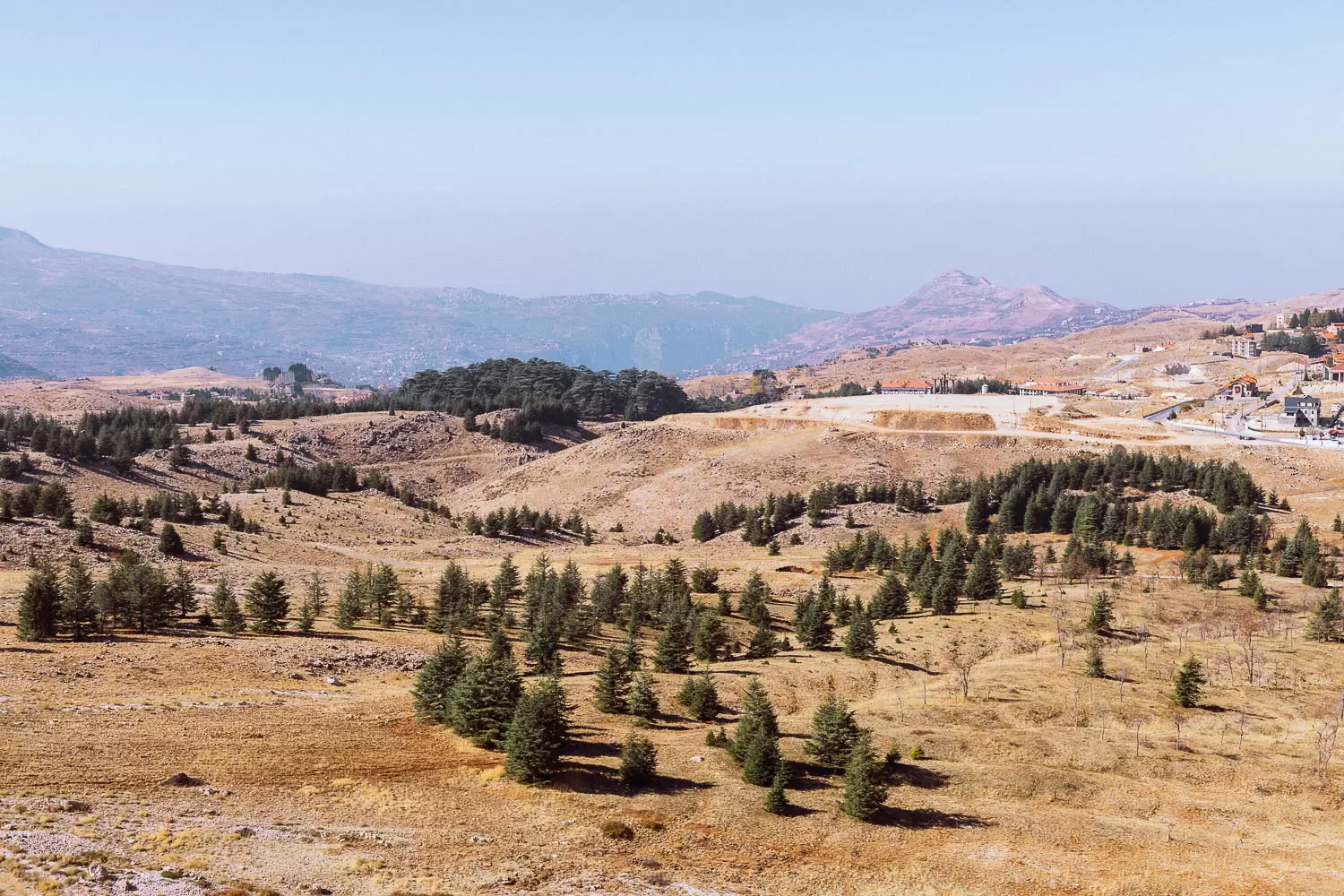
Now, with that said, Lebanon still presents safety issues you should be aware of.
You shouldn’t visit refugee camps or the borders between Lebanon and Syria, particularly without a guide. The southern region of Lebanon is also the main location of Hezbollah’s conflict with Israel as well, and you’ll begin to see a UN presence once you reach the southern seaside town of Tyre for that very reason.
However, I traveled to both Tyre and the Beqaa Valley near the Syrian border, and in both cases I felt safe and had absolutely no issues. I was super happy to have my TourLeb hosts explaining the history, sociopolitical tensions, and safety protocols every step of the way so I knew what to expect at all times.
In fact, one of my favorite meals was in Rayak, just minutes from the Syrian border crossing to Damascus.
On the day we traveled to the Beqaa Valley, there was one moment I was particularly grateful to have a local guide. We were visiting the Baalbek ruins, and saw a wedding near the entrance to the site. Our guide told us to anticipate gun shots, as shooting up into the sky is a common way of ‘celebrating’ the new couple’s union. Within moments, we heard gun shots off in the distance. Had we not been briefed on this cultural practice, we would’ve been so spooked!
Economic Situation in Lebanon
Lebanon is undergoing an ongoing economic, fuel, and electricity crisis. While crime rates are actually fairly low in the country, desperate times can mean some desperate situations, and petty theft isn’t unheard of as local people navigate unprecedented economic hardships. Keep close watch of your belongings but also, use this as an opportunity to patronize local businesses and support the local economy with your tourism dollars.
Safety for Women and Solo Female Travelers in Lebanon
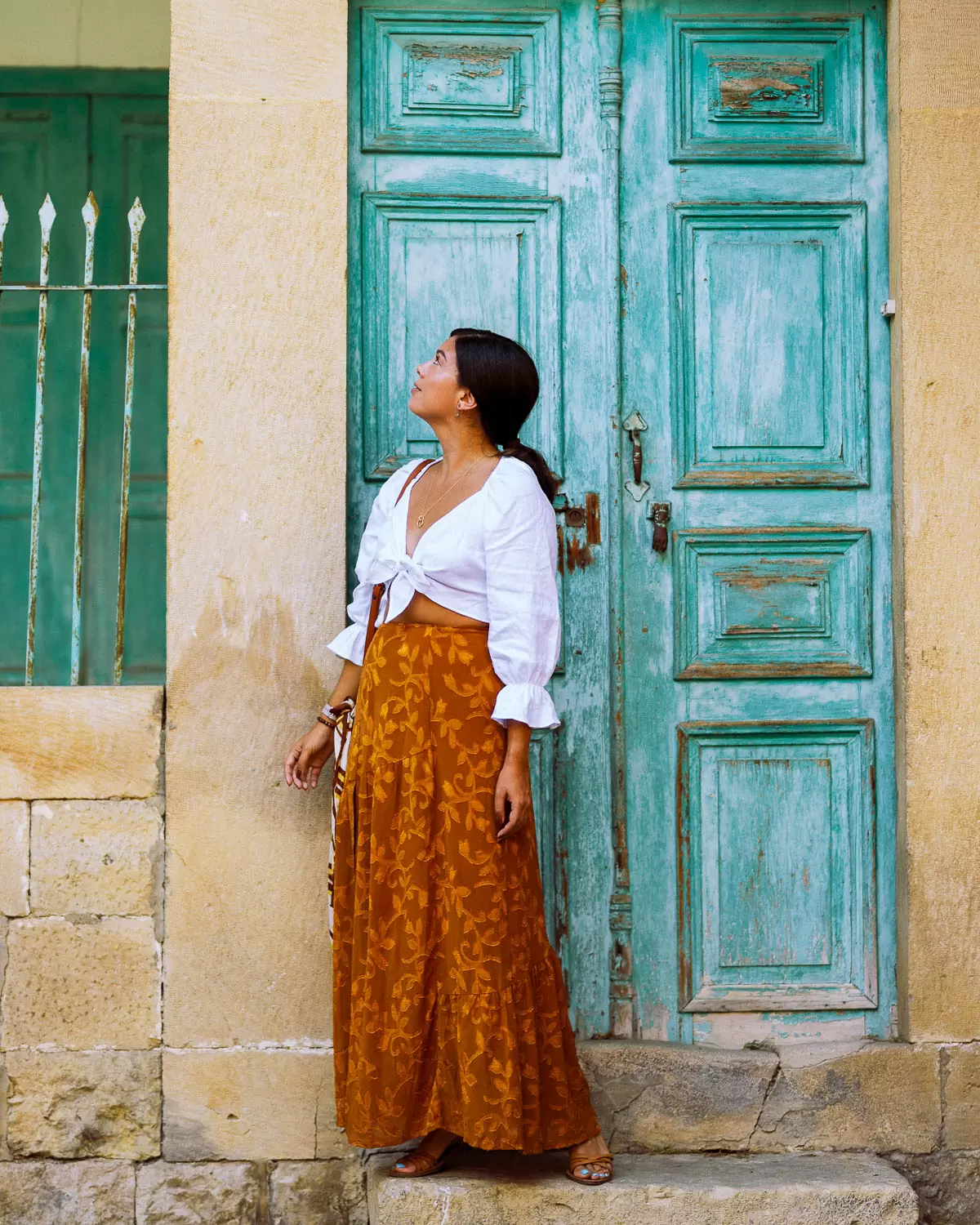
Economic and political landscapes aside, I can’t tell you how many times I was told that Lebanon is one of the safest places for woman to travel solo in the Middle East. Likening this to Lebanon’s Arab and Muslim influence (combined with the fact that English and French are widely spoken, making it easier for solo travelers that don’t speak Arabic to get around), people strive to treat solo female travelers the way they’d treat their own sisters, and want to make extra sure these travelers feel safe and welcome when moving throughout the country. This is especially true in the areas more commonly frequented by travelers, like Beirut, Byblos, Batroun, Jounieh, and Tyre.
Above all else, you can read as much as you want about safety while traveling in Lebanon ahead of time. But, one of the best things you can do is check in with locals throughout your trip. They’ll often have the latest advice on what’s safe, what isn’t, and what precautions you might want to take.
5. Languages Spoken in Lebanon
The national language of Lebanon is Arabic. However, as I just mentioned, French is also super prevalent due to the country’s French Mandate era of the early 1900s. Today, just under half of the Lebanese population is French-speaking, and another 15% are partially French-speaking, as most schools still teach using French as a second language.
Because of the coexistence of French and Arabic, Lebanese people have derived some unique expressions that blur the lines between the two languages. One example of this is saying “merci kteer” instead of “merci beaucoup” to express “thank you very much.” “Merci” is French for “thank you,” while “kteer” is Arabic for “many.”
Beyond that, English is commonly spoken by around 30% of the population, especially those in the tourism and business industries. Younger generations also lean heavily towards English in day to day conversation.
6. Religions in Lebanon
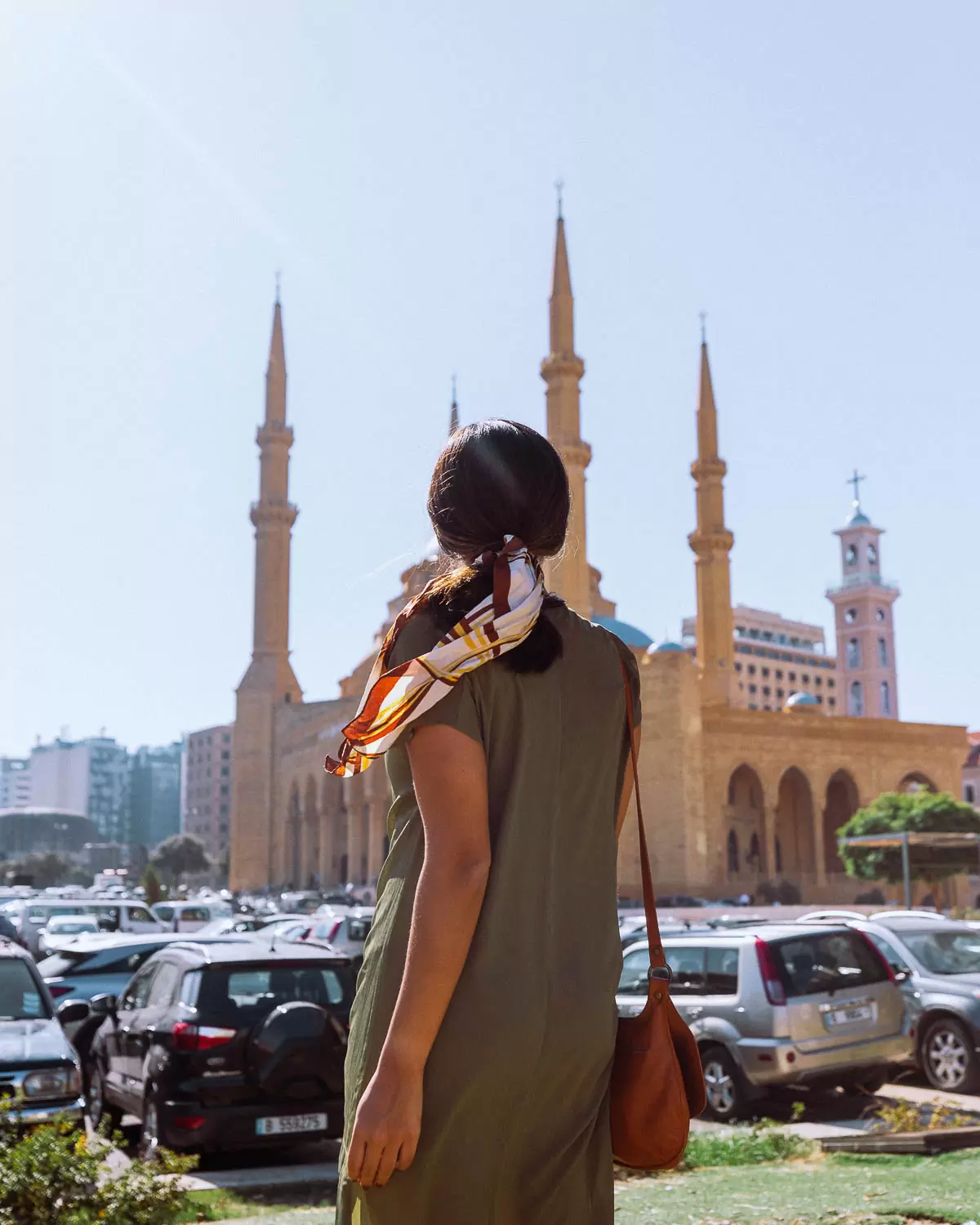
It is often said that without Lebanon’s enduring political and economic issues, the country could be a model for how the rest of the world can coexist. As a small country with more than 18 religious communities, Lebanon is a multi-faith society where mosques and churches coexist and bell towers and calls to prayer are equally common sounds of daily life.
Approximately 60% of the Lebanese population is Muslim (including Shiite, Sunni, Druze, Ismaili, and Alawi), and 40% is Christian (including Catholic communities like Maronites, Armenian Catholics, Greek Catholics; and non-Catholic communities like Greek Orthodox, Armenian Orthodox, Protestants, etc).
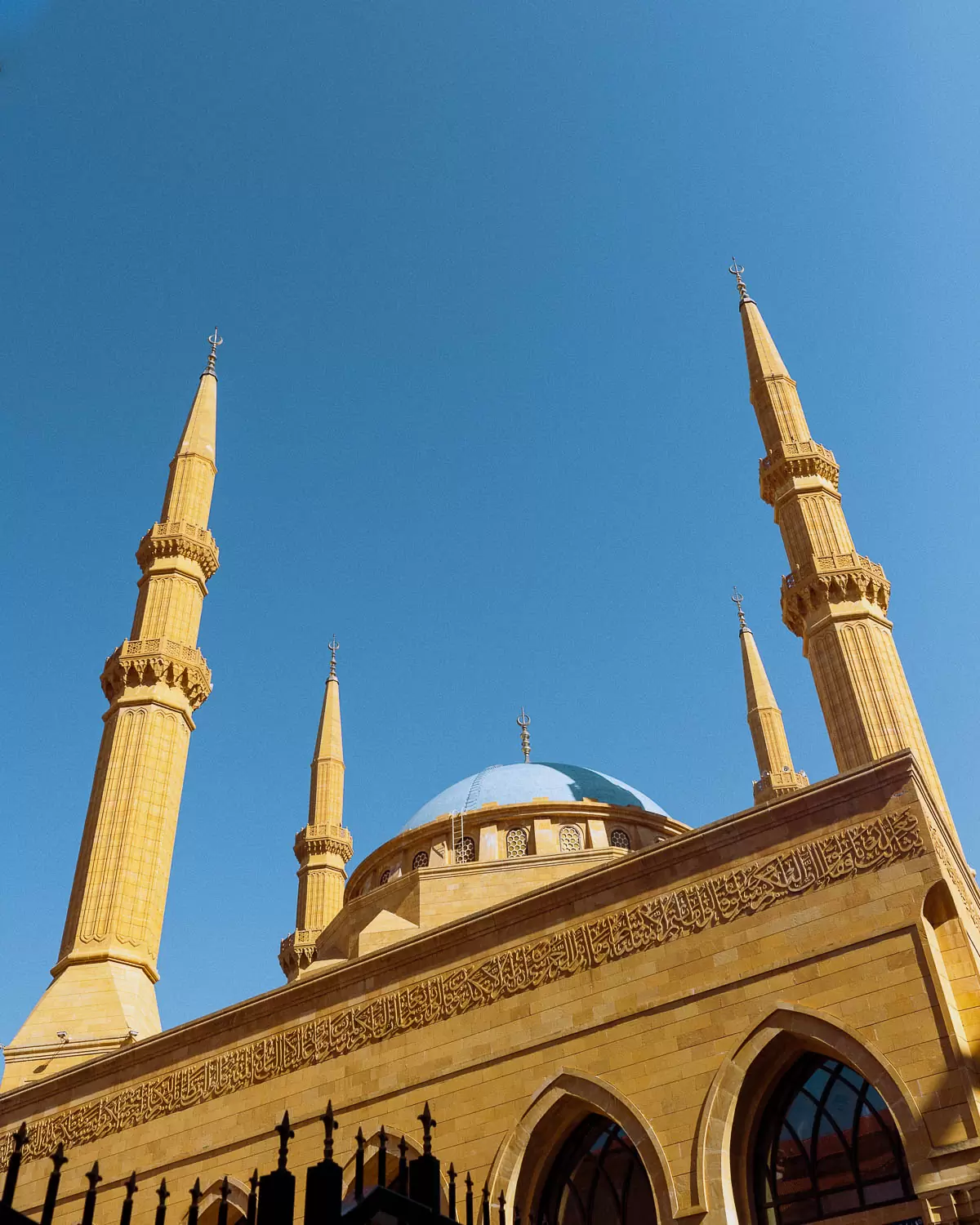
Lebanon is not without its own religious tensions and disagreements. But, as a country that recognizes and respects several religious communities, it is a remarkable thing to witness as a visitor! Here, you can visit mosques and churches in pretty much any city, hike through the Christian monasteries of the Kadisha Valley, and witness the Druze community’s Jumblatt Palace in the Chouf. All of it makes up equal importance in the fabric of what makes Lebanon, Lebanon.
7. Currency and Exchanging Money in Lebanon
Due to decades of debt, Lebanon is experiencing a financial crisis that can be felt in all aspects of daily life. It’s so bad that Lebanese people are largely unable to withdraw money from their bank accounts, and many salaries that were once livable are now worth mere fractions of what they once were.
Lebanon uses the Lebanese Pound or Lira, and you’ll see online that $1 USD = approximately 1,513 Lebanese Pounds. But (and it’s a BIG but!), Lebanon widely operates on a black market exchange . On the black market, $1 USD = anywhere from 24,000 – 35,000 Lebanese Pounds at the time of writing this article.
Because of this, you’ll want to bring your own local currency to Lebanon and exchange currency there, versus trying to find Lebanese currency abroad (most likely, you will not be able to anyway). Once in Lebanon, exchange your money at a reliable place using the ‘black market’ exchange rate, which fluctuates hourly. This way, you’ll get a fair exchange against the actual market value of everyday life in Lebanon.
I found that navigating the money exchange in Lebanon was one of the most confusing parts of visiting the country. Fortunately, my guide helped with this throughout my 10 days in Lebanon.
8. Lebanon Geography and Places to Visit
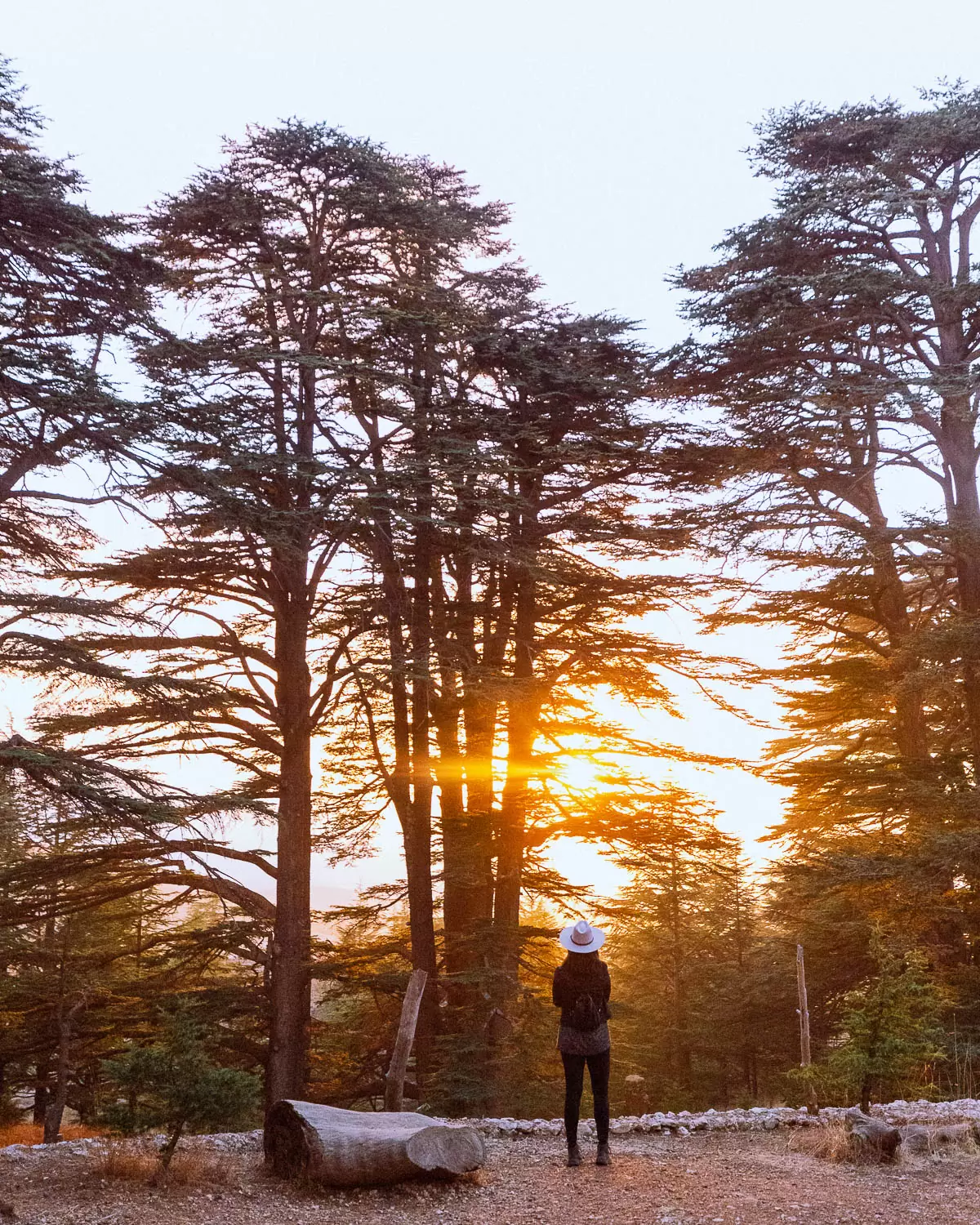
When we think of the Mediterranean, most people may first think of Greece, Italy, or Croatia. But Lebanon is a Mediterranean gem in its own right, with beautiful coastlines and many stretches of crystal clear, aquamarine waters.
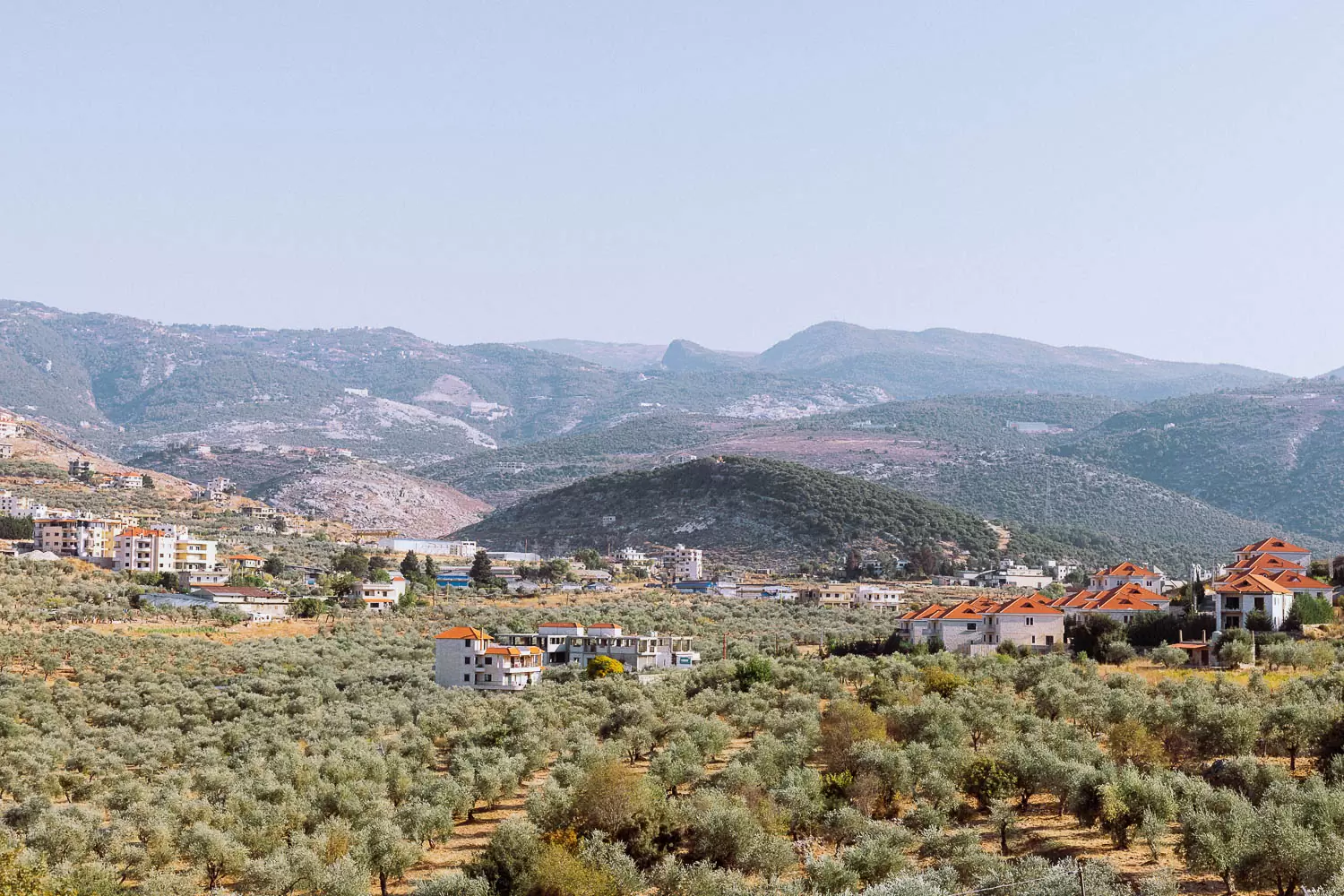
Bordering Lebanon are Israel to the south, and Syria to the north and east. No doubt, this is a region all too familiar with conflict and tension. However, in my experience – going with a guide allowed us to travel all over Lebanon while remaining both informed and safe. There are military checkpoints throughout the country monitoring the roads. At one point after visiting Baalbek in the far east, we found ourselves wine tasting on a vineyard just a stone’s throw from the Syrian border. Again, with our guides monitoring the daily conditions of the region, we felt incredibly safe and welcomed by the people in the Beqaa Valley!
Though Lebanon is a tiny country, it will surprise you – from Mediterranean coastlines, to mountain regions fit for skiing in the winter, to verdant green valleys and relaxing wine regions, Lebanon’s geographic diversity is truly unbelievable.
Some of the Top Places to Visit in Lebanon Include:
- Beirut : The Paris of the Middle East and the capital city of Lebanon, Beirut should be on any first-timer’s list when traveling to Lebanon. Come here historical city center and neighborhoods, stay for the incredible food and nightlife!
- Byblos : Also known as Jbeil or Jebeil, the seaside village of Byblos is a remarkable symbol of civilization. Byblos has been continuously inhabited throughout the past 8,000 years, and today, the historic center is a UNESCO World Heritage Site.
- Jounieh : A once sleepy fishing village that now hosts a long list of attractions, Jounieh is just 30 minutes outside of Beirut and well worth a visit. Take the Teleferique cable car, visit the Casino du Liban, explore the famous Jeita Grotto, or go paragliding over the Mediterranean coast. The views are unbelievable!
- Tripoli : You shouldn’t miss the dizzying, magnificent city of Tripoli in northern Lebanon. Here, you’ll find the largest crusader fortress in Lebanon, a labyrinthine network of souks, and the chilled out fisherman’s village of El Mina which is not to be missed.
- Baalbek : The ruins of Baalbek are so impressive, they are absolutely worth the trek. Here, you can find some of the finest remaining structures of the Roman Empire, like the Temple of Bacchus.
- Saida and Tyre : You can visit the southern seaside towns of Saida and Tyre on a single day trip. Visit the Crusader Sea Castle and the old souks in Saida, and the Hippodrome and Al Mina ruins in Tyre, before ending the day on the Tyre Port and Christian Quarter.
- Chouf : Chouf (also referred to as ‘The Chouf’) is a beautiful region filled with palaces, mountainside villages, a cedar tree reserve, and a large population of Lebanese Druze. Don’t miss the Jumblatt or the Beiteddine Palaces.
- Kadisha Valley : The famous Holy Valley is located high up in the Mount Lebanon chain, and has been home to countless monastic communities for centuries. The drive through the Kadisha Valley is one of the most stunning in all of Lebanon, featuring rugged landscapes dotted with churches and monasteries throughout. You can visit them by car or even hike between the monasteries on foot.
Read my list of all the places you should visit when traveling to Lebanon next!
9. Culture and Etiquette in Lebanon
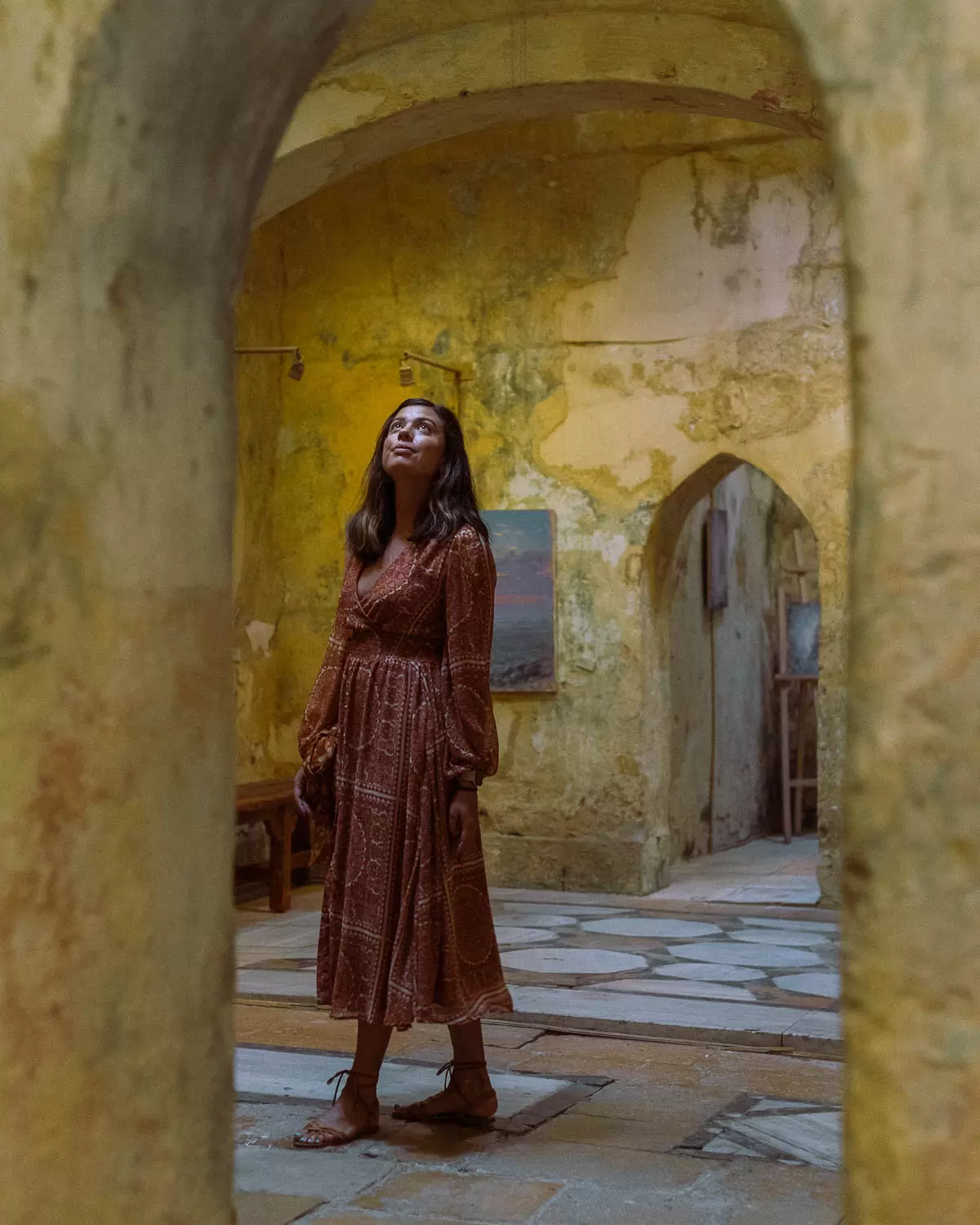
Lebanon is home to a myriad of cultures and customs, and while there is no sole “fixed” way of doing things, I found the country to be incredibly welcoming and inviting for foreign travelers.
I observed Lebanese teens in Beirut dressed in shorts and sneakers hanging out with friends at local bars, streets filled with locals smoking shisha and playing cards until late in the evenings, veiled and unveiled women at restaurants sharing tea and gossip, you name it.
With all that said, there are some things you should keep in mind when visiting Lebanon.
General Tips to Follow When Traveling to Lebanon:
- You can dine with both hands – dining with the right hand only doesn’t really apply in Lebanon
- PDA isn’t extremely taboo, but outside of holding hands, tourists should probably do it sparingly (no need to attract unnecessary attention or judgment, especially from more conservative onlookers). And, unfortunately I’d say LGBTQ+ couples should exercise more caution here and adhere to a zero PDA policy when out and about.
- Punctuality isn’t really a thing in Lebanon – hours are more fluid and you shouldn’t judge your tours or reservations if they don’t start immediately on time.
- Lebanese hospitality is unparalleled. I can’t stress this enough! I’ve never had a better breakfast, better hosts, or better conversations than I did while on this trip. Be a gracious guest and try everything when offered homemade food, be prepared to stay long periods of time and engage in conversation, and bring gifts when appropriate. Hosting is seen as an honor and a privilege, and it isn’t uncommon for even those with the smallest homes to invite you in for a coffee as their guest.
- To most Lebanese, Israel is a huge point of contention. Regardless of your understanding of the situation, it’ll serve you well to simply respect the opinions of locals. And, if you’ve ever traveled to Israel in the past, make sure there is no evidence of that trip in your passport when entering the country.
- While daily life can be quite relaxed in Lebanon, you should never forget that the country is in the crossroads of conflict. Always remain alert and vigilant with your belongings and with the locations you travel to when traveling to Lebanon, and rely on the advice of locals at all times.
10. Weather in Lebanon
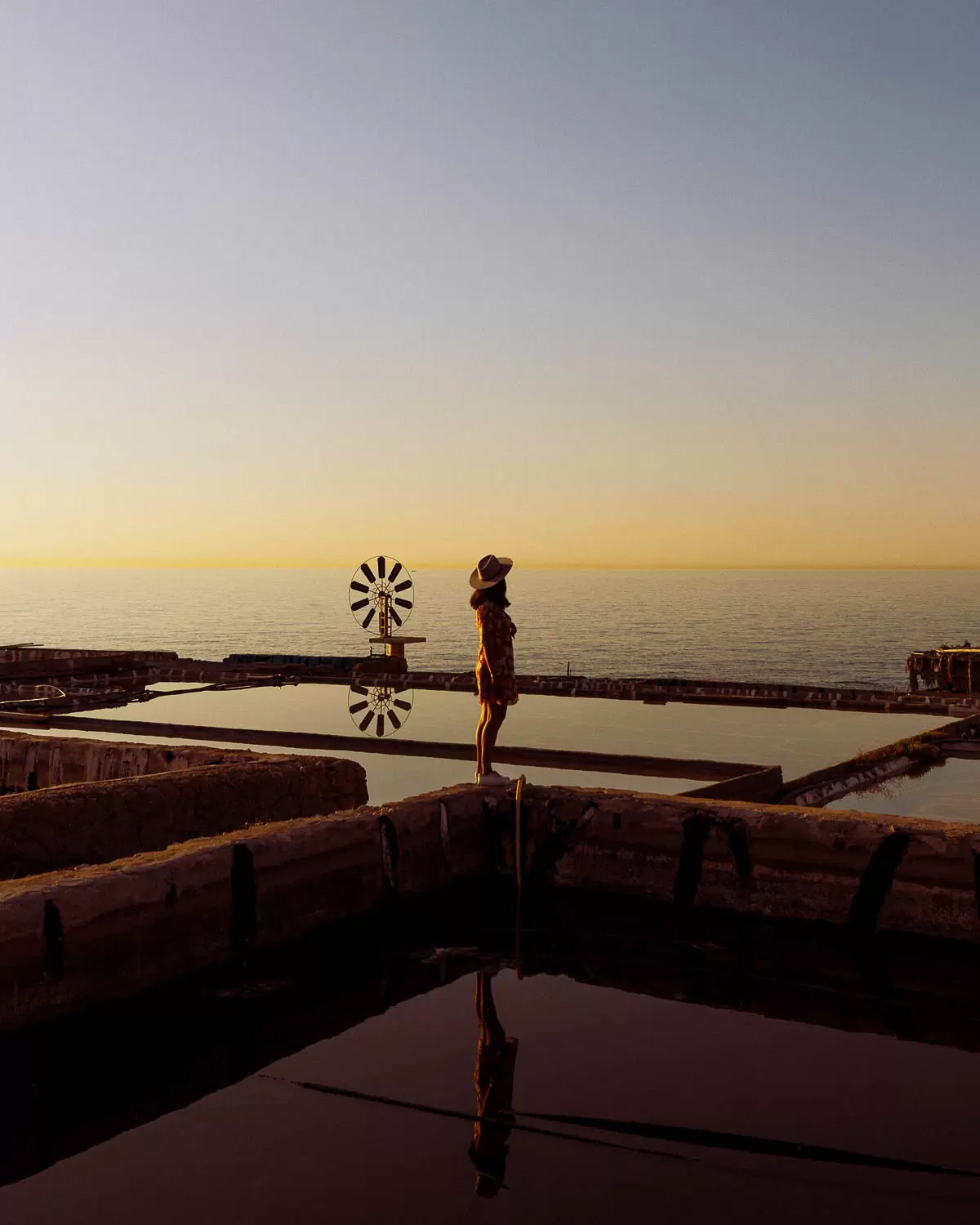
Lebanon generally has a mild Mediterranean climate, with hot summers and rainy winters. The coastline will be hotter and more humid than inland and mountainous regions, which can even get enough snowfall in the colder months for skiing and snowboarding.
If you’re wondering when is the best time to visit Lebanon based on the weather, March – May, and September – October are ideal. However, we came in early November and it was still so warm. We even took a dip in the Mediterranean! The only caveat is that in the winter months, the sun will set around 4:30 pm and your daylight hours will be shorter.
Depending on where you plan to go, I recommend packing a variety of clothing fit for both the coastal areas and mountain regions, with some extra layers for any chilly evenings.
11. What to Pack for and Wear in Lebanon
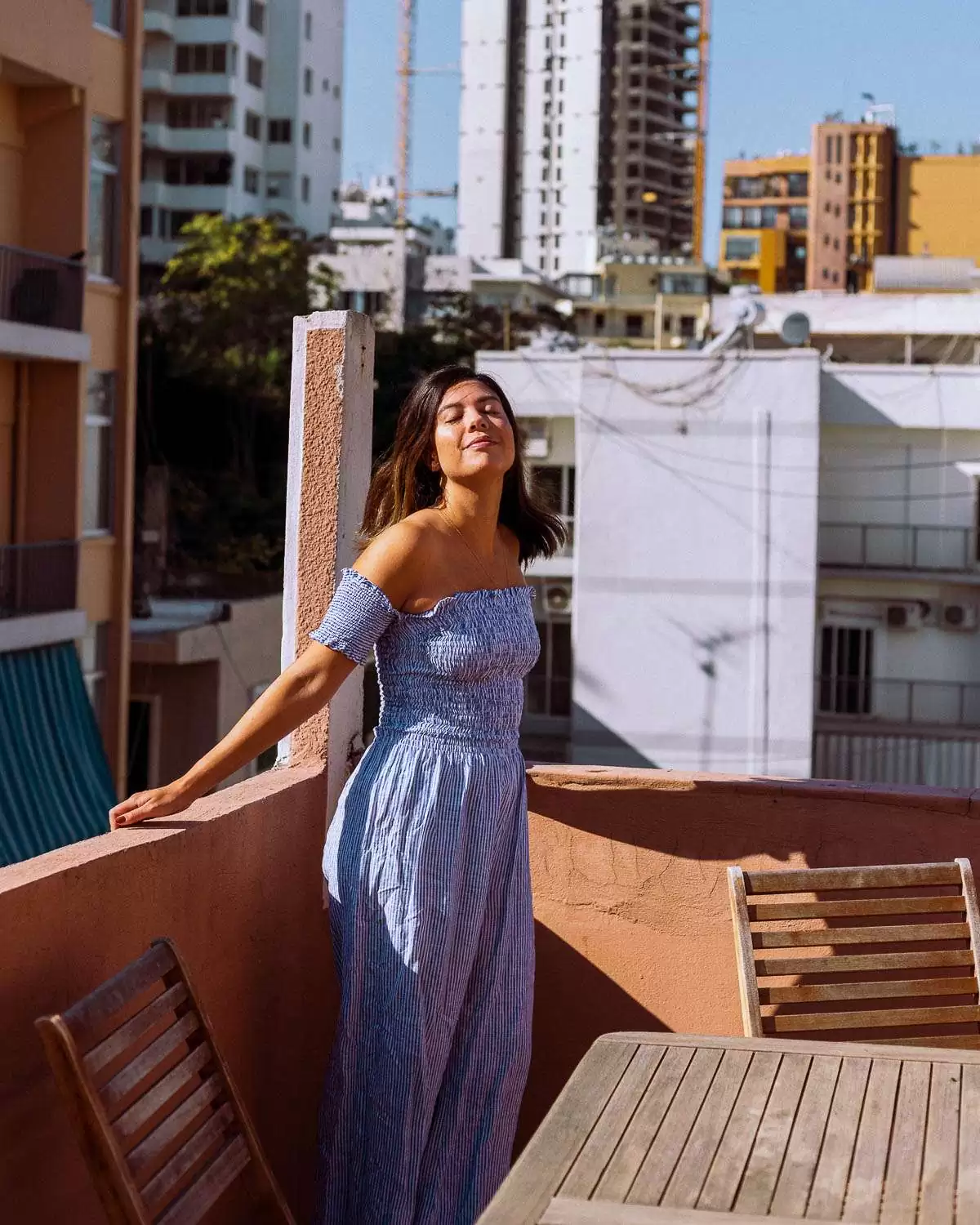
Lebanon is a pretty liberal country. So, what you pack will be dictated by your activities and the places you want to visit, rather than based on any particular custom or requirement.
You’ll generally find very casual as well as stylishly dressed people in Beirut, and naturally, a bit more traditionally and modestly dressed people in less densely populated areas. No matter where you go, it won’t be uncommon to see women in modern sundresses and jeans alongside women in veils or burkas in the same setting.
My Packing Tips for Lebanon:
- Avoid dresses and skirts / shorts that are extra short, as well as plunging necklines or backless tops (to me, this was honestly less about feeling inappropriate, and more about making sure I was not making any local men or women feel uncomfortable)
- Pack swimsuits with a bit more coverage (bikinis are totally fine, but I personally didn’t bring any that were more skimpy)
- Stick to breathable fabrics – Lebanon can be hot especially along the coasts!
- Bring layers if you plan to visit Lebanon’s mountain regions, particularly in the winter months
- Bring a variety of scarves, as you’ll need to cover your hair and shoulders when visiting mosques out of respect. I tied one to my purse every day so I could throw it on when needed.
- When visiting mosques, as well as more conservative cities like Tripoli and Saida, it’s best to wear pants or a skirt / dress that falls below the knees
- Take your shoes off when entering a mosque. If you don’t like the idea of being barefoot, wear socks. The floors will most likely be carpeted!
- Men should avoid wearing shorts or tank tops in mosques, as your shoulders and legs need to be covered, too
12. Transportation and Getting Around when Traveling in Lebanon
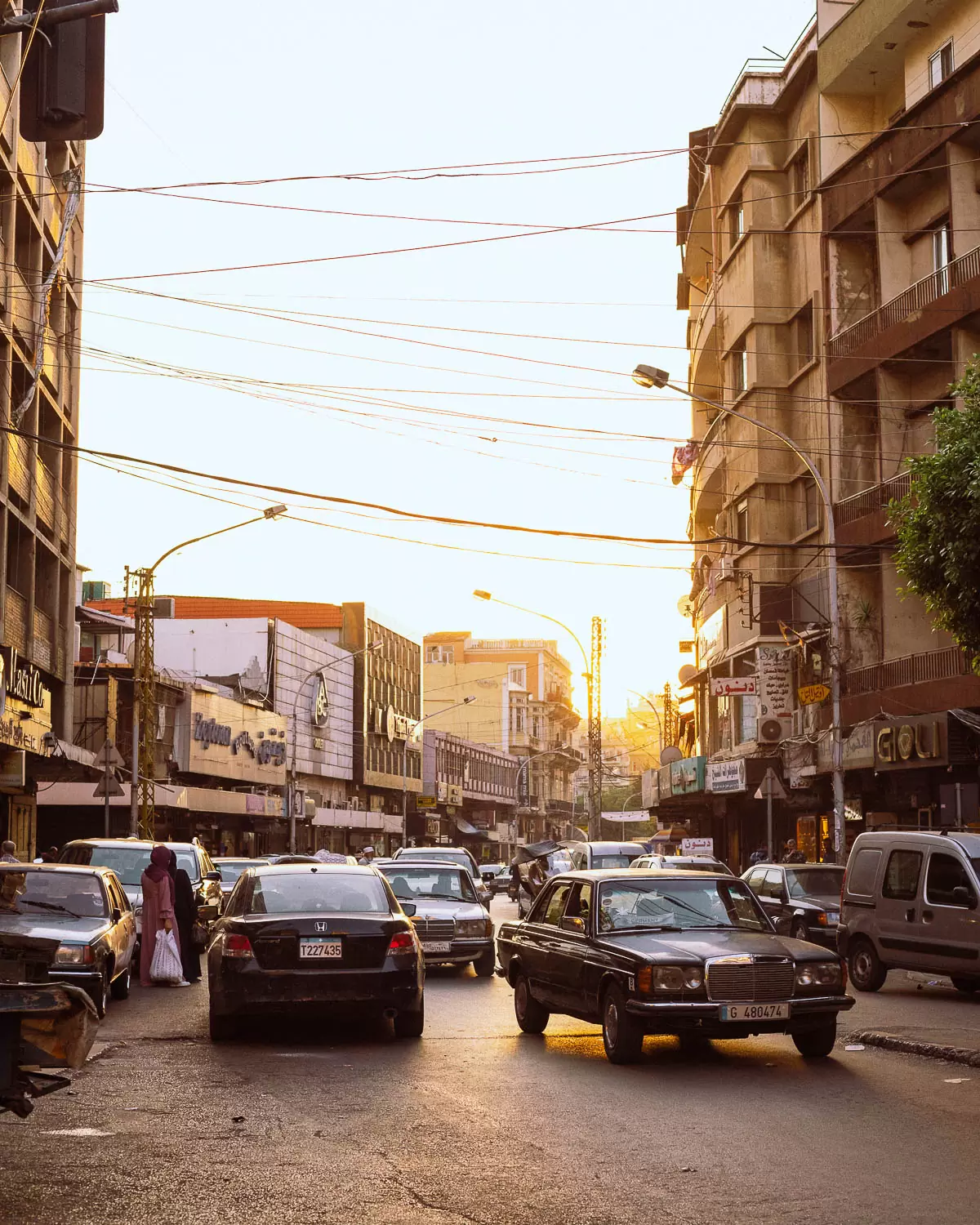
You could theoretically rent a car and drive while traveling in Lebanon, but I wouldn’t recommend it. Especially if it’s your first time traveling to the country. The roads are confusing, everyone drives with their own rules, and there are military checkpoints throughout the country that – while generally safe – can seem intimidating for foreigners.
Careem, a transportation app similar to Uber and Lyft, is supposed to be available in Beirut and Jounieh. But, I didn’t get a chance to confirm this for myself while I was there. If you use this app (or any others) when visiting Lebanon, let me know in the comments!
All that said, if you can swing it, I highly recommend booking tours with transportation included, and / or hiring a private guide like we did with TourLeb. If we had driven ourselves, we probably would’ve done less than half of the things we had on our itinerary. The logistics would’ve been too much to navigate, and there are certain parts of the country – like Tripoli and Baalbek – where it really is best to visit with a local that knows their way around.
13. Food, Alcohol, and Tipping in Lebanon
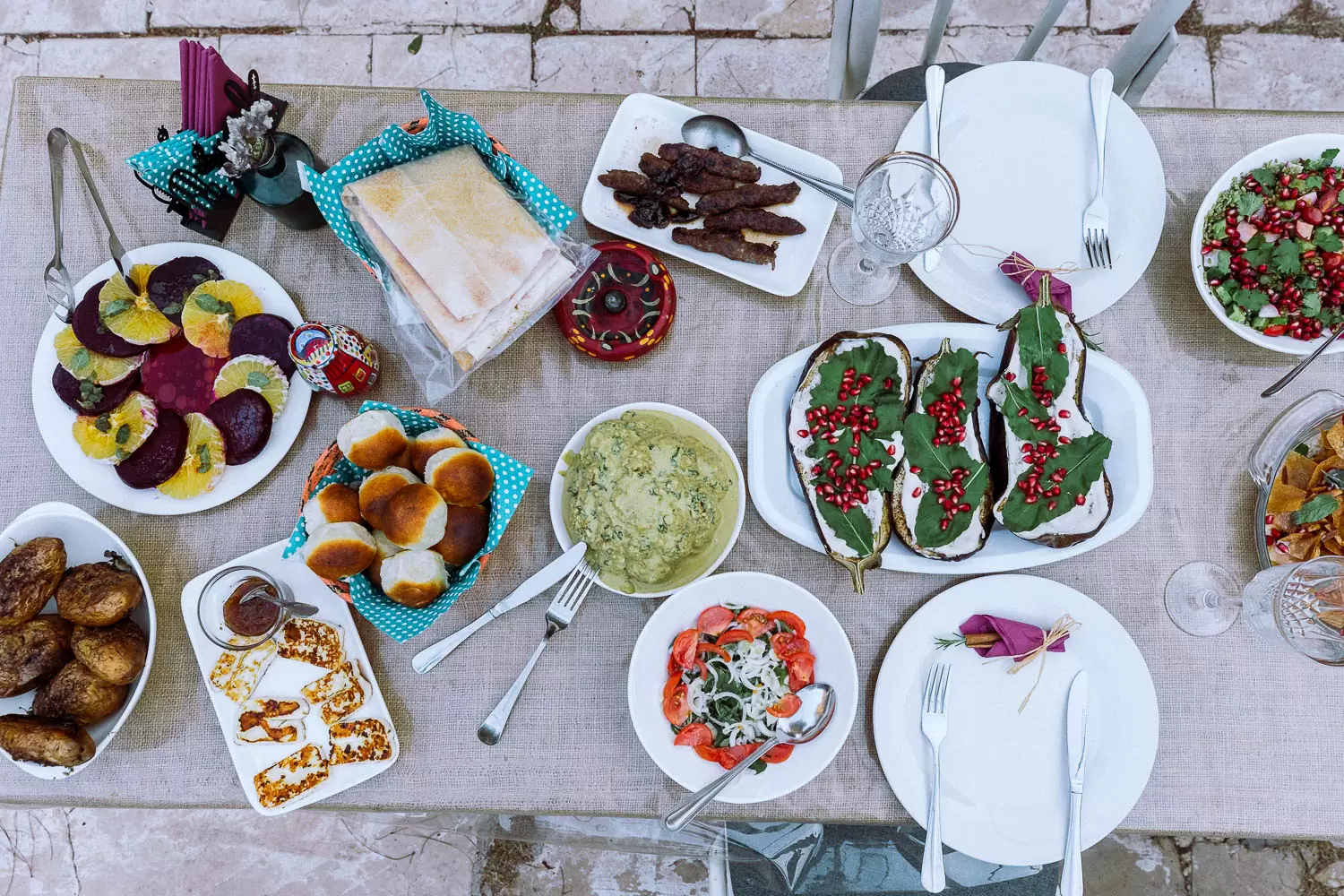
Lebanese people are serious about their food – and it is my absolute favorite cuisine in the world for this very reason.
Their Mediterranean climate combined with fresh Middle Eastern herbs and centuries-old traditions make even the simplest dining experiences a phenomenal occasion. You’ll want to try all of it, and you’ll want to do a good amount of walking during your visit to balance it all out 🙂
Some of my absolute favorite bites of food in Lebanon included:
- A simple, yet crisply fried falafel pita (which cost less than $1 USD) in Saida
- Handmade zaatar and cheese manakish (well, anything covered in zaatar, to be honest)
- Savory sesame-studded ka’ak filled with cheese and, you guessed it, zaatar
- Sweet, indulgent knafeh covered in orange blossom syrup and stuffed into a pita, which coincidentally made for a fantastic hangover breakfast
- Mezze for every meal of the day
- Lahme baajin made on the side of the road in the Chouf
- Freshly prepared kibbeh at a cozy restaurant tucked into the mountains of Ehden
I could keep on going – the food is just that good.
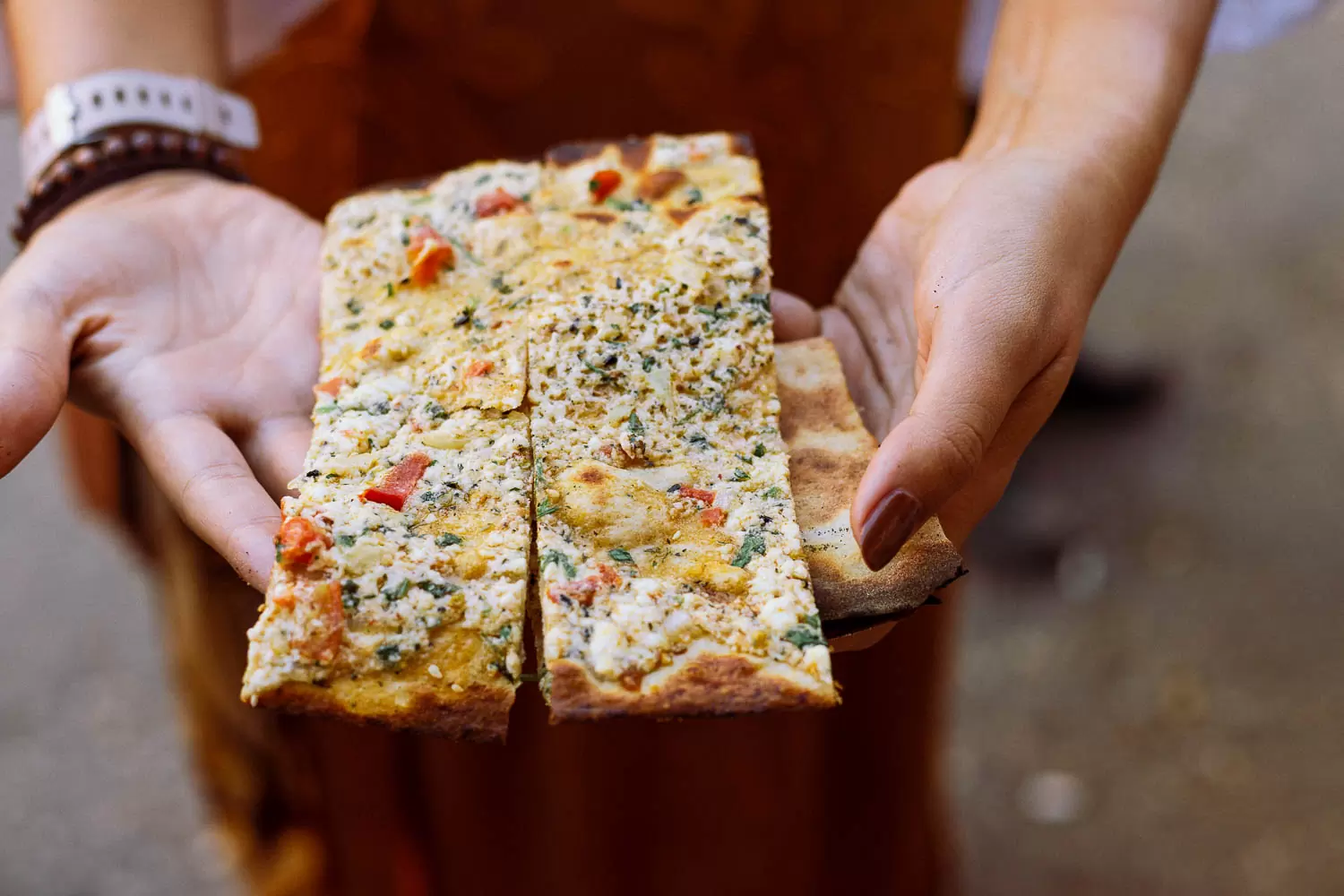
Alcohol Etiquette in Lebanon: Do People in Lebanon Drink?
Lebanon is one of the most liberal countries in the Middle East, and you can easily – and abundantly – enjoy alcohol throughout most of the country. In fact, Lebanon proudly produces tons of local beer, wine, and even spirits.
The only restrictions on this will be in the more conservative parts of the country, like Tripoli and Saida, where alcohol will be sparse or nonexistent out of respect for larger concentrations of Muslim populations.
Outside of this, you will be able to easily find and enjoy a drink in Lebanon freely and without worry.
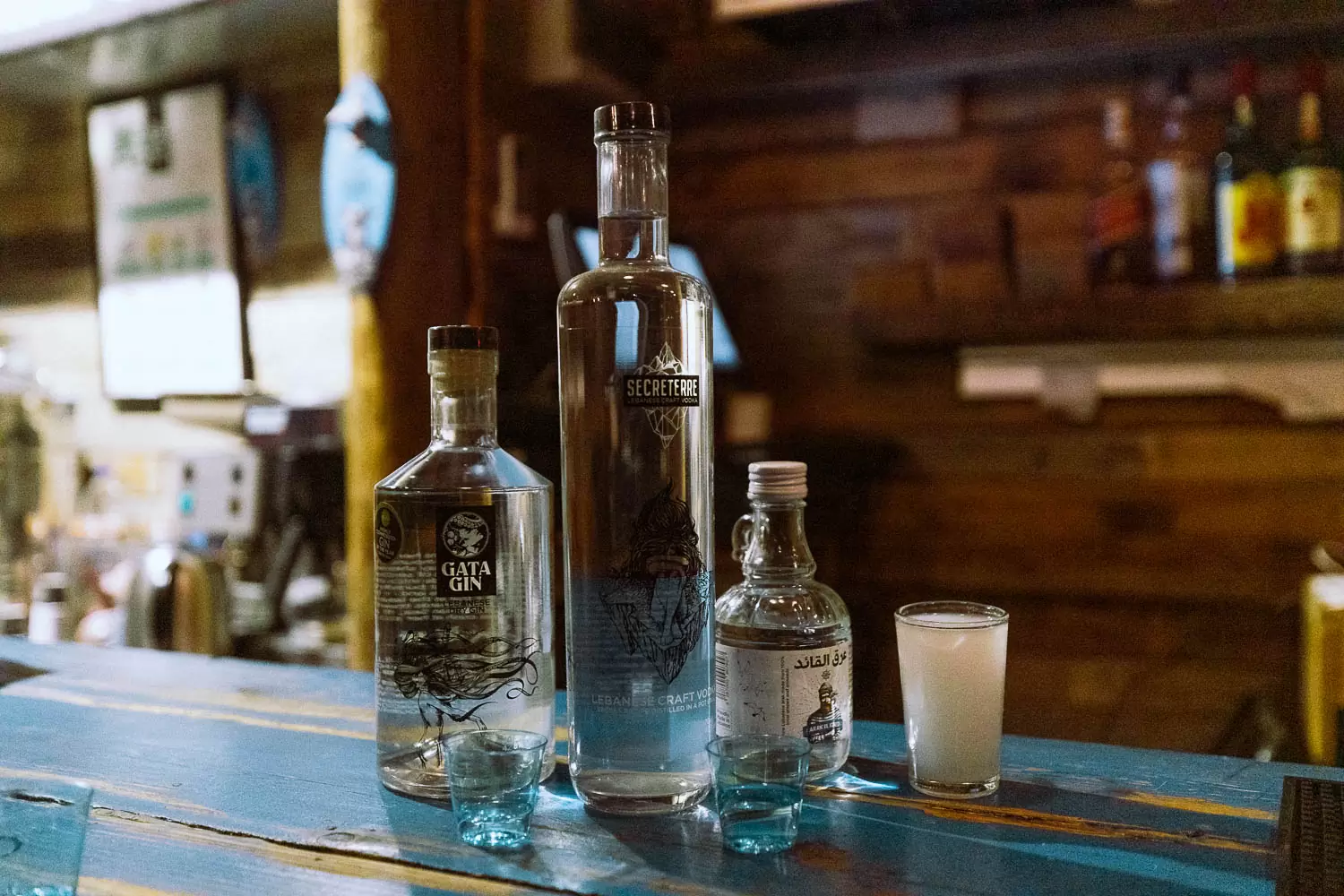
Tipping in Lebanon: Is It Appropriate?
When it comes to tipping in Lebanon, it’s generally advisable to either round up or pay 10 – 15% at restaurants depending on the service you received.
You’ll also want to carry small bills for other tipping encounters, including supermarket trips (if they carry your groceries to your car), gas station stops (an attendant will fill your tank), and buying drinks at a bar.
14. Travel Insurance For Traveling to Lebanon: Do You Need It?
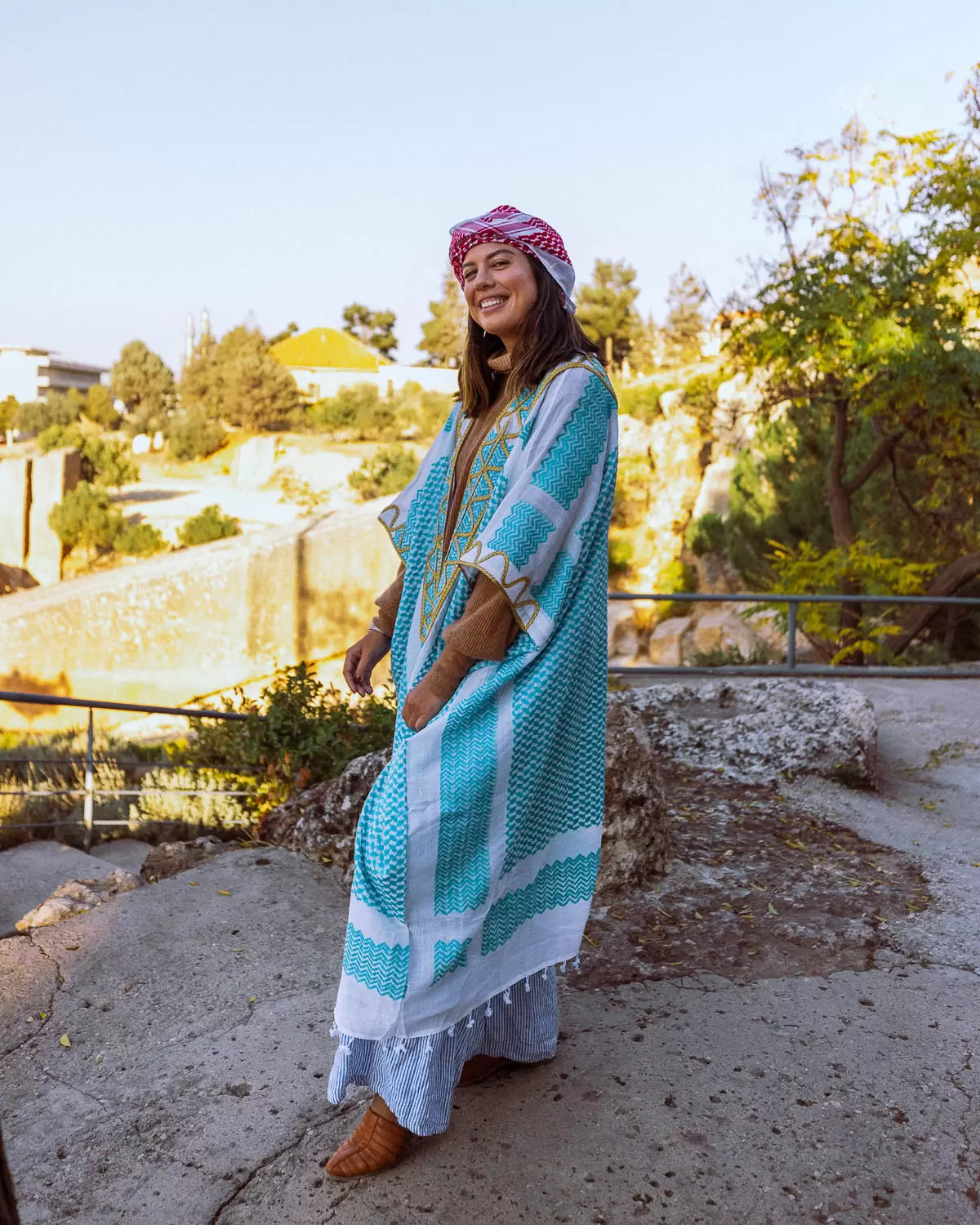
Whether or not you need travel insurance is your own personal choice. But, keep in mind that without insurance, any incidents (stolen gear, hospitalization, etc) will need to be covered out of pocket while abroad.
Some reputable travel insurance companies with good reviews include:
- World Nomads
- Allianz Travel Insurance
It’s hard for me to put into words how much I loved my time traveling in Lebanon, so I’ll end by saying this: if you’re feeling adventurous and considering visiting Lebanon, you must do it. Lebanon has been without a doubt one of the most culturally enriching, delicious, eye-opening, educational, authentic, raw, and fun countries I’ve visited to date, and I can’t wait to go back!
P.S. Skipped to the end? Don’t fret! While you can travel to Lebanon on your own, some might feel more comfortable visiting with a local tour company. If that’s you, you might want to consider traveling to Lebanon with TourLeb. Mention ‘Rachel Off Duty’ when booking to get up to 15% off a private tour of 3 days or more. Contact them here .
Or, travel with me to Lebanon on a group trip this summer (August 19 – 27). See the itinerary and reserve your spot by clicking this link .
Are you considering traveling to Lebanon? Did you find these tips helpful? Let me know your plans in the comments!
Read This Next:
- 10 Unforgettable Places to Visit in Lebanon
- 10+ Effortless Ways to Start Saving Money for Travel
- The Best First-Time Solo Female Travel Destinations
- Solo Female Traveler Safety Tips Every Woman Should Know
Pin For Later:
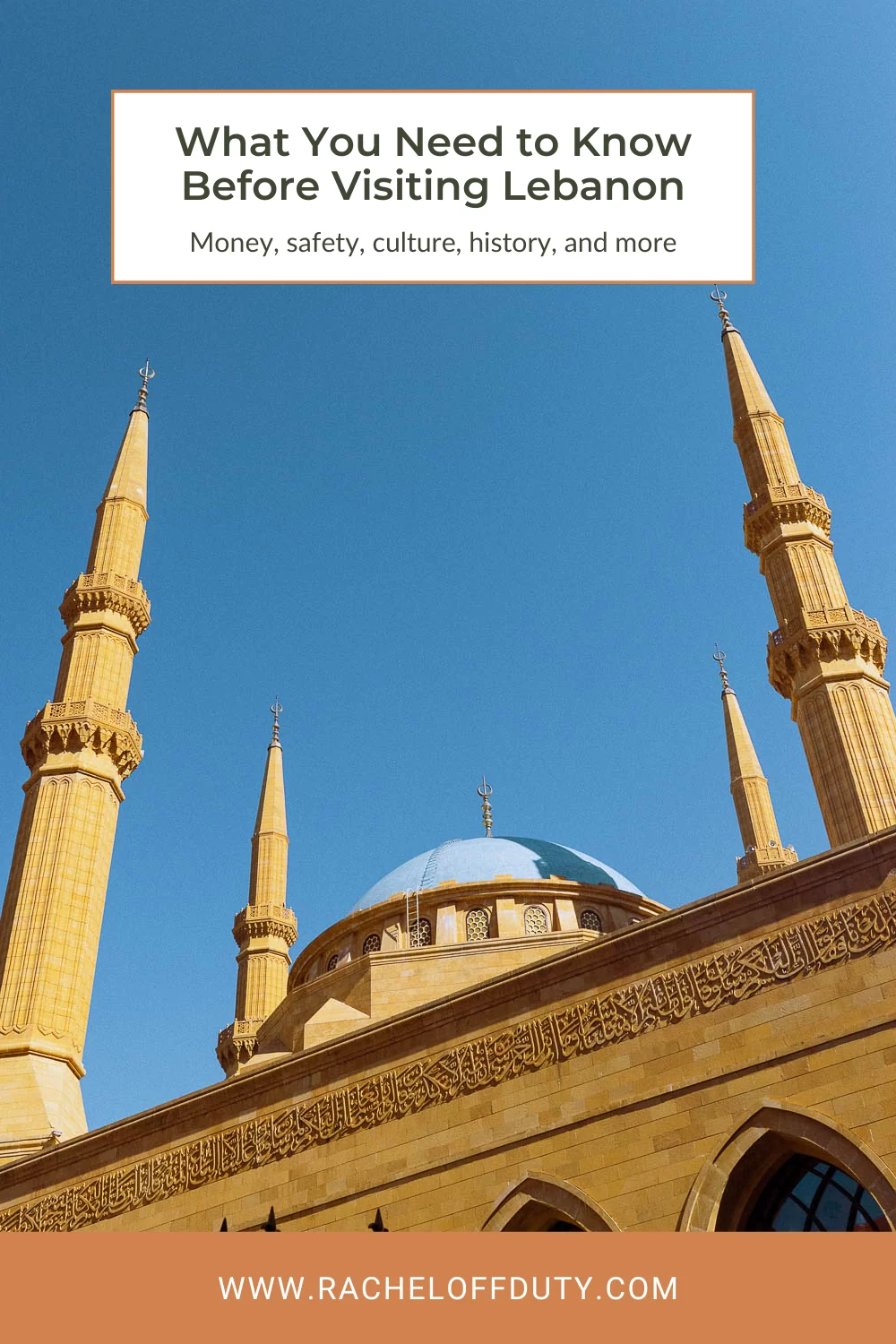
Hey there! I’m Rachel, a travel writer and a full-time advertising / marketing expert. In 2019, I traveled more than 25 times while working 9 to 5, and since then I’ve committed myself to living a more adventurous life, even if it means bringing my laptop along for the ride. Are you hungry to travel more, but overwhelmed with how to juggle work and play? You’ve come to the right place!
Recent Adventures:

The Best Places to Visit in Peru For First-Timers
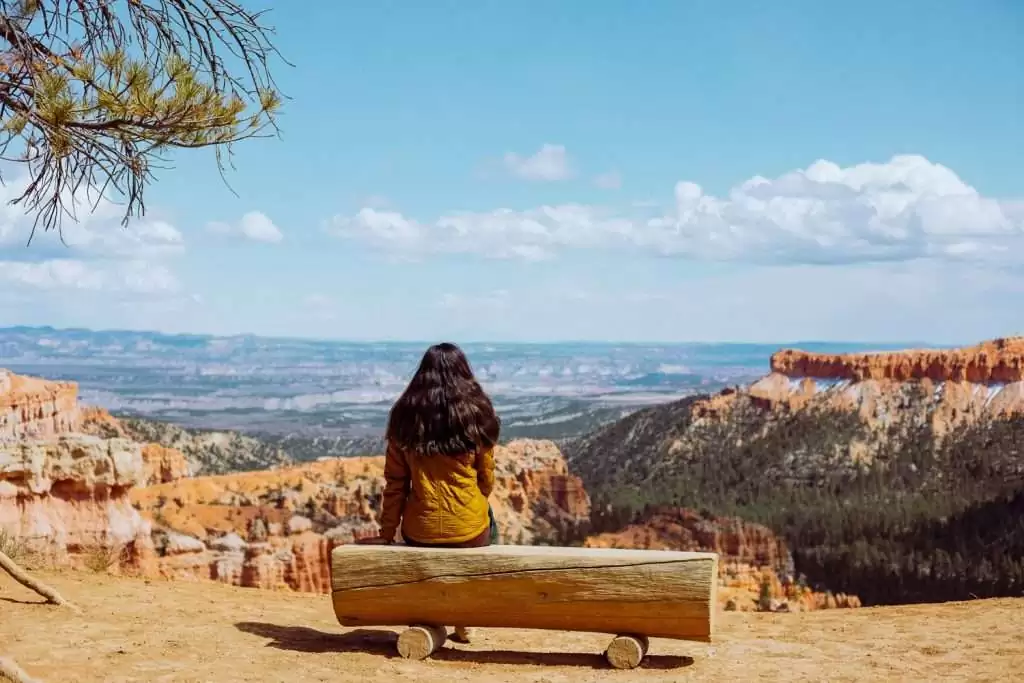
Top Woman-Owned Travel Companies That Should Be on Your Radar
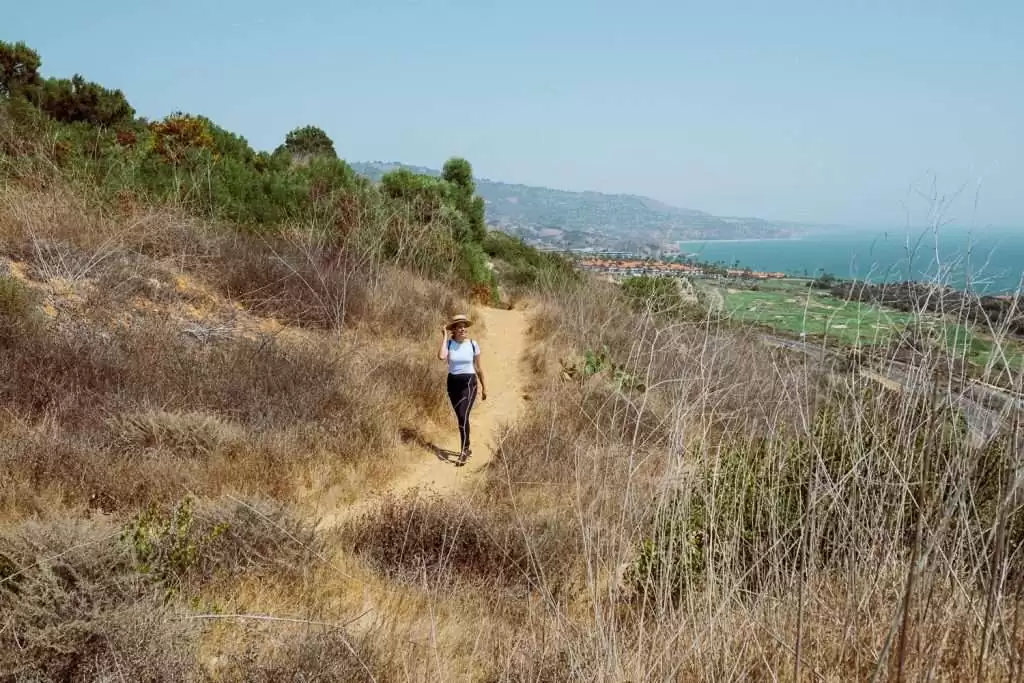
Los Angeles Staycation Idea: Two Days in Palos Verdes, California
Let's go places.
- Updated on: March 1, 2023
Leave a Reply
Your email address will not be published. Required fields are marked *
Save my name, email, and website in this browser for the next time I comment.
Follow the Off Duty Life

Join a Community of Go-Getting Travelers.
Sign up below!


Ultimate Lebanon Travel Guide
The ultimate travel guide to lebanon.
Last Updated: 22 Feb 2023.
This guide will tell you everything you need to know for visiting Lebanon during the current crisis, updated regularly with the latest pandemic travel restrictions and for changes caused by Lebanon’s current crises. I have lived in Lebanon for the past three years ( narrowly surviving the 2020 port explosion ) and have visited almost every inch of this beautiful and crazy country.
Lebanon was a beautiful country with vibrant cities and beautiful ancient historic sites before the multiple crises that began in 2019. And actually, it still is. With a bit of planning, it’s still possible to have an amazing trip here, despite the political crisis, economic crisis, electricity shortages, frequent protests and the after effects of the port explosion.
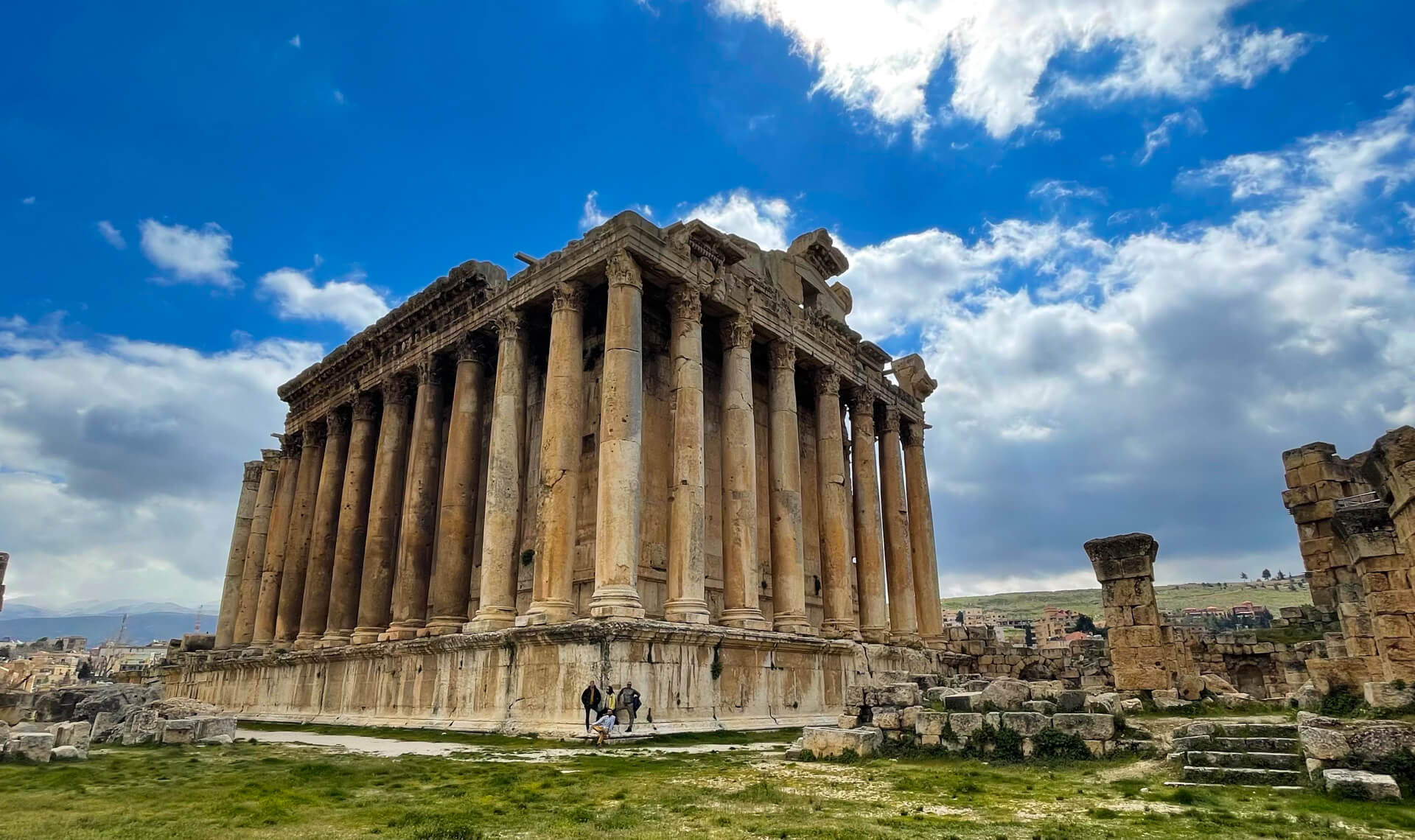
The 2,200 year old Roman temple of Bacchus, the wine god, in Baalbek.
Places to Visit
One of the best things about Lebanon is that almost any area can be visited as a day trip from Beirut. You can choose to do the below as a series of day trips or stay overnight in different cities as you travel. Staying overnight reduces the time spent travelling, but also means you have to take everything with you as you travel.
In my opinion, the real must see place in Beirut are the Raouche (Pigeon) rocks, which are a beautiful place to watch the sunset. If you’re feeling adventurous, take the path down the cliff from the viewing point next to the Bay Rock Cafe (opposite Starbucks) and sit on the rocks opposite Raouche. From there, not only do you get a beautiful view of the rocks themselves, but also of the sun setting over the Mediterranean Sea. It’s a great place to enjoy a couple of beers or a bottle of wine.
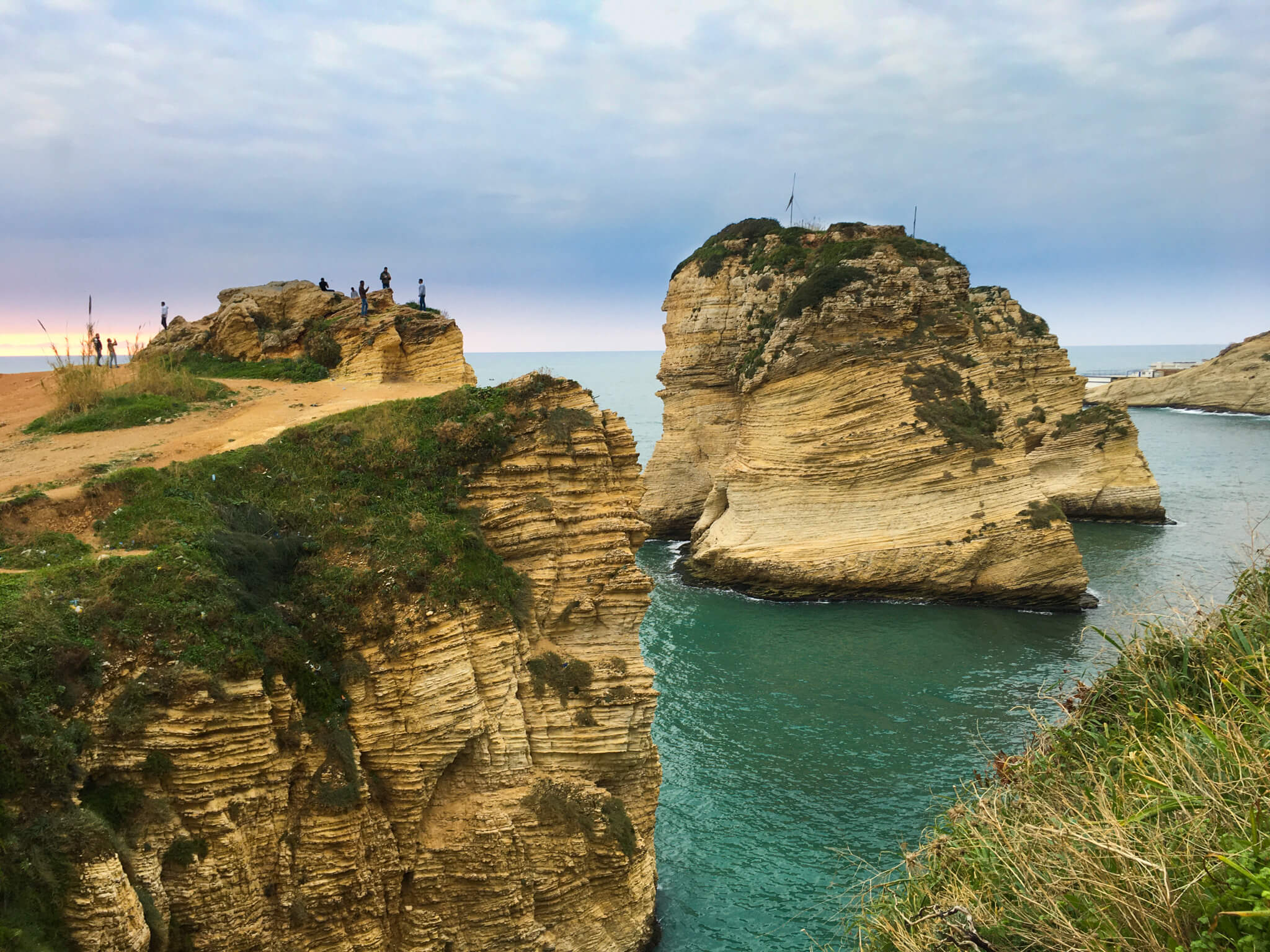
The best place to view Pigeon Rocks (left, with people gathered). Also a great location to take a bottle of wine for a romantic sunset date.
One of the joys of Beirut is just strolling through its vibrant neighbourhoods. I particularly recommend Hamra, which is an interesting mix of old and new, with boutique shops, bars and restaurants. Gemayze and Mar Mikhael, the main bar district, are also gradually coming back to life after the port explosion destroyed them in 2020. Zaytuna Bay is a chance to see the more upmarket side of Beirut.
The centre of the Beirut Souks area, including the iconic clock tower in Place de L’Etoile and the Roman baths, has reopened after being cordoned off by the military due to protests for the past two and a half years. Until recently, it was still possible to enter the ‘egg,’ an abandoned cinema building purportedly left to remind people of the atrocities of the civil war (it’s full of bullet holes), but unfortunately the authorities have now built a fence around it to keep people out.
The National Museum of Beirut reopened to tourists in summer 2021 and is currently open daily. Be sure not to miss the ‘mummy room’ on the basement level, which houses three mummies from the Qadisha Valley. It’s a little temperature-controlled room in a corner and easy to miss if you don’t know it’s there.
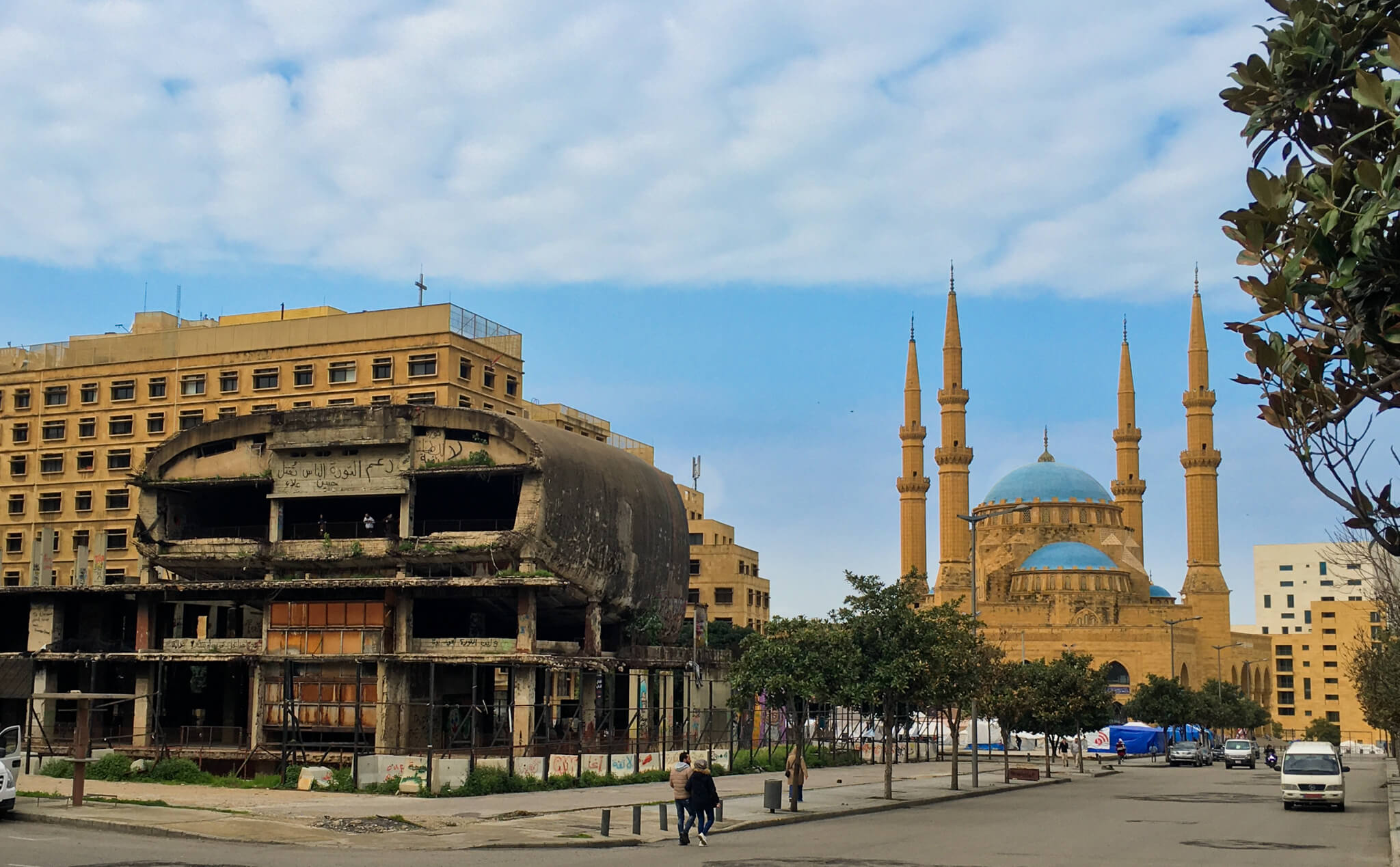
The Beirut ‘egg’ (abandoned cinema) and the main mosque.
The Jeita Grottoes & Byblos
The Jeita Grottoes, located slightly to the north of Beirut, are spectacular and conveniently located not far from the coastal highway up to Byblos, making the two a convenient day trip. You can also choose to stay overnight in Byblos before heading further up north.
At the Jeita Grottoes, you have to leave your phone in a little locker near the entrance, as they don’t allow photographs. It doesn’t look very secure, but I’ve never heard of anyone having problems.
The main attraction of Byblos is wandering the beautiful historic centre, with its ancient Mediterranean architecture, beautiful flowers growing up the walls and in some cases across nets over the streets and cute boutiques, bars and restaurants. There’s also an ancient citadel that’s worth checking out and the picturesque little harbour.
If you’re looking for something a little adventurous, walk along the right hand wall of the harbour (as you’re facing out to sea) until you reach the ancient tower at the harbour entrance. From here, with a bit of care, you can climb up to the top of the tower for amazing sunset views, often without any other people.
If the beach is more your thing, slightly north of the harbour you’ll find a pebble beach that’s great for swimming in the summer (approximately May to October). Finally, Byblos is home to Fenicia restaurant, in my opinion one of the best restaurants in the whole of Lebanon.
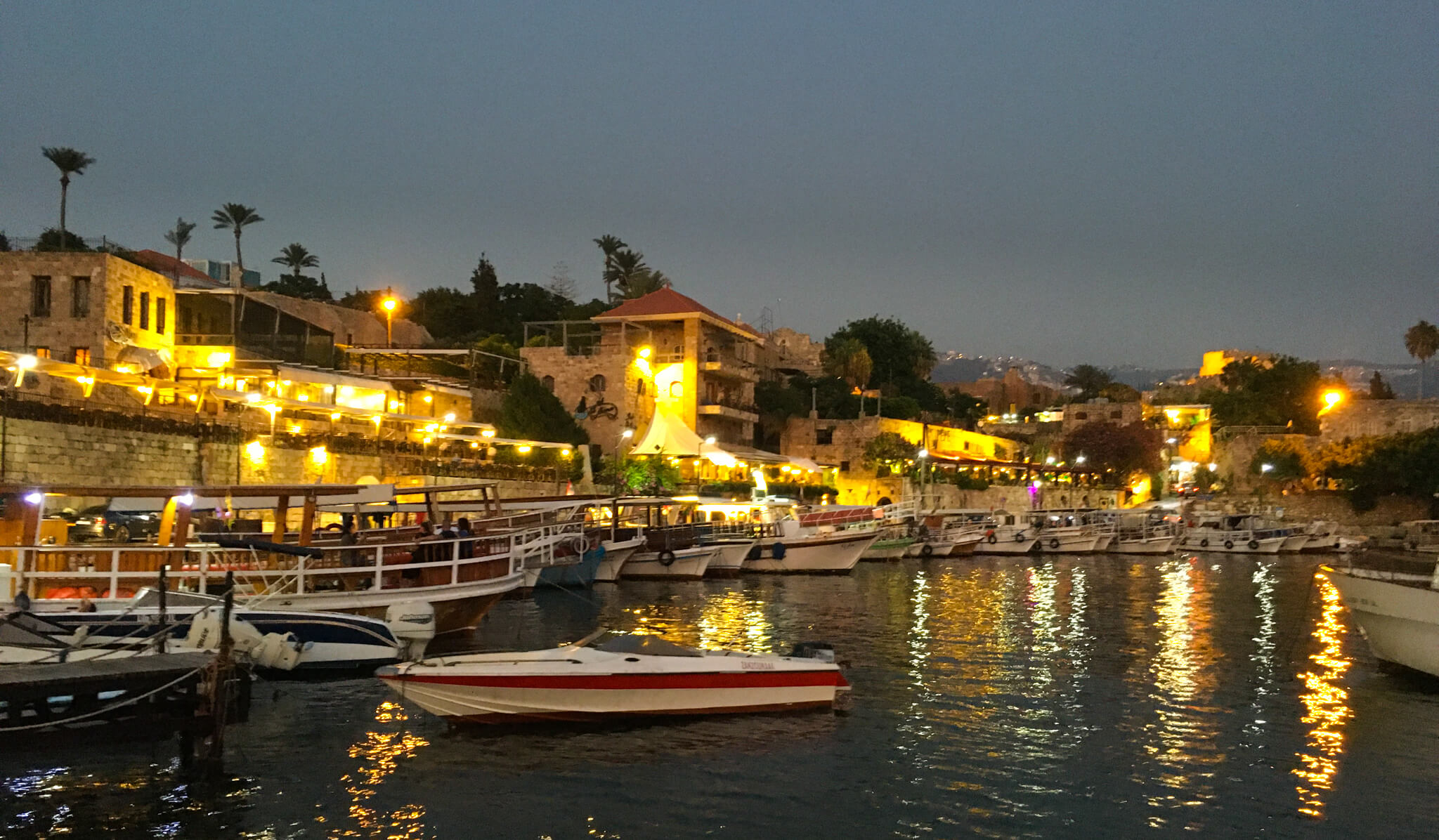
Byblos harbour is beautiful day and night.
A pretty seaside town in the north of Lebanon, Batroun is nice for an afternoon to wander it’s old town, which is basically a less touristy version of Byblos. In the Batroun area there are several off-the-beaten-track places that are worth checking out if you have time:
- The Msailha fort, just up the main highway from the city, is small but impressive, standing alone on a huge rock (it’s also free to enter). The location is here on Google Maps .
- The Rock of Hamat, a giant rock painted in the colours of the Lebanese flag, on the edge of the old cliffside road from Batroun to Chekka. The location is here on Google Maps .
- The cliffside walk though the old road tunnel to the north of the cliffside road from Batroun to Chekka. Go to coordinates 34.311459, 35.681865 ( here on Google Maps ) and then take the footpath on the left hand side of the road before the current tunnel entrance.
- For the more adventurous travellers, the disused railway tunnel. To reach the entrance, after the current road tunnel walk about 100m then go down the footpath on the left hand side of the road. Two thirds of the way down, there’s a little bank on the left that you can scramble up (about 2-3m). The entrance to the tunnel is at the top of this bank.
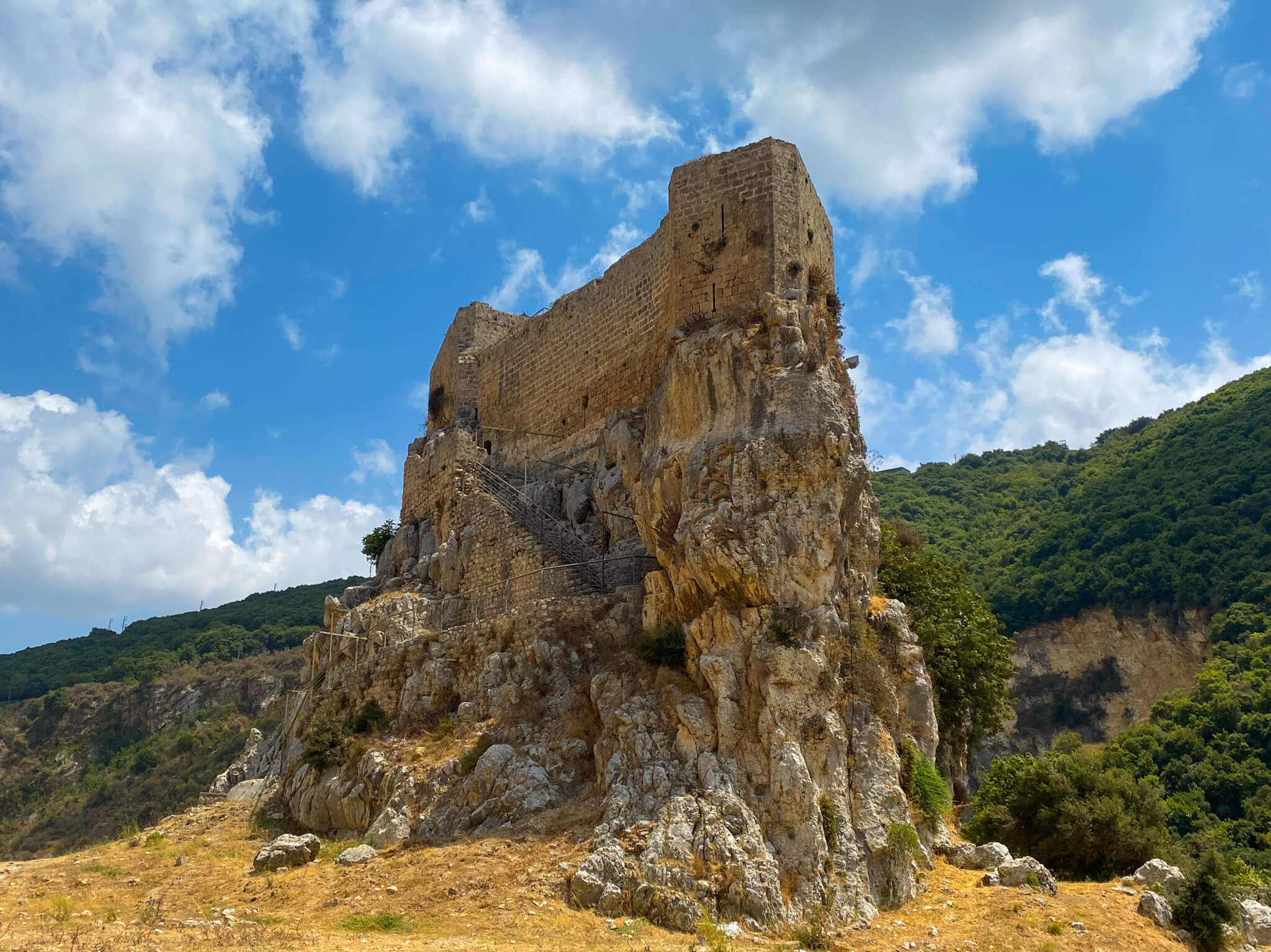
The spectacular Mseilha Fort, just outside of Batroun.
Much of the time, Lebanon doesn’t feel like the Middle East. There are no deserts, no camels (apart from a couple in Chouf that were imported from Saudi just to entertain tourists) and many of the main cities, including Beirut, Byblos and Batroun, have more of a Mediterranean feel than a Middle Eastern feel. And then you reach Tripoli. Check out the old souk (market) and the citadel. The souk seems to close around sunset at the moment, possibly due to a lack of power after dark.
Tripoli’s Corniche is, in my opinion, not as nice as Beirut’s, but Al Mina, the old town, is quaint and has several nice restaurants, including The Sailor Woman, my favourite seafood restaurant in Lebanon. If you have plenty of time, you can also catch a boat from the Corniche to Palm Island, which has the biggest sandy beach in the north of Lebanon. It’s a nice place to chill out and swim in the sea.
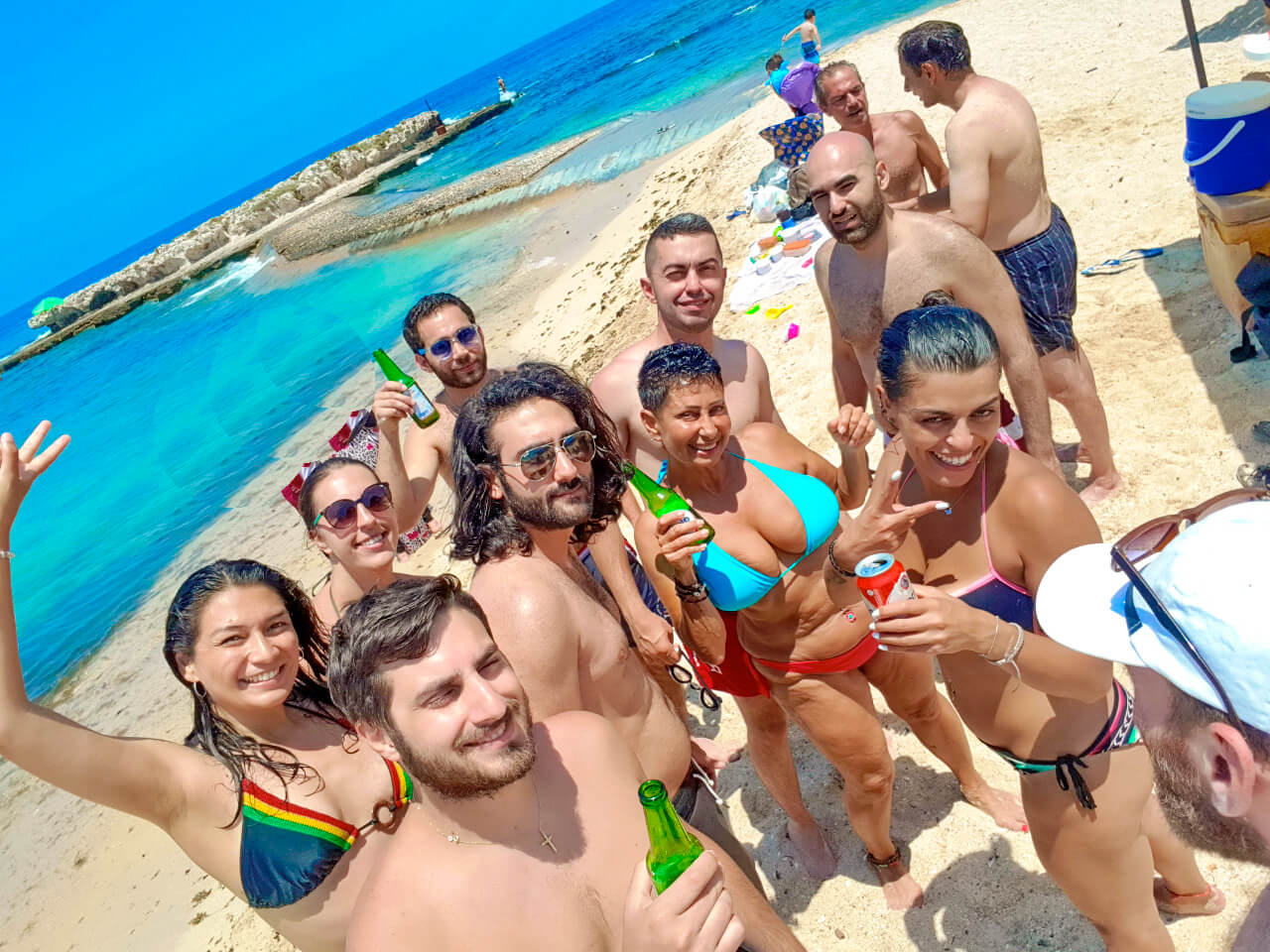
Beach Day on Rabbit Island with a group of crazy Couchsurfers.
Anjar & Baalbek
The Roman ruins at Baalbek are some of the most spectacular in the world, especially the enormous temple of Bacchus, the wine God (gotta love Roman priorities). That’s why you should visit Anjar first! Anjar is beautiful and spectacular, but after Baalbek, it will seem small and insignificant in comparison. Don’t forget to try sfeeha, the local delicacy, while you’re in Baalbek. Baalbek is also home to the Sayyida Khawla shrine, one of the most beautiful and historic Shia shrines in Lebanon.
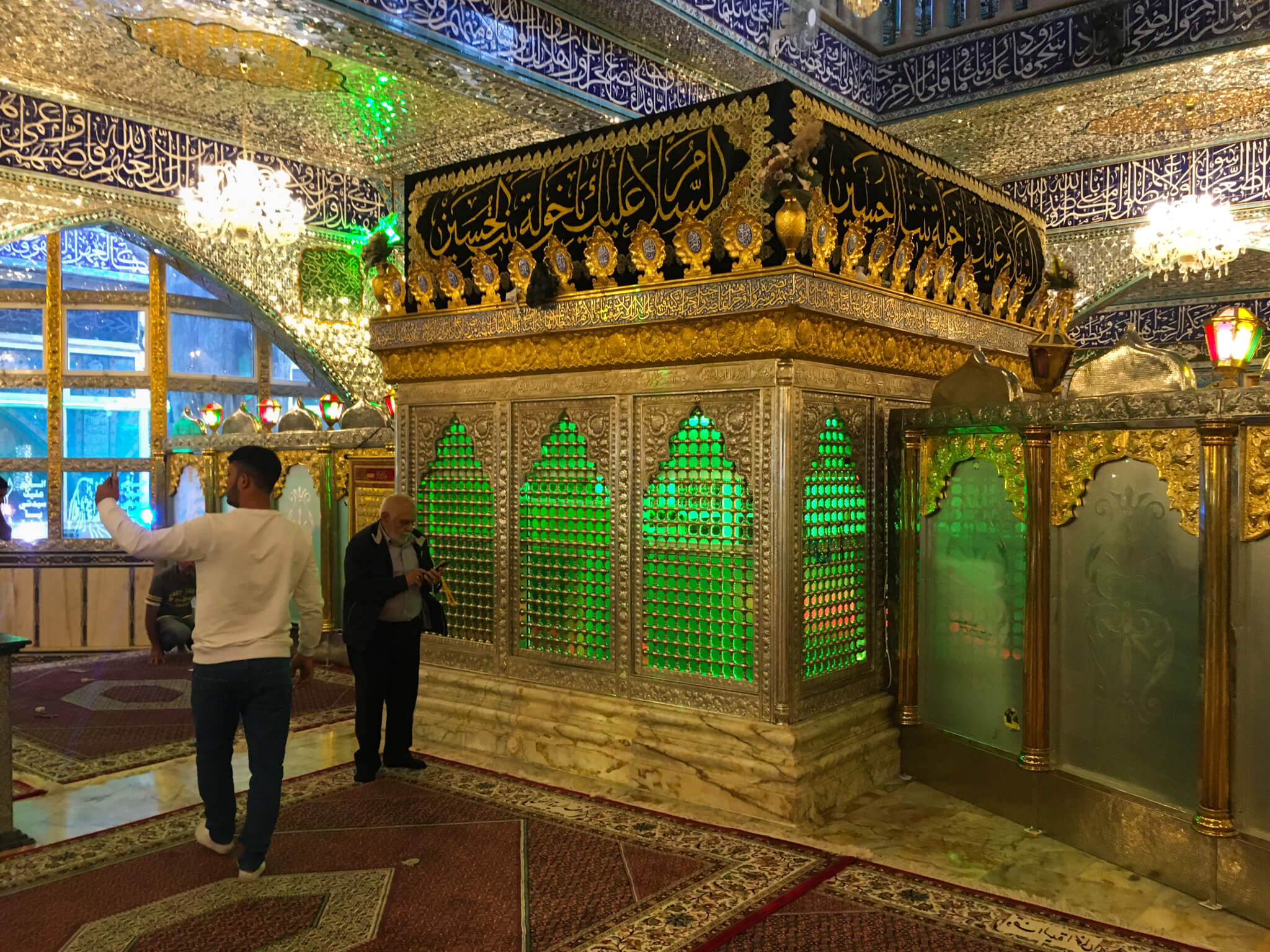
Local believe that Khawla, daughter of Imam al-Husayn, is buried in this tomb, although historians aren’t sure that Imam al-Husayn even had a daughter.
Baalbek has a bad reputation for safety, but this generally refers to other parts of Baalbek governorate, not Baalbek city. If you’re concerned about safety, just don’t go north of the city (and definitely keep away from Arsel, which has a justifiably rough reputation).
Saida & Mleeta
Saida has probably the most beautiful souk (market) in the whole of Lebanon, full of ancient stone archways and local people hawking traditional wares (and delicious Arab sweets). There’s also the small but worth-a-visit Dabane Palace Museum, a soap museum and the Hammam el-Sheikh traditional bathhouse. The seafort on the waterfront is also worth a visit (although more spectacular from the outside than inside). If you want a beer, go to Resthouse, a restaurant next to the seafort that is the only place in Saida allowed to sell alcohol. Its garden is also a great place to take photos of the seafort.
Mleeta is a tiny village in the mountains that is home to probably the most well-maintained museum in Lebanon – The Hezbollah Museum. Here, a free English-speaking guide will take you around and tell you about the various wars against Israel and Hezbollah’s role in protecting and driving out the enemy. Whatever your political views, the museum is very well done and worth a visit. It’s located about a 40-minute drive up into the mountains above Saida.
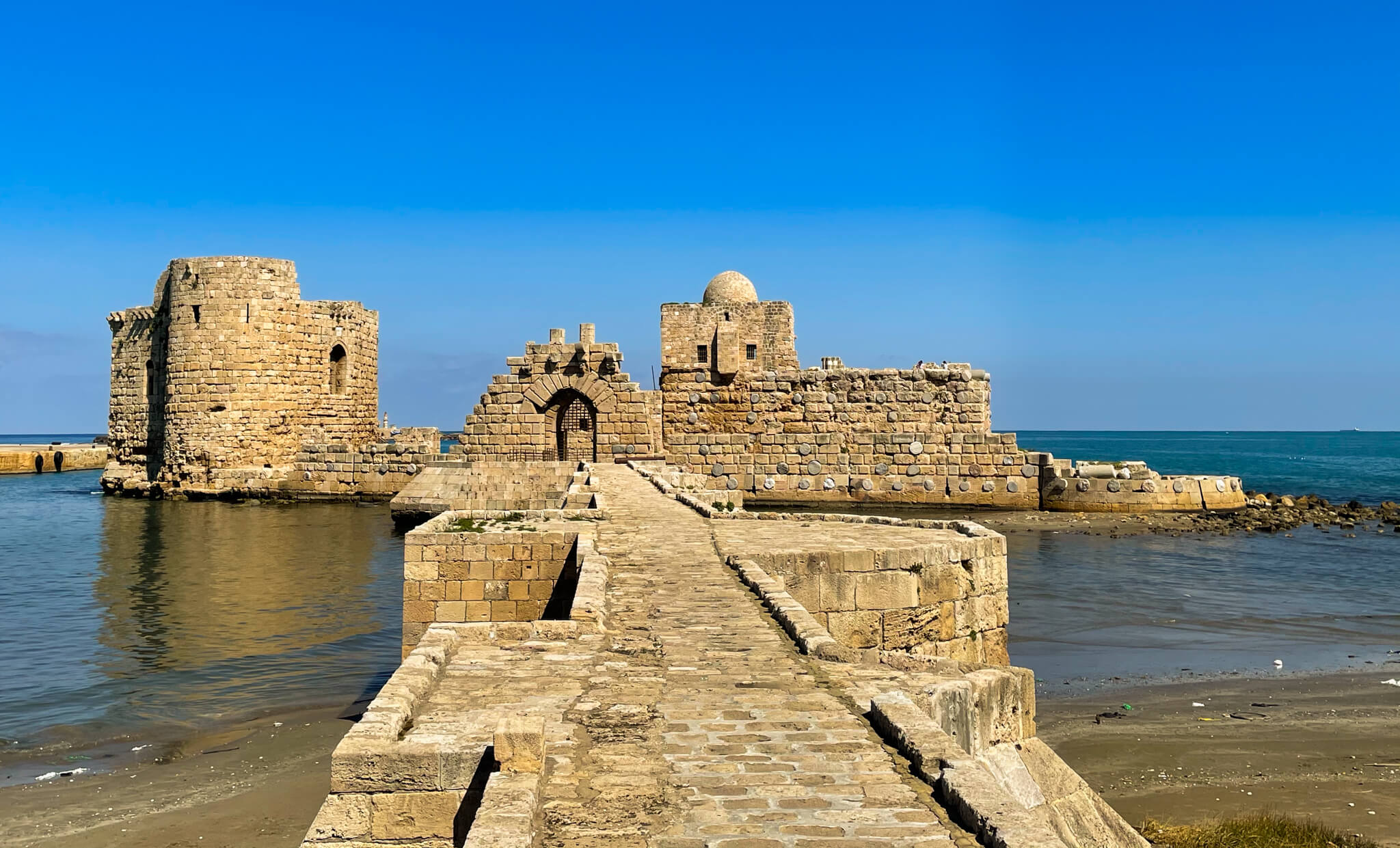
The Saida seafort – a castle in the sea.
One of the oldest cities in the world, Tyre is home to an ancient Roman Hippodrome. The site itself is a bit rundown now, but the ruins are still impressive. There’s also a pretty little old town with less tourists than other cities in Lebanon and a colourful harbour full of fishing boats. The restaurants next to it are worth checking out for some fresh seafood too. To the south of the city is Lebanon’s longest sandy beach. This was affected by the oil spill off Israel in 2021, but is now clean again and safe for swimming.
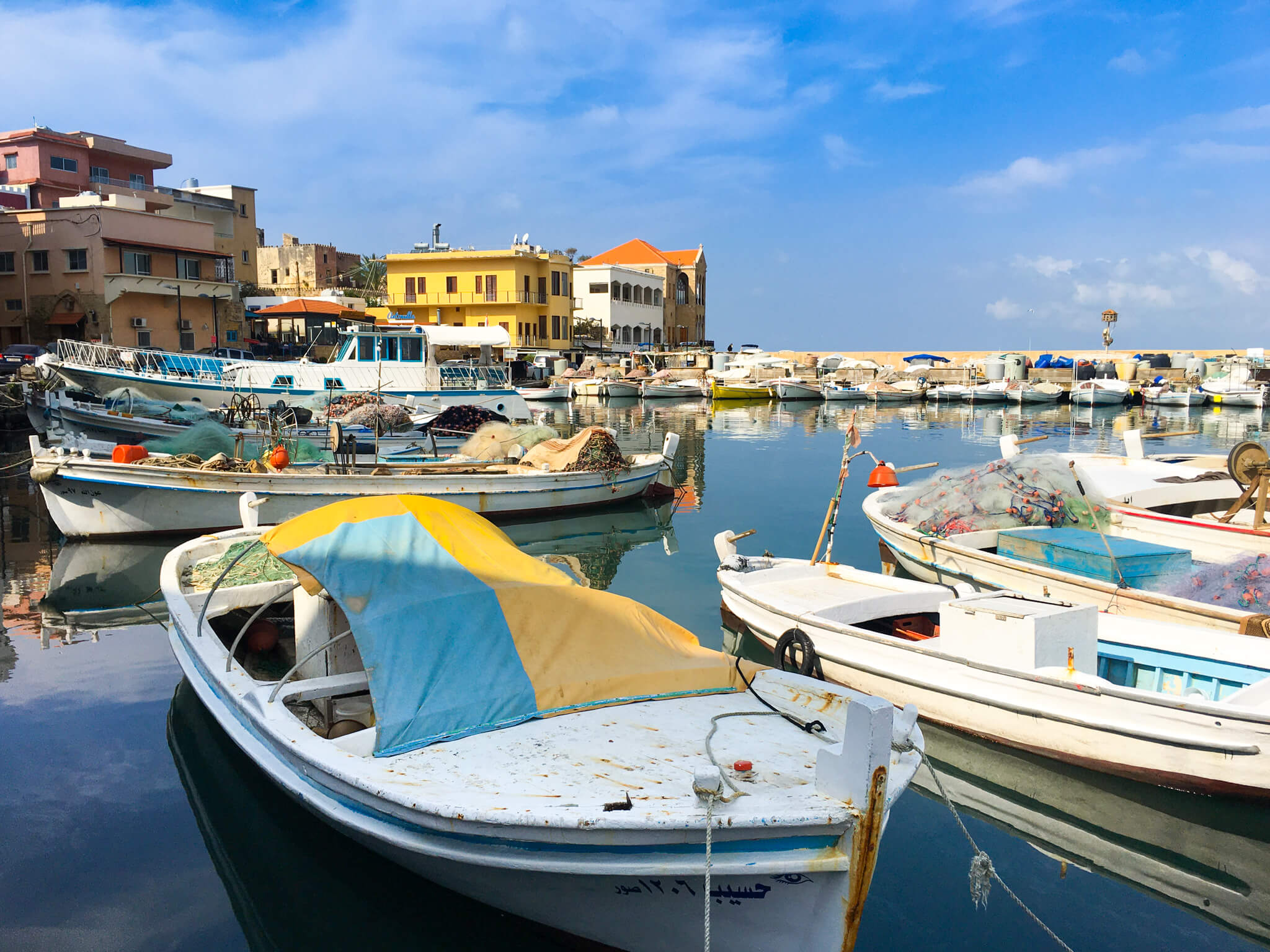
Tyre’s colourful harbour – a great place to eat fresh seafood.
The Northern Mountains
There are many beautiful places to visit in the northern mountains of Lebanon, aside from just the pleasure of driving through the local villages and the often breathtaking scenery. The three I would recommend for visitors are:
- The 2,000 year old olive trees in Bchaleeh, which are supposedly the oldest in the world. Local legends say that the olive branch from the story of Noah’s Ark came from one of these trees, but you can make up your own mind. The location is clearly marked on Google Maps .
- The viewpoint at Aqoura. Climb the rocky hill opposite the church for spectacular 360 degree views). The start point is at Saydat Al Qarn church ( here on Google Maps ).
- The Batarra Waterfall. This 255m (837 ft) waterfall, which passes through several layers of Jurassic limestone rock, is definitely the most beautiful in Lebanon. It’s best visited in the spring when there is plenty of meltwater. I went in early August once and there was no water at all.
- The Cedars of God. At possibly 2,500 years old, the Cedars of God are some of the oldest cedar trees in the world and a UNESCO world heritage site to boot.
You will need a car to reach these locations, or you could try hitchhiking.
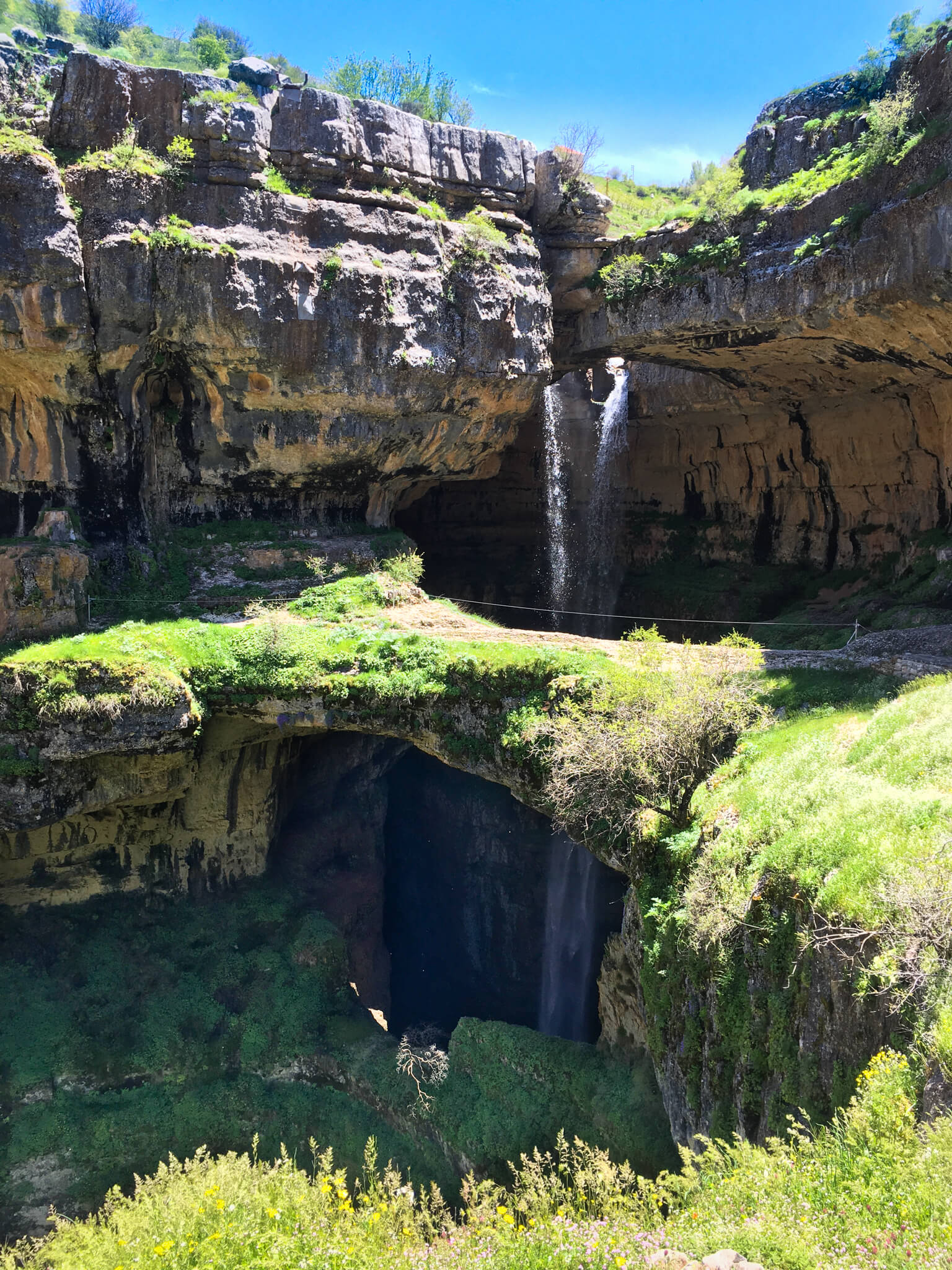
The 255m Batarra waterfall. Try throwing a stone down into the chasm below and see how long it takes before you near it hit the bottom.
The Chouf Region
Home to the majority of the Druze population of Lebanon, the Chouf region also contains the country’s largest remaining cedar forests at the Chouf Biosphere Reserve. This is a great place to do some hiking with trails from 5 minutes to a full day.
The region also contains the Bettadine palace, which was built by the Ottomans, and the Moussa Palace, which was built over several decades by a crazy Lebanese man who wanted his own palace. The latter contains a vast collection of ancient weapons and some very well done scenes from traditional Lebanese life, created with models animated in various ways. I love the concept that the guy just suddenly decided to build himself a palace!
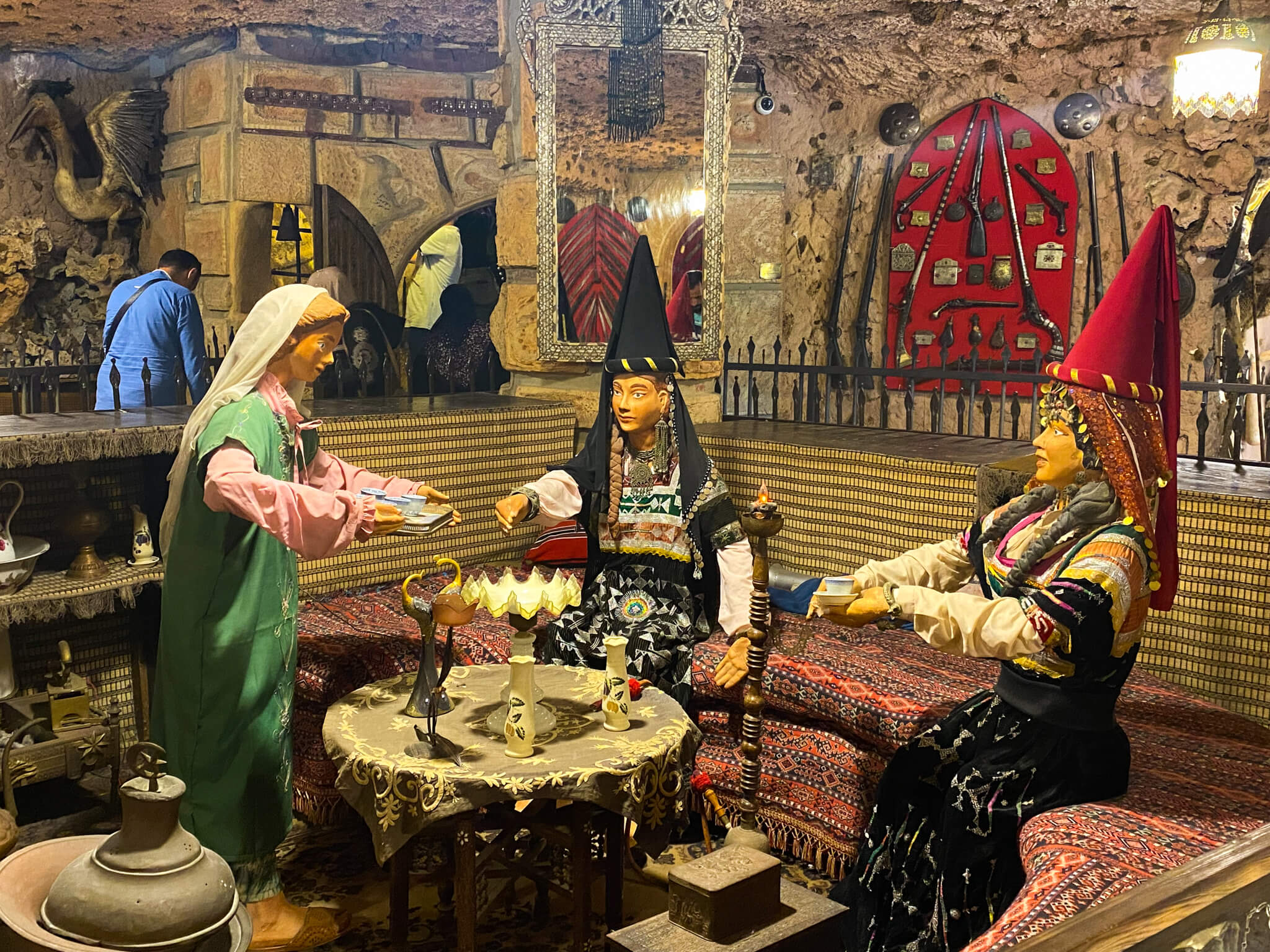
A traditional Lebanese scene in the Moussa Palace museum.
The Christian city of Jounieh used to be where Arabs from stricter countries in the Middle East went to party and unwind, as evidenced by the strip of hotels on the coast that look like they’ve seen better days. Even now, the city is still home to Lebanon’s only casino, Casino du Liban, and a bunch of ‘super night clubs’ – basically stripclubs.
For tourists not looking for such things, the main attraction is Harissa, the hill behind the city with a statue of Our Lady of Lebanon on the top. There is also a very nice (but steep) hike up from the city below through the dense forest with occasional views across the bay. The start of the path is at coordinates 33.997710, 35.650976 ( here on Google Maps ). Recommended for sunset.
Hermel and Akkar
The far north of Lebanon is known as one of its most dangerous areas, but most reports are highly exaggerated. The main attraction here is the 2,500 year-old Pyramid of Hermel, which I visited in 2021 . Even now, no one’s quite sure who built it! Worth a visit if you have the time, but its location in one of the most remote parts of the country means that it won’t fit many peoples’ itineraries.
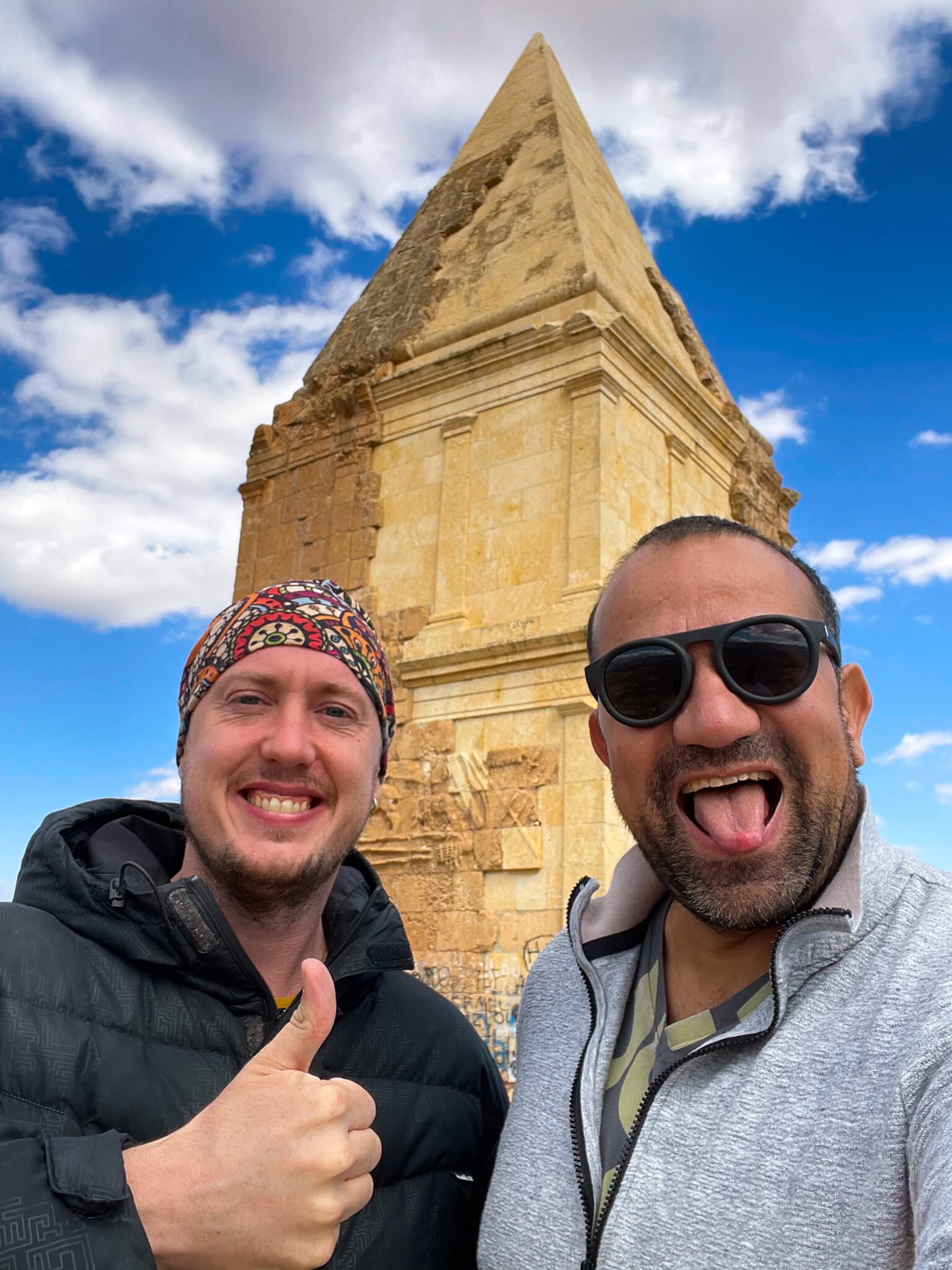
Nobody is sure why the Pyramid of Hermel was built.
The Far South (UNIFIL-Controlled Area)
The far south of Lebanon is interesting, because you can drive along beside the border wall with Israel, which is covered in security cameras and, in some places, graffiti similar to that seen in the Palestinian territories. The coast at Naqoura also have the cleanest waters in Lebanon for swimming, thanks to the low population density and proximity to Israel, which has better sewage treatment facilities than Lebanon.
The downside is that this area is under control of the UN peacekeeping force (UNIFIL) and foreigners need a permit to enter it. See below the section on Entering the UNIFIL-Controlled Area for details of how to obtain the permit.
This picturesque little village in the mountains near Saida is often overlooked by travellers, which is a pity, as it boasts one of Lebanon’s most spectacular waterfalls. For hikers, the village is surrounded by Lebanon’s largest pine forest. For those who want something darker, there’re also some interesting abandoned buildings leftover from Lebanon’s war of resistance against Israel to explore. Read more in my dedicated Jezzine guide here.
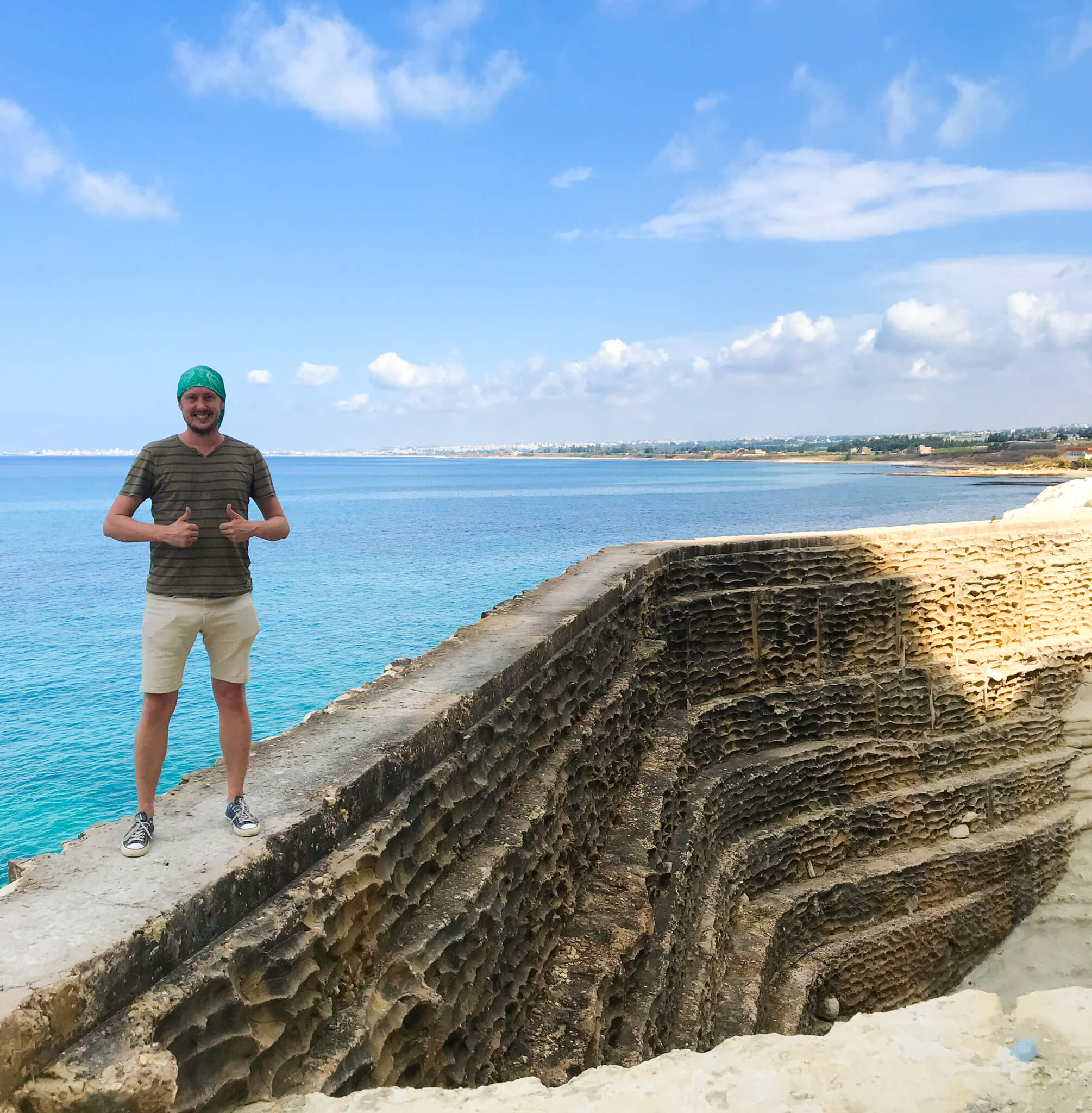
The sea wall south of Naqoura
Suggested Itineraries
Pick and choose where to visit from the places above. However, my suggestions are as follows:
Two-day Trip: Beirut – Jeita Grottoes & Byblos . This is way too short, but spend one day wandering Beirut, watch the sunset at Raouche in the evening and then head to the Jeita Grottoes and Byblos on day 2.
Four-day Trip: Beirut – Jeita Grottoes & Byblos – Saida & Mleeta – Anjar & Baalbek. Best to base yourself in Beirut for this itinerary, which covers the major highlights of the country.
One-week (7 day) Trip: Beirut – Jeita Grottoes & Byblos – Tripoli – The Northern Mountains – Saida & Mleeta – The Southern Mountains – Anjar & Baalbek. This itinerary includes most of the highlights of the country with a variety of cities, ancient ruins and nature.
Two-week (14 day) Trip or Longe r : Beirut – Jeita Grottoes – Jounieh – Byblos – Batroun – Tripoli – The Northern Mountains – Anjar & Baalbek – Saida & Mleeta – Jezzine – The Southern Mountains – Tyre . You could easily spend more than a day in many of the places listed here, making the trip more relaxing and enjoyable. Alternatively, add in some hiking or visit some random villages in the mountains, many of which are beautiful.
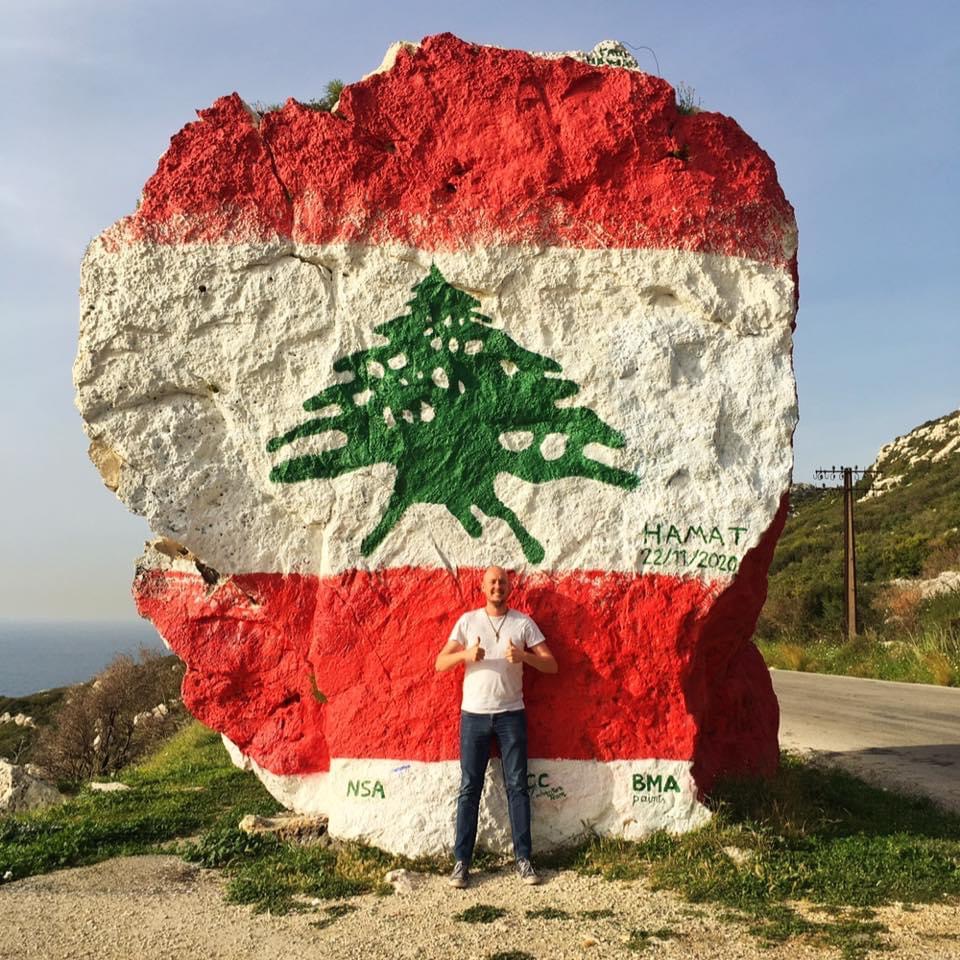
If you have the time, check out the Rock of Hamat near Batroun for a very Instagrammable pic.
I had no idea until I moved to Lebanon, but the country has some amazing hikes. My personal favourites are the following:
- Qornet As Sawda (Black Peak) – The highest mountain in not only Lebanon, but the entire Levant region, and 5th highest in the Middle East, at 3,088m. The landscape is like nothing else in the country, as barren as the moon. It gets very cold near the top and is covered in snow from around November to May, so it’s best to avoid these times. The hike starts from the Cedars ski resort near the Cedars of God and the first two hours follow the ski lifts. The total hiking time is about 8 hours and it’s long, but not difficult.
- The Chouf Biosphere Reserve – The largest cedar forests in Lebanon make for some beautiful hiking. The reserve is clearly marked on Google Maps and is suitable for short or long hikes.
- The Qadisha Valley – Possibly the most beautiful place in the whole of Lebanon, a Colombian monk lives in a tiny monastery perched high on a cliff above the valley. The path to the monastery is narrow with beautiful views and not particularly difficult, although the monk himself has stopped meeting visitors recently, due to the risk of Covid, as he is very old.
- Jabel Moussa Biosphere Reserve – There are many hikes here, from short 3-5km jaunts to 20km marathons and over steep mountain paths. The highlight is Chouwen lake, which is a beautiful turquoise blue. It’s also possible to swim in it during the summer.
- Bkassine Pine Forest – The largest pine forest in Lebanon is riddled with beautiful hiking trails. Check out my Jezzine guide for details .
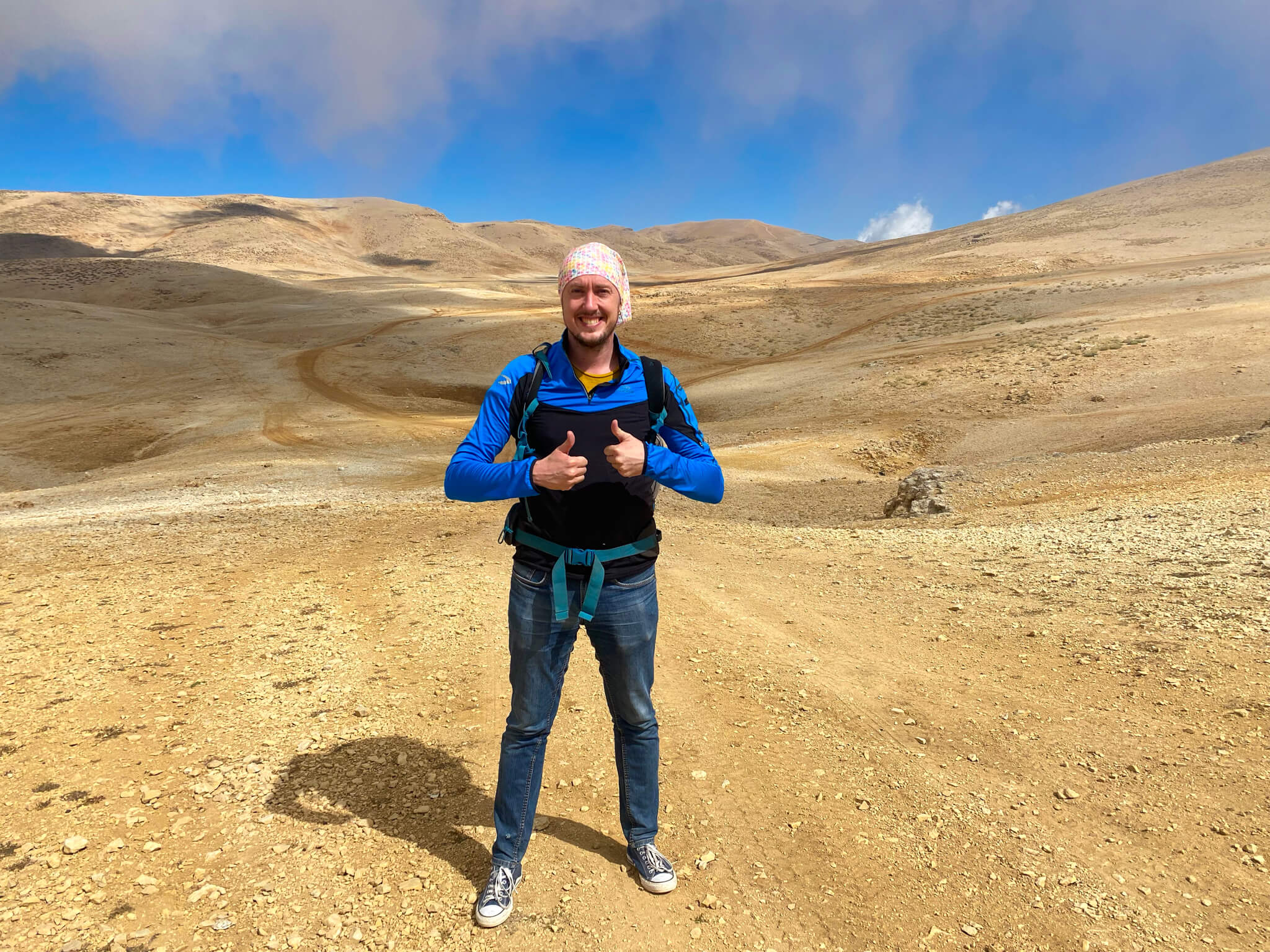
The moonscape of Qornet As Sawda is like nothing else in the whole of Lebanon.
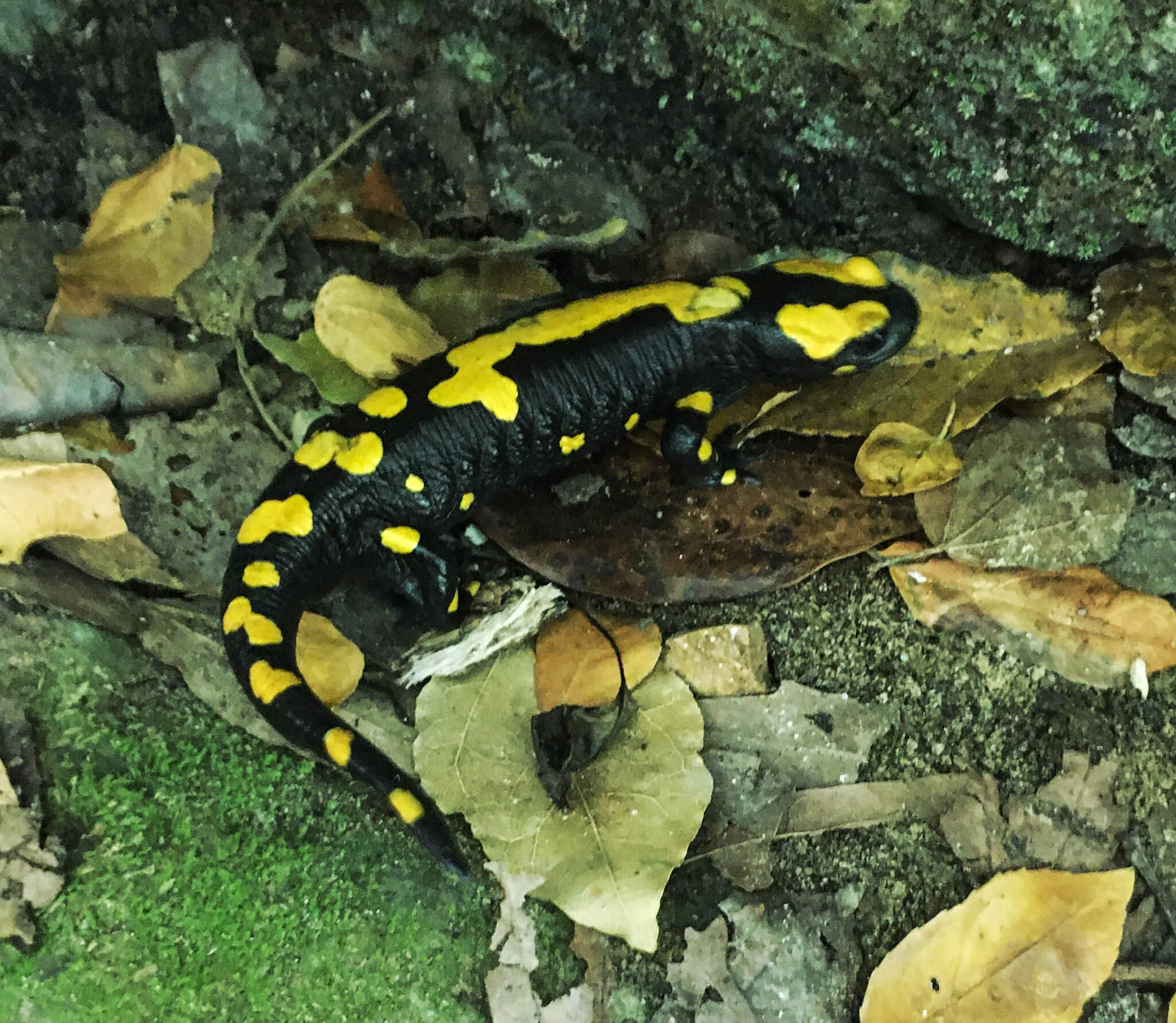
A rare near eastern fire salamander, spotted by yours truly while hiking in the Chouf region.
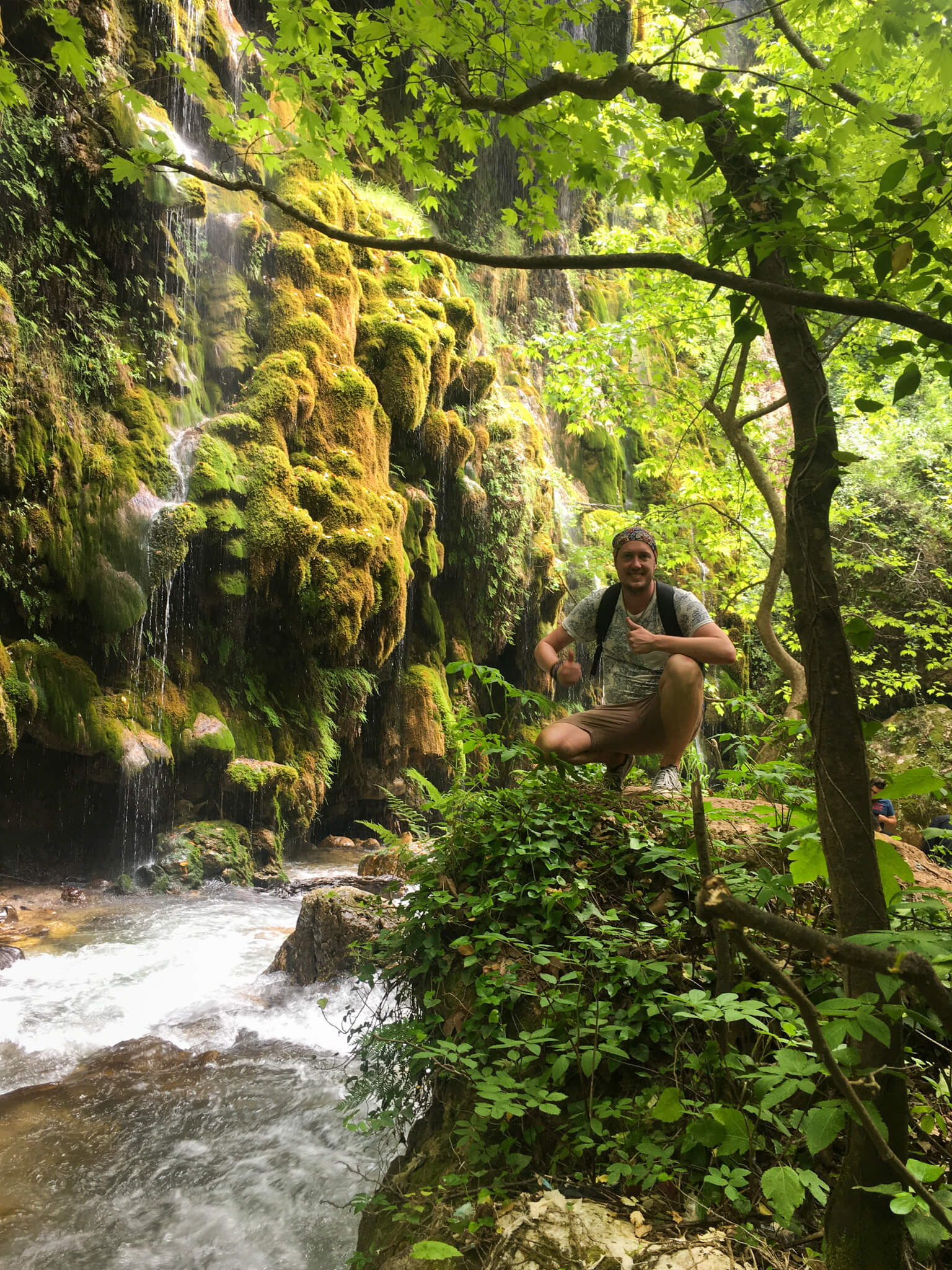
Anyone who thinks the Middle East is only desert and camels has never been to Lebanon – the lush green of the Qadisha Valley is like something out of a Disney film.
Impact of the Crisis – Electricity
Lebanon’s national grid currently only supplies about 1-2 hours of electricity per day to most parts of the country, due to a shortage of fuel, insufficient capacity and various other factors. This is terrible if you’re local and don’t have a backup power supply. However, for tourists it’s actually not that big a problem, as major hotels have good generators that provide 24/7 power and most restaurants and other businesses also have generators, if not all the time.
The best advice here is check with your hotel before visiting. Some generators are not designed to run 24/7 and so buildings can have gaps without power. My apartment currently has seven hours in 24 with no power, split between the night and morning, when they let the generator ‘rest.’
The electricity crisis has made the roads more dangerous – many street lights and traffic lights are not operating. If you do drive in Lebanon, when you come to a junction without working traffic lights, just slow down and drive slowly through. Most Lebanese drivers are very cautious at these junctions, as the economic crisis has made imported car parts astronomically expensive and no one wants to damage their car.
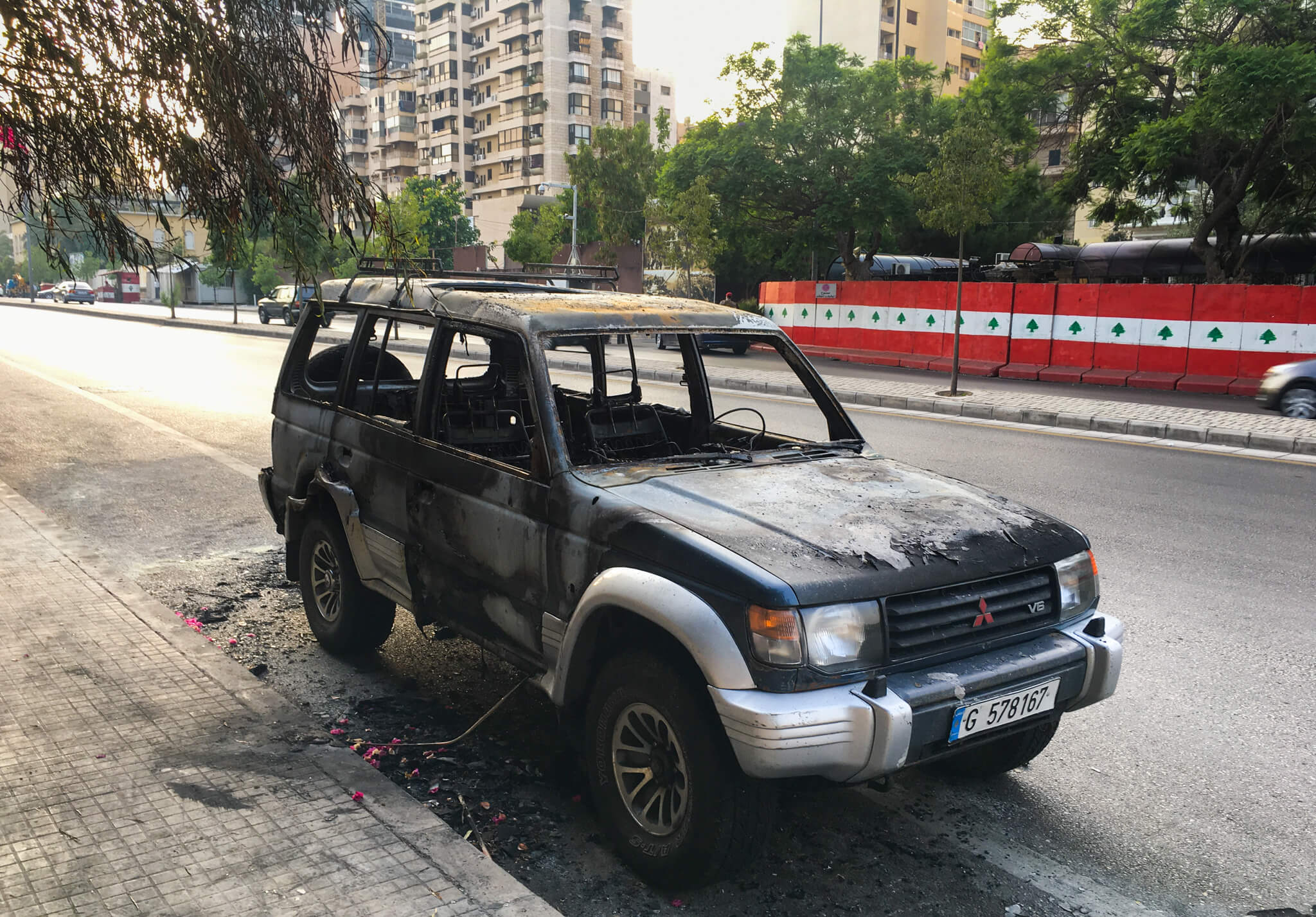
Protests occasionally turn violent, but luckily protest areas are easily avoided by visitors.
Impact of the Crisis – Hyperinflation
The most important thing to remember is to bring enough cash for the duration of your stay. The best currency to bring is USD, but other common currencies, such as EUR and GBP, can also be exchanged at black market rates. Licensed currency exchange shops are now permitted to exchange currency at black market rates, so you no need to be hooked up with a black market dealer.
Pro tip : before coming to Lebanon, download the Lira Rate or Lira Exchange app for your smartphone. These apps show the current black market rates and, although the rate on the street is usually slightly lower, give you a good guide as to the approximate rate you should expect when changing money.
If you do run out of money in Lebanon, don’t withdraw money from an ATM if you can possibly avoid it. ATMs currently operate at the official rate of 15,000 LBP to the USD, so you’re losing most of your money to the banks. The same applies to paying for things priced in LBP with credit/debit cards. ATMs no longer offer USD currency withdrawal for foreign bank cards. The best approach for travellers is to use a currency transfer service like MoneyGram or Western Union, which allow you to transfer in foreign currency and collect it in USD.
One knock on effect of the economic crisis is that Lebanon is now significantly cheaper than it used to be. Hotels have started charging foreigners in dollars again, but everything else, and especially food, is much cheaper than it was before. A good Lebanese meal for two in a normal restaurant will usually cost about $15, including drinks. In a slightly more upmarket restaurant, expect to pay around $30.
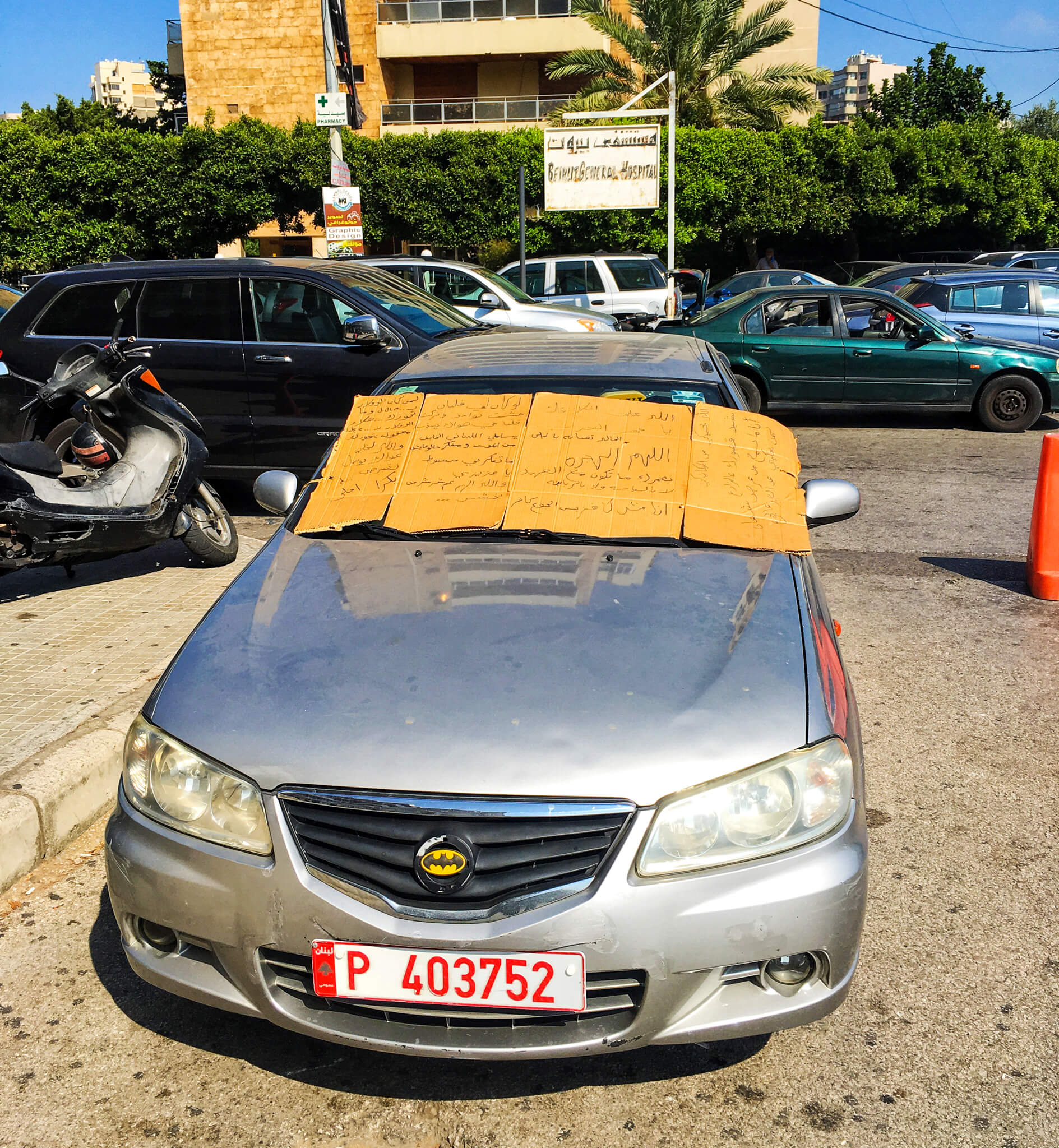
The economic crisis is so bad that Batman had to trade in the Batmobile.
Impact of the Crisis – Safety
Crime rates in Lebanon are very low and, although they have risen recently as people become increasingly desperate, rates of petty theft are still lower than in most of Europe and criminals in general do not specifically target foreigners. That said, the atmosphere can feel tense and the fortifications erected in some areas (lots of barbed wire, concrete barriers and patrolling soldiers) can give the impression that the safety situation is worse than it is.
Most violent incidents that have been in the news recently have occurred during protests, often of a political nature. If you do see the beginnings of a protest, such as groups of people marching together or tyres burning in the road, simply turn around and leave the area. Protests usually start peacefully, but build to a point where the demonstrations spill over into violence. Again, protests do not target foreigners, but there is a risk of being caught in the violence if you stick around.
An unfortunate legacy of the Lebanese civil war is that a lot of the populations still own guns. At a recent protest in Beirut, not only were there shootings with machine guns, but the violence escalated with the use of RPGs. This is an extreme case. Again, I stayed away from the area.
Guns are also often used at funerals or celebrations, where they are shot into the air in waves of celebratory gunfire. Unfortunately, what goes up must come down, and people are occasionally killed by falling bullets or by bullets entering buildings through windows. If you do hear shooting while you’re in a building, move to the interior, away from the windows and wait for it to subside. If you’re outside, leave the area. Funerals rarely happen in the city centre, which is the most interesting area for foreign travellers, so you probably won’t come across them anyway. Furn El Chebek, Chiyah, Tariq El Jdideh and Jnah are common areas for funerals.
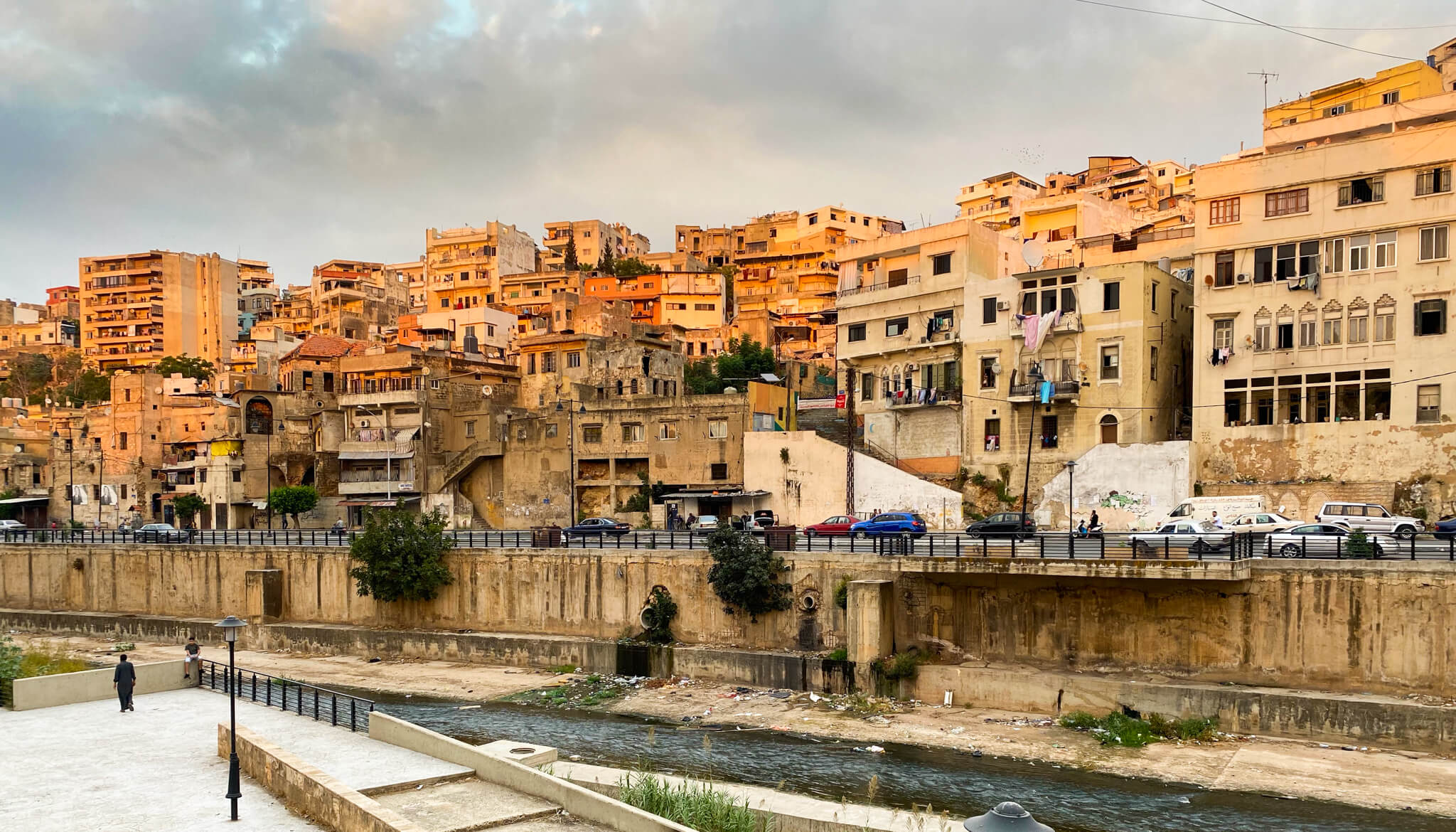
Lebanon is generally very safe. Even walking through the slummier neighbourhoods of Tripoli, Lebanon’s poorest city, I never felt unsafe.
Certain areas of Beirut experience violence far more than others. In general, the southern suburbs of Beirurt, south of main road where the National Museum of Beirut is located, are less safe than the city centre. In particular, Chiyah, Cola and Tayouneh and Tariq El Jdideh have all seen violent protests. Martyr’s Square and the Beirut souks area also see frequent protests, but these tend to be less violent than those in the south.
As a tourist, the only areas you’re likely to visit to the south are Badaro (an upmarket bar street) and the Cola Intersection, as it’s the main hub for public transport to the south and the Bekaa Valley. I visit these locations regularly and have never had problems, but keep an eye out just in case.
This may all sound very scary, but actually Lebanon is very safe for tourists. Even now, by far the most dangerous thing is the roads, where accidents are frequent. Just use a bit of common sense and you’ll be fine.
Impact of the Crisis – Fuel
One of the best ways to see Lebanon, and especially the more remote parts, is to rent a car and drive yourself. During the summer of 2021, fuel became extremely difficult to obtain, often requiring queuing for hours (if you can even find a fuel station that’s open). The only other option was to purchase it on the blackmarket at vastly inflated prices.
The good news is that, since the end of September 2021, fuel has been readily available again. The government has let the price of fuel rise to close to market value, which has reduced incentives for fuel hoarding and smuggling to Syria.
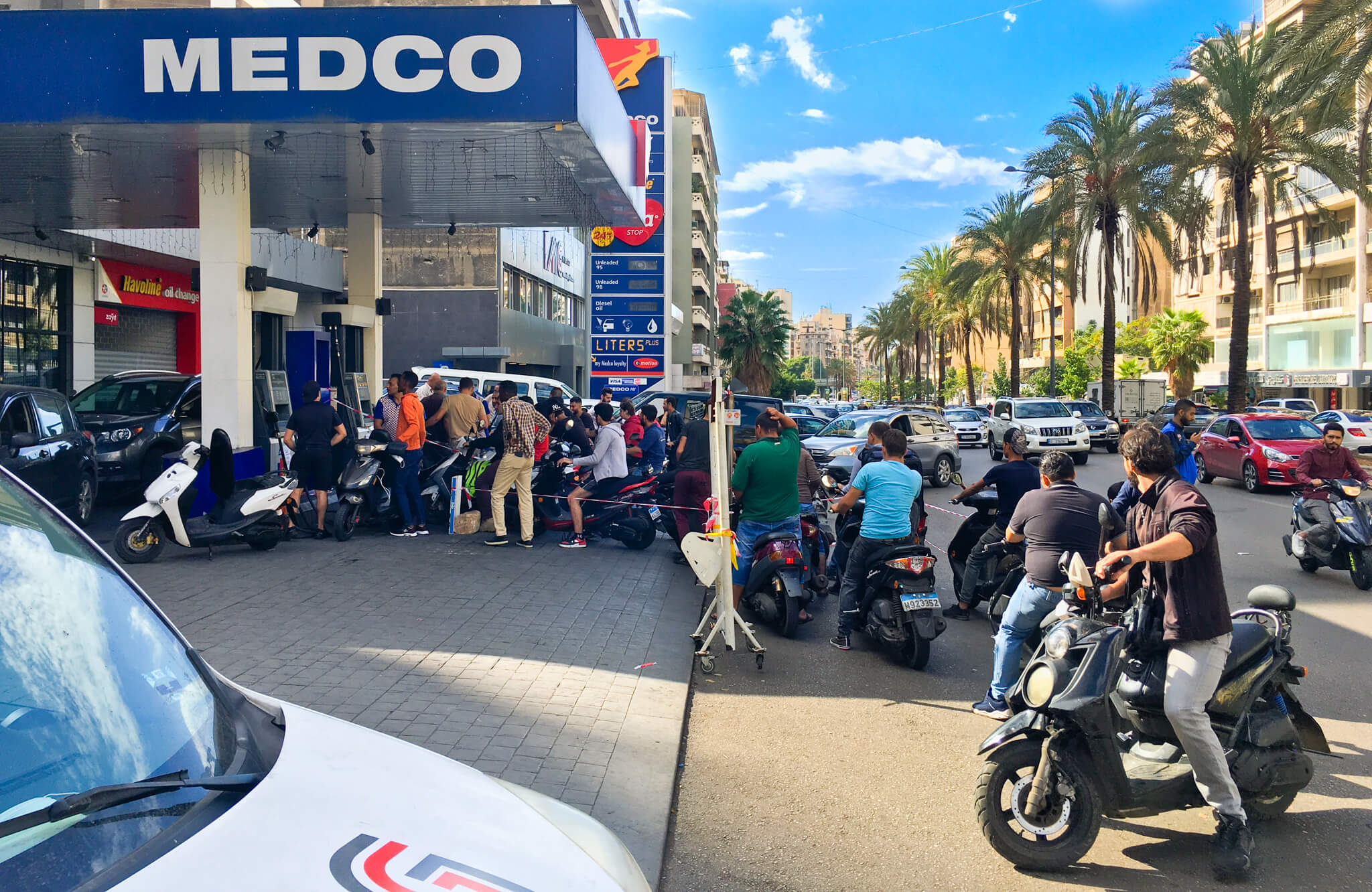
Bikers queuing for fuel at the peak of the fuel crisis in 2021
Ethics – Should I Visit Lebanon During the Crisis?
With frequent power cuts and shortages of some products, many people question whether they should visit a country while it’s in crisis, as they feel they may be using limited resources that are needed by the local population. In the case of Lebanon, the answer is definitely yes, you should visit. Lebanon produces very little domestically – even 80%+ of food is imported. Shortages are not caused by a lack of supply on global markets, they’re caused by a lack of financial means to purchase supply (compounded by corruption and a range of other factors).
By visiting Lebanon, you are bringing much needed foreign currency into the country and, by buying products and services from local businesses, ensuring that it reaches local people who need it. One of the biggest problems for Lebanese people is that the value of the LBP to the dollar is so low, which makes imports expensive. Everytime there is a large influx of visitors, for example with the Lebanese diaspora returning home over Christmas, the LBP gains value, helping local people. This shows the positive effect that an influx of foreign currency has and, as an individual your contribution will be small, but will certainly be positive. In other words, don’t feel bad about visiting!
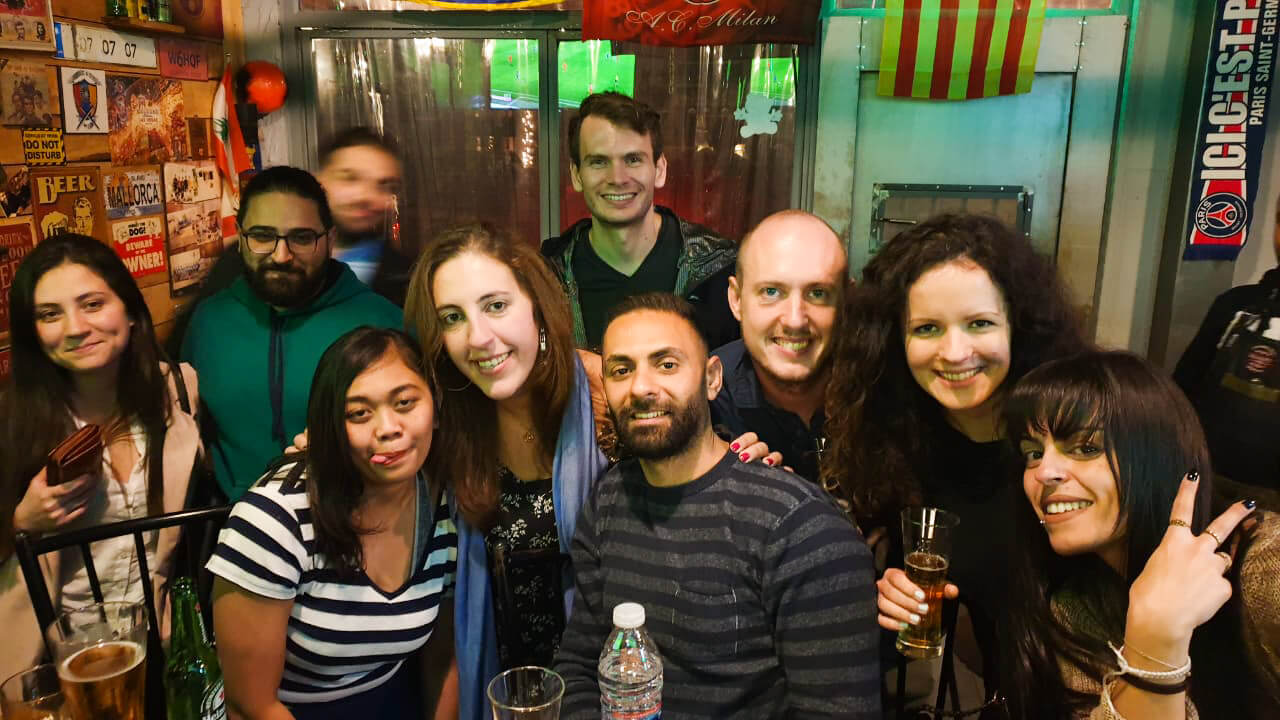
Lebanese people are very good at enjoying life, even in the middle of a crisis.
One of the best ways to see Lebanon is to rent a car. Car rentals are cheap now (about $20/day for a small car, including insurance) and Lebanon is a very car-based society. A deposit of around $100 is often requested in cash for your first rental. So far, I’ve not heard of any problems having this refunded. In theory, an International Driver’s Permit is required, but in reality no one cares, at least not if your local driver’s licence is in English, French or Arabic.
I usually rent from Mike Rent-a-Car, which is a good option if you want to support local businesses. The price is generally $20-30/day depending on the season for a small car and their Website is at www.mikerentacar.com . Their office in Beirut is located here . Alternatively, the big international car rental companies, such as Avis and Europcar , also operate in Lebanon. They also have the advantage of having a presence at the airport, so you don’t need to bother with other transport to get to your accommodation.
Cars and Drivers
If you don’t feel confident driving in Lebanon, it is possible to hire a car and driver from a hotel or hostel. This can cost upwards from around $70 a day plus fuel, but hotels may charge significantly more.
Ride Hailing Apps
Uber and Bolt both work well in Beirut. Bolt is usually slightly cheaper, but Uber cars are generally in better condition and the drivers are more professional. These apps are also by far the cheapest way to get to or from the airport in Beirut. Just be sure to change the payment method to cash, as credit cards are billed at the official exchange rate so you’ll end up paying $50 for a 5-minute trip across town.
Public Transport
Lebanon has an informal public transport network made up for service (shared) taxis and minibuses. These are operated privately with pricing regulated by the government. There are also public buses from Beirut to Tripoli. Vehicles licensed for public transport, including taxis, all have red number plates (or red lettering on the number plate).
To catch a service (shared) taxi, stand on the edge of a road (main roads are usually better) and hold out your arm when a taxi comes past (look for the red number plates). Ask the driver “Service?” If he agrees, it means the taxi is shared, so you will not be charged for a private journey. Then tell him your destination. If he’s going in the right direction and willing to take you there, he’ll agree. Finally, ask him the price. Most drivers are very honest, but a few do try to overcharge foreigners.
Inside Beirut
Service taxis operate throughout Beirut, although explaining the destination can be tricky. Often, the easiest approach is just to say the name of the area, such as “Hamra,” “Gemayze,” “Daora,” or “Cola.” Minibuses on set routes also operate, but finding the routes is extremely difficult, so use the same approach as when taking a service and ask the driver whether he goes to your destination. Prices for service taxis are just over $1 and for minibuses around $0.50.
Northern Lebanon
Shared taxis and minibuses run from the Daora roundabout in Beirut up the coastal highway to Jounieh, Byblos, Batroun and Tripoli. Prices vary, but are cheap, starting at about $1 to Jounieh. Just ask the drivers whether they go to the city you want to reach.
For Tripoli, there’s also a bus that runs on an actual schedule from Martyr’s Square in Beirut.
Their current schedule can be found on their Facebook page at https://www.facebook.com/connexion.transportation .
Southern Lebanon and the Bekaa Valle y
Minibuses run from the Cola Intersection in southern Beirut down the coastal highway to Saida and Tyre, as well as to Baalbek in the Bekaa Valley and to the Chouf region. To visit the Chouf Biosphere Reserve, catch the bus to Barouk, the name of the nearest village. From there, you need to walk several kilometres to enter the reserve and there is no public transport. Hitchhiking could be an option.
To reach Anjar, take the minibus to Baalbek and get off at Chtoura. From here, there are other minibuses running to Anjar.
The Jeita Grottoes
The Jeita Grottoes are located about halfway between Beirut and Byblos, approximately 5km from the highway. Take public transport from the Daora roundabout and get off at the Ajaltoun exit of the main highway (coordinates 33.960616, 35.604071, here on Google Maps ). From here you can either walk (5km uphill) or take a taxi. There are usually several drivers hanging around this area, although prices can be high and will depend on your negotiation skills. To get back to the highway afterwards, you can usually find a driver in the Jeita Grottoes carpark. Another good option to reach the Jeita Grottoes is to take an Uber all the way from Beirut. Uber is cheap in Lebanon, so this works out around the same price.
I’m not aware of any public transport option to reach this area of the country (including Aqoura, the Batara waterfall and the Cedars of God), so your options are really driving or hitchhiking.
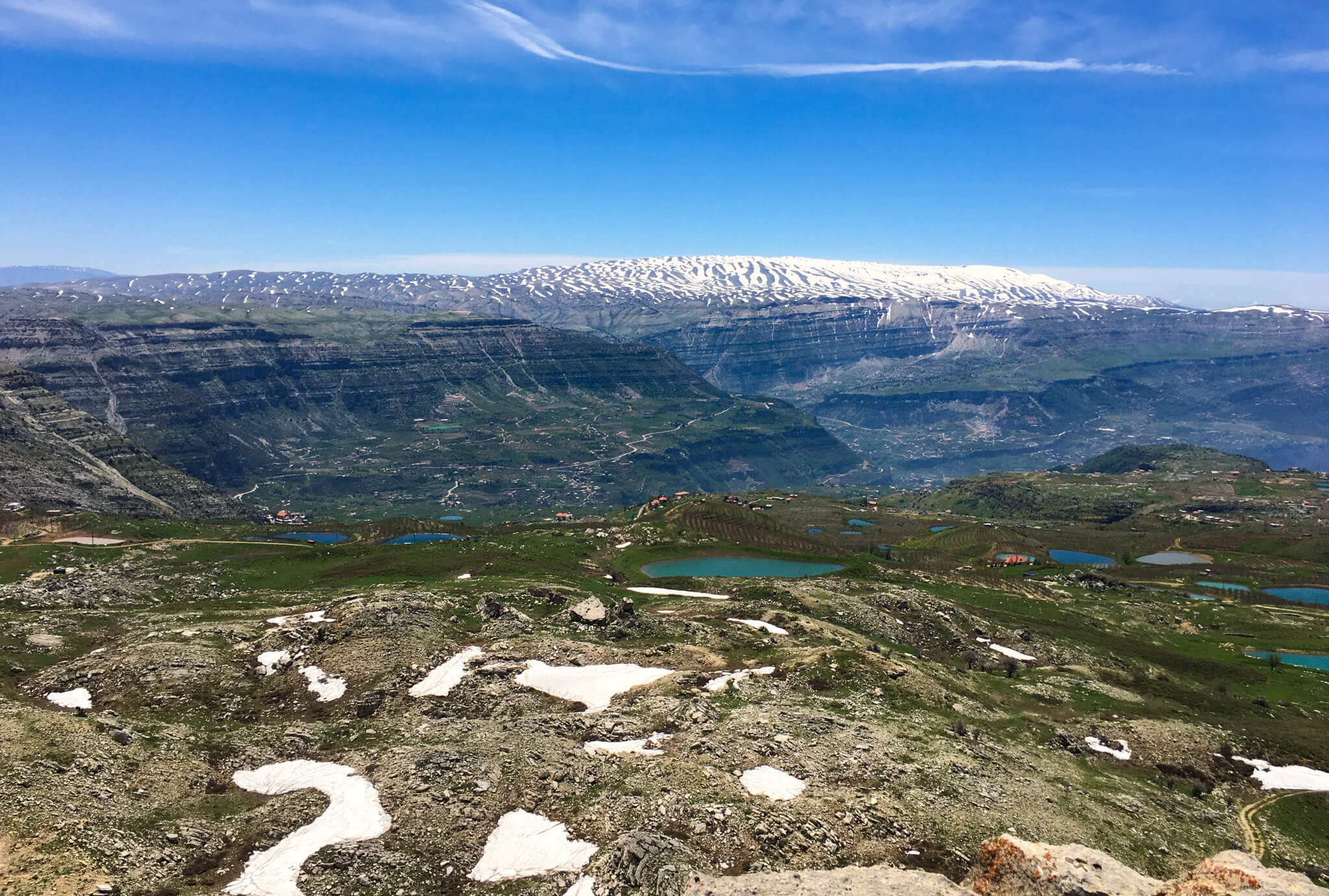
The view from Aqoura – there is still snow on the mountains in early May. The northern mountains are a pain to get to without a car, but worth the effort.
Transport to and from Beirut Airport
Uber is a cheap and convenient way to get to or from the airport in Beirut. This should cost around $6. However, this can be tricky when first arriving, due to needing to obtain Lebanese pounds to pay the driver. If the exchange counter at the airport is not open or the rate is bad, you can try negotiating with the Uber driver to pay in USD at the black market rate.
There are always plenty of local taxis waiting at the airport to take you to the city centre. These often try to charge ridiculous rates to foreigners – up to $50 for the 10-15 minute journey. With a bit of bargaining, you should be able to agree on around $10.
Checkpoints
There are military checkpoints on the roads throughout Lebanon and even within some parts of Beirut. Generally, they wave foreigners through without saying anything. If driving yourself, slowdown at the checkpoint, wind down the window and greet the soldier. Most times, he’ll wave you though before you even come to a stop.
In my two years here during which I’ve travelled the country extensively, I’ve been asked twice for my nationality and had my passport checked once (so carry it with you, just in case), and that was on the road between Hermel and Qobayat, one of the most remote parts of the country.
Entering the UNIFIL-Controlled Area
The only exception to the above is the checkpoints for entering the UNIFIL-controlled area south of the Litani river near the border with Israel. Foreigners can only enter with a permit obtained in advance (with the exception of UN employees). To obtain the permit, visit the police headquarters in Saida with your passport. The police station is at coordinates 33.550327, 35.381710 ( here on Google Maps ). You need to bring your passport and colour photocopies of the identity page and your entry stamp to Lebanon (and visa, if you come from a country that needs a visa to enter Lebanon). It generally takes less than one hour and permits can be issued for entry on the same day. Permits can be obtained for one or multiple days.
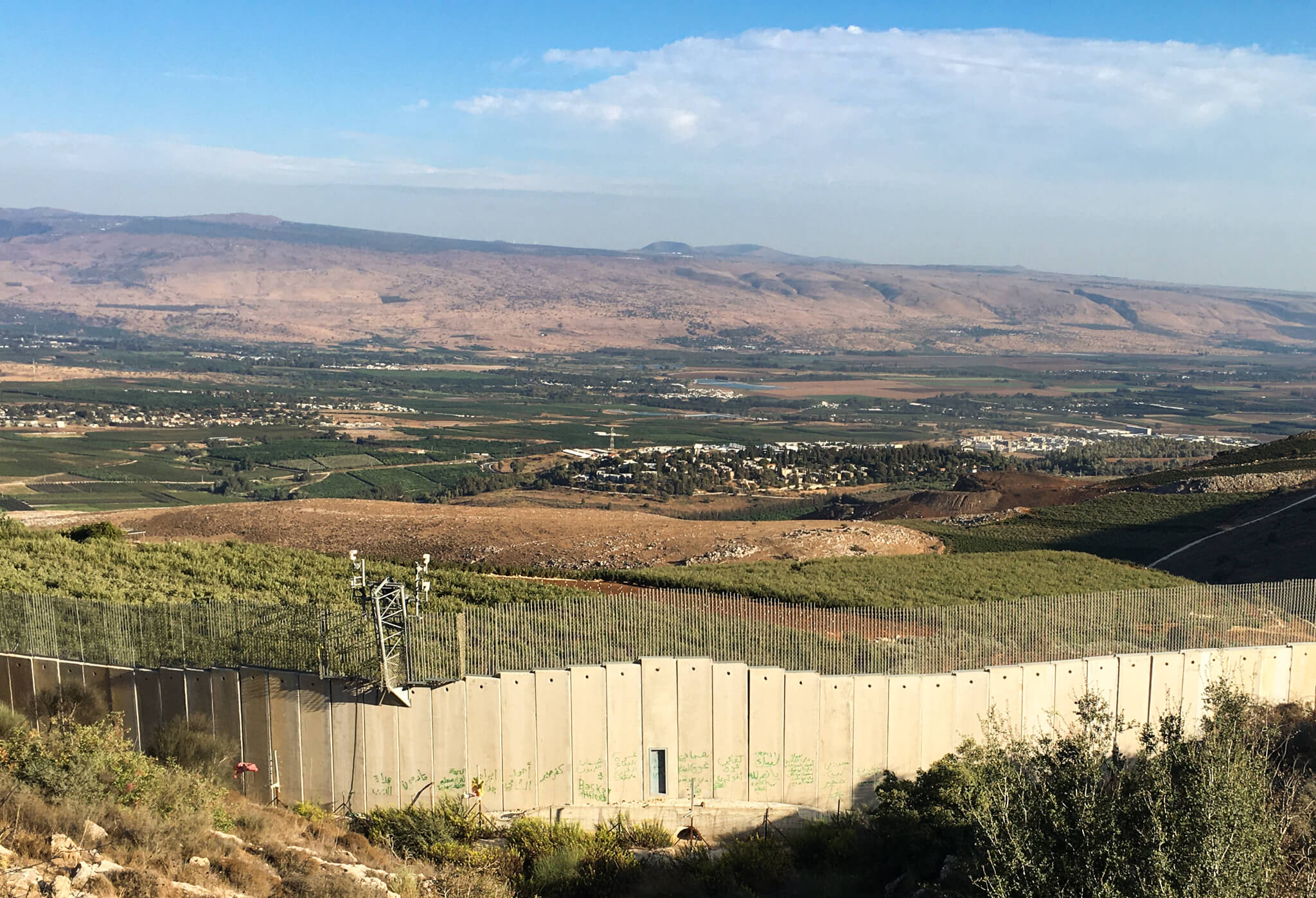
Northern Israel, as viewed over the imposing border wall in south Lebanon.
Recently (as of early 2023), the black market exchange rate has been hovering around the 80,000 LBP to the USD rate, whereas the official rate is 15,000 LBP. Previously, currency exchange shops were prohibited from giving the black market rate, but the government has relaxed this rule, so any currency exchange shop can exchange money for you. Just make sure you bring plenty of cash.
Whatever you do, don’t use a foreign bank card in an ATM or to pay in shops. The banks still apply the official rate, so you’ll be paying several times the real price.
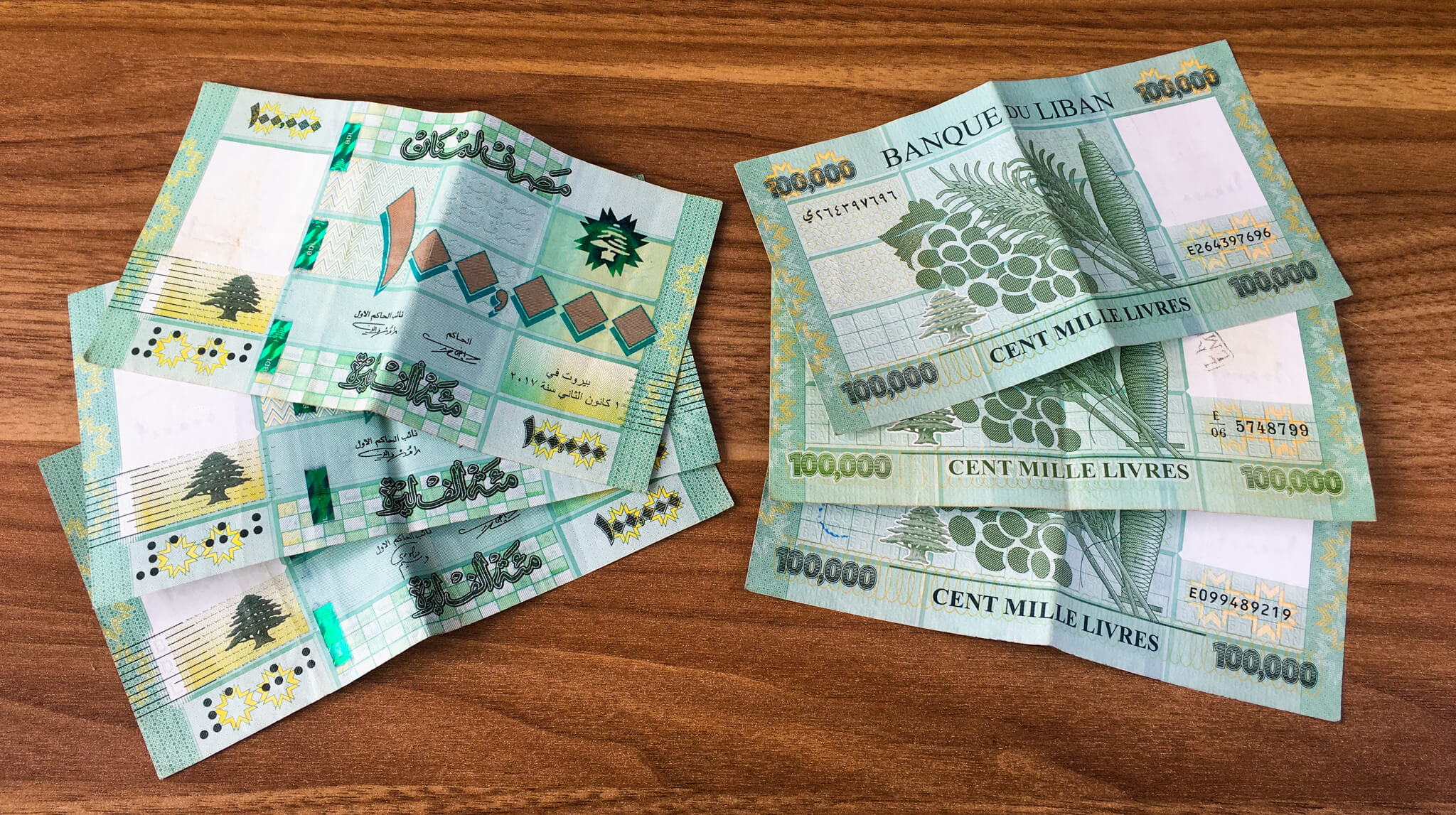
Pre-crisis, these notes were worth about $66 each. Now they’re worth around $3.
Mobile Phone Service and SIM Cards
Lebanon has good mobile Internet even in most rural areas. SIM cards are widely available from mobile phone shops. I use Alpha, which has good 4G coverage across most of the country. Passports are not required to obtain a SIM. Prices fluctuate, but a SIM card with 6GB of data valid for one month can be obtained for around $20. I have been warned to check that the seller gives you the packaging to ensure that it’s not a reused, although I’m not sure what the problem would be with this..
Restaurants and Coffee Shops
One of the greatest pleasures of visiting Lebanon is the food. This list is by no means exhaustive, but here are my favourite restaurants. I happen to like coffee a lot, so I’ve also slung in a few coffee shop recommendations for good measure.
- Resto Ghazar: My favourite Lebanese-Armenian restaurant. Try the soubeureg (cheese pastries), mouhamara (pomegranate with nuts) and manti. Although not Armenian, their batata harra (spicy potatoes with coriander) is also out of this world. Prices are very reasonable, at about $10-15 a person, including drinks.
- Ohannes Restaurant: Another great Armenian restaurant, with beautiful tiled decor. The food is also great, especially the Ohannes salad and fried liver. This place is a bit more upmarket at about $15-25 per person, including drinks.
- T-Marbouta: A variety of great Lebanese food in the heart of Hamra with a nice outdoor seating area. About $8-15 a person, including drinks.
- Sawani Falfoul: A great place for breakfast in Badaro, an upmarket bar street. In particular, try the foul (a kind of chickpea soup, pronounced like the word “fool” in English), shakshuka (scrambled egg with tomato) and hummus (the “Malaysian” hummus is particularly good, if not very Lebanese sounding).
- Barbar Restaurant: Basic but tasty Lebanese barbeque restaurant in Hamra. Not sure of the current price, but cheap!
- Le Chef: A traditional Lebanese restaurant that claims to be the oldest in Lebanon, although my Lebanese friends tell me that this is bullshit. The place has a lot of character and was saved from bankruptcy by a donation from Russel Crow, who once ate there, after being destroyed in the port explosion in August 2020.
- Notes Speciality Coffee: My local coffee place. Great brews and the chance to meet me if you’re there in the morning (I often work from there).

Quail eggs with basterma (seasoned meat) – an Armenian-Lebanese delicacy.
- Fenicia: This restaurant is so good that I have hardly eaten anywhere else in Byblos. Up there with Resto Ghazar as one of my two favourite restaurants in Lebanon. The environment is elegant and the food is absolutely out-of-this-world. The cheese/shrimp rolls and the mixed grill plata are my recommendations. Prices are about $15-25 per person, including drinks. The only problem is that they don’t take reservations and getting a seat can be difficult.
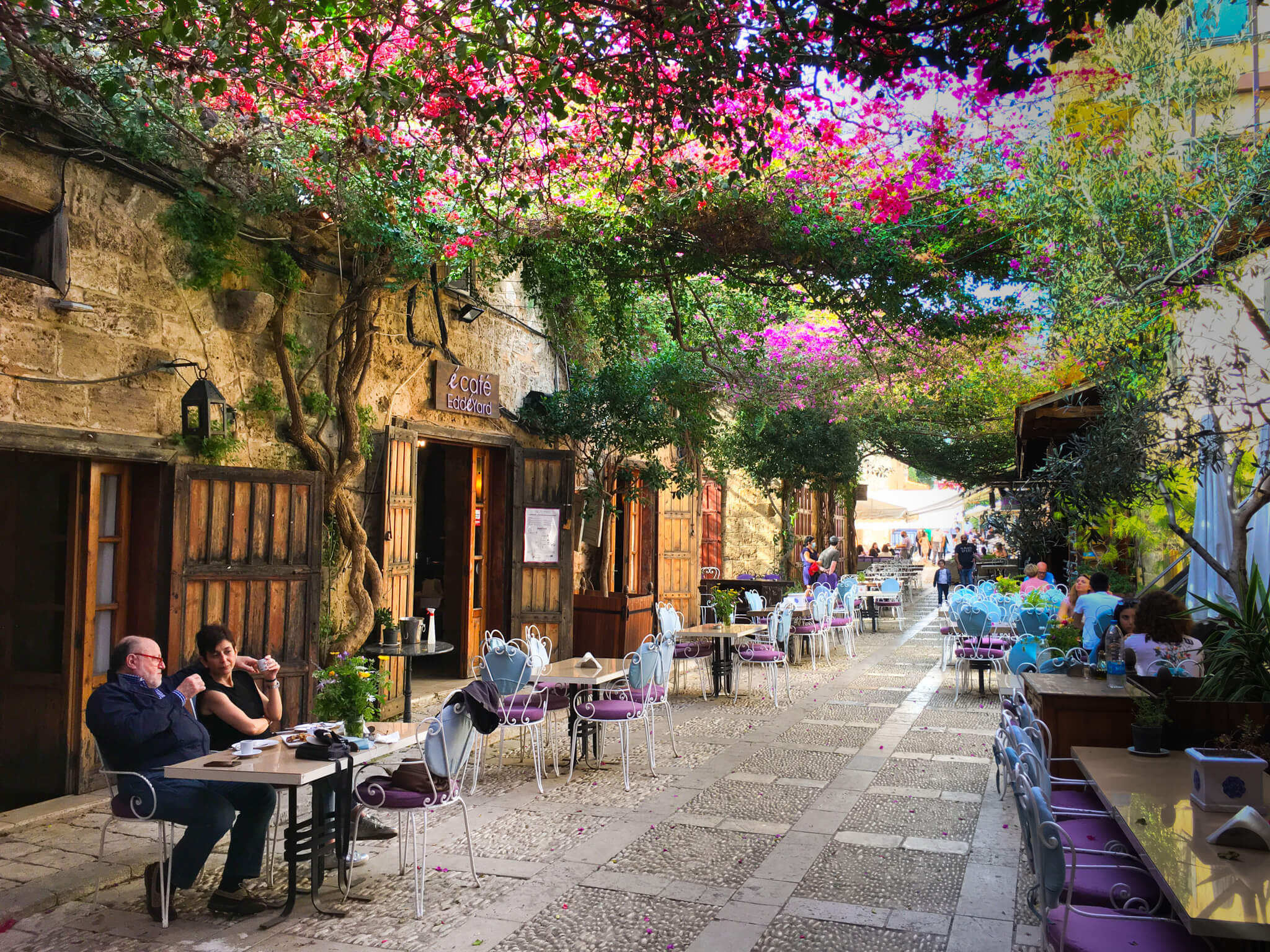
Byblos has many local restaurants, like this Italian one, where you can sit outside and enjoy the old town vibe.
- The Colonel Brewery: Lebanon’s most famous craft beer brewery, the Colonel recently opened a restaurant with a view of the Mediterranean and a great selection of fresh seafood. Try the delicious raw fish if you’re feeling adventurous. A meal for two including drinks is around $30.
- Barrio 67: Not Lebanese cuisine, but delicious international food and nice decoration in the heart of the old town. Prices are about $15-25 per person, including drinks.
- The Sailor Woman: this cute little restaurant serves only six dishes – fish with tahini, calamari, octopus, french fries, fattouch (traditional Lebanese green salad) and Tabbouleh (traditional Lebanese salad with Parsley). What makes it so special is that all the cooking is done by a little old lady in her apartment, which is just next to the restaurant. The fish is also very fresh, as Tripoli is the centre of the Lebanese fishing industry.
- Newtown Coffee: Great place to take a break from sightseeing and chill. Nice environment and good coffee.
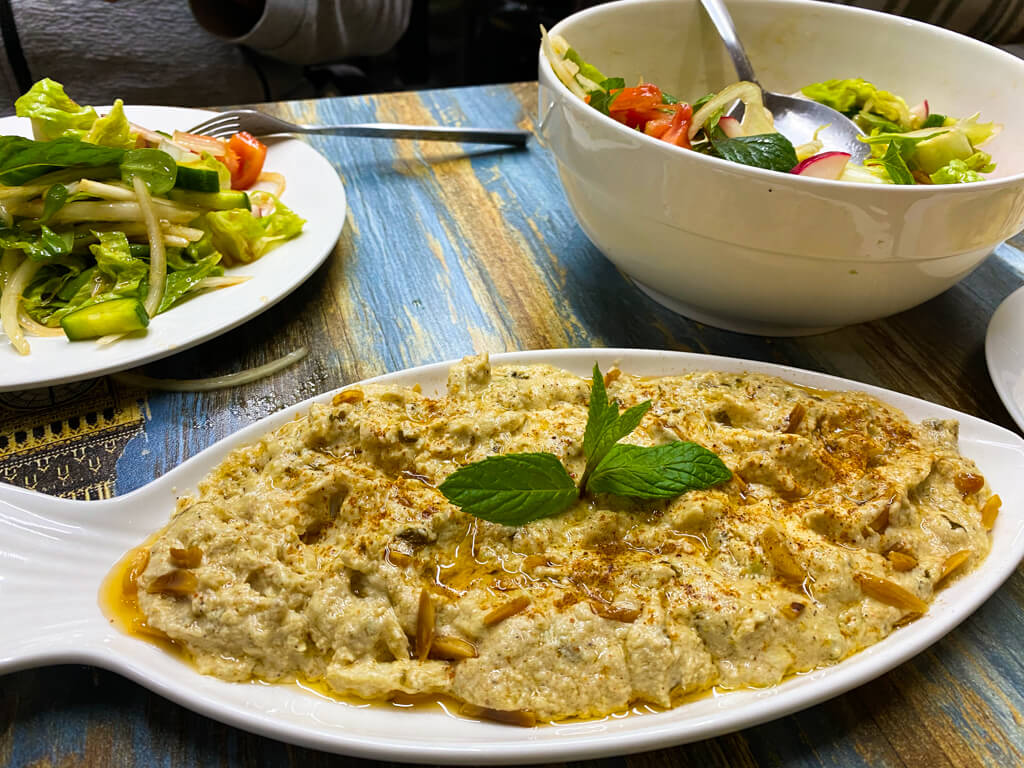
My favourite fish in Tahini at The Sailor Woman restaurant.
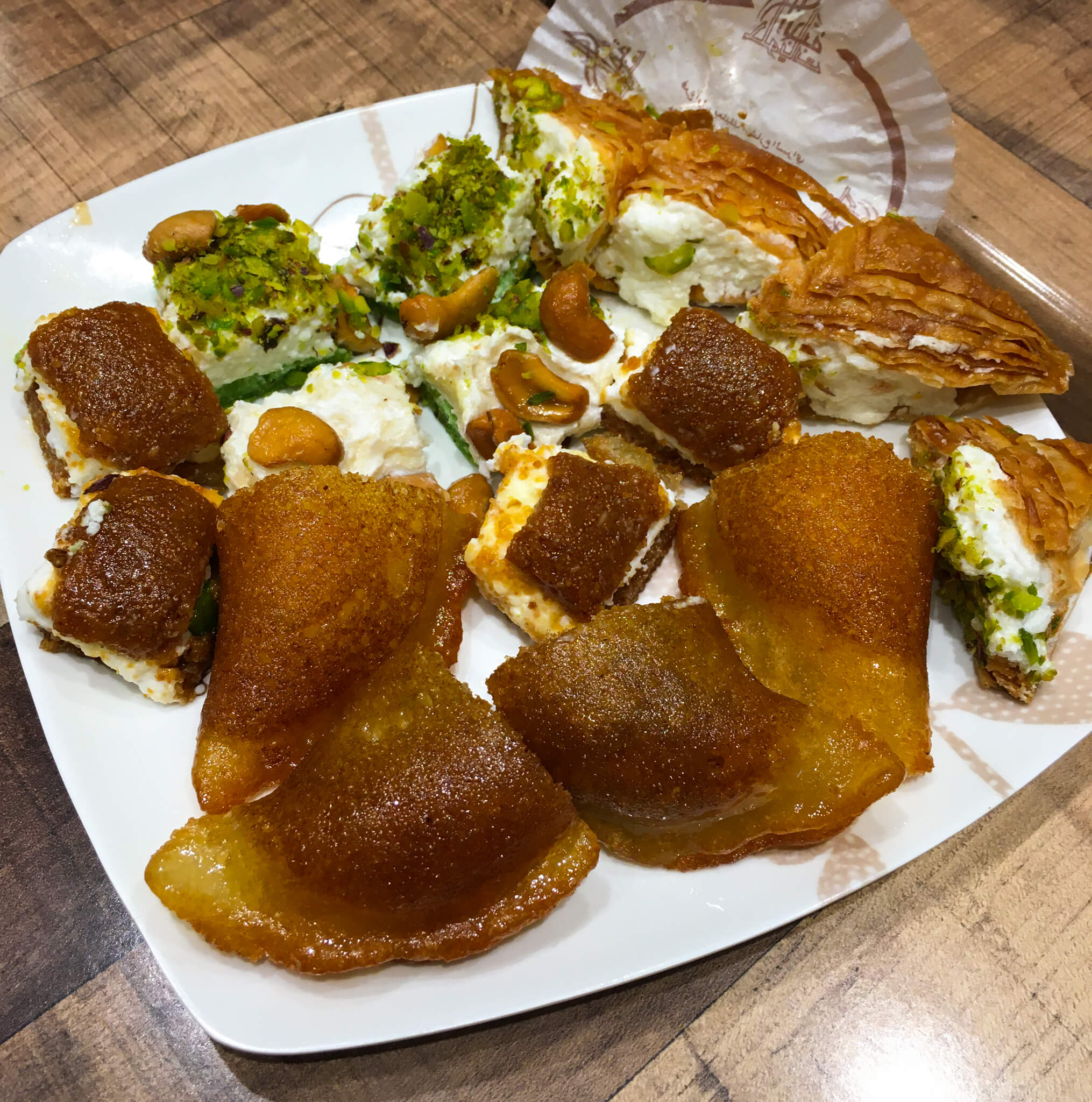
Be sure to try some Lebanese sweets, which can be found across the country.
- Foul Abou El Ezz: Another breakfast place, simple, very local and delicious. Try the foul (a kind of chickpea soup, pronounced like the word “fool” in English) and hummus.
- Green’s Coffee: One of my favourite coffee shops in Lebanon with a great selection of coffees and even a deli counter. The environment is top-notch with a nice retro feel.
- Resthouse: Overpriced (although still cheap by international standards), but with a great view of the Seafort and the only place allowed to sell alcohol in Saida. Perfect for a beer with a view on a hot summer’s day.
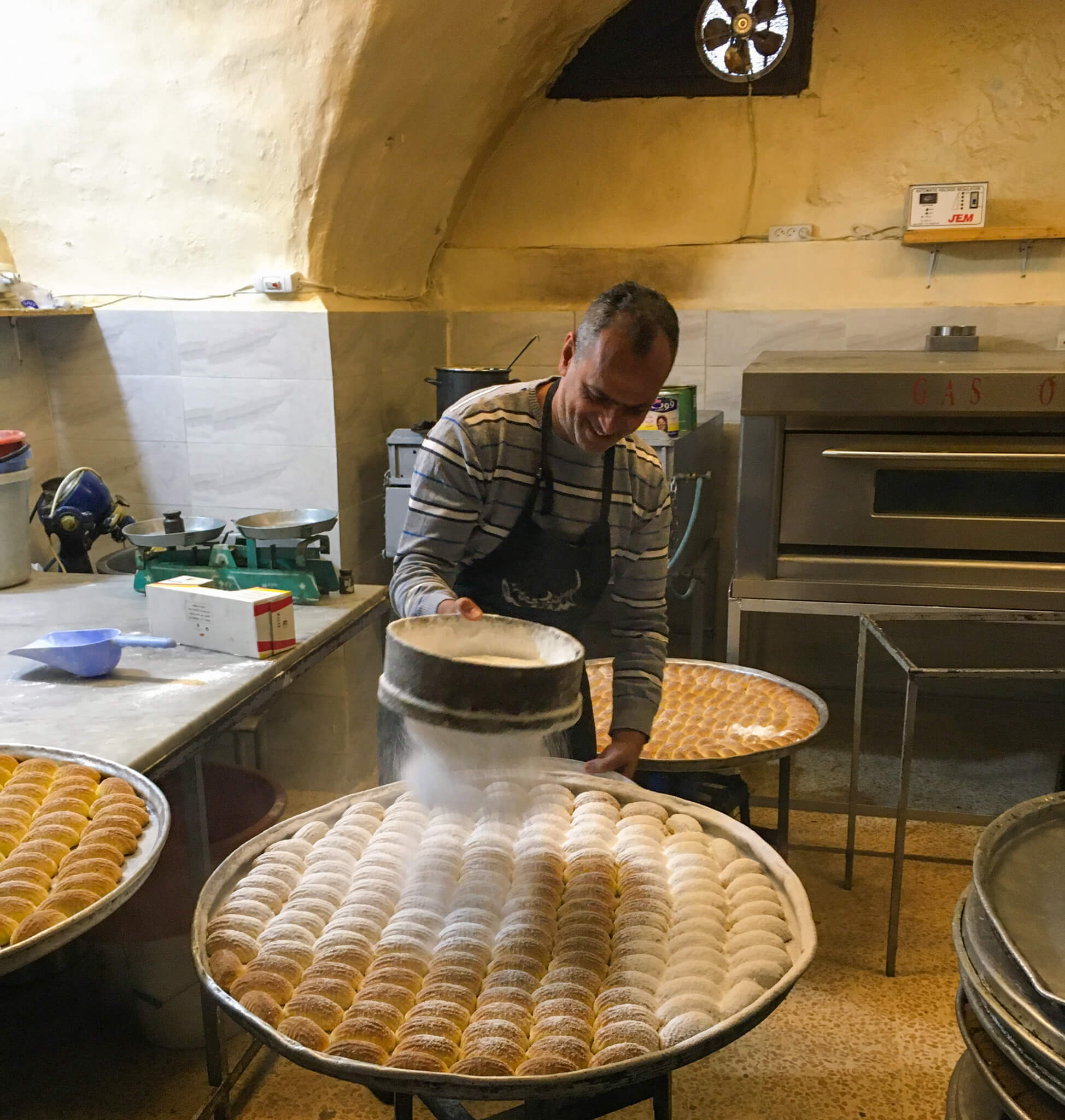
A man making local sweets at a little bakery in the winding streets of Saida’s old bazaar.
- Local sfeeha place: On the main street of Baalbek, on the left as you’re walking away from the Roman ruins, you’ll come across what is basically a traditional oven in a room on the edge of the street with a few tables outside (approx. coordinates: 34.005245, 36.208302, here on Google Maps ). They make one dish – delicious sfeeha, the traditional meat pastry originally from Baalbek – and they make it really well. It’s a while since I’ve been there, so not sure of the exact price, but twenty sfeeha cost a few dollars.
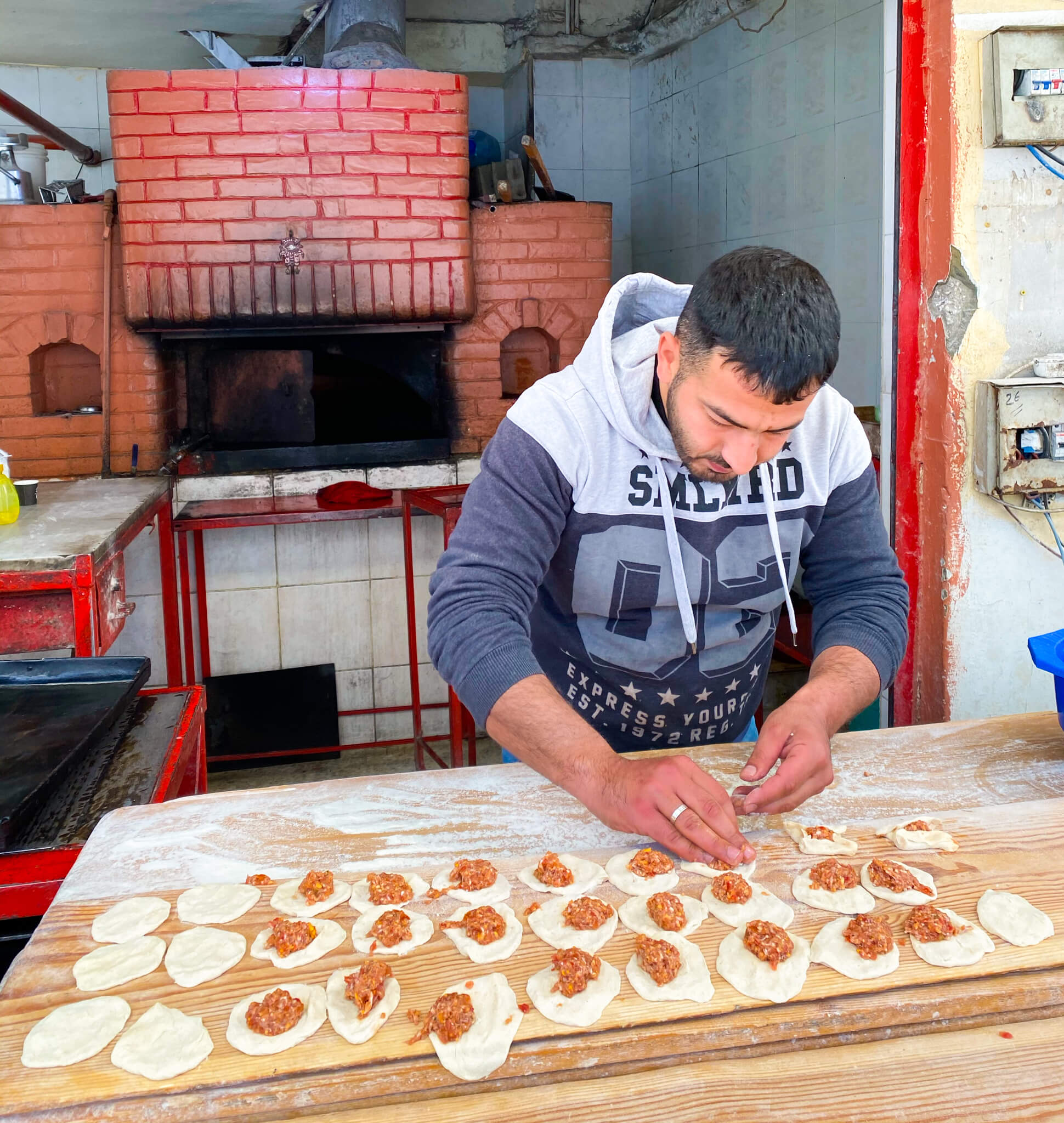
Local sfiha meat pastries being prepared for the brick oven.
- Fresh seafood: Tyre has a wonderful selection of reasonably-priced fresh seafood restaurants overlooking the harbour. The location is at 33.274307, 35.194684 ( here on Google Maps ) and there are several small restaurants with harbour views nearby. Prices start from about $10 a person, including drinks.
Accommodation
Hotels recently switched to charging foreign tourists in USD and so the prices are roughly the same as before the crisis. You may be able to negotiate a deal with some of the smaller places when you’re here, but that’s tricky to do in advance. AirBNB can be a very good option and relatively cheap. With any accommodation, check the hours that they have electricty before booking.
Couchsurfing
Lebanon has an active Couchsurfing community. Many people here host travellers and there are often events organised. If you’re looking to meet local people, this is a great way to do it.
Covid-19, PCR Tests and Entry Requirements
As of 28 September 2022, the Lebanese government cancelled all Covid-related requirements for entering Lebanon. Once in the country there are also no longer restrictions and masks are not required.
PCR tests are not required for departure from Beirut airport. However, if you need one for your next destination, they can be obtained at many hospitals in Lebanon. I have used Hotel Dieu de France hospital in the past. There’s also a lab that will send someone to your accommodation to do the test for you. It’s very convenient and the results are available same day, sent via WhatsApp. They can be contacted on WhatsApp at +961 3 444 925. Wherever you do the test, it will have a QR code. Prices vary depending on the exchange rate, but are generally around $10-12.
More about Lebanon
After two years living in Lebanon, I’ve visited almost every inch of the country. You can read about my adventures here:

Jezzine Travel Guide
Why Visit Jezzine? The picturesque village of Jezzine is perched high on a cliff top overlooking the incredible Jezzine waterfall - at 90m (295ft), one of the highest waterfalls in Lebanon. It’s also practically surrounded by Bkassine forest, the largest pine forest...
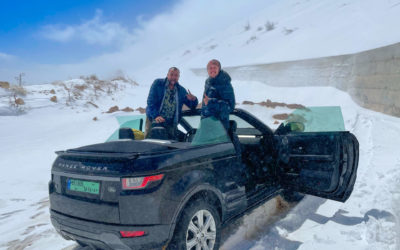
Hermel & Beyond: Road Tripping Remote Lebanon
Hermel & Beyond: Road Tripping Remote Lebanon As a Scot, I’m used to living in countries far bigger than my own. Lebanon is the exception - the entire country is only about 200km long and 80km wide at its widest point. So how, you might ask, can there be ‘remote...
Looking for even more great ideas? Here’s another in-depth travel guide to Lebanon by Romana and Jakub at Broken Naviation, including hotel recommendations for all budgets (living here I don’t stay in hotels much). They have some really beautiful photographs too. Check it out here:
- How to Travel to Lebanon in 2022 & 11 Days Itinerary
Don’t forget to leave a comment below if you enjoyed the article or have questions!
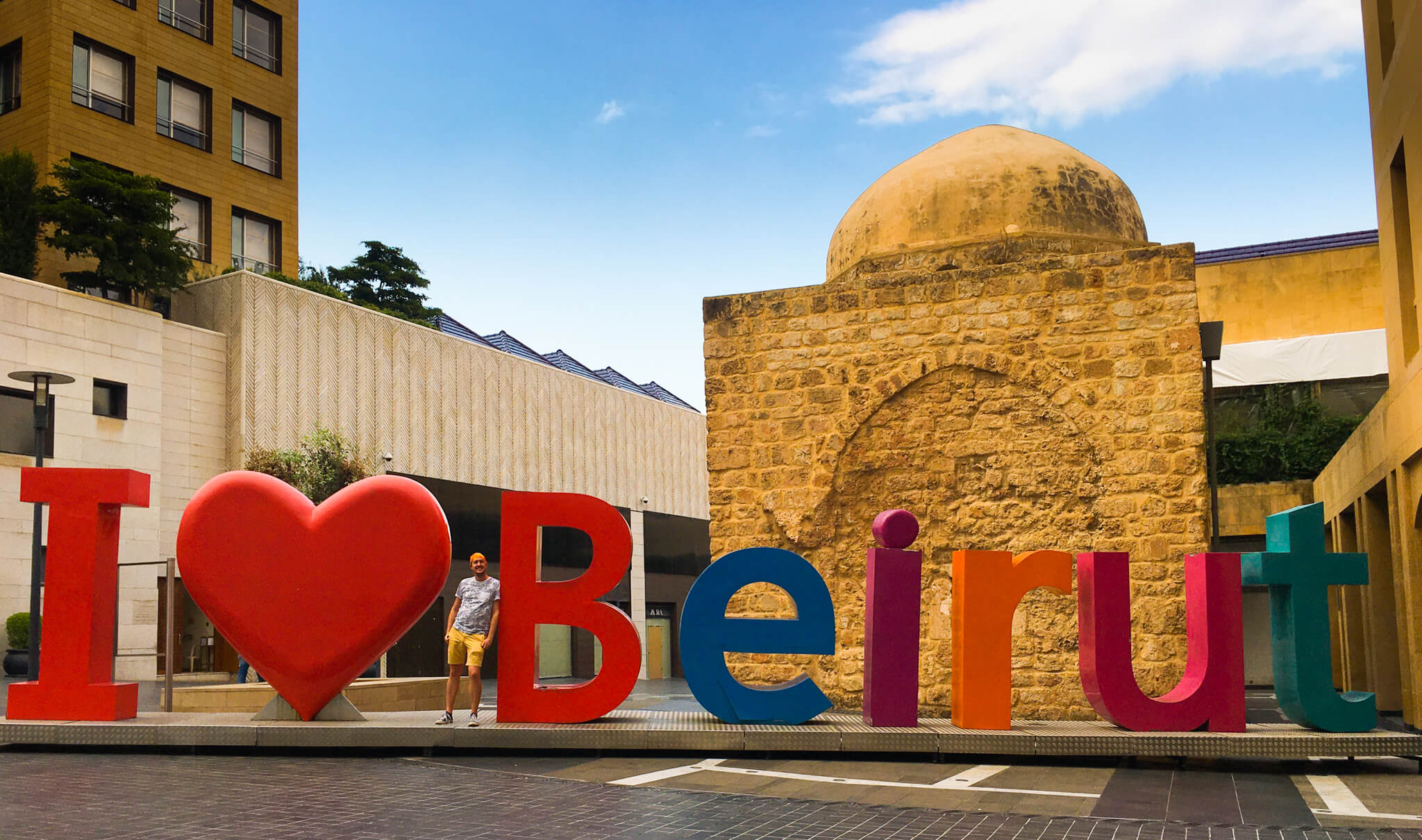
Beirut is one crazy beautiful city in one crazy beautiful country. I can’t not love it.
Recent Posts
- How to Visit Kassala and Hike the Taka Mountains
- What to do in Port Sudan and the Coral City of Suakin
- How to Visit the Meroe Pyramids, Naqa and Musawwarat es-Sufra
- How to Visit Karima and the Barkal Pyramids
- How to Visit Nubian Sudan: Abri and Kerma
Recent Comments
- rowan on Siwa Oasis Travel Guide
- Debjani Kundu on Siwa Oasis Travel Guide
- rowan on Iraq Independent Travel Guide
- August 2022
- August 2021
- September 2020
- August 2020
- December 2019
- November 2019
- October 2019
- September 2019
- August 2019
- Alor Island
- Andhra Pradesh
- Northern PNG
- Papua New Guinea
- Sulaymaniyah
- Entries feed
- Comments feed
- WordPress.org
30 Comments
Wow, this is a great post. Thank you so much. We’re travelling to Lebanon for a week in May (9th – 15th) and were a bit unsure of what to see/do because of the crisis. This has helped a lot. I’m coming with a friend. Hit me up if you’d like to hang out.
Hey mate, great to hear the guide was helpful. I’m actually outside the country travelling Sudan at the moment (another amazing place), so won’t be around on those dates. Enjoy Lebanon!
I absolutely love this guide. I am a 50plus woman who travels around the world and I am in Egypt now. I want to go and spend a month there in June/July and would love to contact people who want to meet and Argentina my age or around my age. I am not rich, my country goes through the same struggles than Lebanon with the second highest inflation in the world. I do have a website on the works and I can recommend your site, I believe the only waay we can make a change is to share
Hi Monica, that’s great. I’m sure you’ll enjoy Lebanon a lot. For meeting people, you might want to try Couch Surfing. The community in Lebanon is quite active.
Thank you so much for the useful information. I’m travelling to Lebanon for a week in 30th May – 6th June and was uncertain of what to expect. You information has helped me feel more confident. I’m coming by myself as my partner can’t make it because of work commitments. Feel free to contact me if you’d like have a chat over drinks. PS I’m keen to go to Sudan and see the Pyramids there. Hope you enjoyed it.
Hi Morris. Great to hear that the information was helpful. I would definitely be up for meeting for a drink, as long as I’m in Lebanon at that time. Could you drop me a message on the quitandgotravel Instagram page? I don’t want to put my WhatsApp number on this page as it’ll inevitably get flooded with spam.
Sudan was amazing! Working on a guide for that now, but will take some time.
This is amazing, thank you so much for publishing this! I’ve had a hard time getting a real read on the situation. We are planning a trip in July, probably just Beirut for 4 or 5 days. Do you have any hotel recommendations?
Hi Katie, glad to hear it was useful. July is a great time to visit, the weather will be beautiful. Beirut is a great place to base yourself, but I would suggest to do at least a day trip to Byblos and the Jeita Grottoes. Regarding hotels, as I live here, I don’t stay in them and so don’t have specific recommendations. However, wherever you stay, the main thing to check is whether they have a generator and how many hours of power they have per day. Generally, the higher-end hotels have 24/7 power, whereas the lower-end ones could be just a few hours a day.
Hi Rowan, this was SO helpful, thank you! Hoping to visit May 27-June 4 but was nervous about the US government “level 3” travel advisory. I saw your disclaimer about the elections last week – how is the sentiment now?
Hi Lily, glad this was helpful. The elections have gone relatively peacefully, so hoping things will be back to normal by then. Time will tell, so feel free to reach out to me nearer the time to confirm.
Think your guide is really helpful mate. I’m looking to visit with my girlfriend for at least a week in Oct before flying on to India, but we will not hire a car to keep the costs down, so hopefully we can visit places like Byblos and Kadisha Valley by bus/shared taxi etc as we’d love to do some hiking. Thanks again.
Awesome mate, glad the guide was helpful. Lebanon is very doable with public transport (and maybe a bit of hitchhiking to Kadisha). Enjoy India!
Is the situation pretty unstable atm mate? Been looking at uk gov website and it seems to say avoid all but essential travel to Lebanon. Not going until Oct, so I hope thing may improve then, but would you say wait to see if it calms down a bit before booking flights, or just take the gov advice with a pinch of salt? As your blog seems to indicate its not too bad 🙂 sorry for the bombardment of questions!
Hey mate, already replied to your email, but for anyone else reading, government travel warnings tend to exaggerate. It’s actually very peaceful here at the moment. Lebanese people are very friendly and crime rates are low. In Lebanon, the situation can change quickly, but I wouldn’t let that put you off visiting.
Hi Rowan, thanks for sharing those helpful Informations. Do you know if there is a possibility to get from Bcharré to Baalbek by public transportation in September
Hi Miriam. Glad the blog has been useful. Unfortunately, there is no public transport from Bcharré to Baalbek. By public transport, you’d need to go back to Beirut and then over the main highway to Baalbek, which is a huge detour. However, I’m sure you could hitchhike it without much difficultly. Lebanese people are very friendly and a female friend of mine who was volunteering in Anjar the past few weeks hitchhiked all over the country without problems.
Wowwwww I was just looking around, totally unsure about Lebanon and feeling no way I could Really do it but your post has totally changed my mind.
I hope to meet you for a coffee hello.
~A Solo woman traveller
Ps, Pls let me know your thoughts on overland travel from jordan through syria.
Hey, glad the blog helped inspire you! Overland travel from Jordan is possible with an organised tour, as that’s generally the only way to get the visa. It’s expensive but doable and I’ve spoken with people who’ve done it. A coffee sounds good, drop me a message on Insta @quitandgotravel when you know the dates.
This post re Lebanon is fantastic. I’m traveling alone; do you have any tour guide recommendations? Also, if you’re up for a cup of coffee and a chat, I’ll be there the first week of July.
Hi Stacy, great to hear the post is useful. I never use tour guides (except in North Korea, where it’s mandatory), so can’t recommend one. However, Lebanon is very doable solo. I’d definitely be up for a coffee and should be here that week. Can you drop me a message on Insta? @quitandgotravel
This blog was really helpful – I’m a solo female traveler and have been looking to go to Beirut to visit my friend’s dog and bring him doggie treats (and I guess say hi to my friend too and bring human treats) but with everything that has happened in the past two years it has been a bit difficult to get it organised. Due to my nationality it also appears the visa process will take longer than normal in my current country of residence. I would rather not have to get my (human) friend send some sort of invitation letter in order for me to get a visa, but I guess I’ll just have to see and try and Lebanese Embassy. I look forward to reading more of your blog.
Your poor friend, I can see that he or she is definitely second to the dog! Good luck with the visa though, I hope you get it sorted out okay, and thanks for your kind comments.
Thanks so much for this guide. I’m Lebanese background and even I found it very very useful. My Aussie partner and I are going to Lebanon in September and I’m wondering which neighbourhood to book our Airbnb. We want to be able to walk all of Beirut, prefer to flush toilet paper down the toilet haha and want to be walking distance to cafes, bars and be able to walk home safely afterwards (or is it safer to get a service/taxi?). Also did you have any issues with being overcharged for things? Memories of taxi drivers taking me around the block a couple of times in Syria and charging me double haha
Hi Lili. Great to hear that my blog is even useful to Lebanese! For AirBNBs, Gemayze is probably the best Neighborhood. It’s walking distance to most things and has power more often than Hamra, so is less dark. Beirut is still very safe and walkable, even now. I think it’s a cultural thing, but despite the ever increasing poverty levels, crime rates are still low here. Most people are pretty honest, so rip offs are not common. The worst are taxis, especially from the airport, so use Uber or Bolt and set the app to pay cash (don’t pay more than 200,000 LBP from the airport).
Rowan, as others have said this is a great blog. Many thanks for all this info. I am a keen cyclist but cannot find any of the major adventure tour companies who offer cycling holidays in Lebanon. Do you know of any cycling organisations in Lebanon who might be able to help me put together an itinerary.
Hi David. I’m happy you liked the blog. I focus on independent travel, so not sure about tour companies to be honest. I don’t think cycling is a big thing here though (drivers are not so considerate), but that said, it could be a good way to see the country.
I had planned a trip to Lebanon in May 2020 (tickets paid for and everything) but Covid happened. Since then, Lebanon had gone through some significant changes like the economic crisis, etc, and I was really unsure if this year was the right time to be visiting Lebanon; was thinking of doing so in December.
Your blog had really helped, it is positive yet realistic. I am leaning heavily on traveling to Lebanon this year.
I heard it is easy to do a day trip to Damascus from Beirut? Have you done this trip? If so, was it a good experience?
Hi Ivy. Great to hear that you’re planning to visit Lebanon. Keep your eye on the news, but if it stays like it is now, you’ll have a great time. Day trips to Damascus are easily arranged. I don’t like organised tours, so I haven’t done one. I’m still working on the visa now, but hope to visit Syria independently for a couple of weeks in the near future.
Thank you so much for all this great information. My husband & am planning to move to Jadra, Lebanon with in the next year and I am doing research now and came across your blog. Any information you can send me in a email would be much appreciated. I have never traveled outside the U.S. . We plan on visiting for 2 weeks before we actually move there.
Hey that’s awesome that you’re moving here to Lebanon. It’s a wonderful country. Jadra is an interesting choice of location though! Most of the relevant information is in the blog, but feel free to let me know if you have specific questions.
Submit a Comment Cancel reply
Your email address will not be published. Required fields are marked *
Lebanon travel guide: a 2-week itinerary
By Joan Torres 58 Comments Last updated on April 25, 2024

This is a compelling travel guide to Lebanon that shows how to visit the Levantine country during the crisis, including where to exchange in the black market. It also includes things to do, how to move around, where to stay and more.
Despite its tiny size, Lebanon is the most diverse country in the Middle East, a nation that chaotically combines both Arab and European Mediterranean culture, with their love for good wine and the most exquisite food in the region, without never losing their Arab essence.
Lebanon, however, is not in their brightest moment.
A deep economical crisis fuelled by the port explosion and also COVID-19 has left an impoverished country with terrible inflation, and an absolutely desperate population.
As a traveler, Lebanon has changed a lot, the crisis is particularly palpable but that should not stop you from visiting such an alluring country, which is also desperate for foreign currency .
This guide contains travel tips for Lebanon, as well as a complete itinerary.

In this Lebanon travel guide:
Table of Contents
- Traveling during the crisis
- Power shortages
- Useful books
- Travel insurance
- Moving around
- Day 1,2,3 – Beirut
- Day 4 – Byblos
- Day 5 – Zahlé
- Day 6 – Baalbek
- Day 7, 8 – Tripoli
- Day 9, 10 – Kadisha Valley
- Day 11 – Sayda & Mleeta
- Day 12 – Tyr
- Day 13 – Go off-beat – Lebanese-Israeli separation wall
- More Information
our recommended travel insurance for Lebanon
IATI Insurance is the most versatile insurance for any destination, including Lebanon.
🪪 Visa for traveling to Lebanon
Most nationalities can get a free 30-day visa on arrival at the airport in Beiru t , which is extendable for 2 additional months.
You just get an easy, friendly stamp, that’s it, and it’s valid for multiple entries.

💻 Internet and connectivity in Lebanon
Wi-Fi connection has improved over the last few years, but it’s still not the best, it tends to fail in most budget hotels, and that’s why I recommend buying a SIM Card.
One company I used was Alfa , their internet packages costing the equivalent of around 20USD.
Get a VPN for traveling in Lebanon
You should always use a VPN when you travel, especially when you connect to public Wi-Fi networks.
Your connection will be much safer.
Moreover, you will be able to access content which is typically censored in Lebanon.
I recommend ExpressVPN – Extremely easy to use, fast and cheap.
If you want to learn more about VPN, check: Why you need a VPN for traveling .
Read: A travel guide to Palestine
💰 How to travel in Lebanon during the crisis
As mentioned, Lebanon is immersed in a hugely deep financial crisis, and below are the things that might affect you as a traveler.
1 – Need to know about money in Lebanon during the crisis
In Lebanon, the official currency is the Lebanese Pound (LBP) .
The official exchange rate versus US $ is 1 USD equals 1500LBP .
That’s the official (and old) bank rate. However, because of the crisis, the official rate in the black market is today:
1 USD = 27,000 LPB
The Lebanese pound has devalued more than 15 times its original value in just a few years, it’s absolutely crazy.
Lebanon travel tip – I recommend you download Lira Exchange on your smartphone, an app that gives you the current black market exchange rate.
However, for some reason, Lebanese banks like to keep the old rate.
This means that you should never ever use your credit card in Lebanon, never pay by card, and never withdraw from an ATM, never ever because you’ll get the old rate.
Lebanon is today a cash economy, bring all your money in cash, don’t use your credit card. In the hypothetical case you run out of money, ask someone to send you cash via Western Union or similar, but never without your debit card.
How to exchange money in the black market of Lebanon
They call it black market but basically, the black market for exchanging money in Lebanon is anywhere, including the official money exchange offices which can be found everywhere, especially along Hamra Street in Beirut.
Which currencies do they accept?
You can exchange Euros (€), US dollars, or British Pounds, among others.
If the Lebanese Pound has devalued more than 15 times, does that mean that everything is 15 times cheaper?
No. The currency devaluation has brought massive inflation too.
For example, before the crisis, a bottle of beer in a supermarket used to cost 1,500LBP. Today, you can buy it for 15,000LBP.

2 – Need to know about power shortages in Lebanon
One of the biggest consequences of this unfortunate crisis for the Lebanese people is their shortage of electricity. When you travel in Lebanon, you’ll see that power cuts occur very often, every day.
As a traveler, if you only stay in fancy hotels and eat in top-end restaurants, the power cuts won’t really bother you, since pretty much all use powerful generators.
However, in cheaper hotels, as well as outside of Beirut, power cuts occur pretty often.
By the way, one top travel tip for Lebanon is not to order meat from certain cheap restaurants, since their fridge might not be always on due to the power cuts.
3 – Is it safe to travel to Lebanon during the economical crisis?
Lebanon has never come without its own issues but this has always been one of the safest countries in the Middle East , a country home to a huge cultural and religious diversity, where there’s never been a place for extremists.
In the last couple of years, however, since the unfortunate crisis started, many travelers are questioning the country’s safety, claiming that traveling to Lebanon isn’t safe anymore, but I strongly disagree.
Crime has always been pretty insignificant in Lebanon and, despite that many Lebanese are in urgent need of cash, it still remains low, and there are no travel reports telling otherwise.
Public demonstrations
Since the crisis started, the only place or moment of potential violence has been during the street protests. If you bump into a public demonstration, it’s recommended to stay away from it.
Moreover, one of the most tangible legacies of the Lebanese Civil War , is that many people in Lebanon have guns at their homes, and many still like to carry them outside of their respective houses.
Once, I took a shared taxi in Beirut , from Hamra to Burj Hamood, and one of the passengers was carrying a gun, yet, nobody seemed to care about it.
This is the reason why in most public demonstrations, some demonstrators have guns, and they tend to like shooting into the sky. Being around those people is, obviously, dangerous.

🛫 How to get to Lebanon
How to travel to lebanon by air.
The national airline in Lebanon is Middle East Airlines (MEA) , which has several connections across Europe and the Middle East.
Moreover, you can also fly to Beirut International Airport from Paris (Air France), Frankfurt (Lufthansa), Barcelona (Vueling), Istanbul (Turkish and Pegasus) and pretty much any country in the Middle East .
How to travel to Lebanon by land
Lebanon shares a border with Israel and Syria.
- Traveling to Lebanon from Israel: The border with Israel has always been closed, not possible to cross it.
- Traveling to Lebanon from Syria: It’s fully open and very easy to cross. We use it all the time for our group expeditions .
For more information, read my Syria travel guide .
How to travel to Lebanon by sea
Apparently, the ferry from Cyprus to the northern city of Tripoli isn’t running anymore but you can take a ferry from Tasucu, Port of Mersin (Turkey). However, there isn’t any reliable information online regarding departure timings so overlanders should just show up in Tasucu.
Travel reports are more than welcome 🙂

📚 Useful books for traveling in Lebanon
Lebanon travel guide by bradt.
This is the most up-to-date travel guide to Lebanon. I am a Bradt Guides fan because all their guides are extremely insightful, both from a local perspective and also, because they give plenty of tips for independent travelers which help you easily plan your itinerary for Lebanon.

Middle East Travel Guide by Lonely Planet
It has only one chapter about Lebanon but, at least, the information here is updated.

🚑 Travel insurance for visiting Lebanon
Lebanon is one of those countries where you must travel with insurance, as it is a wild place where people drive crazily.
I recommend IATI Insurance because:
- Plans for all budgets.
- Covers all countries in the Middle East, including Syria and Iraq
- Full COVID coverage
- It covers senior citizens too
- Readers of this blog can get a 5% exclusive discount

🕌 The country: people & culture
For me, the highlight of traveling to Lebanon is by far, the Lebanese people.
However, I am not talking about their kindness and hospitality – since that would be falling into the classical cliché one can say about any country in the Middle East – but I am talking about the cultural diversity.
There’s no other country – at least that I am aware of – where there can be so many groups of people living in such a tiny space.
Shia, Sunni, Catholics, Orthodox and Druze, but also Armenians, Palestinians, and Syrians.
From Hezbollah areas to Christian districts inhabited by European-like people and Sunni women wearing the niqab , the cultural mix in Lebanon is so chaotically mixed that it can’t be defined as a whole, and that’s what Lebanon is about.

Which language do they speak in Lebanon?
The official language in Lebanon is Arabic.
English is widely spoken in Beirut among well-educated Lebanese, especially in the districts of Hamra and Gemmazyeh.
Outside of Beirut, English is less spoken.
French is also spoken among a tiny part of the Lebanese population.
🍲 Food in Lebanon
Lebanese food is a Mediterranean cuisine with influences from both the Middle East and the French colonial era and, as in Spain, Italy or Greece, olive oil is the base of any dish.
Typically, most restaurants serve mezza , an array of small dishes similar to the Spanish tapas, which includes both vegetarian and non-vegetarian dishes.
From the classic hummus, kibbeh (a local steak tartar), kebabs and syadye (rice, fish, and almonds in a gravy sauce) to a tasty olive oil of the standard of any southern European country and a strong wine culture, Beirut is home to the best food in the entire region.

Read: Iraqi Kurdistan travel guide
🛺 How to move around Lebanon
Everything in Lebanon can be reached in less than 2 or 3 hours.
Except for the northern mountains, where you might need to stay overnight, if you wanted, you can visit the entire country on different day trips from Beirut .
However, in order to enjoy all the places to their fullest, I really recommend spending some nights outside of the capital.
Traveling around Lebanon by public transportation
Lebanon is a very easy country to move around.
There are public buses and mini-vans going to almost every corner in the country from Beirut, where there are 2 main stations named Charles Helou and Cola Station . Charles Helou is ideal for traveling to the north, whereas Cola is to the South.
For more information about these 2 stations, check my Beirut Travel Guide and for more details about how to reach each city in Lebanon, check the Itinerary Section on this post .
Travel around Lebanon by taxi
If you can share the costs with other travelers, traveling by taxi around Lebanon is relatively cheap and pretty convenient, since most places can be reached from Beirut on a day trip.
One easy option would be calling an Uber, but I recommend getting in touch with a local taxi company. One I tried is located in Hamra street . They have fixed rates for going anywhere in Beirut.
Self-driving in Lebanon
You can also rent a car, no problem.
Just be aware, however, that the driving in Lebanon is pretty insane, but definitely not more than in Saudi Arabia , Iraq and any other country in the Middle East .
As per rental car companies, some travelers recommend a local company named Mike Rent a Car , but Hertz or Europcar are also available.

📍 Lebanon travel guide: a 2-week itinerary
Here you will find the best itinerary for Lebanon.
It might be a bit challenging to include all of these places in just 2 weeks but, if you plan ahead, it is totally feasible.
Day 1, 2 – Beirut – The most liberal city in the Middle East
What can I say about Beirut that I haven’t said already?
The Lebanese capital is the most westernized and liberal city in the Middle East (outside of Israel), only comparable to Tehran and a city full of contrasts and owner of deep and interesting history.
Beirut is composed of several neighborhoods, each one with its own subculture, so different from each other that, when you are wandering around them, it looks like you are in a different city, from the hipster neighborhood of Gemmazyeh to Hezbollah areas, Armenian, Christian, refugee camps and fancy districts with the most glamorous stores and the best restaurants in the region.
For more information about Beirut, read my article: A travel guide to Beirut

Where to stay in Beirut
Budget Hotel – Embassy Hotel – This is the cheapest hotel in town. The rooms are getting quite old but, at this price, you won’t find anywhere better. The location is great, however, in Hamra, a very cool area to hang out.
Backpacker Hostel – Hamra Urban Gardens – Located in the main Hamra Street. It offers both suite and dorm rooms with a seasonal outdoor pool and bar.
Mid-range Hotel – O Monot Boutique – Strategically located at the heart of Beirut, this property was highly recommended by many because of their amazing facilities especially their rooftop bar with a panoramic view of Beirut.
Top-end Hotel – Radisson Blu Hotel – If you are looking for a comfortable place which has a delightful design, a good restaurant and other various facilities, this 5-star hotel is a perfect choice. Located in Dunes shopping center and 5-minute walk away from the beach.

Day 3 – Byblos – The native home of the modern alphabet
With 8,000 years of history, Byblos is considered one of the oldest inhabited cities in the world and the place where the first inscriptions containing the modern western alphabet were found.
Byblos derives from the Greek word bublos , meaning papyrus , as the town was the stopping place for the Phoenicians who shipped papyrus from Egypt .
Besides a super interesting museum that explains the history of the creation of the alphabet, in Byblos you can also visit a crusader castle from the XII century, built by the Franks, a restored souq, a beautiful Mediterranean harbor full of restaurants, where you can eat seafood feasts, and some archeological sites containing mainly Roman ruins but also from many other civilizations, from the Neolithic settlements 8,000 years ago to Phoenician, Egyptian, Greek and Ottoman.
Book a tour to Byblos from Beirut It also includes Jeita & Harissa CLICK HERE TO LEARN MORE

How to get to Byblos from Beirut
Byblos is around 50km from Beirut. Buses depart from Charles Helou station.
Where to stay in Byblos
Byblos can be reached on a day trip from Beirut but, in case you wanna stay here, here’s a few options:
Budget Hotel – Sea Valley – The cheapest hotel in Byblos is a very decent aparthotel.
Mid-range hotel – L’Hotel de mon pere – With stunning panoramic sea views and really awesome breakfast, this super pretty modern hotel serves the best quality in Byblos, at the lowest price. It is really close to the beach and even closer to the Old City of Byblos, so you can’t ask for more!
Top-end hotel – Byblos Sur Mer – This boutique hotel is at the most privileged location in the whole of Byblos, next to the ruins, on the seaside and at the heart of where the exquisite social life in Byblos is, which consists of eating at the seafood fancy restaurants that compose the harbor.

Day 4 – Zahlé – The face of Lebanon you didn’t know about
What I loved about Zahlé was that, even though it is a Lebanese city located in the heart of the Bekaa Valley, it is more similar to the villages of Mediterranean Europe than to Lebanon itself, as this city, with a Christian majority, is famous for its wineries and for its restaurants, serving the best mezza in the whole country.
In Zahlé, you can’t miss Berdawini , located just outside of the city, a green area with a river flowing, plenty of high-quality restaurants, slightly pricey for my taste but delicious.
When I went there, it was not only full of Lebanese people from the middle-upper class but also, there were plenty of Western diplomats escaping from Beirut for the weekend.
I also recommend you go to Ksara Winery , the oldest and most famous winery in the whole country.
I always prefer visiting small, traditional wineries, rather than big corporations (check my Kakheti travel guide ) but I have to admit that the wine I tasted here was excellent. Their tour was OK but there wasn’t any need to book it in advance.
Book a wine tour from Beirut which includes 3 different wineries in the Beqaa Valley CLICK HERE TO LEARN MORE

How to get to Zahlé from Beirut
Zahlé is on the way to Baalbek, so you should first take a bus to a town named Chtoura. From there, you can get on a second bus to Zahlé.
I got it at Cola Station but there may be a direct bus from Charles Helou station.
Where to stay in Zahlé
There is no cheap accommodation in Zahlé: the most budget accommodation starts at 70USD, so if you are on a budget, you should spend the night in Baalbek or go back to Beirut.
Mid-range Apartment Hotel – Berdawni Apartments – This apartment-hotel is nothing outstanding but it really fulfills its function, with very comfy beds and the best location, right next to Berdwani river, the highlight in town. It is a good value money for money option and, in any case, you won’t find anything cheaper!
Top-end Hotel – La Place Hotel – Located in the old part of town, people love this hotel because it manages to combine the old and traditional with very modern facilities and exquisite decoration. The breakfast is great and they have the purest and kindest Middle Eastern service.

Day 5 – Baalbek – The most impressive and off-the-beaten-track Roman ruins
Lebanon travel tip – Pay the entrance ticket in Lebanese Pounds (LBP), not in USD, since they will give you the official bank rate, meaning that you’ll pay no more than 1 dollar to enter the site. Before the crisis, the entrance fee was $15
Visiting Baalbek is one of the best things to do in Lebanon, a city that has some impressive Roman ruins, built on a giant scale and often considered the most important in the Middle East and, controversially, one of the least visited off-the-beaten track Roman ruins in the world, even lesser visited than Palmyra in Syria , which used to receive hundreds of thousands of visitors before the war.

The temple of Jupiter and the temple of Bacchus are the buildings that dominate this stunning architectural masterpiece.
Seriously, these Roman ruins are just outstanding and, when I went there, I had the ruins completely to myself.
Book a tour to Baalbek from Beirut the easiest way to visit the site with no hassle CLICK HERE TO LEARN MORE
How to get to Baalbek from Beirut
Baalbek is 90km from Beirut.
From Cola Station, there are buses going to Chtoura, situated half-way, a town from where you should take a second bus to Baalbek.
Where to stay in Baalbek
Even though you can visit Baalbek on a day trip, I strongly recommend spending one night there to see the ruins at sunset time.
Budget Hotel – Jammal Hotel – This is the most budget hotel in Baalbek but you can’t book it online. It is OK for 1 night.
Mid-Range Hotel – Palmyra Hotel – This is, perhaps, the most famous hotel in the country and the reason is that it has never been closed since it was opened in 1874. it has hosted famous people such as Nina Simeone and the President of France It is also located next to the Roman ruins. I personally think the hotel is absolutely overpriced, since there hasn’t been any renovation for decades.

Day 6 – Tripoli – The most traditional Lebanese city
Tripoli is the second biggest Lebanese city, a city that would probably fit in what you think are the Lebanese standards, with its beautiful old souq of spices, ancient medieval architecture, and a citadel from where you get fantastic views of the city.
In Tripoli, a city famous for its sweets, live the Lebanese people who have the famous Arabic hospitality, as it’s impossible to be wandering the streets, kind of lost, without several locals offering you their help.
This is a city to get lost in around its narrow alleys and an old city belonging to the XIV century.
Furthermore, you can’t miss the fortress of Raymond de Saint Gilles, built in the XI century and the lovely neighborhood around the harbor.
By the way, you probably heard that the U.S. Embassy describes Tripoli as a dangerous city to travel to. Why is that so? Since the Civil War, there have been one-off clashes between Sunni and Alawi Muslims who reside in the neighborhoods of Bab al-Tabbaneh and Jebel Mohsen, respectively. Throughout the years, these clashes have killed several people.
This is a one-off conflict happening in a specific area, far away from the city center. It’s a fight between two small districts and doesn’t go beyond.
The rest of the city is totally cool and safe. However, since I’m an extremely curious human being, I also went to Jebel Mohsen . And what can I say? Life there was merely normal. Again, clashes and bombings happen once a year, not more.

How to get to Tripoli from Beirut
Located 80km, there are buses leaving from Cola Station continuously, as well from Charles Helou.
Where to stay in Tripoli
There are very few options in Tripoli but these would be the most popular:
Budget Guest House – Haddad Hotel– The facilities and rooms are very old but the staff is a lovely family that will give you a very charming welcome and a great, traditional breakfast. With an awesome location, close to the old city, this is the best place for budget travelers and backpackers. Online booking not available.
Mid-range Hotel – Via Mina Hotel – Being the top rated hotel in Tripoli, Via Mina has a kind of rustic style but with very modern facilities at the same time. It is located right in front of the sea, has a great pool and the staff will bless you with great hospitality.

Day 9, 10 – Kadisha Valley – Lovely Christian mountain villages
If you either want just to relax, eat good food, visit beautiful Christian monasteries or to go hiking, the Kadisha Valley in Lebanon will always be the perfect place for you.
Kadisha means ”holy” and owes this name to the fact that this valley is home to some of the most ancient communities of monastic Christians in the Middle East.
In case you don’t know, monasticism is a way of life for which the person (in this case Christian monks) renounces everything to devote himself completely to spiritual work.
The valley is full of natural caves, difficult to access, that once served as places of isolation for the monks living lives devoted to Christ.

How to get to Kadisha from Tripoli (or Beirut)
If you come from Beirut, you will have to go to Tripoli first.
Once in Tripoli, there are buses leaving from 9am to a small village named Bsharri, which is a great base to explore the rest of the valley. For coming back, the last one is at 4:30pm.
Where to stay in Kadisha Valley (Bsharri)
Kadisha is one of those places where you really should spend one night at least, especially if you come by public transportation. Otherwise, you will just have 1 hour to explore it entirely.
Budget Guest House – Tiger Guest House – This is an ideal place for budget backpackers and, basically, the only cheap accommodation in town. Everything is very simple but the family is lovely and very helpful.
Mid-range Hotel – Bauhaus Chalets Apartment – Breathtaking views, a very accommodating owner, and pretty modern facilities, this hotel is pretty good, given the low range offer in Bsharri.

Day 11 – Sayda and Mleeta – Hezbollah territory
Sayda is a small city located 40km from Beirut. Slightly conservative, Sayda is a nice place to visit on a day trip, wandering around its labyrinthine, covered souq, full of cafés where the Lebanese are sitting outside, looking with expectation at the few foreigners that pass by.
Perhaps, the most iconic building in the city is the castle, built in the XII century, located on a tiny island just 80m from the shore, whose walls turn into a beautiful orange during the sunset.
Mleeta, the Museum of Hezbollah
A fantastic day trip from either Beirut or Sayda is visiting the Mleeta Museum, aka the Hezbollah Resistance Museum .
Hezbollah is a Shia militia and armed group created in Lebanon during the war against Israel.
They don’t like to be called militia, however, but they consider themselves a resistance organization against a common enemy named Israel.
The area around Mleeta was their headquarters and stronghold during the war and today, they have built an amazing museum where you can visit the underground tunnels they used to hide in, as well as some captured Israeli tanks and artillery.
The museum only costs a few $ and it includes a guided tour with a member of the militia.
While it’s true that his explanations are pure propaganda, the guides are open to absolutely any question, and they are actually very pleasant people. A must-see.

How to get to Sayda from Beirut
To get to the south of Lebanon, Cola Station is the best and only option.
Where to stay in Sayda
Sayda isn’t famous for its accommodation. To be honest, I didn’t stay here but came on a day trip from Beirut. In any case, if you plan to stay here, these are the most feasible options:
Budget / Mid-range Hotel – Yacoub Hotel – A very old hotel from 1920, Yacoub is located very close to the old city and the beach, the main city’s tourist attractions. However, many people have complained about cleanliness, especially because it is not a cheap hotel for what you get.
Mid-range Hotel – Al Qualaa Boutique Hotel – This boutique hotel isn’t bad but, for what you pay, the experience should be way better. The location is unbeatable, next to Sayda Old Fort and, overall, it is in a very cute building and the breakfast is just great. However, people complain about small details, like power cuts, the shower was not working and a large etcetera.

Day 12 – Tyre – Your beach destination in Lebanon
The most southern city in Lebanon, Tyre brags about being the place where you find the best beaches in the country.
In summer, every day, tons of Lebanese come from Beirut to spend the day and chill at its beaches and eat awesome seafood at the many restaurants that are found around the harbor.
In Tyre, you also find a castle, Roman ruins, a corniche, and a beautiful and colorful harbor, full of seafood restaurants.
How to get to Tyre from Beirut
Tyre is 90 kilometers from Beirut and buses leave from Cola Station.
However, you should first take a bus to Sayda and, from there, take the second one to Tyre.

Where to stay in Tyre
In Tyre, accommodation is super expensive. I didn’t stay there but, if you are a beach lover and you can afford it, this is the most popular hotel:
Mid-range Hotel – Asamina Boutique Hotel – Tastefully furnished and with really cozy rooms and comfortable beds and located in the old city, very close to the sea, this is one of the best boutique hotels in the country. They serve an amazing traditional breakfast, with really fresh products and the staff are just extremely accommodating. I think this is the best option in Tyre, better than any of the other resorts, which kind of lack of personality and authenticity.

Day 13 – Go off-beat – The wall that separates Lebanon from Israel
Both Lebanon and Israel have been in continuous war for several decades and, today, diplomatic relations between both countries don’t exist, since they still consider each other to be enemies. This is one of the most sensitive borders in the world.
These two Middle Eastern countries share a 79-kilometer border. For the most part, it is unreachable, as it’s located too far from the road. But I was told that there’s one area where you can actually get close to it. I liked the idea pretty much, so I decided to go there.
Visiting it is an adventure, as the whole area is full of military facilities and soldiers from the United Nations, who are guarding the border.
You need to be very cautious when visiting it. I was there by myself, with a camera, and I got arrested. If you wanna read my full story, check out this article: The day I was accused of being an Islamic State spy .
Please note that this is a Hezbollah area, which means that a permit is required . It’s very easy to obtain and you can get it at the police station in the city of Sayda.
They give it to you instantly but remember that a permit makes you eligible to enter the area and it doesn’t mean that you can take pictures or walk freely along the wall.

How to get to the Wall from Beirut
Be aware that it is not recommended to get there by public transportation, as you will trigger the suspicion of the Hezbollah Army.
It is not about walking around the wall but just that tourists never go there, so seeing a dude wandering there by himself is kind of weird, according to their eyes.
As I said, I got arrested when I was there but, in part, it was because I had a camera hanging from my shoulder.
Going there on your is your own responsibility but, if you decide to go, here’s how to get there by public transportation.
From Beirut, go to Cola Station and take a bus to Sayda. From Sayda, take a bus to Nabatiyeh. In Nabatiyeh, you need to take a shared taxi towards Kfarkela. You have to drop off as soon as you see the wall. Please note that you may have to wait for over an hour for the taxi to be completely full.
❗ More information to complement your Lebanon itinerary
📢 In my Travel Resources Page you can find the list of all the sites and services I use to book hotels, tours, travel insurance and more.
All guides and articles for traveling in Lebanon destination
- Beirut Travel Guide
- Solo Female Travel Guide in Lebanon
- The day I was accused of being an Islamic State spy
- Is Lebanon Safe
Travel guides to other countries in the Middle East
- Iran Travel Guide
- Iraq Travel Guide
- Travel Guide to Oman
- Travel Guide to Saudi Arabia
- Syria Travel Guide
- Palestine Travel Guide
- Yemen Travel Guide
You will also be interested in: Where in the Middle East is safe? and The most beautiful places in the Middle East .

58 comments
Wow, Lebanon looks beautiful! I like the mix of elements it seems to have based on your photos. I’ve always been a fan of the food too 😉
Hey Shannon, thanks for your comment. It’s a very underrated country and, the mix of elements you say, is what makes the country great ;9 ª
I am Lebanese!!! And i’m so happy you enjoyed your trip to Lebanon
Really? That’s awesome! It’s one of my favorite countries 🙂 !
I’m so glad I just stumbled on your blog. I am a Syrian/Lebanese American traveling to Lebanon for the first time in a few days. I have family in a village east of Tripoli named Aalma, I have yet to locate them but I do know that is where my family came from before migrating to the US. I will be spending a week traveling across Lebanon, a journey I have dreamt of for a long time coming.
Not to keep you for too long but I wanted to thank you for shedding light on Lebanon. A country which is mistakenly given a bad reputation due to strict travel warnings from my government.
Hey man! That’s amazing that you are going on a trip to Lebanon to know more about where your family comes from. Are you going to stay with some relatives? Please, do let me know if I can help you with anything. Cheers,
Hey, do you think I can show up at the cheap hotels in Tripoli and Baalbek and there will be a room available? By the way when you speak about Zahlé you say it’s called Berdawini but it’s Berdawni.
Hard to say, man. I went during low season and one of the hotels in Baalbek was fully booked… If there’s the option, I would book in advance!
Wanting to travel to Lebanon do many people speak English? Do I need a guide? If so what’s the charge. And where is the airport? Close to what country
Hi Linda. Most educated people speak English. You don’t necessarily need a guide, it’s up to you. The airport is in Beirut.
Amazing Joan. What a special place.
Is it possible to arrive by boat from Cyprus? And how much is a visa?
Yes, it’s possible and visa is free
Hey i am planning a one week Lebanon. Is it possible to cover all the famous destinations within one week?
Hi, maybe you could cover Beirut, Baalbek, Byblos and Tripoli, yes, why not.
Can all these be done as day trips? The hotel in Tripoli is expensive.
hi, do you think having my wedding in LEBANON (BERUIT) is a good idea/
Sure, why not 🙂 ?
Hello there,
Your blog about Lebanon is really great ! My parents are lebanese and Im going there for the 1st time this summer. I really liked your itinerary. I was wondering if we needed a private driver to go from one place to another when we leave Beirut, since there isn’t really public transportations outside of Beirut. For example, I want to visit the cedars, and I would also like to go from byblos to Baalbek. Cheers!
Hello! There is public transportation all over the country, you don’t need to worry about anything. Only to the cedars, you may need to hire a taxi, including the taxi. In the article itself I give plenty of transportation tips, like how to get from each city to the other
Hey Joan Thanks for your blog! I enjoyed reading it. I’m going to Lebanon for eight days, so far I plan to stay in Beirut for three nights, nearby Chouwen lake for two nights and then to Byblos and/or Tripoli. Do you think I’m trying to cram too much in? I’d love to hear any thoughts you might have on that plan. Thanks
Hi Madeline, 8 days is good enough for what you want to visit and I think you can even visit both Byblos and Tripoli, spending 1 night in each.
we are looking for a great in -Lebanon travel organiser to essentially fix all elements of our trip for us. Maybe not the flight from the UK but everything else. 8-10 days. Can you recommend either the best local company for that or even one based here in the UK looking to come in either May or October.
Many thanks for this blog.
Hi Keith, I don’t know about any specific travel agency for Lebanon, sorry. I did everything independently
Fab information! Do you know if having a Lebanese stamp in your passport will stop you from entering any countries – and if so, which?
Thanks! Emily
Hey Emily, no, it won’t stop you from going anywhere. Please, refer to this for more information: https://againstthecompass.com/en/avoid-israeli-passport-stamp/
Hi there, I enjoyed reading your blog. We’re going to Lebanon from the UK for two weeks in October. We’re planning on spending a week in Beirut, and maybe three nights in Byblos and Batroun. Does this seem a good way to divide our time? Thanks!
Hi Ellbin, it’s all right, but try to save one day for going to Baalbek at least!
Hi Joan, Just a few questions as you seem pretty familiar with the middle east. Will it be an issue entering Israel with visas from Sudan, Kurdistan and Syria? Am planning a trip to cover Lebanon, Israel and Jordan early next year and am considering adding on Kurdistan or Syria. Any ideas on itineraries. Will have to do at least one flight from Kurdistan and also from Lebanon to Jordan if not crossing through Syria.
Hi Melody! I suggest you check out this post 🙂 https://againstthecompass.com/en/avoid-israeli-passport-stamp/
Hi! I just booked my tickets to go to Lebanon in September. I’ll stay there for 2 weeks! I’ll spend about one week in Beirut (visiting some places from there), and then I’ll explore the Q. Valley and do lots of hiking. Thanks SO much for this information, it’s been very helpful! I also love the Middle East. I’m getting ready to go to Israel (second time) with my kids :). We’ll spend more time in the North this time. Blessings!!!
Thank you, Laura, have a great time in Lebanon!
Hi Joan, I read your blog and a couple of others and booked a trip to Lebanon a couple of months ago and was really exited. However, I have just read that if you have the exit stamp into Jordan on your passport you won’t get passed border control (even when flying from the UK) in Beirut. We went to Israel and Jordan in 2018 so I have the entry, exist and “residence for one month” stamps in my passport. Do I need to cancel my trip? We are due to leave on Sunday so I’m not really concerned we won’t be able to go. Thanks, Alex
P.S. I have already read your blog “avoid Israeli stamp” but there was only one stamp on the passport photo in this blog. We have two which I assume is entry and exit as we left and then returned to Israel. Surely these would be the stamps you would get if you entered and exited the country from anywhere?
Where did you enter and exit from, via airport or by land?
Hi Alex, a Jordanian stamp is fine but you won’t get into Lebanon with an Israeli stamp. Just change your passport, report it lost or something, probably cheaper than cancelling your trip.
Hi, please advise if it is still safe to go to Tripoli, I supposed to meet my engaged and get married there next month…I will wait for him at Beirut airport and then go to tripoli….
Yes, Tripoli is very safe
I’ve been to Lebanon a year ago and agree with most of what is said, except for food and accommodation because I was hidted by locals.
Naqoura and the very South are a gem undisturbed by big hotel complexes. A permit us indeed needed but not because it’s un Hezbollah territory but because it’s UNIFIL zone. You do have to get it in Salida but it takes a while and the process is quite opaque. Plan in advance if you can
Sorry about the typos, I should have read before posting.But I guess the text can be understood. And it’s Saida, not Salida, of course
Dear Joan, Thank you for your excellent information on Lebanon. A remark and a question: – The text of LEBANON TRAVEL GUIDE: A 2-WEEK ITINERARY appears only in Spanish (English flag not working) – Is it OK to get visum at Beirut Airport if passport contains stamp from Iran? Thanks.
Thanks for telling me, I really appreciate it. It’s been fixed now 🙂
Yes, no problem to enter Lebanon if you have an Iranian visa or stamp.
Hello Joan, This is a request that I take the liberty to put on your blog. As part of a master class in photojournalism with the National Geographic magazine I am looking for a ‘story’ in Beirut. For this I need to find a local guide to ‘develop’ this story. To show me around Beirut, make the contacts etc. Not so much the tourist sites but the life itself, after the explosion. I would be very grateful for your suggestions.
Thanks for the info. As of Oct. 29, a Covid test is no longer required.
Many thanks for an excellent blog post! Great to know about bringing currency to exchange before visiting Lebanon. I am visiting Lebanon for the first time in May for two weeks. I intend on booking a hostel online in Beirut to base myself for day trips for the first week and then go hiking around Kadisha Valley and spending time around Baalbek before flying onwards.
My question is – approximately how much $US/day would you recommend bringing over with you? I plan on staying in hostels/budget hotel, using public transport where possible and doing a bit of solo hiking. Just wanted to know a ballpark figure so that I don’t find myself short and have to use my debit or credit card and deal with the terrible exchange rate offered by the banks.
Hi Sam! I think you need around $50 a day, so I’d bring the equivalent of 70 a day, just in case! But it’s always hard to say. There are so many restaurants and night bars in Beirut, so you also need to think about that!
I was thinking about this itinerary, private tour, two people, hotel 3/4 only breakfast, if is possible italian speaking guide: 1 arrival beirut 2 beirut 3 Jeita Grottoes – Harissa – Byblos 4 Tripoli-Ehden 5 Valley of the Cedars – Baalbek -Zahle 6 Anjar – Beittedine – Deir al Qamar 7 Tire – Sidon 8 Beirut – Italy Greetings. Ilario giacometti
Thank you so much for this fantastic post! I was wondering how late are the last buses from places like Byblos and Baalbek since most of the hotels are expensive/booked out? Thanks again for making such a great page!!!
Hi Dhruv, I am not entirely sure, maybe around 7pm?
Hola Joan. Gracias por tu gran e interesante y profesional información de tu blog. De todos los países que visitas En cuanto a Líbano.. no es conveniente llevar euros? Se usa más dolares? Gracias
Hola Poli, en general, puedes cambiar de euros a libras libanesas sin problema alguno.
Sin embargo, hay hoteles que solo aceptan pago en efectivo y en dólares.
Lo que resulta mejor es llevarlo todo en euros y para el hotel, cambiarlos allí mismo a dólares. La tasa que ofrecen es mucho mejor que si compras dólares en Europa.
Lo que yo hago es llevar todo en euros, y lo cambio todo a libras o a dólares.
Hi, I´ve seen some comments and foregin governments advising not to go to Baleek. Is there any threat of doing this? Seems like a very touristic place. Going to Lebanon in october.
Hi Simon, it’s fine, it’s just that in that region there’s been local issues related to drug trafficking
Hi this is an awesome resource thanks so much for putting it together. Just wondering what the weather is like in October ( first couple of weeks). Want to go when it’s hot. Thanks
October is autumn, not super hot but pleasant
Hi, Do you still recommend going to Lebanon in March?
Beirut and more north than that should be fine to travel
Leave a Comment Cancel reply
Your email address will not be published. Required fields are marked *
Notify me when new comments are added.
Join our Expeditions
From Syria to Iraq in Pakistan, Against the Compass is finally running expeditions to the most epic and off-the-beaten-track countries.
We have scheduled expeditions for every month of the year.
Latest posts
- Backpacking Venezuela Travel Guide (2024)
- How to travel to Afghanistan during Taliban rule (2024)
- How to visit Los Llanos in Venezuela
- How to visit Angel Falls and Canaima National Park
- Things to do in Haiti in a 1-week itinerary
Cookies on GOV.UK
We use some essential cookies to make this website work.
We’d like to set additional cookies to understand how you use GOV.UK, remember your settings and improve government services.
We also use cookies set by other sites to help us deliver content from their services.
You have accepted additional cookies. You can change your cookie settings at any time.
You have rejected additional cookies. You can change your cookie settings at any time.
- Passports, travel and living abroad
- Travel abroad
- Foreign travel advice
Warnings and insurance
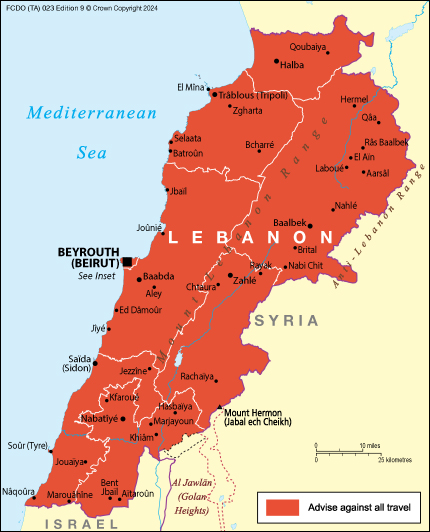
The Foreign, Commonwealth & Development Office ( FCDO ) provides advice about risks of travel to help British nationals make informed decisions. Find out more about FCDO travel advice .
Areas where FCDO advises against travel
Your travel insurance could be invalidated if you travel against FCDO advice. Consular support is also severely limited where FCDO advises against travel.
FCDO advises against all travel to Lebanon. If you are currently in Lebanon we encourage you to leave now while commercial options remain available.
For further information on why we advise against travel, see the ‘Conflict affecting Lebanon’ and Regional risks.
Departure from Lebanon
Events in Lebanon are fast moving. The situation has potential to deteriorate quickly and with no warning.
Commercial routes out of Lebanon could be severely disrupted or cancelled at short notice and roads across the country could be closed. If you are currently in Lebanon, we encourage you to leave now while commercial options remain available .
Travel within or out of Lebanon is at your own risk. The FCDO cannot tell you whether it is safe to travel to any departure point within Lebanon. However, see safety and security for information on known security risks in Lebanon and advice on how to keep yourself safe.
Make sure you have correct and up-to-date travel documents, including a passport and visa if necessary, for yourself and anyone travelling with you, even if they are not British nationals.
Check our travel advice for any neighbouring country that you are planning to travel to or through.
In the event of deterioration in the political or security situation, the British embassy may be increasingly limited in the assistance that it can provide. Do not rely on FCDO being able to evacuate you in an emergency.
Read FCDO advice on what to do if you’re affected by a crisis abroad and how to prepare.
If you cannot leave Lebanon
You should have a personal emergency plan that does not rely on the UK government and be prepared in case you need to leave quickly. However, if you cannot leave Lebanon, you should shelter in place if you judge it necessary and safe to do so.
See safety and security and regional risks for information on known security risks in Lebanon and advice on how to keep yourself safe. You should sign up to get email notifications when this travel advice is updated.
Conflict affecting Lebanon
FCDO advises against all travel to Lebanon due to risks associated with the conflict between Israel and the Occupied Palestinian Territories. There are ongoing mortar and artillery exchanges and airstrikes in Lebanon, primarily on the boundary with Israel but also elsewhere in the country. Online maps may provide a useful guide to recently affected areas. Tensions are high and events could escalate with little warning, which could affect or limit exit routes out of Lebanon.
There is also a risk of civil unrest. There have been large protests outside embassies, including outside the US and French embassies on 17 October. Further protests are expected. British nationals should exercise caution and avoid areas where demonstrations may be held.
The embassy is continuing with essential work including services to British nationals.
Follow and contact FCDO travel on Twitter , Facebook and Instagram . You can also get email notifications when this travel advice is updated.
Help and support in Lebanon
You can contact the emergency services by calling 112.
If you need urgent help (for example, you’ve been attacked, arrested or someone has died), call +961 (0)1 960 800.
If you’re in Lebanon and you need advice which is not covered by reading our travel advice, you can contact FCDO online .
While 24-hour consular assistance is available by phone or online, in-person consular support is severely limited in parts of Lebanon where we advise against all travel and limited where we advise against all but essential travel.
If you’re abroad and you need emergency help from the UK government, contact the nearest British embassy, consulate or high commission .
Travel insurance
If you choose to travel, research your destinations and get appropriate travel insurance . Insurance should cover your itinerary, planned activities and expenses in an emergency.
Related content
Is this page useful.
- Yes this page is useful
- No this page is not useful
Help us improve GOV.UK
Don’t include personal or financial information like your National Insurance number or credit card details.
To help us improve GOV.UK, we’d like to know more about your visit today. We’ll send you a link to a feedback form. It will take only 2 minutes to fill in. Don’t worry we won’t send you spam or share your email address with anyone.
- Meet the Team
- Work with Us
- Czech Republic
- Netherlands
- Switzerland
- Scandinavia
- Philippines
- South Korea
- New Zealand
- South Africa
- Budget Travel
- Work & Travel
- The Broke Backpacker Manifesto
- Travel Resources
- How to Travel on $10/day
Home » Middle East » Travel Safety
Is Lebanon SAFE to Visit? (2024 • Insider Tips)
Lebanon is a top class visit.
You can investigate strange ancient ruins. Sample the sensational Lebanese cuisine. Carve up some powder on Lebanese slopes. Lebanon is great!
Lebanon also happens to be wedged between some pretty brutal conflicts. Bordering both Syria and Israel (and that questionable little bit in between the two, the Golan Heights), Lebanon is directly connected to some of the most volatile regions in the middle east.
So naturally, you’re going to be wondering, “ Is Lebanon safe ?”
And that’s a fair question! To help you out, I’ve decided to create this EPIC insider guide to staying safe in Lebanon. Hopefully, we can lay concerns to rest, and give you the confidence to explore one of the world’s most underrated gems…
…Let’s jump into the specifics!
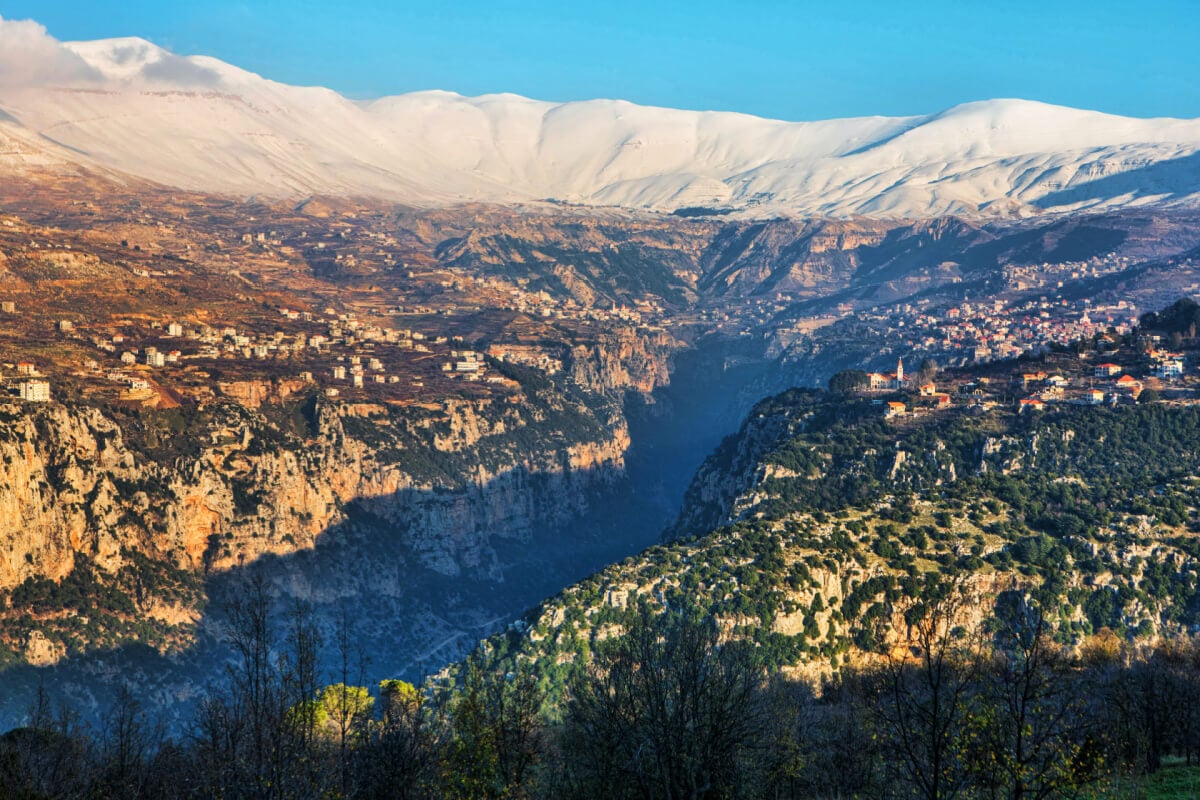
There is no such thing as a perfect safety guide, as things change quickly. The question of “Is Lebanon Safe?” will ALWAYS have a different answer depending on who you ask.
The information in this safety guide was accurate at the time of writing. If you use our guide, do your own research, and practice common sense, you will probably have a wonderful and safe trip to Lebanon.
If you see any outdated information, we would really appreciate it if you could reach out in the comments below. Otherwise, stay safe friends!
Updated December 2023

Unlock Our GREATEST Travel Secrets!
Sign up for our newsletter and get the best travel tips delivered right to your inbox.
Is it Safe to Visit Lebanon Right Now?
Safest places to visit in lebanon, 19 top safety tips for traveling to lebanon, is lebanon safe to travel alone, is lebanon safe for solo female travellers, where to start your travels in lebanon, is lebanon safe for families, getting around lebanon safely, crime in lebanon, what to pack for your lebanon trip, lebanon travel insurance, faqs on lebanon’s safety, so, is lebanon safe.
Based on the data on the World Bank , Lebanon had 1,936,000 international visitors last 2019. Most of these tourists had a pretty safe experience.
Whilst there are a fair few factors you should consider before embarking on your trip, travelling to Lebanon is typically safe . However, there are places you should definitely avoid (like near the Syrian or Israeli borders, and Palestinian refugee camps).
In addition, Lebanon has experienced several aftershocks of the Turkey earthquake (with more expected) and has an ongoing economic crisis, which has led to some shortages of goods, including food, petrol, and medicine. This has contributed to some level of both political and economic instability. If you want to go, plan your trip carefully!
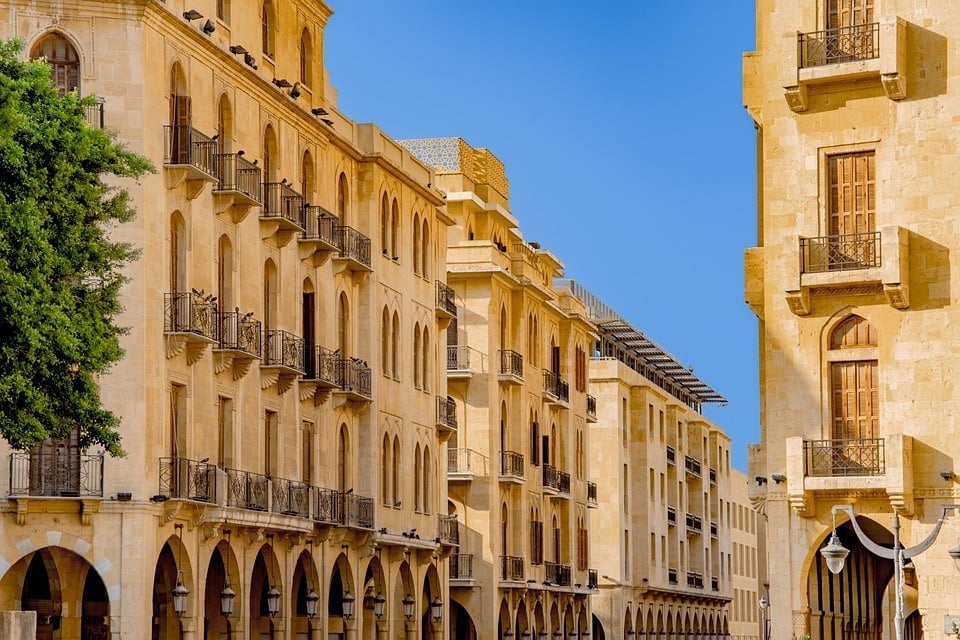
Large swathes of Lebanon are in fact very safe to visit. They are startlingly beautiful, the people are friendly, and since the media generally over-plays the danger here, it is under-visited.
Beirut in particular is doomed to be forever synonymous in the international psyche with explosions. The city was rocked in August 2020 by a huge blast that left over 30 people dead and over a thousand injured. The city has consequently experienced a humanitarian crisis.
Since then, the city has recovered, but you can still see the effect of the explosion. While it’s predominantly safe to visit right now, you should monitor local media to keep up with the current situation.
Due to these factors, and the terrorist threat posed by Lebanon’s geographical location, we can’t exactly say that it is super safe to visit Lebanon right now. There are too many warnings from governments across the world for us to give an unreserved ‘go-ahead’. However, I backpacked it myself in 2017 and felt extremely safe at all times.
And if you do decide to go, spending bucks on a Lebanon trip can help locals out a lot! Around 2 and a half million tourists visit Lebanon each year (if you’re into travel stats )
Despite what the media tells you, Lebanon is a great country to visit. And if you choose the right areas, it’ll be perfectly safe as well. To help you make the right decision, we’ve listed the safest places in Lebanon, as well as the no-go areas, below.
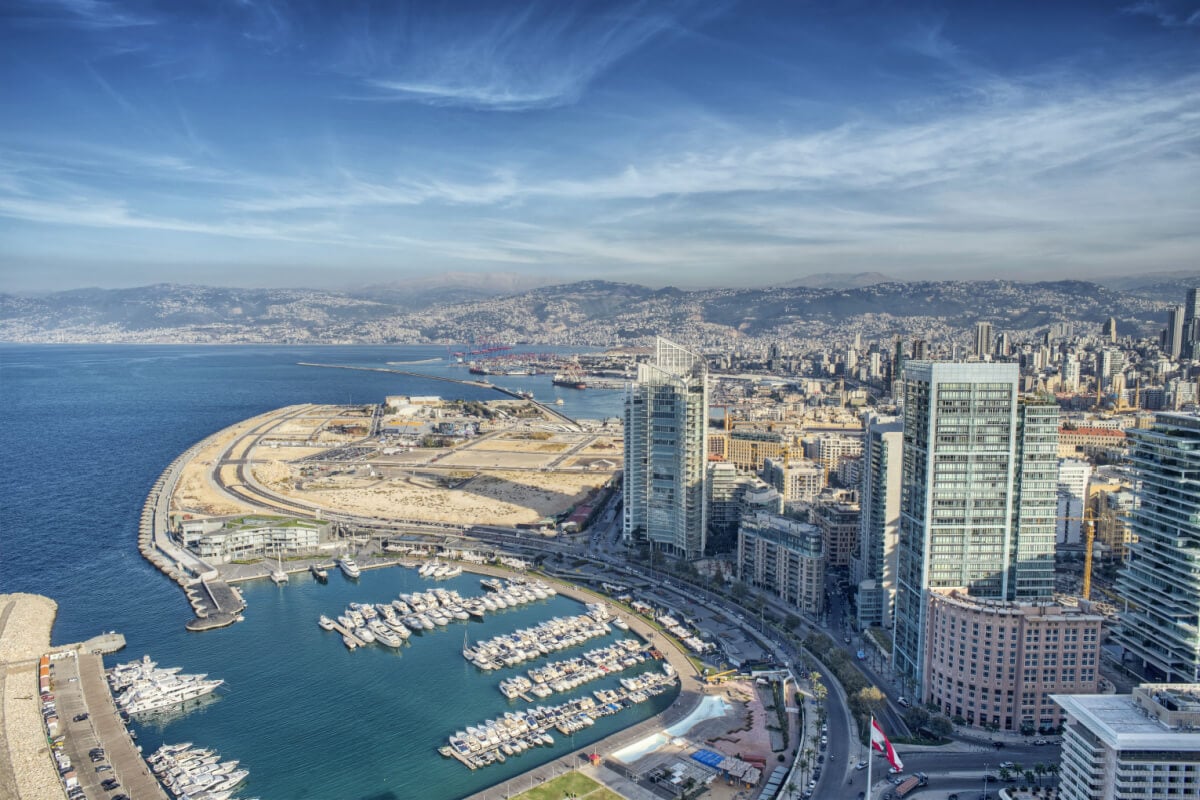
- Beirut : This might come to your surprise, but Beirut, Lebanon’s capital city, is one of the safest places in the country. Female travellers can dress normally here, the streets are well developed (although incredibly busy) and there’s a pretty cool nightlife scene. If you want to explore the rest of the country, basing yourself in Beirut is a good idea. Stay in the Hamra neighbourhood for some cool hipster and university vibes. Most of Beirut is safe, but you should avoid wandering south of the sports stadium and the Adnan Al Hakim road. There are still some pretty damaged areas.
- Batroun : Batroun is located north of Beirut and is a stunning coastal town. It’s known to be the most attractive, clean, medium-sized town in the region, so you’ll definitely have a blast. It’s also a nice getaway from the busy, and not-so-clean Beirut. The old port area is still an active fishing port where you will find the locals grilling their fresh catch, preparing the nets, and just generally chilling out by their boats when not out at sea.
- Bcharre : Bcharre is located just above the Kadisha Valley—one of the most historically and naturally significant valleys in the country. It’s a very laid-back and chill vibe, with lots of culture and tradition to explore. You’ll also be very close (around 15min) to the famous Cedars of God, some of the oldest and largest cedar trees on the planet.
Places in Lebanon to Avoid
You can’t go to every area of Lebanon. You should not be going to these places unless you have some serious self-preservation issues.
- Palestinian refugee camps (specifically Ain El Hilweh in Saida, unless you are with a guide),
- Within 5 kilometres of the border with Syria
- Within 5 kilometres of the border with Israel
- The Hermel area.
- The southern suburbs of Beirut are a ‘no-go’ owing to potential crime and extremism. The neighbourhoods of Bir Hassan, Ghobeiry, Chiyah, Haret Hraik, Burj Al Brajne, Mraije, Er Rouais and Laylake are included in this.
Thankfully, none of these places are areas that tourists would normally end up in, since there is nothing worth seeing anyway. If you are an explorer, it’s worth double-checking that you’re not walking into a potential terrorist hotspot whenever you plan to go to a new place.
The Beqaa Valley is entirely controlled by Hezbollah, which functions as the proxy government. But it is in fact perfectly safe for travellers and Balbeek is not to be missed. You can even safely visit the Hezbollah museum at Mount Amil in South Lebanon.
Many governments advise against visiting Tripoli to the North although I, and many other travellers, did visit and found it perfectly safe. The warnings are related to sectarian tensions that occasionally erupt.
A fair few places in Lebanon aren’t safe for travel. That’s very clear. Everywhere else – though you should be careful – is open for business!
Keeping your money safe in Lebanon
One of the most common things to happen to you whilst travelling is losing your money. And let’s face it: the most annoying way for this to actually occur is when it’s stolen from you.
Petty crime is pretty much a problem all over the world.The best solution? Get a money belt.
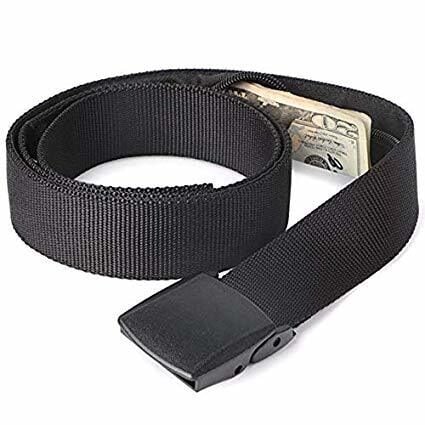
Stash your cash safely with this money belt. It will keep your valuables safely concealed, no matter where you go.
It looks exactly like a normal belt except for a SECRET interior pocket perfectly designed to hide a wad of cash, a passport photocopy or anything else you may wish to hide. Never get caught with your pants down again! (Unless you want to…)
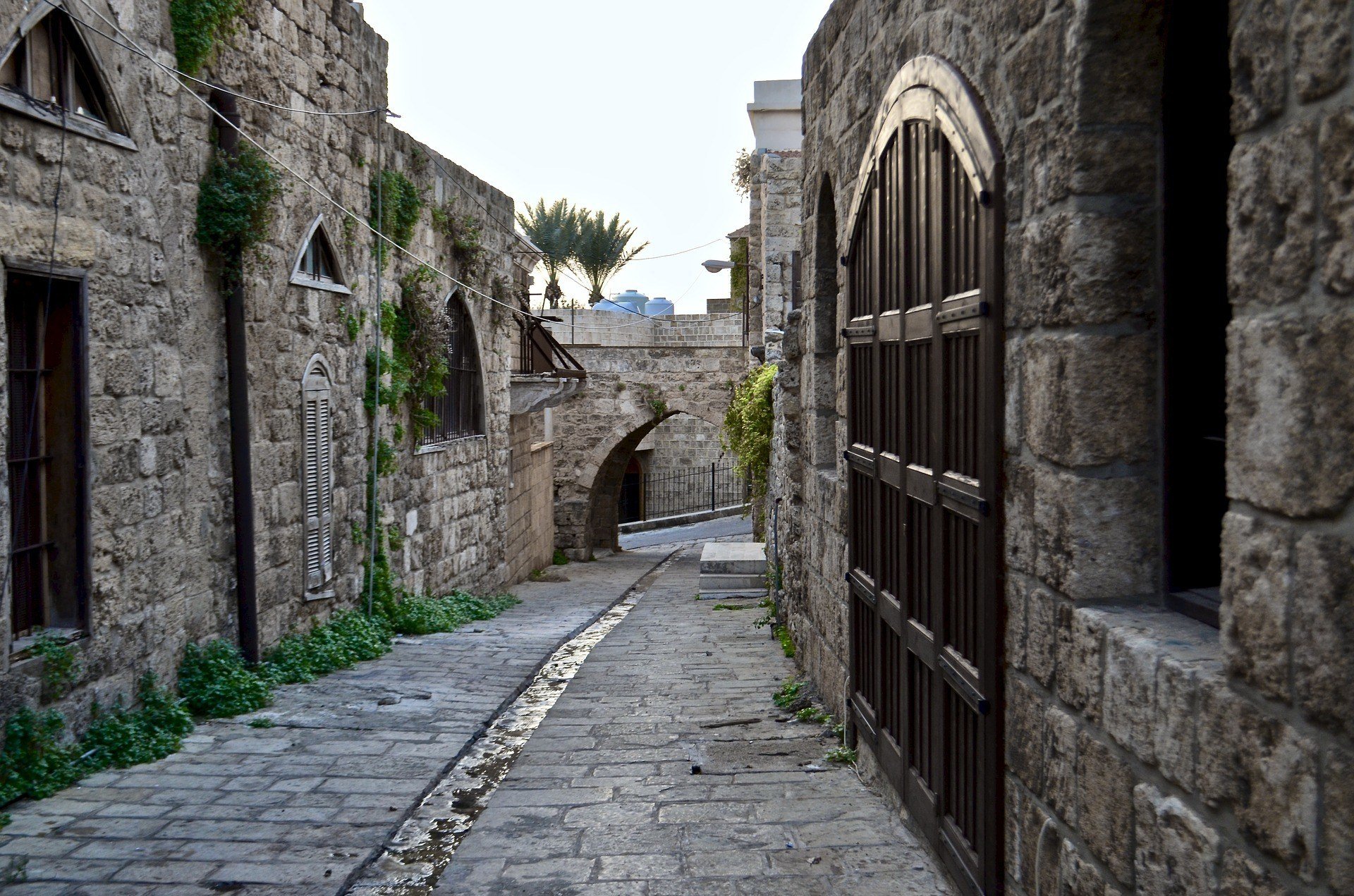
Government advice may be practically screaming ‘Don’t go to Lebanon!’ But we would disagree. There’s not been a war in Lebanon since 1991, the Lebanese-Israeli War lasted just one month and ended in 2006. The worst stuff in this country occurs from the residue of other conflicts. Still, it’s a very volatile part of the world, so apart from general travel safety tips , here’s some specific safety advice for when you feel like going to Lebanon!
- Celebratory gunfire is common – to speeches, victories, and political demonstrations. If you hear it, head into a building!
- Stay aware of the security situation – watch TV, listen to the radio, check Twitter, whatever – things can change quickly.
- Take care around BIG events – people attending large gatherings, sports events, that sort of thing – they can be targets of terrorist attacks
- Yes, there is a threat of terrorism – there’s not a lot you can do about it, but stay vigilant.
- Take a good medical kit with you – you never know when you might need it!
- Don’t wander off the beaten track – we mean literally. There are plenty of landmines still out there. Maybe use a guide.
- Listen to police/officials – there are plenty of military checkpoints. If you’re stopped, comply. They’re there for your safety.
- Don’t take photos of military sites – it’s kind of obvious. Why would you? Snapping pics of anything that isn’t an obvious tourist sight might get you pulled aside.
- Respect local traditions – Be aware of how you’re behaving and how it could offend people, e.g. eating in public during Ramadan.
- Dress modestly when you go to religious sites – If it looks like other people are covering up, then you should too.
- Do NOT use drugs in Lebanon – use of cannabis is widespread but police CAN use entrapment techniques. Even a small quantity is an offence that could land you in prison.
- Refrain from same-sex public displays of affection – LGBTQ travellers, take note. This is punishable with prison time.
- Learn a bit of Arabic – this can help keep you safe, help you get around the country, help you eat, etc.
- Look after your belongings – don’t walk around with your bag open or anything like that. It’s not common, but thieves DO exist.
- Always keep an emergency stash of cash – Never keep all your cards/ currency in one place. And hide it all from thieves with a hidden money belt .
- Similarly, don’t walk around looking wealthy – It won’t help you stay out of trouble.
- Don’t carry loads of money around with you – It’s better if it’s not there to steal, or go missing, in the first place. You can secure extra cash you think you’ll need in a security belt .
- Carry your ID around at all times – you’ll need to show it if someone official asks for it. A copy will do.
- There are earthquakes in Lebanon – knowing what to do in the event of a big one will keep you safe.
Surprisingly, outside of the things that governments are warning people about (and scaring them away from Lebanon in the process), this country is pretty safe. Crime levels are relatively low and it’s one of the more stable Middle Eastern countries.
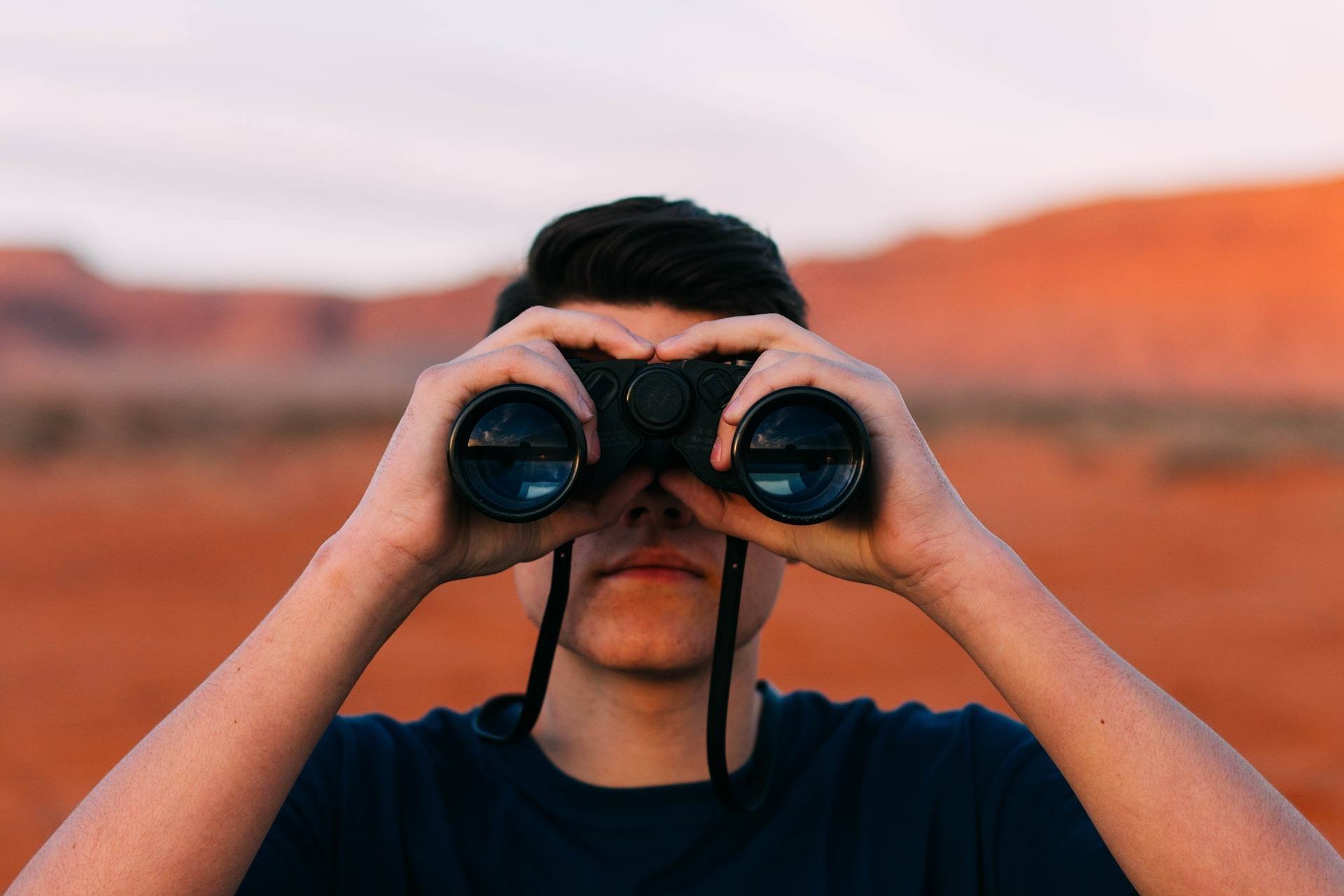
Travelling solo to Lebanon is probably best done by those who have a fair bit of travel experience under their belt. Outside of Beirut, things get a bit difficult; infrastructure isn’t well developed and you may be more than a little shocked if this is your first time!
If you’ve experienced solo travel in other countries, you know that it’s going to be a rewarding experience. Seeing a place at your own pace, meeting new people, learning about a culture, etc. But to help you, here are some pro tips for solo travellers in Lebanon.
- Get yourself a Lebanese sim card. They might be a little more expensive than you’re used to back home but they are definitely well worth it if you’re thinking of travelling to Lebanon by yourself. This allows you to keep in touch with people, call accommodation, restaurants, and keep track of where you are on maps. You know, the usual benefits of a phone.
- Get to know other travellers in Lebanon. There are meet-up groups, such as Travel Massive Beirut and weekly Couchsurfing meet-ups in the city, too. Have a look online and find the type of group that’s right for you.
- Keep your family up to date with where you are and what you’re up to. It’ll keep you connected, grounded in reality, and it’s ultimately SAFER when someone knows where you are.
- Use reputable hotels. Make sure you do your research and read reviews. Is the area sketchy? Are the staff awesome? Are the rooms gross? Is it secure? All that stuff. If it ticks all of your boxes then go ahead!
- Know emergency numbers . Keep them saved high up on your contacts too. Imagine scrolling through your phonebook in an emergency situation.
- Stay away from streets that look deserted. It’s probably a good way to get into trouble – day or night.
- Join a tour! Aside from all its other benefits, even for experienced travelers, Lebanon is going to be tough. Whilst Beirut will be fine, getting out into the rest of the country is going to be tricky. There’s a lack of accommodation, public transport, that sort of thing. So finding yourself a reputable tour company will definitely open up the country for you.
- Ask local people for insider knowledge. If anybody’s going to know the country, it’s going to be the people who live in it.
- Travel light. Limit yourself to one bag and don’t make it too heavy. If you’re travelling around, the last thing you need is a load of baggage.
If you’ve lived the backpacker lifestyle before, get stuck into Lebanon as a solo traveller! It may seem like a bit of an odd choice taking into account all the instability in the area, but don’t let that put you off.
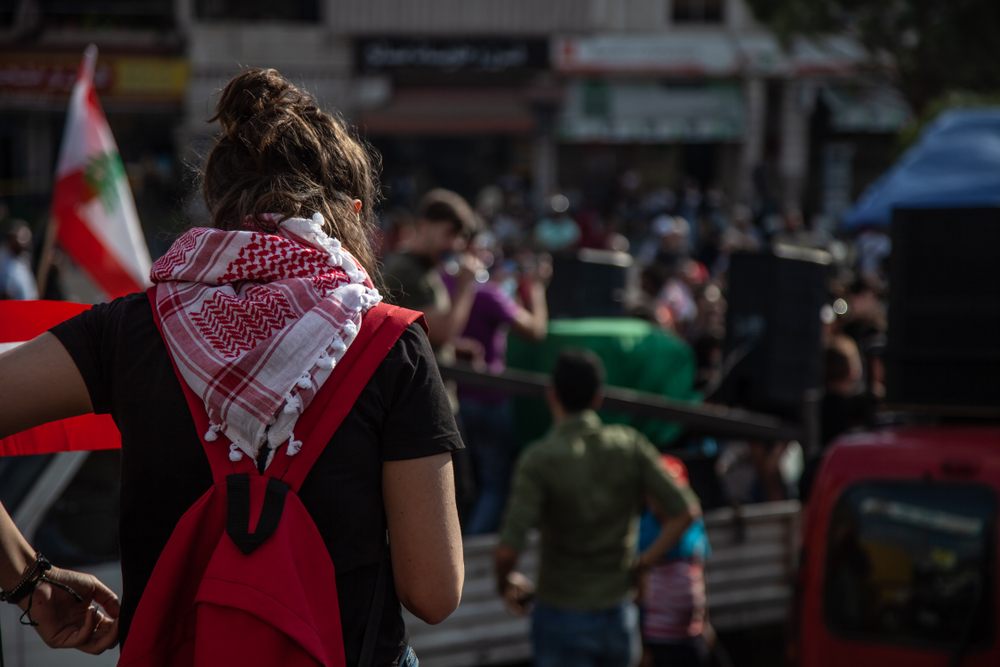
Surprisingly (for some of us), you can have an amazing time as a solo female traveller in Lebanon. It’s actually fairly easy as a solo female traveller here.
Lebanon feels part-European, part-Middle Eastern. That means the culture is generally quite relaxed – and there’s not even a lot of hassle from men here! But you may be concerned about your safety, so here are some tips to help with your travels.
- In Beirut, Western clothing is normal. You won’t have to wear traditional Middle Eastern style clothing at all. Skinny jeans, for example, are common. Other areas of the country might not be so liberal. Observe other women wherever you are and try to imitate (as best you can) how they’re dressed.
- The only time you need to wear a headscarf is when you go to religious sites, specifically mosques. Usually, you’ll be provided with something to cover your legs and arms too.
- When you get onto a bus, the front two rows are for women. Try to sit next to a woman if you can. It’ll just be more comfortable and appropriate for the situation.
- If you do drink (yes, there’s alcohol), drink responsibly. Don’t lose sense of where you are.
- If you get chatting to a man whilst you’re out and he seems overly interested in who you are, where you’re staying, and what you’re doing, don’t tell them.
- Harassment levels are low in Lebanon. However, that doesn’t mean that it won’t happen at all. If someone is bothering you, ignore them. If it gets too much – if you feel uncomfortable or that you are in actual danger – then draw attention to yourself.
- The best way to enjoy Lebanon with complete peace of mind is to book yourself onto a tour. This will make exploring the country so much easier.
- When you’re looking at booking accommodation for yourself, make sure it’s well-reviewed by other solo female travellers. That is going to be the best way to find something that fits you.
Loads of solo female travellers go to Lebanon and report back with amazing stories – the lack of harassment, lack of crime, lack of sketchiness, and the respect they get. Make sure to bring some clothes to go out in Beirut – it’s a party city alright!
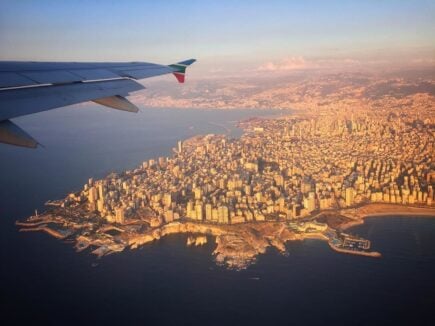
Beirut is Lebanon’s cultural, political, nightlife, and commercial center. Because of that fact, Beirut offers a taste of Middle Eastern-flavored cosmopolitan life.
Families can have a pretty good time in Lebanon. All the conflict surrounding the country aside, it’s actually a family-friendly destination.
Beirut, for example, has a whole lot of stuff going for it. Planet Discovery Children’s Museum, then there’s the Sanayeh Public Garden and the Beirut Waterfront – at 4.8 kilometres long, this makes for a perfect stroll with the kids.
In addition to all that there are beaches and beach resorts, complete with kids’ clubs.
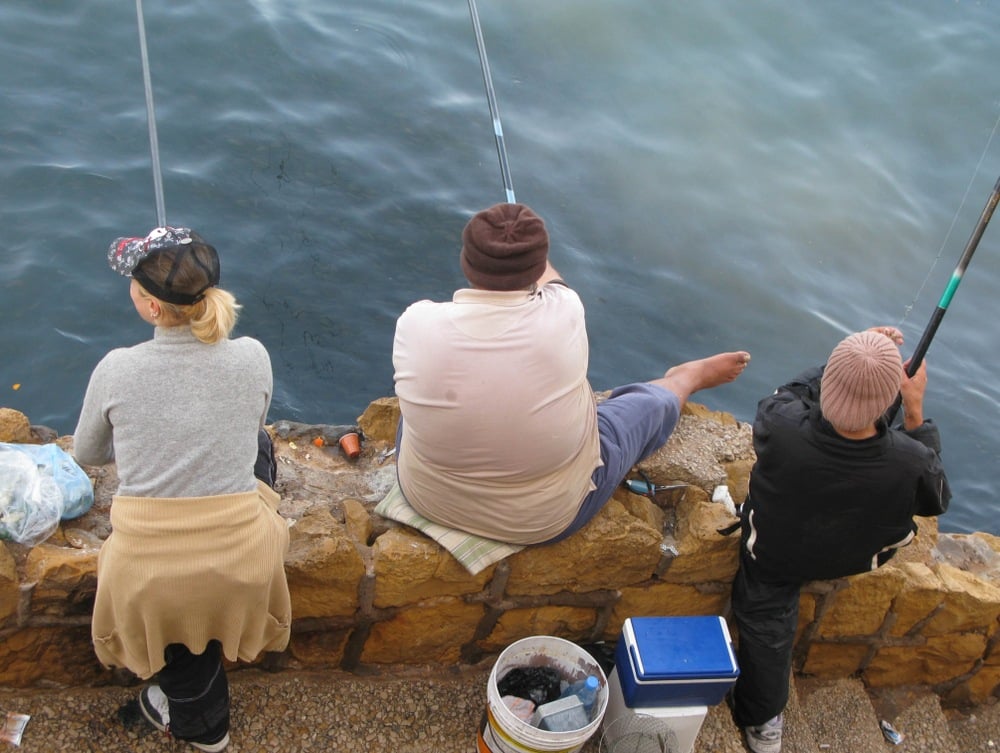
Summers are hot and humid. 300 days of sun, they say. This can be a little tricky with a small child. You’ll probably want to stay somewhere with a pool and air-con in the summer. Visit from September—October or April—May for less humidity and heat .
Obviously, cities can be overwhelming at any time, even without kids. So head out and explore what else the country has to offer. There’s tons of nature to discover in Lebanon!
Basically, Lebanon is pretty safe for families. No doubt you won’t be heading too far off the beaten track anyway, meaning that ‘unsafe’ areas of the country will be literally miles from your mind.
Most people will frequently use taxis for getting around. They’re relatively cheap, safe and trustworthy. Uber exists but actually comes with a warning. If you need to get somewhere, just stick an arm out!
That said, Lebanon’s public transport leaves a lot to be desired. Though limited, public transport is safe in Beirut.
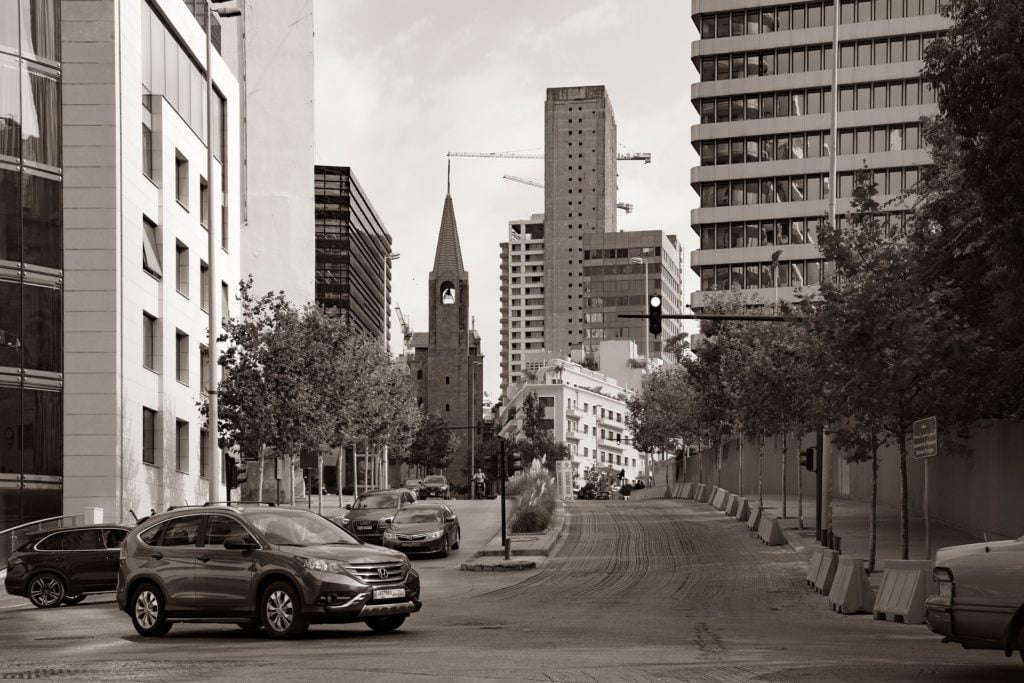
- Mini Buses: These ferry people around towns along certain routes. It’s the usual, pack-it-’till-it’s-full and then go.
- Government-run Buses: These tend to be safer than the minibusses and they’re also pretty cheap. They have red number plates and the destination shown (but only in Arabic)
- Long-distance Buses: Head to the inter-city bus station at Charles Helou Station (northbound) or Cola Station (southbound) to get one of these.
There is an ongoing project to map all the bus routes in Beirut which can help you get around. You might find it pretty handy.
If you want to drive in Lebanon, you’re going to have to be confident about it!
It’s the sort of country where the rules of the road just go out the window. Driving will be challenging – from the quality of the roads (crazy bends and potholes) to city traffic, and even military checkpoints.
Crime rates in Lebanon are actually very low . This is very promising, and also why we are still happy to tell people to go! However, government agencies are still cautious to give the green light. The U.K. government also highlights the risks posed by terrorist groups and the heightened tensions between Lebanon and Israel . I strongly advise listening to official travel guidance, but remember that governments have a large motive to cover their backs in these situations!
The U.S. travel authority rates Lebanon as a level 3 country , urging people to reconsider travel. They cite crime, ? terrorism, armed conflict, civil unrest and kidnapping . However, they also rate South Africa as a level 2 country, despite the country having a much much much higher crime rate. Basically, stay away from Israel, Syria, and the dodgy part of Beirut, and you should be fine.
Laws in Lebanon
Lebanese laws are much more relaxed when compared to other countries in the region. However, the Lebanese government is able to prosecute any so-called ‘sexual act against nature’, which sadly means the LGBTQ+ community should refrain from expressing affection. Drug punishments are particularly harsh too, so don’t get caught, or better still, don’t do drugs.
Children travelling without their fathers should have their guardian (or mother) carry written permission from the father. Sometimes questions are asked, and apparently, lots of mothers have difficulty overturning ‘travel bans’ imposed by their husbands.
Everyone’s packing list is going to look a little different, but here are a few things I would never want to travel to Lebanon without…
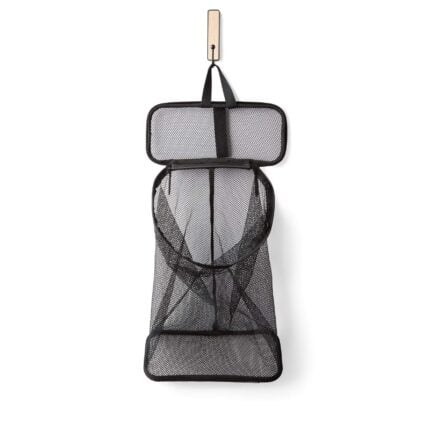
Hanging Laundry Bag
Trust us, this is an absolute game changer. Super compact, a hanging mesh laundry bag stops your dirty clothes from stinking, you don’t know how much you need one of these… so just get it, thank us later.

A decent head torch could save your life. If you want to explore caves, unlit temples, or simply find your way to the bathroom during a blackout, a headtorch is a must.
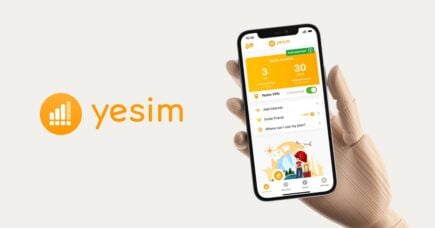
Yesim stands as a premier eSIM service provider, catering specifically to the mobile internet needs of travellers.

Monopoly Deal
Forget about Poker! Monopoly Deal is the single best travel card game that we have ever played. Works with 2-5 players and guarantees happy days.
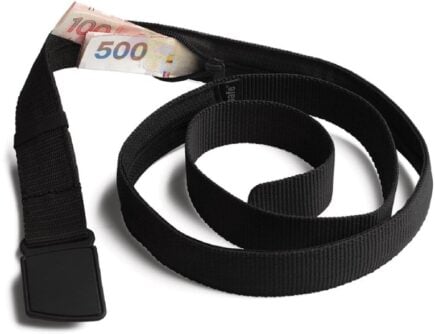
This is a regular looking belt with a concealed pocket on the inside – you can hide up to twenty notes inside and wear it through airport scanners without it setting them off.
ALWAYS sort out your backpacker insurance before your trip. There’s plenty to choose from in that department, but a good place to start is Safety Wing .
They offer month-to-month payments, no lock-in contracts, and require absolutely no itineraries: that’s the exact kind of insurance long-term travellers and digital nomads need.

SafetyWing is cheap, easy, and admin-free: just sign up lickety-split so you can get back to it!
Click the button below to learn more about SafetyWing’s setup or read our insider review for the full tasty scoop.
Planning a safe trip to Lebanon can be a little overwhelming. To help you out, we’ve listed the most common questions people ask about staying safe in Lebanon.
Is Lebanon safe?
Lebanon is typically safe to visit. In fact, it is a brilliant country to tour and provides landscapes, culture, and entertainment found nowhere else in the world. That said, there are problems, and you should stay well away from the Syrian and Israeli borders, and take care to avoid Palestinian refugee camps. Check out official travel advice or our full article to get a full picture of the situation.
Is Lebanon safe for LGBTQ+ travellers?
No, Lebanon is not safe for LGBTQ+ travellers. If you show any same-sex affection in public, you might end up in jail since homosexuality is still illegal. For that reason, we wouldn’t recommend Lebanon to LGBTQ+ members YET!
Is Beirut safe?
Most of Beirut is incredibly safe and offers top nightlife, restaurants, and activities. However, try to avoid the neighbourhoods of Bir Hassan, Ghobeiry, Chiyah, Haret Hraik, Burj Al Brajne, Mraije, Er Rouais and Laylake, which are a little riskier. In addition, since the beginning of the Lebanese economic crisis, there has been increasing civil unrest, so it is best to avoid large gatherings and protests.
Is It Safe to Travel to Lebanon Now?
Lebanon is the safest country in the Middle East and pretty safe for tourists, especially female travellers. Keep an eye on the news for potential political unrest or protests and try to avoid times when these are active. Also, avoid the no-go areas like borders and Palestinian refugee camps. If you take the right precautions, you should have no trouble in Lebanon!
Is it Safe to Live in Lebanon?
Lebanon is a pretty safe (and cool) country to live in. Crime rates are low, Israel only blows stuff up occasionally, and there’s a surprising tolerance for Western life (for the region). Churches and Mosques exist side-by-side, which makes Lebanon pretty special. You’ll need to get some hefty research done before you consider moving to Lebanon (because there are a few safety concerns), but if you feel like an adventure – we’re all for it!
As long as you’re not actively seeking out an actual warzone, chances are you’re going to be safe. Very safe in fact. That being said, you should still use your common travel sense.
Saying you’re going anywhere near Syria at the moment is going to make people think you’re crazy. We don’t think you’re crazy though.
Lebanon itself, though small and pretty much engulfed on all sides by super volatile situations, is safe. It’s a tolerant, open society where multiple faiths live in together with many Western ideals.
Lebanon is friendliness, openness, tolerance, and fun combined with cool history and landscapes.
Terrorist attacks aside – because these happen in alarming rates in Western countries too – Lebanon is a refreshing anomaly of the Middle East. It may not have great infrastructure thanks to its previous conflict, but that’s in the past.
The future of Lebanon is a good one. It’s got a lot going for it.
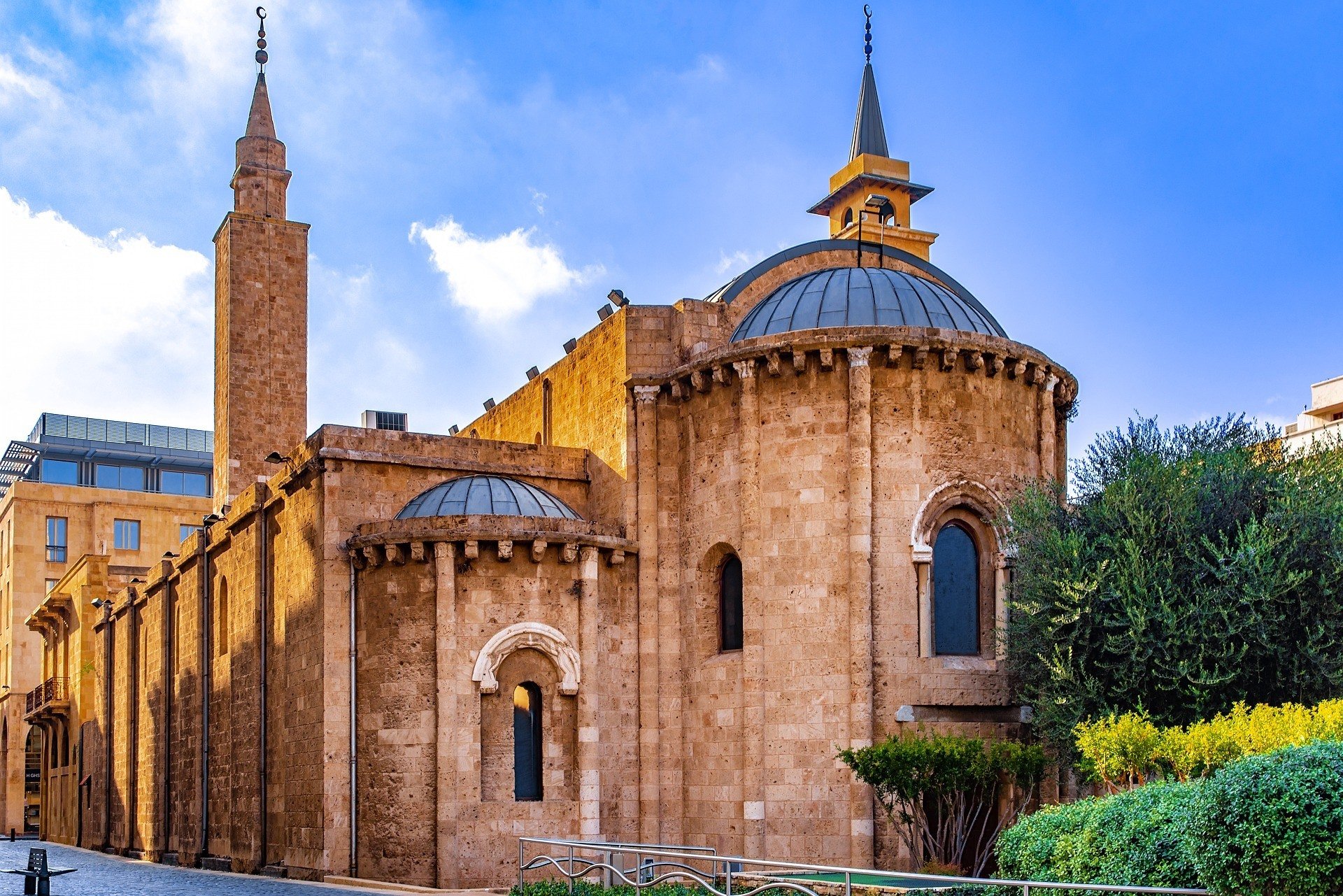
Looking for more info on traveling to Lebanon?
- Get inspired by these EPIC bucket list adventures !
- See exactly how to travel the world for a year , even if you’re broke
- Take a look at my expert travel safety tips learned from 15+ years on the road
- Explore with the ultimate peace of mind with top-notch medical evacuation insurance
- Plan the rest of your trip with our fantastic backpacking Lebanon travel guide!
Disclaimer: Safety conditions change all over the world on a daily basis. We do our best to advise but this info may already be out of date. Do your own research. Enjoy your travels!

And for transparency’s sake, please know that some of the links in our content are affiliate links . That means that if you book your accommodation, buy your gear, or sort your insurance through our link, we earn a small commission (at no extra cost to you). That said, we only link to the gear we trust and never recommend services we don’t believe are up to scratch. Again, thank you!
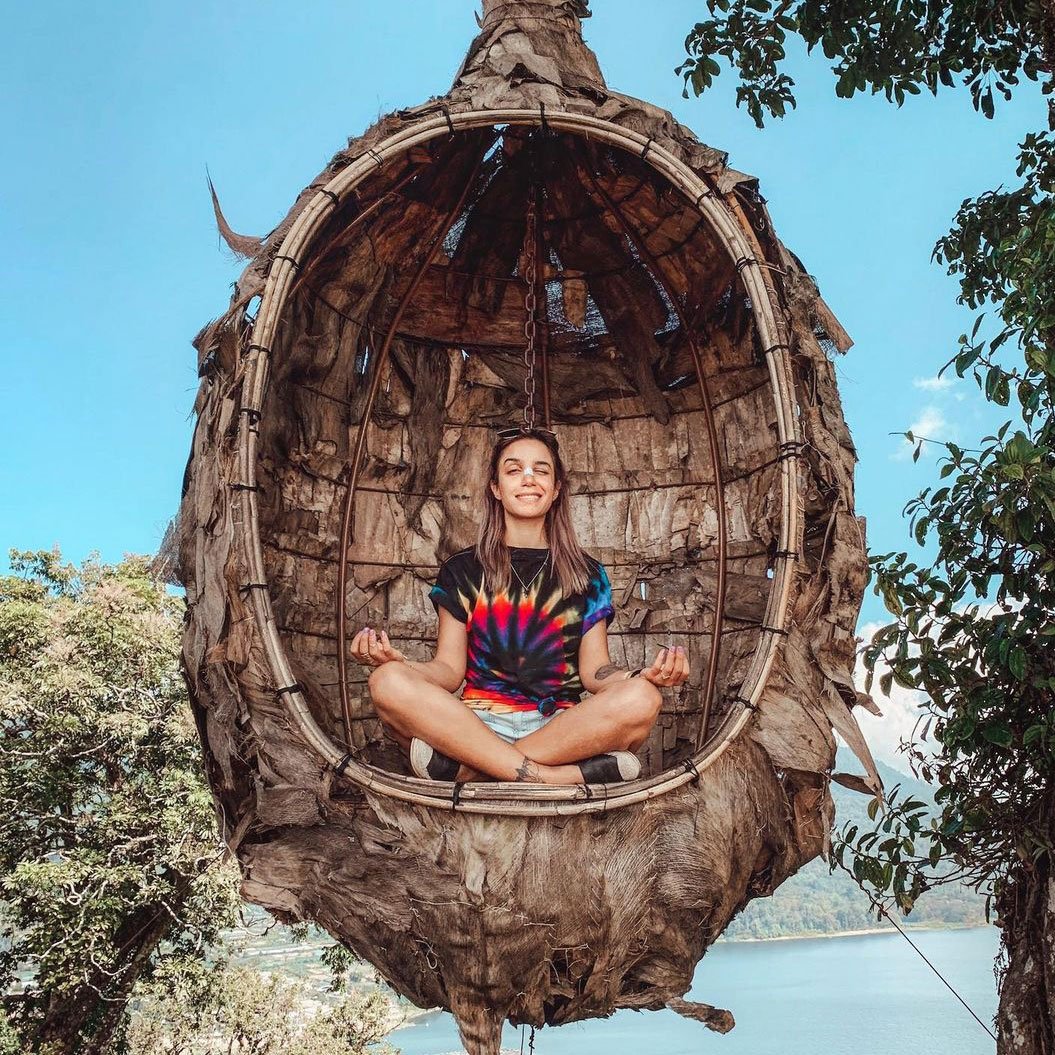
Share or save this post

11 Comments
Lebanon is currently NOT a safe destination and violence in the region will very likely escalate further this year. Our advice is to wait to visit until the region is less volatile.
Truly irresponsible that you are suggesting people to travel to Lebanon. Half of your post is about safety and avoiding trouble. That’s more than enough indication to steer clear of Lebanon. Please stop promoting this ! You can get people killed.
I travelled to Lebanon as did several of our team and guess what? We are all still alive.
Granted, the situation may be a bit tense right now but and we are watching world events closely. If the situation changes in Lebanon we still update our post but until then happy travels.
I enjoyed the article, and although I’ve never been there, I have known Lebanese people here in the US, and they are good friends, several have their own businesses in towns close to me. The thing to do is always be aware of where you are, and who is around you… you can get into trouble even in small towns in the US if you are rude, drunk, etc. Do not, I repeat, do not think yourself above others, no matter where you are. Be polite, be courteous, be kind, and listen. I have several “nannas” in various Lebanese businesses in the area (grandma type women) because I treat them with respect and they pay back with their hugs and pats on the arms and shoulders. Relax around them, but just be aware of where you are and who else is in the area. I study the Bible, especially the Old Testament, and several of the towns mentioned in the OT are located in Lebanon, and when I ask questions about various towns located there, the women just beam and have stories galore to share. A few of my ex-military buddies have been there, and they agree with this article.
It is truly refreshing to be reading an article in 2022 that is focusing on the positive aspects of Lebanon for a change. Love this & Lebanon!
Its super safe, just arrive back 10 days solo female traveller, desipite all whats going.. its safer that walking around London….
I was in Lebanon this august and had the best time of my life, it is lgbtq+ friendly, they are even gaybars. Dont kiss or hold hands in public ofcourse, but for anyone can have fun even now with the gas crisis. Everyone smoke hashish and parties on techno music it is so nice. Beirut and batroun are amazing, go to fun bars that seem nice to you, Lebanese people are so cool they are very artistic minded and get along with anyone. Ofcourse be respectful these people have been trough alot the last years. Best country and people i have ever met!!!
Did human trafficker write this? It is perfectly fine to say “I was there”, but it differs from “I was there, trust me”. I traveled then 9 times already, 6 times as ISAF soldier, 3 times on my own. The claim that it’s safe is an obnoxious lie and I worry that some people may actually find it motivating. Do not go there. Especially to regions controlled by Hezbollah. We don’t speak about a different culture. We’re talking about terrorists kidnapping and murdering people with different beliefs on their daily basis.
Or in other words… Don’t go there. Don’t make my job harder. Mine or ISAF’s. We risk our lives so one day you may go there and see the beauties Lebanon has.
Mike, several of our time including myself have been to Lebanon including into territories controlled by Hezbollah. I even visited the weird and wacky Hezbollah Museum.
You have your perspective, and we have ours. Please don’t make our job harder by spouting your politically charged rhetoric on our walls.
I found the Lebanon people to be very friendly and hospitable. They all to seem to want the same they ever other countries want, that is raise their family’s in peace any an opportunity to prosper. While traveling in Lebanon I was treated rudely or insulted in any form! It’s hard to find out the truth on the web or news. Learn about their customs any try to honor them, treat the people of Lebanon as you would like to treat an show respect, you are guest in their country
Thank you for this. I’m off to Lebanon for a few weeks of work and when I mentioned it to my dad you would have thought I was going straight into a war zone. It’s reassuring to read that if I keep vigilant I should have a great time.
Leave a Reply Cancel reply
Your email address will not be published. Required fields are marked *
Save my name, email, and website in this browser for the next time I comment.
Notify me of followup comments via e-mail.
Lebanon Travel Guide
Lebanon may not be a highly sought after tourist destination, but this little Middle Eastern country does have some amazing archaeological sights from Roman times.
One of the highlights would be the Baalbek ruins, which can be visited on a day trip from the Beirut area.
Read through this complete Lebanon travel guide for more info on what to expect!
Quick Facts
Arabic; 'Thank you' is 'shoukran'
Islam & Christianity
Lebanese Pound (LBP)
Visa on arrival for most nationalities
Mediterranean; hot, sunny summers & mild, rainy winters
Power Plugs
Type C / D / G
Uber, Careem
The only international airport in Lebanon is in Beirut (code: BEY), which has direct flights from other countries in the Middle East and beyond. You can shop for flights to Lebanon on Skyscanner.
Lebanon is a relatively safe place to travel, with some caveats. The UN violent crime rate is 4 per 100k inhabitants (36% lower than the global average), but terrorist attacks and kidnappings have occurred from time to time, so Lebanon may not be the best pick for solo travelers.
In any case, I would recommend avoiding crowds and practicing situational awareness. The other thing to note is that Lebanese culture is conservative, so clothing in public should be reasonably modest.
The climate for coastal parts of Lebanon is Mediterranean, with hot, sunny summers and mild, rainy winters.
The hottest months are July to September, but even in these months the heat is not nearly as severe as Middle Eastern countries like Kuwait or Qatar. Summer temperatures for Beirut generally don't go above 85 °F (29 °C).
The mildest weather for visiting Lebanon is during the spring or fall months, but any month of the year would be alright.
Lebanon may not be the most budget friendly travel destination, but it's not completely cost prohibitive either. Hostels are available from 300k Lebanese pounds ($20 USD) and private hotels starting from 600k . Meals are about 90k to 225k pounds depending on location.
Transportation in Lebanon is generally by motorbike or car, and these can be rented, but hiring a driver is preferable if you're new to the Middle East. Transportation apps like Uber and Careem are available here for short distance trips.
The best Lebanon tours & activities
My latest blog posts about Lebanon
How To Visit The Baalbek Temple Ruins In Lebanon
One of the highlights of my visit to the Middle East would have to be Baalbek Lebanon, with its Roman ruins and giant megalithic stones. This temple …
20 Lebanon Pictures That Will Make You Want To Travel
Lebanon may not be a highly sought after tourist destination, but this little Middle Eastern country does have some amazing archaeological sights from Roman times. Check out …
Get In Touch
Feel free to contact me if you have travel questions, comments, or suggestions! I'll try to get back to you!
You are using an outdated browser. Upgrade your browser today or install Google Chrome Frame to better experience this site.
Lebanon Traveler View
Travel health notices, vaccines and medicines, non-vaccine-preventable diseases, stay healthy and safe.
- Packing List
After Your Trip

Be aware of current health issues in Lebanon. Learn how to protect yourself.
Level 1 Practice Usual Precautions
- Updated Global Measles April 26, 2024 Many international destinations are reporting increased numbers of cases of measles. Destination List: Afghanistan, Angola, Armenia, Azerbaijan, Benin, Burkina Faso, Burundi, Cameroon, Central African Republic, Chad, Côte d'Ivoire (Ivory Coast), Democratic Republic of the Congo, Djibouti, Equatorial Guinea, Ethiopia, Gabon, Ghana, India, Indonesia, Kazakhstan, Kyrgyzstan, Lebanon, Liberia, Libya, Malaysia, Mauritania, Nepal, Niger, Nigeria, Pakistan, Philippines, Qatar, Republic of South Sudan, Republic of the Congo, Romania, Russia, Senegal, Somalia, Sri Lanka, Sudan, Syria, Tajikistan, Timor-Leste (East Timor), Togo, Turkey, United Arab Emirates, Uzbekistan, Yemen, Zambia
⇧ Top
Check the vaccines and medicines list and visit your doctor at least a month before your trip to get vaccines or medicines you may need. If you or your doctor need help finding a location that provides certain vaccines or medicines, visit the Find a Clinic page.
Routine vaccines
Recommendations.
Make sure you are up-to-date on all routine vaccines before every trip. Some of these vaccines include
- Chickenpox (Varicella)
- Diphtheria-Tetanus-Pertussis
- Flu (influenza)
- Measles-Mumps-Rubella (MMR)
Immunization schedules
All eligible travelers should be up to date with their COVID-19 vaccines. Please see Your COVID-19 Vaccination for more information.
COVID-19 vaccine
Active cholera transmission is widespread in Lebanon. Cholera is rare in travelers. Certain factors may increase the risk of getting cholera or having severe disease ( more information ). Avoiding unsafe food and water and washing your hands can also help prevent cholera.
Vaccination may be considered for children and adults who are traveling to areas of active cholera transmission.
Cholera - CDC Yellow Book
Hepatitis A
Recommended for unvaccinated travelers one year old or older going to Lebanon.
Infants 6 to 11 months old should also be vaccinated against Hepatitis A. The dose does not count toward the routine 2-dose series.
Travelers allergic to a vaccine component or who are younger than 6 months should receive a single dose of immune globulin, which provides effective protection for up to 2 months depending on dosage given.
Unvaccinated travelers who are over 40 years old, immunocompromised, or have chronic medical conditions planning to depart to a risk area in less than 2 weeks should get the initial dose of vaccine and at the same appointment receive immune globulin.
Hepatitis A - CDC Yellow Book
Dosing info - Hep A
Hepatitis B
Recommended for unvaccinated travelers younger than 60 years old traveling to Lebanon. Unvaccinated travelers 60 years and older may get vaccinated before traveling to Lebanon.
Hepatitis B - CDC Yellow Book
Dosing info - Hep B
Cases of measles are on the rise worldwide. Travelers are at risk of measles if they have not been fully vaccinated at least two weeks prior to departure, or have not had measles in the past, and travel internationally to areas where measles is spreading.
All international travelers should be fully vaccinated against measles with the measles-mumps-rubella (MMR) vaccine, including an early dose for infants 6–11 months, according to CDC’s measles vaccination recommendations for international travel .
Measles (Rubeola) - CDC Yellow Book
Rabid dogs are commonly found in Lebanon. If you are bitten or scratched by a dog or other mammal while in Lebanon, there may be limited or no rabies treatment available.
Consider rabies vaccination before your trip if your activities mean you will be around dogs or wildlife.
Travelers more likely to encounter rabid animals include
- Campers, adventure travelers, or cave explorers (spelunkers)
- Veterinarians, animal handlers, field biologists, or laboratory workers handling animal specimens
- Visitors to rural areas
Since children are more likely to be bitten or scratched by a dog or other animals, consider rabies vaccination for children traveling to Lebanon.
Rabies - CDC Yellow Book
Recommended for most travelers, especially those staying with friends or relatives or visiting smaller cities or rural areas.
Typhoid - CDC Yellow Book
Dosing info - Typhoid
Avoid contaminated water
Leptospirosis
How most people get sick (most common modes of transmission)
- Touching urine or other body fluids from an animal infected with leptospirosis
- Swimming or wading in urine-contaminated fresh water, or contact with urine-contaminated mud
- Drinking water or eating food contaminated with animal urine
- Avoid contaminated water and soil
Clinical Guidance
Avoid bug bites.
Leishmaniasis
- Sand fly bite
- Avoid Bug Bites
Airborne & droplet
- Breathing in air or accidentally eating food contaminated with the urine, droppings, or saliva of infected rodents
- Bite from an infected rodent
- Less commonly, being around someone sick with hantavirus (only occurs with Andes virus)
- Avoid rodents and areas where they live
- Avoid sick people
Middle East Respiratory Syndrome (MERS)
- Scientists do not fully understand how the MERS virus spreads
- May spread from to others when an infected person coughs or sneezes
- May spread to people from camels.
Middle East Respiratory virus syndrome (MERS)
Tuberculosis (TB)
- Breathe in TB bacteria that is in the air from an infected and contagious person coughing, speaking, or singing.
Counsel your patients on actions they can take on their trip to stay healthy and safe.
Eat and drink safely
Food and water standards around the world vary based on the destination. Standards may also differ within a country and risk may change depending on activity type (e.g., hiking versus business trip). You can learn more about safe food and drink choices when traveling by accessing the resources below.
- Choose Safe Food and Drinks When Traveling
- Water Treatment Options When Hiking, Camping or Traveling
- Global Water, Sanitation and Hygiene | Healthy Water
- Avoid Contaminated Water During Travel
You can also visit the Department of State Country Information Pages for additional information about food and water safety.
Prevent bug bites
Bugs (like mosquitoes, ticks, and fleas) can spread a number of diseases in Lebanon. Many of these diseases cannot be prevented with a vaccine or medicine. You can reduce your risk by taking steps to prevent bug bites.
What can I do to prevent bug bites?
- Cover exposed skin by wearing long-sleeved shirts, long pants, and hats.
- Use an appropriate insect repellent (see below).
- Use permethrin-treated clothing and gear (such as boots, pants, socks, and tents). Do not use permethrin directly on skin.
- Stay and sleep in air-conditioned or screened rooms.
- Use a bed net if the area where you are sleeping is exposed to the outdoors.
What type of insect repellent should I use?
- FOR PROTECTION AGAINST TICKS AND MOSQUITOES: Use a repellent that contains 20% or more DEET for protection that lasts up to several hours.
- Picaridin (also known as KBR 3023, Bayrepel, and icaridin)
- Oil of lemon eucalyptus (OLE) or para-menthane-diol (PMD)
- 2-undecanone
- Always use insect repellent as directed.
What should I do if I am bitten by bugs?
- Avoid scratching bug bites, and apply hydrocortisone cream or calamine lotion to reduce the itching.
- Check your entire body for ticks after outdoor activity. Be sure to remove ticks properly.
What can I do to avoid bed bugs?
Although bed bugs do not carry disease, they are an annoyance. See our information page about avoiding bug bites for some easy tips to avoid them. For more information on bed bugs, see Bed Bugs .
For more detailed information on avoiding bug bites, see Avoid Bug Bites .
Stay safe outdoors
If your travel plans in Lebanon include outdoor activities, take these steps to stay safe and healthy during your trip.
- Stay alert to changing weather conditions and adjust your plans if conditions become unsafe.
- Prepare for activities by wearing the right clothes and packing protective items, such as bug spray, sunscreen, and a basic first aid kit.
- Consider learning basic first aid and CPR before travel. Bring a travel health kit with items appropriate for your activities.
- If you are outside for many hours in heat, eat salty snacks and drink water to stay hydrated and replace salt lost through sweating.
- Protect yourself from UV radiation : use sunscreen with an SPF of at least 15, wear protective clothing, and seek shade during the hottest time of day (10 a.m.–4 p.m.).
- Be especially careful during summer months and at high elevation. Because sunlight reflects off snow, sand, and water, sun exposure may be increased during activities like skiing, swimming, and sailing.
- Very cold temperatures can be dangerous. Dress in layers and cover heads, hands, and feet properly if you are visiting a cold location.
Stay safe around water
- Swim only in designated swimming areas. Obey lifeguards and warning flags on beaches.
- Practice safe boating—follow all boating safety laws, do not drink alcohol if driving a boat, and always wear a life jacket.
- Do not dive into shallow water.
- Do not swim in freshwater in developing areas or where sanitation is poor.
- Avoid swallowing water when swimming. Untreated water can carry germs that make you sick.
- To prevent infections, wear shoes on beaches where there may be animal waste.
Schistosomiasis, a parasitic infection that can be spread in fresh water, is found in Lebanon. Avoid swimming in fresh, unchlorinated water, such as lakes, ponds, or rivers.
Keep away from animals
Most animals avoid people, but they may attack if they feel threatened, are protecting their young or territory, or if they are injured or ill. Animal bites and scratches can lead to serious diseases such as rabies.
Follow these tips to protect yourself:
- Do not touch or feed any animals you do not know.
- Do not allow animals to lick open wounds, and do not get animal saliva in your eyes or mouth.
- Avoid rodents and their urine and feces.
- Traveling pets should be supervised closely and not allowed to come in contact with local animals.
- If you wake in a room with a bat, seek medical care immediately. Bat bites may be hard to see.
All animals can pose a threat, but be extra careful around dogs, bats, monkeys, sea animals such as jellyfish, and snakes. If you are bitten or scratched by an animal, immediately:
- Wash the wound with soap and clean water.
- Go to a doctor right away.
- Tell your doctor about your injury when you get back to the United States.
Consider buying medical evacuation insurance. Rabies is a deadly disease that must be treated quickly, and treatment may not be available in some countries.
Reduce your exposure to germs
Follow these tips to avoid getting sick or spreading illness to others while traveling:
- Wash your hands often, especially before eating.
- If soap and water aren’t available, clean hands with hand sanitizer (containing at least 60% alcohol).
- Don’t touch your eyes, nose, or mouth. If you need to touch your face, make sure your hands are clean.
- Cover your mouth and nose with a tissue or your sleeve (not your hands) when coughing or sneezing.
- Try to avoid contact with people who are sick.
- If you are sick, stay home or in your hotel room, unless you need medical care.
Avoid sharing body fluids
Diseases can be spread through body fluids, such as saliva, blood, vomit, and semen.
Protect yourself:
- Use latex condoms correctly.
- Do not inject drugs.
- Limit alcohol consumption. People take more risks when intoxicated.
- Do not share needles or any devices that can break the skin. That includes needles for tattoos, piercings, and acupuncture.
- If you receive medical or dental care, make sure the equipment is disinfected or sanitized.
Know how to get medical care while traveling
Plan for how you will get health care during your trip, should the need arise:
- Carry a list of local doctors and hospitals at your destination.
- Review your health insurance plan to determine what medical services it would cover during your trip. Consider purchasing travel health and medical evacuation insurance.
- Carry a card that identifies, in the local language, your blood type, chronic conditions or serious allergies, and the generic names of any medications you take.
- Some prescription drugs may be illegal in other countries. Call Lebanon’s embassy to verify that all of your prescription(s) are legal to bring with you.
- Bring all the medicines (including over-the-counter medicines) you think you might need during your trip, including extra in case of travel delays. Ask your doctor to help you get prescriptions filled early if you need to.
Many foreign hospitals and clinics are accredited by the Joint Commission International. A list of accredited facilities is available at their website ( www.jointcommissioninternational.org ).
In some countries, medicine (prescription and over-the-counter) may be substandard or counterfeit. Bring the medicines you will need from the United States to avoid having to buy them at your destination.
Select safe transportation
Motor vehicle crashes are the #1 killer of healthy US citizens in foreign countries.
In many places cars, buses, large trucks, rickshaws, bikes, people on foot, and even animals share the same lanes of traffic, increasing the risk for crashes.
Be smart when you are traveling on foot.
- Use sidewalks and marked crosswalks.
- Pay attention to the traffic around you, especially in crowded areas.
- Remember, people on foot do not always have the right of way in other countries.
Riding/Driving
Choose a safe vehicle.
- Choose official taxis or public transportation, such as trains and buses.
- Ride only in cars that have seatbelts.
- Avoid overcrowded, overloaded, top-heavy buses and minivans.
- Avoid riding on motorcycles or motorbikes, especially motorbike taxis. (Many crashes are caused by inexperienced motorbike drivers.)
- Choose newer vehicles—they may have more safety features, such as airbags, and be more reliable.
- Choose larger vehicles, which may provide more protection in crashes.
Think about the driver.
- Do not drive after drinking alcohol or ride with someone who has been drinking.
- Consider hiring a licensed, trained driver familiar with the area.
- Arrange payment before departing.
Follow basic safety tips.
- Wear a seatbelt at all times.
- Sit in the back seat of cars and taxis.
- When on motorbikes or bicycles, always wear a helmet. (Bring a helmet from home, if needed.)
- Avoid driving at night; street lighting in certain parts of Lebanon may be poor.
- Do not use a cell phone or text while driving (illegal in many countries).
- Travel during daylight hours only, especially in rural areas.
- If you choose to drive a vehicle in Lebanon, learn the local traffic laws and have the proper paperwork.
- Get any driving permits and insurance you may need. Get an International Driving Permit (IDP). Carry the IDP and a US-issued driver's license at all times.
- Check with your auto insurance policy's international coverage, and get more coverage if needed. Make sure you have liability insurance.
- Avoid using local, unscheduled aircraft.
- If possible, fly on larger planes (more than 30 seats); larger airplanes are more likely to have regular safety inspections.
- Try to schedule flights during daylight hours and in good weather.
Medical Evacuation Insurance
If you are seriously injured, emergency care may not be available or may not meet US standards. Trauma care centers are uncommon outside urban areas. Having medical evacuation insurance can be helpful for these reasons.
Helpful Resources
Road Safety Overseas (Information from the US Department of State): Includes tips on driving in other countries, International Driving Permits, auto insurance, and other resources.
The Association for International Road Travel has country-specific Road Travel Reports available for most countries for a minimal fee.
Maintain personal security
Use the same common sense traveling overseas that you would at home, and always stay alert and aware of your surroundings.
Before you leave
- Research your destination(s), including local laws, customs, and culture.
- Monitor travel advisories and alerts and read travel tips from the US Department of State.
- Enroll in the Smart Traveler Enrollment Program (STEP) .
- Leave a copy of your itinerary, contact information, credit cards, and passport with someone at home.
- Pack as light as possible, and leave at home any item you could not replace.
While at your destination(s)
- Carry contact information for the nearest US embassy or consulate .
- Carry a photocopy of your passport and entry stamp; leave the actual passport securely in your hotel.
- Follow all local laws and social customs.
- Do not wear expensive clothing or jewelry.
- Always keep hotel doors locked, and store valuables in secure areas.
- If possible, choose hotel rooms between the 2nd and 6th floors.
Healthy Travel Packing List
Remind your patients to pack health and safety items. Use the Healthy Travel Packing List for Lebanon for a list of health-related items they should consider packing.
If you are not feeling well after your trip, you may need to see a doctor. If you need help finding a travel medicine specialist, see Find a Clinic . Be sure to tell your doctor about your travel, including where you went and what you did on your trip. Also tell your doctor if you were bitten or scratched by an animal while traveling.
For more information on what to do if you are sick after your trip, see Getting Sick after Travel .
Map Disclaimer - The boundaries and names shown and the designations used on maps do not imply the expression of any opinion whatsoever on the part of the Centers for Disease Control and Prevention concerning the legal status of any country, territory, city or area or of its authorities, or concerning the delimitation of its frontiers or boundaries. Approximate border lines for which there may not yet be full agreement are generally marked.
Other Destinations
If you need help finding travel information:
Message & data rates may apply. CDC Privacy Policy
File Formats Help:
- Adobe PDF file
- Microsoft PowerPoint file
- Microsoft Word file
- Microsoft Excel file
- Audio/Video file
- Apple Quicktime file
- RealPlayer file
- Zip Archive file
Exit Notification / Disclaimer Policy
- The Centers for Disease Control and Prevention (CDC) cannot attest to the accuracy of a non-federal website.
- Linking to a non-federal website does not constitute an endorsement by CDC or any of its employees of the sponsors or the information and products presented on the website.
- You will be subject to the destination website's privacy policy when you follow the link.
- CDC is not responsible for Section 508 compliance (accessibility) on other federal or private website.

Is it Safe to Travel to Lebanon? Tourist Advice
A personal account from our contributing writer Erin Henk

It was two days before my family and I were scheduled to move to Beirut .
In the midst of the chaos of packing and shedding the seemingly endless amounts of stuff we’d acquired from nearly four years of living in Paris, I was trying to check “get a haircut” off my to-do list. As sat in the salon chair, zoning out, my phone started buzzing with texts from faraway friends.
“Oh my god, huge explosion in Beirut!”
“It looks like a nuke just went off.”
I immediately scrambled to find out more information, my fingers frantically typing and scrolling. What was going on? What was happening and what did this mean for Beirut? And (selfishly) what did it mean for us?
We were about to embark on a big move that would start a new chapter in our lives. Perhaps this would mean that our plans would have to change?
What unfolded over the next few days in the tale of the Beirut Port explosion of August 2020 was the heartbreaking and enraging story of unbelievable negligence and corruption. The explosion killed more than 150 people, injured more than 5,000, and left thousands more homeless, jobless, and traumatized.
This was all due to a large stockpile of highly-explosive ammonium nitrate, which had been left sitting in a warehouse for about six years while no one in government bothered to do anything about it until a fire is said to have started in the warehouse.
We decided to forge ahead with our plans to move once we learned more. My husband left for Beirut two weeks after our initially scheduled date to start his new job. My son and I followed about three weeks later.
“Are you sure?” asked everyone from my cardiologist to my close friends when we said that we, indeed, were still moving to Lebanon.
But this is Lebanon….
With a history that includes 15 years of civil war and chaos, terrorism, along with neighbour issues with Syria and Israel , Lebanon, and Beirut in particular, still hasn’t completely shaken its reputation for being synonymous with war and violence.
While we haven’t looked back since coming here, it’s understandable that in a country like this, nestled in the heart of a region like the Middle East, many may wonder whether or not it is really safe to bring your family to Lebanon?
Depending on who you ask, Lebanon is likely going to be a place where opinions on safety for travellers may vary, particularly for families.
While a certain amount of instability and unpredictability comes with the territory in Lebanon (so to speak) it is nonetheless a place where you can bring your family, have wonderful experiences, and forge some lifelong memories, as long as you keep your wits about you and follow some basic safety guidelines and practices.
Lebanese Civil War
Palestinian in lebanon, hezbollah in lebanon, lebanese economic crisis, lebanon today, travel within beirut & mount lebanon:, within north lebanon, along the syrian border, north eastern bekaa valley, south lebanon, palestinian refugee camps, protests and social tensions, other nuisances you may encounter in beirut and lebanon, shortages in lebanon, medical care in lebanon, more lebanon travel safety tips, so is lebanon really safe to visit, more on visiting lebanon, lebanon, yesterday and today.
A tiny nation (about a quarter the size of Switzerland), Lebanon’s more recent history has been tumultuous and complicated and warrants more explanation than we can include here. But here’s a very brief overview:
From 1975 to 1990, the nation was plagued by a complex civil war in addition to separate occupations by Syria and Israel. Today, tensions remain with Israel to the south.
Syria’s civil war has also brought between 1-1.5 million (estimates vary) displaced Syrians into Lebanon as well since it began in 2011, which has put a strain on already weak infrastructure and services.
In addition to the current Syrian crisis, the country is also home to about 475,000 Palestinians (again, estimates vary); many of whom are deemed stateless by the Lebanese government, live in designated camps, and are denied government assistance and legal residency.
Contrary to the old rumours, Lebanon is not a hotbed of terrorism. This reputation most likely comes from the fact that the country is the birthplace of Hezbollah . However, if you avoid the Hezbollah-controlled areas of the country, there is no need to let this be a reason for you to not travel to Lebanon.
While tensions between Hezbollah and Israel ignited into a month-long war during the summer of 2006, Lebanon has been largely free from war and widespread violence since the end of the civil war.
Today, Lebanon’s biggest problems are mainly rooted in the impacts of an incredibly grave economic crisis, an unstable and corrupt government, and inadequate and overstretched infrastructure and services, all of which can understandably cause civil unrest.
The World Bank has called Lebanon’s enormous economic and financial crisis one of the top 10 most severe crises globally since the mid-19 th century [source: World Bank ]. Compounding this is the government’s lack of initiative and consensus to enact reforms to alleviate the situation so as to avoid upsetting the lifestyles of a privileged minority. (Ahem, corruption.)
The Lebanese pound has lost 90% of its value since 2019, which has plunged about 4 million families into poverty in roughly just two years [source: Save the Children ].
As a result of such astounding depreciation and inflation, many Lebanese people who are paid in the local currency have seen the value of their salaries shrink to unlivable levels, making staples like food, medicine, and fuel largely unaffordable. (For example, many employed by the military or police who previously earned about USD 1,000-1,500 per month have seen their salaries shrink to USD 50-100 per month.)
As a result, much of the population is simply unable to support themselves or their families. However, with a large diaspora, a portion of Lebanese people are very reliant on remittances from family abroad to keep them afloat. Others who are fortunate enough to be paid in US dollars or who have bank accounts abroad can still live relatively comfortably.
That said, however, a visitor can easily see the contradiction of today’s Lebanon, one in which millions are struggling while restaurants and hotels remain full (with Lebanese people and not exclusively foreigners), traffic is a big issue, and new businesses are still opening up. (I’ve seen several open up in my own neighbourhood alone in just a year and a half.)

What Do The Travel Advisories Say About Lebanon Now?
You should always check relevant government advisories before planning to travel to Lebanon. But beware that some may outright warn you against visiting the country at all.
For example, at the time of writing, the U.S. Department of State had Lebanon marked at Level 4 Advisory, which instructs people not to travel to the country due to “crime, terrorism, armed conflict, civil unrest, kidnapping and Embassy Beirut’s limited capacity to provide support to U.S. citizens.”
Others like Canada and the UK say to exercise a high degree of caution due to the security situation and the risk of a terrorist attack if you plan to travel to Lebanon.
Also, keep in mind that the situation here is dynamic and can change rapidly. If coming to Lebanon, it is wise to register with your embassy before your arrival and sign up for alerts if you can.
There are definitely areas of Lebanon you should avoid, of course, especially if you’re travelling with children. Some of the main areas are the following:
This area is generally safe. However, Beirut’s southern suburbs have high rates of criminality and kidnappings, including the Camille Chamoun Sports City Stadium near Rafik Hariri International Airport; and the neighbourhoods of Bourj el Barajneh , which is Hezbollah controlled.
It’s recommended to avoid going to the Bab al-Tabbaneh and Jabal Mohsen neighbourhoods in Tripoli, where occasional clashes have happened between Sunni and Alawi Muslims. These neighbourhoods are far from the city centre so you should be fine to visit Tripoli itself.
North of Tripoli is the Akkar District , which is also recommended to avoid.
Avoid all areas within 10 km of the Syrian border due to landmines.
This is an area heavily dominated and controlled by Hezbollah. It is also the region where you can visit the incredible historic ruins of Baalbek .
While it’s best to check the security situation immediately beforehand to see if there have been any changes on the ground, the ruins are normally totally safe to visit . You will see the distinctive yellow Hezbollah flags displayed in the site’s immediate vicinity, but don’t panic. The same advice goes for the cities of Zahlé and the ruins of Anjar , which are also in the region.

Avoid all areas to the south of the Litani River , near the Israeli border, excluding the coastal city of Tyre .
There are 12 Palestinian refugee camps in the country, such as Shatila in Beirut and Ain al-Hilweh in Saida, which should be avoided.
Lebanon Travel Safety
Lebanon is incredibly diverse, especially since it’s so tiny. There are about 18 different religious groups represented here and Beirut itself is quite cosmopolitan and international; you’ll find people from all over the world here.
Previously known as the Paris of the Middle East, the city has been known for its nightlife and party scene, so people here are generally open to different types of cultures and dress. Arabic, French, and English are widely spoken by many, which should also help you navigate around the country.
As a whole, the Lebanese love children, so it’s likely that your small children will get a lot of attention during your visit.
The following are some things to be aware of during your trip:
The economic crisis has definitely made things more tense and unpredictable in Lebanon. Since the revolution of 2019, when people (rightfully so) began protesting government corruption, unemployment, and a host of other things, demonstrations have continually flared up in different places in and around Beirut; some have occasionally blocked highways for several hours, making it difficult to travel by car.

To be safe, steer clear of such protests as best you can; signing up for embassy alerts could be of help to keep you abreast of the situation.
The economic crisis compounded by the impacts of COVID-19 has caused an increase in criminality, so it’s best to take standard precautions when carrying cash and valuables around the city and at tourist sites like the ruins of Baalbek.
You will most certainly encounter many people who will ask you for money, many of them children. It’s not unusual to be approached multiple times on a daily basis and it’s heartbreaking to witness.
Some people can get a bit aggressive when asking for money. (I’ve had people asking me for more, saying what I gave them was not enough.)
Children especially can be quite persistent, but it’s all understandable considering the situation in the country. (Since many children can be forced to beg due to trafficking and other harmful reasons, I usually try to give away food as much as possible.)
If you don’t want to give, just bear in mind that you may likely have to say a firm “la, shukran” (no, thank you) or “no, sorry” to get the message across.
Also, keep in mind that if you dine on the street side you are guaranteed to be approached multiple times. You may prefer an inside table instead.
You may also be approached around certain historic sites by people who want to be your guide and immediately start spouting some historical facts. Again, a firm “no thank you” should do it. (You may find a similar story over in our safety guide to Egypt !)
Infrastructure is undeniably poor in Lebanon. This means safety standards are lower. The public electricity is only available a few hours per day so you may encounter stores and restaurants without power, or power cuts happening while you’re out to dinner, for example. Don’t panic. It’s normal.
Most hotels, especially larger ones, will have generators, making the cuts last only a minute or two. Smaller, family-owned or boutique hotels may have periods (typically during the night) when the power cuts for several hours.
Many medicines for chronic conditions are currently unavailable in Lebanon due to the situation so be sure to come prepared with your own supply of any necessary medication.
Also, many of Lebanon’s top professionals, like doctors, have left the country since the start of the economic crisis. But there are still reliable hospitals in Beirut where one could go for urgent medical care, such as:
- Lebanese American University Medical Center-Rizk Hospital
- American University of Beirut Medical Center
Safety and Getting Around in Beirut with kids
With the exception of the corniche, Beirut isn’t the most pedestrian-friendly city, so it’s wise to pay attention when walking around. Uneven, jagged and disappearing sidewalks can be dangerous.
Also—and it might be needless to say here—but be extremely careful when crossing the street. No one really plays by the rules of the road in Lebanon, and most drivers go the wrong way down one-way streets and think nothing of it.

Frequent power cuts also often mean traffic lights often are not working. I am still amazed by how many drivers surmount this hurdle and safely get from one place to another.
Apps like Uber and Bolt are widely used in Beirut and work well to help you get around. However, not all cars will have working seatbelts or will be in the best condition, so be prepared for that.
Another option is to book taxis in advance through local companies like Allo Taxi (which has an app you can download) where you can know the price and type of vehicle beforehand.
Street taxis have red and white license plates, but they can be confusing to take so it’s probably best to arrange transport through the alternatives.
- Use bottled water , even for brushing your teeth, as the water is not safe to drink.
- Trash collection and sanitation can be an issue and one can frequently one can find trash blocking sidewalks and walkways. It’s another reason to be careful where you are walking.
- Gunfire is not uncommon to hear in Beirut. It can often be attributed to birthday celebrations and funerals. If you are outside and hear gunshots try to move inside as quickly as you can.
- You will often see a heavy military presence in Beirut especially. While travelling through the country, you will encounter military checkpoints. They are nothing to be necessarily nervous about. Be polite and friendly and have your ID on you always just in case. (I’ve never once been asked for mine.) Also, refrain from taking photos of anything related to the military as it’s forbidden.
- Finally, there’s money . Be aware that the prices of many things change on a daily basis so it’s always wise to verify the price of something before you buy.
- Be sure to bring cash with you (preferably in USD) to avoid using ATMs and fluctuating exchange rates as much as possible.
In a nutshell, research the country’s security situation before your trip, practice street smarts, and keep these points in mind. There’s no reason you and your family can’t have an amazing trip to this beautiful country.
Don’t miss our further family-friendly guides to exploring Lebanon with kids:
- Best of Beirut with Kids
- 12 incredible places to visit in Lebanon
- The best time to plan a trip to Lebanon
- What to pack for your trip to Lebanon
Save this to Pinterest for Later

Take me back to the Lebanon with Kids homepage
This post was written by contributing writer Erin Henk. A humanitarian aid and development worker, she has lived with her family in Beirut since 2020. Facts correct as at the time of publishing May 2022.
The Family Travel in the Middle East team of travel writers are all parents based in the Middle East, sharing first hand experiences and reviews from across the region to help you plan your next family adventure.
Find me on: Web | Twitter | Instagram | Facebook
You may also enjoy:
25 best things to do in beirut with …, beyond beirut: 8 best day trips from beirut, when is the best time to visit …, 12 incredible places to visit in lebanon.
- English (EN)
- Español (ES)
- Português (BR)
Is Lebanon Safe? Crime Rates & Safety Report
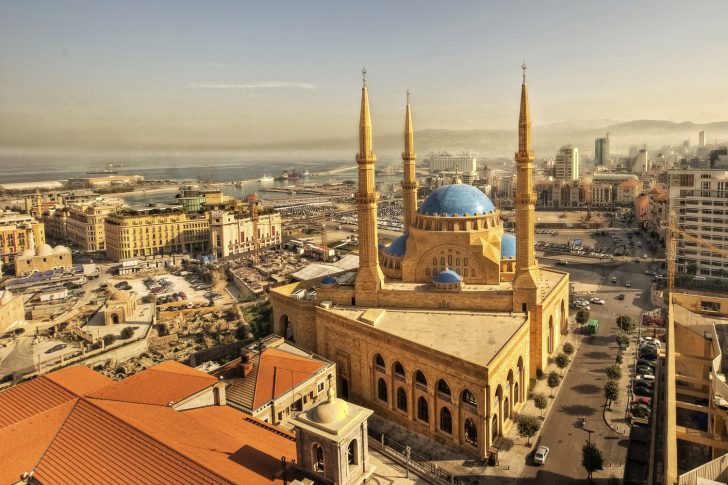
- Lebanon : Safety by City
The Republic of Lebanon is a small country located in the Middle East region, counting 3.7 million inhabitants and with Beirut as the capital city.
It boasts a rather long coastline on the eastern shore of the Mediterranean Sea and shares a border with its warring neighbor Syria to the north and the east, and a much shorter border with Israel to the south.
Unfortunately, this country is considered unsafe since its neighbor Syria is in a long war that has left consequences on Lebanon, too.
If you’re planning on traveling to Lebanon, keep in mind that this is a country of immense natural scenery from beautiful beaches to mountains and valleys.
It is one of the few countries where you can go skiing in the morning and then casually stroll to the beach in the afternoon and Lebanese people take pride in that fact, even though this is actually possible only for a few days in the year when winter shifts to spring and/or summer shifts to autumn.
- Warnings & Dangers in Lebanon
OVERALL RISK: HIGH
Generally, Lebanon isn't a safe country to visit, because of its complicated political situation and turmoil that took over the country and its neighbors. Be careful when traveling to Lebanon.
TRANSPORT & TAXIS RISK: MEDIUM
When it comes to transport, it isn't too safe. Generally, the roads in Lebanon are in good condition, but the problem is the number of reckless drivers. Also, street names are non-existent so be prepared to a lot of roaming around, and if you plan on mountain driving, keep in mind that it is particularly hazardous. Traffic jams are the norm in Lebanon.
PICKPOCKETS RISK: HIGH
Pickpockets do operate in Lebanon and tourists are commonly the victims of pickpocketing or bag snatching. Be careful in crowded places such as bus and train stations and keep your valuables in your accommodation.
NATURAL DISASTERS RISK: HIGH
Lebanon is susceptible to many natural disasters, like severe earthquakes which are the most dangerous threat to this country. They are probably associated with a tsunami. Minor natural hazards that hit Lebanon include floods, forest fires, landslides, and drought.
MUGGING RISK: HIGH
You should definitely be careful when it comes to violent crime in Lebanon. Organized criminal activity exists in the Beqa' Valley and includes drug trade that mostly has nothing to do with tourists, but there have been some kidnappings involving foreigners. Traveling in groups is recommended in this part of the country.
TERRORISM RISK: HIGH
Terrorists are very likely to try to carry out attacks in Lebanon. The threat comes from Islamist extremist groups that are known for targeting the Lebanese state, security services, and civilians, and even foreigners inside Lebanon. Extremist groups have been active within the city of Tripoli, Palestinian refugee camps and in areas close to the Syrian border.
SCAMS RISK: MEDIUM
Scams exist in Lebanon and you should use your wits while in this country. Double-check your change, never pay anything upfront and negotiate everything in advance. Be very careful around ATMs and be wary of people trying to distract you.
WOMEN TRAVELERS RISK: HIGH
Lebanon isn't dangerous for women particularly, but it is advised for tourists in general, regardless of their gender, not to roam around unaccompanied by someone who knows the safe and unsafe parts of the country.
- So... How Safe Is Lebanon Really?
Lebanon is a country filled with extremely friendly people, but you should know that there is a complicated political situation currently in Lebanon, which makes it unsafe to travel there.
For instance, traveling to eastern, southern, and northern areas which are close to the Syrian and Israeli borders is strongly advised against due to the spillover from the war with Syria and the conflict with Israel.
Also, you are recommended to avoid cities like Hermel, Dannie, and others close to the Syrian or Israeli border.
Lebanon’s capital, Beirut is still reasonably safe as are many other parts of the country, and the chances of something happening to you are small.
You should also be very careful in South Beirut, Baalbek, Sidon, and Beqaa valley, as they have also suffered sporadic clashes and/or had security incidents but these are sporadic events that aren’t too common and usually don’t affect foreigners.
What you should always keep in mind is that it is extremely important that you make sure to avoid any discussions related to politics or religion.
This country is home to a variety of ethnic and religious groups and any comment, and your comments might be taken as an offense even though they may not be malicious.
- How Does Lebanon Compare?
- Useful Information
Many countries do need a visa in order to enter Lebanon. Luckily, a one-month visa can be easily acquired on arrival at Beirut International Airport or any other port of entry at the Lebanese border. Make sure your passport is valid for at least the next six months. If you are not sure about your visa status, visit www.doyouneedvisa.com which will let you know whether or not you need a visa based on your nationality and the country you want to visit.
Lebanese pound is the official currency in Lebanon. ATMs are widespread throughout the country, and credit cards are accepted in most establishments. US dollars are also widely accepted in the country.
The climate in Lebanon is the Mediterranean with long, hot and dry summers and short, cool and rainy winters. Lebanon's location the African continent and the eastern Mediterranean area determine the climate of the country.
Beirut–Rafic Hariri International Airport formerly known as Beirut International Airport, is Lebanon's primary airport. It is located 9 km from the city center.
Travel Insurance
Just like anywhere else, we recommend getting travel insurance when traveling to Lebanon, since it covers not only the costs medical problems but also theft and loss of valuables.
Lebanon Weather Averages (Temperatures)
- Average High/Low Temperature
Lebanon - Safety by City
- Where to Next?
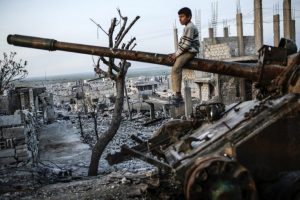
27 Reviews on Lebanon
Please relook at the risk number.
Please look into the actual facts on the ground. The risk should be at 60, but 35 is too low based on my many years of experience. As a woman I can freely walk and hold my bag and no one will approach or try to steal. Please fix the nunber to encourage tourists.
What about Jews?
Jessie, Lebanon is known to be very hostile to Jews, I actually agree with this site’s review. I can’t imagine a Jew walking around for a long period of time with more than a dew signs of being Jewish and not being attacked in any sort of way.
How will they know you are a jew? don’t be ridiculous.
Maybe that’s because Jews have a history of genocide. The Armenian/Greek/Assyrian genocide, the Holodomor, and the Palestinian genocide. I could go on. They are probably smart enough to know that as Israel’s neighbors, they could be next.
Fairy tales
Wow what fiction are you reading? “Palestinian genocide”? Fairy tales.
are you going to put a sign around your neck and say I am a jew? if you will do that, then this is called being provocative. If you walk around normally no one will actually tell you anything and they will be the friendliest around! stop spreading false new and false assumptions
lebanon is not pariticularly bad to jews. they are at war with Israel but I never heard stories of anything bad. if you have Israeli stamp forget getting in but that goes for everyone. Lebanon does not target specific people.
I have been around europe and i am always scared to visit even a single middle eastern countries for many reasons but i guess Lebanon will be my first choice.
Every season has a flavor in Lebanon don't miss it
I actually live in Lebanon and I think that maybe you should come and visit Lebanon then I am sure you will change a lot of what is written. Thanks
How is Lebanon 35 lol? It’s safer then most of the countries out there. Just avoid political and religious talk and you’re super safe. Rating should be like 65-70.
that aint true
no cause from the bombing
You mean 65-70 bombings? None of what you said correlates to a single fact about Lebanon. When you set peoples expectations high they hate it even more because you have to lie.
Increase the rating
Beirut is a safe country in general and 35 is a very very low rating. Also Beirut is the capital of Lebanon and not Israel.
Beirut is not a country. It’s a city which the article mentioned that it’s relatively safer than the border areas.
When people visits a country, they don’t usually stick to one city always. Tourists wants to explore other cities within the country and I think this article is reasonable.
Amazing Place to visit
My husband and i visited Lebanon in March 2019. At no point did we feel that we were in danger. We walked the sheets of Beirut. We rented a car and drove to the interior of the country including Bylbos, Bcharre, Zahle, Qaraoun, and the Bekha Valley. Traffic in Beirut is crazy, but outside the city it was fine. Roads were well marked. I cannot stress enough how safe we felt this entire time. As Americans, we were concerned that we would face hostilities. It was the opposite. The people were warm and welcoming. All over the country I saw optimism and hope for the future of the country. There was evidence of young entrepreneurs everywhere, especially in businesses related to tourism. This country is a jewel. Do not be scared off by biased reports.
Wrong rating
natural disasters risk is high? I think the one who wrote that shit ass article is high. Lebanon is one of the safest countries in the middle east and rating it 35 is really unjustified…
nice place but because of the explosion, it isn’t nice
Mafia country
I think Lebanon is a mafia country from the smallest person to the big leaders!
But it’s a safe country I can assure you, the women are open-minded! They are intelligent people but at the same time a bit naive because they destroy their beautiful country by stealing everything in it!
They don’t steal from you directly like in Egypt for example, but they scams you in everything, from the person who sells sandwiches to the big leaders of the country, they try always to save money and earn big money from you by giving you low-quality products but in the at the same time showing to you that this product is the best quality in the world.
They have this mentality in everything, and they are proud that they can do this when they are talking to each other! They are very happy and proud of it when they talk: “I ripped that person and stole his money”, and “his a pure and simple person” … but they forget that they are thieves!
I give you an example: one friend of mine went to fix his car and always he keeps a recording machine in his car to hear his wife what she talk and with who, he put the car in the garage and the next day he goes back to take it, they told him cannot fix his car all the gearbox is broken and need to change all or at least at the beginning need to take it out and see if they can change a part inside and then he can save a lot of money, in the same while he sees the workers laughing behind the car when the boss of the garage talk to my friend, so he was suspicious at that time but he cannot do anything, he said ok start to fix the car but first wait for a while to go the bank to see if his client send him money to his account today, if not he will call him to let him know to send money fast because he needs to fix the car urgently. , so he asks from the boss of the garage to give him two hours to solve the problem of money and the boss he said no problem take your time, the car is safe here , then my friend he go inside his car and take the small recording machine and he go to the nearest coffee to hear what they talk , and here the surprise: he heard the mechanical talk to the boss , that the problem is one fuse is broken and we need to change it ( this fuse is an electric small part cost normally 0.2$ To 0.5$ maximum ) and the boss he was angry and he shout on him and said : are you stupid ? We need to take off the gearbox , don’t speak anything to the client , how I pay salary for you ? If change this part only & he said to him : don’t speak to the client , when he came told him to speak to me only . And then my friend he go to the nearest police station to let the police come to his garage! But here the surprise, the police officers was his best friend of this boss , so he start to to talk to my friend , you put this machine in your car it’s illegal , and when He told him the reason of putting this machine inside his car , he ask the number of his wife from him and he want to call her and he want to arrest him , then my friend he scared a lot from his wife and he said to the police ok forget the case I will not speak to the garage boss anything , then the police he obliged him to sign a paper to not disturb the garage privacy anymore and he took his recording machine and he said to my friend if we know you make any problem to the garage boss , we will call your wife and bring her to show her the recording machine !!!!! So that’s why I told you at the beginning it’s a mafia country , so pay attention if you would like to visit this country because the law in the Lebanon that there is no low , BUT still really it’s a beautiful country who I definitely advice for visit ! Just keep your eyes open everywhere every time !!!
Your friend’s plan was not too smart.
Check your info before writing
Really? Pickpockets risk? You can walk around with all your jewels on!
Natural disasters risk?earthquakes and tsunami? Ridiculous…we haven’t have any of these in millions of years maybe!
Terrorism? In every country you have suburbs and mafia concentrated in small places!
Be real!who the hell wrote this article? Okay it isn’t like before but this is wayyyy exaggerated!
I’m just looking through this for school and I can tell just by reading the ratings, that this is way too over-exaggerated. Like come on why are some of these things so high, I have family in Lebanon and I can tell by what my family has told me too that it is nothing like this.
I am planning to travel to Lebanon this end of August 2022. Which is the best safest city to visit and by reading this article I am bit in two minds. Furthermore, is it too costly ?
Excellent and Best place I have ever been to
I strongly advise to visit this beautiful country as compared to what I have seen on the comments its not the same at all.
Visit on instagram “Livelove.tyre” “Livelovebeirut” “livelove.batroun” and check how lovely this country is!
The people are super friendly, generous and food is something YOU HAVE to TRy.
Dont forget to visit the best beaches, blue crystal sea and the nightlife in beirut!!!
Lebanon is fun but score is legit
This rating system is correct and everyone claiming otherwise 100% wrong. Lebanon doesnt deserve a higher safety score and the citizens dont strive to prove that wrong, with stupid things like firing guns straight up in the air and many negligent discarges.
I love lebanon
This article is slightly exaggerated I am an American female, I went to Lebanon alone, for the first time in may of this year I was there for a month, I stayed in gymayze, rented an apartment there by myself. I honestly felt more safe in Lebanon than I do in the states. I walked the around alone during the day and night, in the us I carry a gun because of how bad crime is where I live. I never felt the need to have to be armed at all. yeah theres issues on the borders just stay away from those areas. I don’t know what information this article was based on, but in 30 days i saw more people helping people that I have ever seen in the u.s. I am actually getting ready to board a plane in a few hours to go back. I happened to meet the love of my life there. Lebanon definitely has an economy crisis lights, water all that aren’t on a lot. However as far as the people and the safety value I think this article doesn’t do Lebanon justice at all.
The score should be lower, Hezbollah, a known terrorist organization with its own military and missiles it there, what other countries have that kind of thing? do you see that in Italy? Canda? The UK? No!
This is not a safe environment and terrorist organizations such as this should not exist, don’t travel here!
all the readers please this website is very good but do not believe the part of pickpocketing risk and natural disaster is not true
Share Your Experience Cancel reply
Your Review
Title of your review
Article Contents
- Overall Risk
- Transport & Taxis Risk
- Pickpockets Risk
- Natural Disasters Risk
- Mugging Risk
- Terrorism Risk
- Women Travelers Risk
- Weather Averages (Temperatures)
- User Reviews
- Share Your Experience
Popular Destinations

Safety Index
Recent reviews & comments.
- Claire Gardner on 10 Safest Cities in Ethiopia
- Dee Parker on 10 Safest Cities in Ethiopia
- Jane Dawson on Helena
- Maya Torres on Helena
- Keanna Litt on Monroe
Popular US States
- Pennsylvania

Search Smartraveller

Latest update
We now advise:
Do not travel to Lebanon due to the volatile security situation and the risk of the security situation deteriorating further.
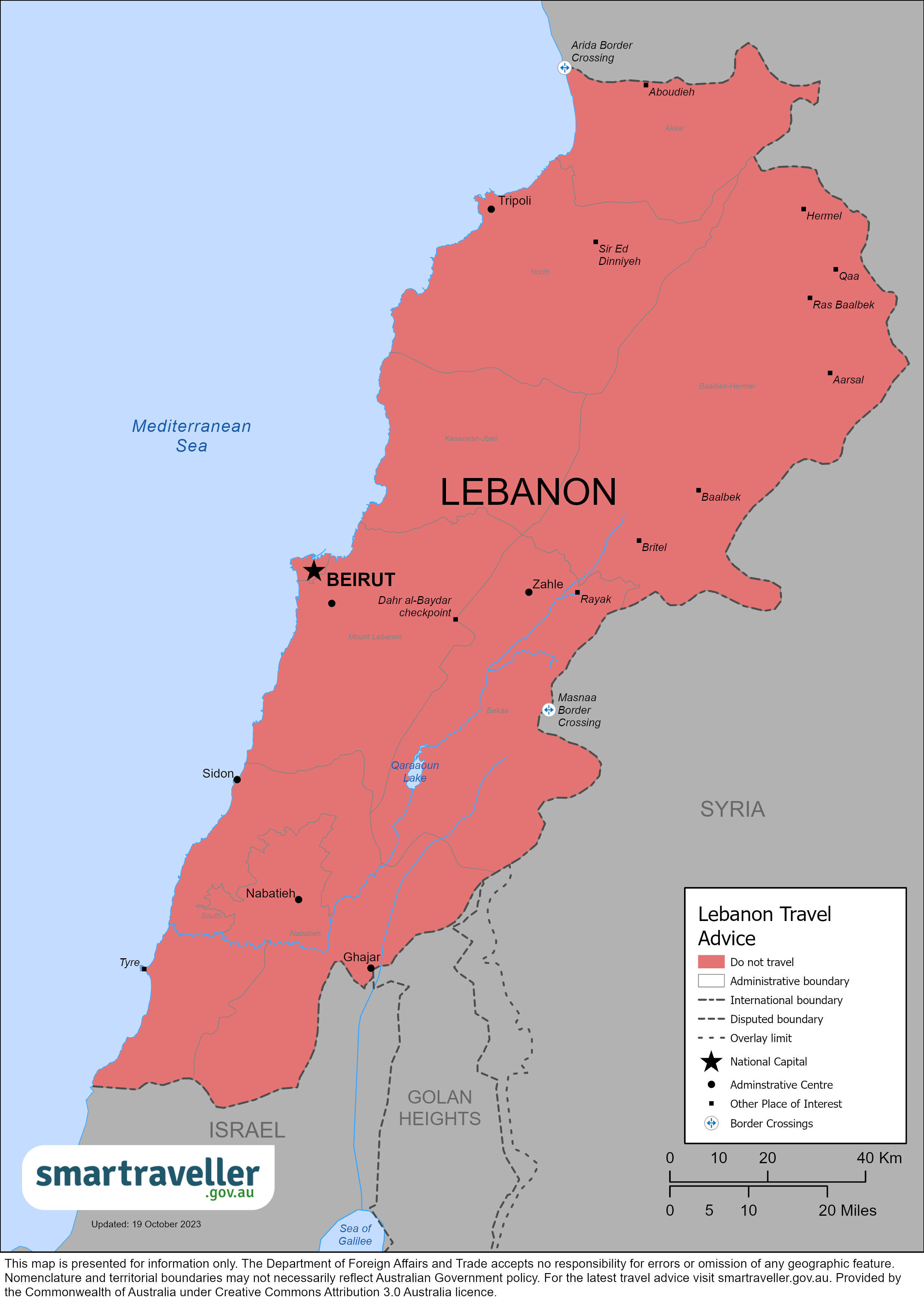
Lebanon (PDF 828.57 KB)
The Middle East (PDF 1.45 MB)
Local emergency contacts
Fire and rescue services, medical emergencies, advice levels.
Do not travel to Lebanon.
Do not travel to Lebanon due to the volatile security situation and the risk of the security situation deteriorating further.
See Safety .
- An increased threat of military and terrorist attacks against Israel and Israeli interests across the region and ongoing military action in the Occupied Palestinian Territories could lead to increased tensions in other locations in the Middle East. Demonstration and protest activity may occur, and localised security situations could deteriorate with little notice. Avoid all demonstrations and protests.
- Do not travel to Lebanon due to the volatile security situation and the risk of the security situation deteriorating further.
- This may also result in airspace closures, flight cancellations and diversions and other travel disruptions.
- There is a possibility of an increase in armed conflict that could affect wider areas of Lebanon. This could result in Beirut airport closing at short notice and you may not be able to leave for an extended period. Australians in Lebanon who wish to leave, should leave now while commercial flights remain available.
- If the security situation deteriorates and there is armed conflict, the Australian Government may not be able to assist you to leave in such circumstances. See our advice on ‘Armed conflict ’.
- If you're an Australian citizen or permanent resident in Lebanon you can register on DFAT's crisis registration portal. We’ll be contacting registered Australians directly with important updates.
- Read our Information for Australians in Lebanon , (also available in Arabic ), for advice on what to do if you're currently there.
- Ensure your travel documents are up to date. Ensure you have passports for children born in Lebanon and current passports for all family members travelling with you.
- Tensions are heightened due to recent events in Israel and Gaza.
- On 2 January, an explosion occurred in Beirut's southern suburbs (Dahiyeh region). Daily military action is occurring in southern Lebanon, including rocket and missile fire, as well as airstrikes. The situation could escalate quickly or spread to other areas in Lebanon, including Beirut. This could affect your ability to move to safety. Avoid areas where military activity is ongoing.
- Terrorist attacks could occur anytime and anywhere, including in Beirut. Suicide bombings and attacks involving improvised explosive devices (IEDs), air raids and kidnappings have occurred in Lebanon. Extremists may target foreigners. Take safety precautions. Always be alert to possible threats and avoid potential targets.
- Large protests happen and can turn violent. Tear gas, water cannons and live ammunition may be used. Avoid large public gatherings. Celebratory gunfire often occurs and has caused casualties. Stay inside during celebratory gunfire or if you're caught in civil unrest. Follow the advice of local authorities.
- There's a high threat of armed conflict south of the city of Sidon. The United Nations Interim Force in Lebanon (UNIFIL) has a peacekeeping presence there. Israeli forces occupy the southern border town of Ghajar. Tensions remain high in the surrounding region, including the Shebaa Farms, where daily military action is occurring. Avoid areas of military conflict.
Full travel advice: Safety
- Shortages of pharmaceuticals and medical supplies could occur without notice. Make sure you have enough medication with you, including if you need to depart Lebanon.
- The public health care system is limited. Most reputable hospitals are private and expensive. You'll probably have to pay up front.
- Health risks include possible water contamination, waterborne illnesses and air pollution caused by burning waste and backup generators. Avoid uncollected waste. Drink only boiled or bottled water from bottles with sealed lids.
Full travel advice: Health
- Religious law and civil law are treated equally. All family law matters are based on local religious laws. Stop-orders that prevent you from leaving Lebanon may arise from family disputes. If you're involved in divorce, custody or other family disputes, speak to a lawyer before you leave Australia.
- Don't use or carry illegal drugs. Penalties are severe and include jail terms.
- Serious crimes like murder and treason may result in the death penalty.
- Lebanon recognises dual nationality. However, Lebanese authorities treat Lebanese dual nationals as Lebanese citizens. This may limit our ability to help you if you're arrested or detained.
- Standards of dress and behaviour are modest in parts of Lebanon, particularly at religious sites. Public displays of affection may cause offence.
- Be careful when taking photos. Photographing military personnel or sites, government buildings and major civil infrastructure, such as power stations and other installations is illegal.
Full travel advice: Local laws
Information on applying for a visa to enter Australia is available on the Department of Home Affairs Lebanon Visa Support website (also available in Arabic ).
- You can get a tourist visa on arrival in Lebanon. Entry and exit conditions can change at short notice. Contact the nearest embassy or consulate of Lebanon for the latest details.
- Always carry ID. You'll need to show it at road checkpoints. Lebanese General Security (border control) will check your name against a database of people wanted for or convicted of an offence. If your name matches an entry, you may be detained. You'll have to prove that the record doesn't relate to you. Carry supporting documents, such as a copy of your birth certificate or other official documents.
- Flights to and from Lebanon may fly over Syria, where ongoing conflict may increase risks to civil aviation. Civil aviation authorities in a number of countries do not allow airlines from those countries to fly in Syrian airspace. Check with your airline or travel agent for updates and flight options.
Full travel advice: Travel
Local contacts
- The Consular Services Charter details what we can and can't do to help you overseas.
- For consular assistance, contact the Australian Embassy in Beirut .
- To stay up to date with local information, follow the Embassy's social media accounts.
Full travel advice: Local contacts
Full advice
Crisis registration.
If you're an Australian citizen or permanent resident in Lebanon you can register on DFAT's crisis registration portal. We’ll be contacting registered Australians directly with important updates and registration will make it easier for DFAT to contact you if assistance is required.
More information on returning to Australia can be found at Information for Australians in Lebanon .
Keep your registration details up to date so we can contact you.
You should only register if you’re in Lebanon and are:
- An Australian citizen, or
- An Australian permanent resident or
- an immediate family member of an Australian citizen or permanent resident
CLICK HERE TO REGISTER on DFAT's crisis registration portal.
Applying for a visa to Australia
Security situation
We continue to advise Do Not Travel to Lebanon due to the volatile security situation and the risk of the security situation deteriorating further.
Daily military action is occurring in southern Lebanon, including rocket and missile fire, as well as airstrikes. On 2 January 2024, an explosion occurred in Beirut's southern suburbs (Dahiyeh region). The situation could escalate quickly. This could affect your ability to move to safety. Avoid areas where military activity is ongoing.
There is a possibility of an increase in armed conflict that could affect wider areas of Lebanon, including Beirut. If the security situation in Lebanon deteriorates, Beirut airport will likely close at short notice and you may not be able to leave for an extended period. Australians in Lebanon who wish to leave, should leave now while commercial flights remain available. If the security situation deteriorates and there is armed conflict, the Australian Government may not be able to assist you to leave in such circumstances. See our advice on armed conflict .
To be well prepared to leave quickly, make sure you have:
- up-to-date travel documentation
- passports for children born in Lebanon
- current passports for family members travelling with you
- any medications you may need while travelling
If violence increases, roads and highways could become blocked. This includes routes to airports and borders.
Follow the advice of local authorities, including alerts to seek shelter. Monitor local media for updates.
If you need emergency consular assistance, contact the Australian Government's Consular Emergency Centre on +61 2 62613305 (from overseas) or 1300 555 135 (in Australia).
Be extra cautious. The security situation is unpredictable and is affected by events including:
- clashes across the Lebanese/Israeli border
- conflict in neighbouring Syria
- the threat of terrorist attacks
- ongoing economic crisis, political and religious tensions
The ongoing crisis has reduced Lebanese law enforcement capacity.
Civil unrest and political tension
The security situation in the region remains unpredictable and could deteriorate with little or no warning.
Political changes in the region and international events may prompt large demonstrations or violence. Planned and on-the-spot demonstrations can take place.
Anti-government protests occur. Protests may target key institutions and sites, including banks. Some can be large and escalate into violent clashes between protesters and security forces.
Authorities use various measures to break up crowds, including:
- water cannons
- live ammunition
These measures have resulted in injuries.
Public protests and events that draw large groups of people can turn violent, including the use of weapons. You could be caught in violence directed at others.
During civil unrest and times of heightened tensions:
- avoid all crowds, protests and demonstrations
- pay close attention to your personal security
- monitor the media and other sources for news on planned and possible actions
- avoid areas where violence has occurred or is likely to occur
- plan your activities to avoid potential unrest on days of national significance
- be prepared to change your travel plans in case of disruptions
If you're in an area affected by clashes:
- stay indoors and away from windows and balconies
- follow the advice of local authorities
Stay indoors during celebratory gunfire, which has caused casualties, and often happens during and after political speeches, weddings, funerals and religious and new year holidays.
If transport disruptions affect your travel plans, contact your airline, travel agent or insurer for help.
Leave Lebanon if you're concerned about your safety.
More information:
Demonstrations and civil unrest
In times of civil unrest, avoid areas of Beirut where protests are known to occur.
In Beirut, protests sometimes close main highways. Burning of tyres to block main roads is common. Groups protest against:
- government policies
- the situation in Syria
- the security environment
- the deteriorating social and economic situation
Civil unrest can affect the highways between central Beirut and the international airport. Armed clashes have occurred in some areas of Beirut.
Southern suburbs (Dahiyeh region) of Beirut
Don't go to the Dahiyeh region, including:
- the area south of the Camille Chamoun Sports Stadium to the airport (south from Adnon El Hakim Road to Abbas El Mousawi Road). This includes the suburbs of Chiyah, Ghobeire, Haret Hreik, Bir el Abed, Borj el Barajne, Mraije, Roueiss, Lailake, Hay el Sellom, Tahouitit el Ghadir and Bir Hassan
- east of the airport highway
- west of the airport highway to El Akhtal El Saghir Road and south of the Coral Beach Hotel.
This area does not include the main airport highway (Hafez El Assad).
Security in the area is still unstable. You may be caught up in violent attacks between armed groups. Terrorist attacks may occur.
Palestinian refugee camps
Don't visit Palestinian refugee camps in any part of Lebanon.
Extremist groups operate inside camps. The security situation is uncertain and could get worse without warning.
The Lebanese state has no formal security presence in the camps. Armed clashes between rival groups happen. Violent crime is common.
Also avoid the general vicinity around the camps when there's heightened tension or armed clashes. Stray ammunition has caused casualties.
Tripoli and northern Lebanon
Don't go to Tripoli's Jabal Mohsen and Bab-al-Tabbaneh neighbourhoods. Violent clashes in the early stages of the Syrian conflict killed more than 200 people. The risk of civil unrest remains high and can turn violent.
In 2019, a lone wolf terrorist attack in Tripoli killed 4 members of the security service.
Lebanese authorities say extremists have taken refuge in northern Lebanon, including throughout the Akkar district.
North-eastern Beka'a Valley
Don't go to the north-eastern Beka'a Valley region, extending east and north from Rayak. This includes:
- Hermel-Baalbek region
- the towns Arsal, El Qaa and Ras Baalbek
Clashes between Lebanese security forces and militants are possible.
Other parts of the Beka'a Valley
Take extra care in the Beka'a valley, south of Zahle and Rayak, where the security environment is uncertain.
In August 2016, a roadside bomb exploded in Zahle. It killed 2 people and injured many others.
Regions within 5km of the Syrian border
Don't travel within 5km of the border with Syria, including:
- north of the Halba-Qoubaiyat Road, northern Akkar
- Hermel Wadi Khaled
- the Golan Heights
- Shebaa Farms
The conflict in Syria has led to repeated violent incidents in these areas.
Southern Lebanon
Don't travel to areas south of the city of Sidon (Saida).
Daily military action is occurring and could escalate quickly. This could affect your ability to move to safety. There's an uncertain security environment and there are also landmines and unexploded ordnance.
Avoid crowds and large gatherings. You could be caught up in violence directed at others.
The United Nations Interim Force in Lebanon (UNIFIL) maintains peacekeeping activities south of the Litani River.
Israeli forces are in the southern border town of Ghajar. There are still tensions in the surrounding region, including the Shebaa Farms, where military activities have taken place. Shelling has been reported.
Although the Lebanese Armed Forces and United Nations peacekeeping forces are present in southern Lebanon, the situation could change quickly.
You could be caught up in violence directed at others.
Avoid areas where military activity is ongoing. Be ready to leave at short notice.
Be extra careful in the city of Sidon (Saida) where there's a history of violence between Lebanese armed forces and local militia.
Don't visit the Palestinian refugee camp of Ein El-Hilweh. There are ongoing clashes between rival groups, including the use of heavy weapons and snipers. Many people have been killed or injured. Lebanese authorities have limited capacity to impose law and order.
Also avoid the general vicinity around the Ein El-Hilweh camp when there's heightened tension or armed clashes. Stray ammunition has caused casualties.
There's a threat of terrorism in Lebanon. Attacks could occur anytime and anywhere, including in Beirut. Tactics used by terrorists can include car bombing, suicide bombing and rocket fire. Foreigners may be targeted.
Security services are on a high state of alert and continue to carry out operations to prevent attacks.
If you notice a security operation is underway, leave the area straight away.
Targets associated with the Lebanese Government include:
- government institutions, senior politicians, and officials
- the Lebanese Armed Forces
- infrastructure such as airports and public building
UNIFIL has also been targeted.
Terrorists may also target areas frequented by foreigners, such as:
- buildings associated with embassies, foreign companies, and international organisations
- schools and places of worship
- hotels, clubs, restaurants and bars
- shopping centres, markets and grocery stores
- public transport
- promenades, cinemas, outdoor recreation events and other tourist areas
Extremists have increased attacks in the lead-up to and on days of national and religious significance.
Always be alert to possible threats, especially in public places.
Report any suspicious items or activities to police.
To reduce your risks:
- take official warnings seriously
- consider the likely level of security at known terrorist targets when planning your activities
- monitor the media for threats
- follow the instructions of local authorities.
If there's a terrorist attack:
- leave the affected area immediately if it's safe
- avoid the area afterwards in case of more attacks.
Don't gather in groups after an attack. This also applies if you're evacuated from a building for safety or security reasons.
Terrorism is a threat worldwide.
Kidnapping occurs across the world with political, ideological, and criminal motives. Foreigners, including Australians, have been kidnapped overseas whilst travelling. Kidnaps can happen anywhere, anytime, including destinations that are typically at lower risk. There is a risk of kidnapping along the border regions with Syria and Israel, where criminal gangs rely on ransom payments to make revenue. To reduce the risk of kidnapping:
- always be alert to your personal security and surroundings
- get professional security advice for travel in locations with a heightened kidnap risk
- check your accommodation has appropriate security measures
- avoid isolated locations, particularly when travelling alone
- notify family or friends of planned travel and share your location
- avoid talking about your money or business affairs
- use ATMs in public places and during daylight hours
- avoid giving personal details to strangers online or over the phone
The Australian Government's longstanding policy is that it doesn't make payments or concessions to kidnappers. Ransom payments to kidnappers have funded further terrorist attacks and criminal activity. Paying a ransom to terrorist groups will likely break Australian counter-terrorism financing laws. More information:
- Kidnapping
Crime in Lebanon has increased due to the declining economic situation.
It could include:
- vehicle crime
- petty theft such as bag snatching (including by motorbike riders)
- home break-ins and armed robberies (especially at banks)
- physical and sexual assault
Always be aware of your surroundings.
- Female travellers
- LGBTQIA+ travellers
Cyber security
You may be at risk of cyber-based threats during overseas travel to any country. Digital identity theft is a growing concern. Your devices and personal data can be compromised, especially if you’re connecting to Wi-Fi, using or connecting to shared or public computers, or to Bluetooth.
Social media can also be risky in destinations where there are social or political tensions, or laws that may seem unreasonable by Australian standards. Travellers have been arrested for things they have said on social media. Don't comment on local or political events on your social media.
Climate and natural disasters
Lebanon experiences natural disasters and severe weather .
Lebanon is in an active earthquake zone.
Bush and forest fires occur in the summer months (July to September), especially in heavily forested areas. Avoid fire-affected areas. Monitor the media for updates.
Sand and dust storms are common. They may pose health risks, especially to people with breathing problems.
If a natural disaster or severe weather happens:
- monitor the Global Disaster Alert and Coordination System
Travel insurance
Get comprehensive travel insurance before you leave.
Your policy needs to cover all overseas medical costs, including medical evacuation. The Australian Government won't pay for these costs.
You'll probably need a specialised insurance policy that covers travel to high-risk destinations.
If you can't afford travel insurance, you can't afford to travel. This applies to everyone, no matter how healthy and fit you are.
If you're not insured, you may have to pay many thousands of dollars upfront for medical care.
- what activities and care your policy covers
- that your insurance covers you for the whole time you'll be away
Physical and mental health
Consider your physical and mental health before you travel, especially if you have an existing medical condition.
See your doctor or travel clinic to:
- have a basic health check-up
- ask if your travel plans may affect your health
- plan any vaccinations you need
Do this at least 8 weeks before you leave.
If you have immediate concerns for your welfare, or the welfare of another Australian, call the 24-hour Consular Emergency Centre on +61 2 6261 3305 or contact your nearest Australian Embassy, High Commission or Consulate to discuss counselling hotlines and services available in your location.
- General health advice
- Healthy holiday tips (Healthdirect Australia)
Shortages of pharmaceuticals and medical supplies can occur without notice.
Not all medication available over the counter or by prescription in Australia is available in other countries. Some may even be considered illegal or controlled substances, even if prescribed by an Australian doctor.
If you plan to bring medication, check if it's legal in Lebanon. Take enough legal medicine for your trip.
Carry a copy of your prescription or a letter from your doctor stating:
- what the medication is
- your required dosage
- that it's for personal use
Health risks
Health risks include possible water contamination, waterborne illnesses and air pollution caused by burning waste and exhaust fumes from diesel generators. Drink only boiled or bottled water from bottles with sealed lids. Drink only boiled or bottled water from bottles with sealed lids.
Medical care
Medical facilities.
The standard of medical facilities and care in many of Lebanon's large private hospitals is generally as good as in Australia. However, the public health system doesn't work in the same way. Most reputable hospitals are private and expensive.
The ability of some hospitals to provide medical care may be impacted by the economic situation, shortages of medical supplies and frequent power cuts.
Doctors usually accept upfront cash payment for services. Treatment can be expensive.
Before treating patients, hospitals usually require a guarantee of payment such as:
- confirmed travel insurance with medical cover
- an up-front deposit
The American University of Beirut Medical Center has a decompression chamber.
You're subject to all local laws and penalties, including those that may appear harsh by Australian standards. Research local laws before travelling.
Crimes under Lebanese laws may not be considered offences in Australia. Religious law has the same standing as civil law, which incorporates family law, marriage, divorce and custody.
If you're arrested or jailed, the Australian Government will do what it can to help you under our Consular Services Charter . But we can't get you out of trouble or out of jail.
All family law matters are based on local religious laws. This includes child custody and divorce decisions.
If you're involved in custody or other family disputes, speak to a lawyer before you leave Australia. Ask for advice on how religious law may affect your family circumstances.
Lebanon has not signed the Hague Convention on the Civil Aspects of International Child Abduction . There is no quick method to return a child abducted by a parent to Lebanon back to Australia.
Lebanese nationals and non-nationals can stop family members from leaving Lebanon if there are pending family court matters. It won't matter if the family members are Australian citizens.
Authorities have stopped Australians and Australian-Lebanese dual nationals, including mothers with children, from leaving Lebanon. Relatives have legally placed border alerts ('stop orders') where there are pending family court matters. Stop orders are not difficult to arrange. Overturning stop orders can be a time consuming and complicated process.
The Australian Government can't prevent or overturn a stop order on an Australian citizen.
Penalties for drug offences are severe and include mandatory jail terms.
Carrying or using drugs
Serious crimes, such as murder and treason, may attract the death penalty.
Access to some areas of Lebanon is restricted.
Authorities may detain you and take your camera if you photograph or film:
- military personnel or facilities
- government buildings
- major civilian infrastructure (such as power stations)
LGBTQIA+ information
Same-sex relations are illegal in Lebanon. Penalties include jail terms of up to one year.
There's been an increase in anti-LGBTQIA+ rhetoric in the community. Some incidents of targeted harassment have occurred.
Advice for LGBTQIA+ travellers
Australian laws
Some Australian criminal laws still apply when you're overseas. If you break these laws, you may face prosecution in Australia.
Australians may be charged under Australian law if they take part in conflict in other countries.
Staying within the law and respecting customs
Dual citizenship
Lebanon recognises dual nationality. However, Lebanese citizenship takes precedence over the second nationality.
If you're a dual national, Lebanese authorities will treat you as a Lebanese citizen. This may limit the consular services we can provide if you're arrested or detained.
If you're a dual citizen re-entering Lebanon on your Lebanese passport or identity document, make sure:
- your Lebanese documentation is up to date
- you meet all entry requirements
- Embassy or consulate of Lebanon
- Dual nationals
Local customs
Standards of dress and behaviour are modest in parts of Lebanon, particularly at religious sites.
Take care not to offend. If in doubt, seek local advice.
Public displays of affection may cause offence in conservative and religious areas.
Some hotels ask for proof of marriage before renting rooms to couples. Hotels may refuse you accommodation if you can't provide proof.
The Islamic holiday month of Ramadan is observed in Lebanon. Respect religious and cultural customs and laws during this time.
Avoid eating, drinking or smoking in public or in front of people who are fasting.
Visas and border measures
Every country or territory decides who can enter or leave through its borders. For specific information about the evidence you'll need to enter a foreign destination, check with the nearest embassy, consulate or immigration department of the destination you're entering.
You can get a tourist visa on arrival.
Entry and exit conditions can change at short notice. Contact the nearest Lebanese embassy or consulate for details about visas, currency, customs and quarantine rules.
Every country or territory decides who can enter or exit through its borders.
Make sure you meet all entry and exit conditions. If you don't, the Australian Government can't help you.
Border measures
For measures regarding travel between Syria and Lebanon, contact Lebanese and Syrian authorities.
- Lebanon - Ministry of Public Health
- Medical assistance overseas
Other formalities
Travel to israel.
It's against Lebanese law to travel to Israel.
If you're an Australian dual national of Lebanon or another Arab nation and you've travelled to or intend to travel to Israel, authorities are likely to arrest and imprison you.
Authorities can hold anyone for questioning for several days and then deport them.
If there's evidence that you've travelled to Israel, or intend to, you will be refused entry to Lebanon or will be deported. Evidence includes:
- Israeli exit or entry stamps in your passport
- Egyptian or Jordanian stamps from border crossings with Israel
- travel itineraries or tickets that include Israel as a destination
- souvenirs from Israel
- airline tags on your bags
Border alerts
Lebanese Border Control checks all traveller names on arrival and departure against a database of border alerts ('stop orders').
Border alerts are raised if there are pending court cases or warrants for people:
- who are wanted for an offence in Lebanon
- who have been convicted of an offence in Lebanon
- with pending family court matters (see Local laws )
If your name matches an entry in the database, authorities may detain you. You'll have to prove the record doesn't relate to you.
Carry supporting identity documents.
Travellers have been detained due to cases of mistaken identity.
Some countries won't let you enter unless your passport is valid for 6 months after you plan to leave that country. This can apply even if you're just transiting or stopping over.
Some foreign governments and airlines apply the rule inconsistently. Travellers can receive conflicting advice from different sources.
You can end up stranded if your passport is not valid for more than 6 months.
The Australian Government does not set these rules. Check your passport's expiry date before you travel. If you're not sure it'll be valid for long enough, consider getting a new passport .
Lost or stolen passport
Your passport is a valuable document. It's attractive to people who may try to use your identity to commit crimes.
Some people may try to trick you into giving them your passport. Always keep it in a safe place.
If your passport is lost or stolen, tell the Australian Government as soon as possible:
- In Australia, contact the Australian Passport Information Service .
- If you're overseas, contact the nearest Australian embassy or consulate .
Passport with X gender identifier
Although Australian passports comply with international standards for sex and gender, we can’t guarantee that a passport showing 'X' in the sex field will be accepted for entry or transit by another country. Contact the nearest embassy, high commission or consulate of your destination before you arrive at the border to confirm if authorities will accept passports with 'X' gender markers.
The Lebanese Pound is the official currency of Lebanon. Both the USD and the Lebanese Pound (also known as the Lebanese Lira) are accepted throughout Lebanon.
Currency exchange facilities and ATMs are widely available in Beirut and other large cities. Daily withdrawal limits may apply.
The Lebanese Pound has devalued sharply as a result of the ongoing economic crisis. This has led to high inflation and diminished the purchasing power of the Lebanese Pound. Make sure you have access to enough hard currency cash during your stay. Contact your bank and monitor media reports before you travel to Lebanon.
Local travel
Fuel and power shortages frequently occur, disrupting public water supply and telecommunication networks, including mobile and internet.
Expect delays and closures at service stations during fuel shortages. Acts of violence and security incidents have occurred at fuel distribution and storage sites.
Public and private sector industrial strikes occur occasionally, which may affect essential services, including telecommunications and the banking sector.
Shortages of pharmaceuticals and medical supplies can occur without notice.
Monitor the media for updates on changes that may affect your safety and access to essential services.
Road travel
If you plan to drive in Lebanon, you should hold an International Drivers Permit.
Armed security is present throughout Lebanon, including at road checkpoints.
Always carry ID. Follow the advice of security personnel.
Driving can be dangerous due to:
- poorly maintained roads and vehicles
- snow and ice in winter
- traffic conditions
- poor local driving habits
- lack of streetlights and functioning traffic lights
There are many unexploded weapons throughout Lebanon, including:
- cluster bombs
Most are in the south, especially south of the Litani River.
Minefields aren't always clearly marked. Those that are marked can shift away from signed areas.
To protect yourself from landmines:
- ask local residents for advice
- stay on sealed roads
- avoid walking or driving cross-country
Roads may be blocked during demonstrations and civil unrest. This includes routes to and from the airport and border crossings.
Driving or riding
Don't use service (shared) taxis or taxis hailed on the street, especially late at night.
Only use taxis from recognised companies. Australian Embassy staff in Beirut have been advised to use Allo Taxi.
Flights to and from Lebanon may fly over Syria, where ongoing conflict could increase risks to civil aviation. Civil aviation authorities in a number of countries do not allow airlines from those countries to fly in Syrian airspace. For more information, refer to the Smartraveller page on air travel and check with airlines before booking. Flight paths are subject to change. Check with your airline or travel agent for updates and flight options.
DFAT doesn't provide information on the safety of individual commercial airlines or flight paths.
Adventure activities
Transport and tour operators don't always follow safety and maintenance standards. This includes for adventure activities.
If you plan to do an adventure activity :
- check if your travel insurance policy covers it
- ask about and insist on minimum safety requirements
- always use available safety gear, such as life jackets or seatbelts
If proper safety equipment isn't available, use another provider.
Emergencies
Depending on what you need, contact your:
- family and friends
- travel agent
- insurance provider
Call 140 or 81715076.
Always get a police report when you report a crime.
Your insurer should have a 24-hour emergency number.
Consular contacts
Read the Consular Services Charter for what the Australian Government can and can't do to help you overseas.
For consular assistance, contact the Australian Embassy in Beirut .
Australian Embassy
Embassy Complex Serail Hill Downtown Beirut Lebanon
Phone: +961 1 960600 Email: [email protected] Website: lebanon.embassy.gov.au Facebook: Australian Embassy - Beirut, Lebanon X: @SafirAustralia
24-hour Consular Emergency Centre
In a consular emergency outside of the Embassy’s business hours, or if you can’t contact the Embassy, call the 24-hour Consular Emergency Centre (CEC) on:
- +961 1 960600 from Lebanon (and press 7 to speak to a CEC operator)
- +61 2 6261 3305 from overseas
- 1300 555 135 in Australia

Travelling to Lebanon?
Sign up to get the latest travel advice updates..
Be the first to know official government advice when travelling.
Feel the summer breeze!
All inclusive family packages, club med ski resorts.
Discount Up to 15% OFF
With Costa Cruises
Beautiful things don't ask for attention!
H O N E Y M O O N
Plan it perfectly!
Short Breaks
We make your dreams happen!
- Message Us Send a Request
Du Parc building, Sami El Solh Avenue - Beirut
- Main Office - BEY +961 1 389 389 Dubai +971 58 898 8244 Whatsapp from abroad +961 3 389 222
- LATEST NEWS CLICK HERE

Featured Destinations
.jpg)
From 01 April till 31 May 2024 3, 4 or 7 nights
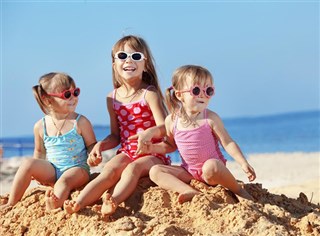
From 01 June till 30 September 2024
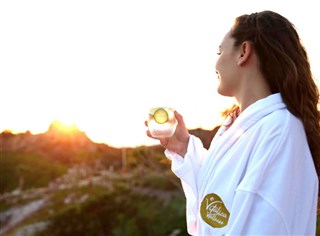
From 01 April till 30 December 2024 Stay 1 to 15 nights
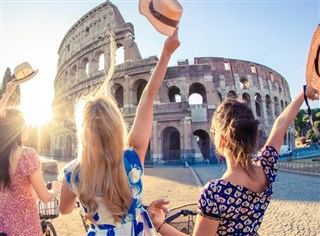
29 June; 13 & 27 July; 10 & 24 August 2024
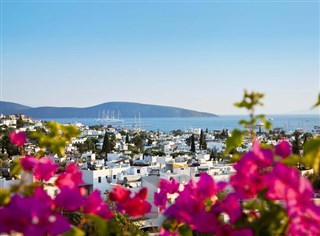
From 13 June till 10 September 2024
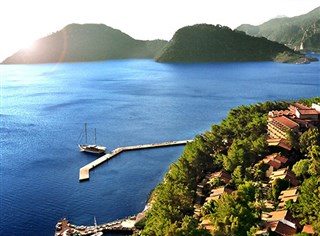
From 10 June till 26 October 2024

From 02 July till 31 August 2024
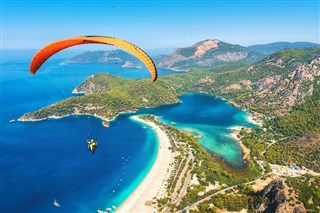
From 06 July till 24 August 2024
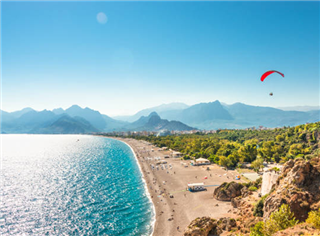
From 12 June till 06 October 2024
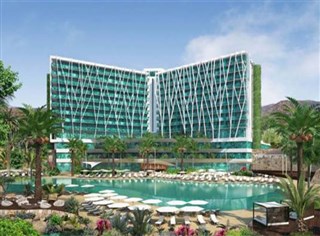
Hills Resort
Marbella - Spain
Starting price per week: €1181
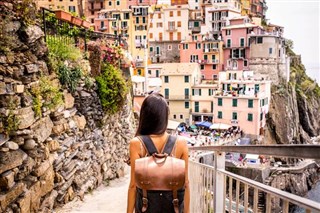
From 03 May till 22 November 2024
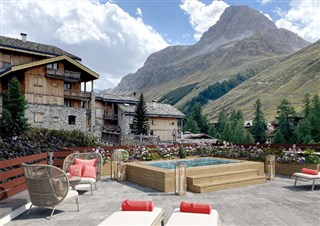
EXCLUSIVE COLLECTION
Starting price per week: €1811
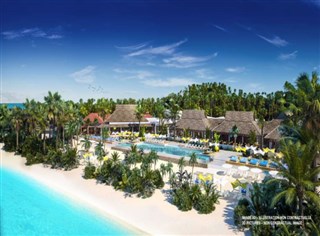
EXCLUSIVE COLLECTION SPACE
Beach Resort
Seychelles Island
Starting price per week: €2271
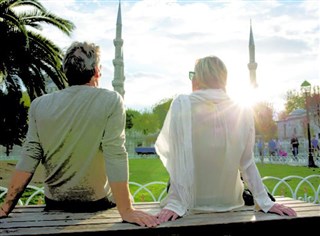
16, 23 & 30 June; 07, 14, 21 & 28 July; 04, 11, 28 & 25 August; 01 & 08 September 2024
Special Offers

DOWNLOAD OUR CATALOGUES

We take you where no other airline does.

Your connection to a wide choice of hotels and airlines

We’re sorry, this site is currently experiencing technical difficulties. Please try again in a few moments. Exception: request blocked

- Click to send an email
- +961 71 972 111
Don't dream it, Live it.
Relax and enjoy, barakat travel is a leading travel agency in lebanon.
Barakat Travel is a leading travel and tourism agency since 1980. Through collaborations with touristic agencies worldwide and visa application centers we are… Read more
Celebrate Hope & Renewal:
Barakat easter packages.
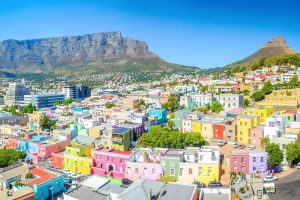
Easter in Capetown Africa
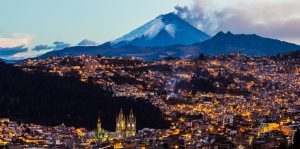
Easter in Ecuador

Easter in Prague
Choose your, perfect package, breathtaking events.

Input your search keywords and press Enter.
Numbers, Facts and Trends Shaping Your World
Read our research on:
Full Topic List
Regions & Countries
- Publications
- Our Methods
- Short Reads
- Tools & Resources
Read Our Research On:
Americans who have traveled internationally stand out in their views and knowledge of foreign affairs
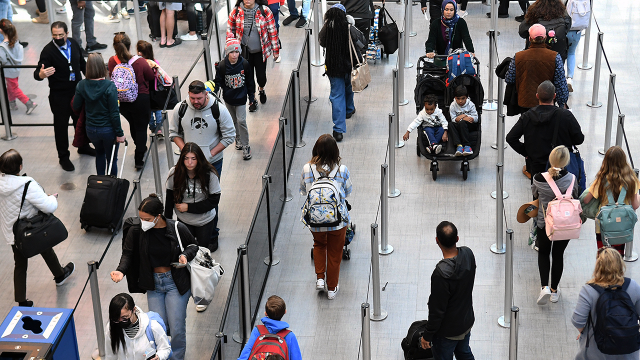
Do people who travel think differently about the world? A new Pew Research Center survey suggests they do.
Americans who have traveled internationally are more interested in and knowledgeable about foreign affairs, feel closer to others around the world, and favor a more active foreign policy, according to the survey of 3,576 U.S. adults conducted in spring 2023. We also surveyed people in 23 other countries about their international travel habits.
This analysis examines international travel with a focus on Americans’ travel, including which Americans travel abroad and how their interest in the world and views of international affairs differ from others.
For this analysis, we surveyed 3,576 U.S. adults from March 20 to March 26, 2023; 3,581 U.S. adults from March 21 to March 27, 2022; and 10,606 U.S. adults from June 14 to June 27, 2021. Everyone who took part in these surveys is a member of the Center’s American Trends Panel (ATP), an online survey panel that is recruited through national, random sampling of residential addresses. This way nearly all U.S. adults have a chance of selection. The survey is weighted to be representative of the U.S. adult population by gender, race, ethnicity, partisan affiliation, education and other categories. Read more about the ATP’s methodology .
For non-U.S. data, this report draws on nationally representative surveys of 27,285 adults conducted from Feb. 20 to May 22, 2023. All surveys were conducted over the phone with adults in Canada, France, Germany, Greece, Italy, Japan, the Netherlands, South Korea, Spain, Sweden and the United Kingdom. Surveys were conducted face-to-face in Hungary, Poland, India, Indonesia, Israel, Kenya, Nigeria, South Africa, Argentina, Brazil and Mexico. In Australia, we used a mixed-mode probability-based online panel.
Here are the June 2021 survey questions and responses used in this analysis. Those for the March 2022 survey may be found here , as well as those for the March 2023 survey .
How many Americans have traveled internationally?
Roughly three-quarters of Americans (76%) have visited at least one other country, including 26% who have been to five or more. About a quarter (23%) have not traveled internationally, though most in this group say they would if they had the opportunity.
Related: How experience with international travel varies across 24 countries
To analyze how Americans’ travel experiences relate to their attitudes on other questions, we placed people into three categories:
- Globe-trotters have traveled to at least five other countries. About a quarter of the U.S. public (26%) falls into this category.
- Casual travelers have traveled to between one and four other countries. Half of Americans fall into this category.
- Nontravelers have never left the United States. This category includes 23% of Americans.
Compared with Americans, people in many European nations are more likely to have traveled to five or more other countries. For instance, 88% of Swedes have done so.
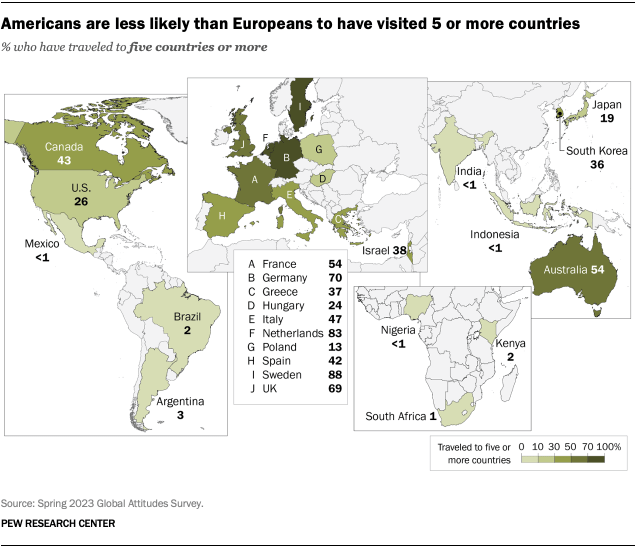
However, international travel is much less common in many middle-income nations. It is strongly correlated with a nation’s gross domestic product per capita. (For more on international travel and views about global engagement, read “Attitudes on an Interconnected World.” )
Who travels internationally?

Perhaps unsurprisingly, older people are more likely than younger people to have traveled internationally. Americans ages 65 and older are more than twice as likely as adults under 30 to fall into our globe-trotter category (37% vs. 17%).
Income is even more strongly related to travel than age. Two-thirds of upper-income Americans have traveled to at least five countries, compared with 9% of Americans with lower incomes.
Similarly, Americans with a postgraduate degree are far more likely to be globe-trotters than those with a high school education or less (59% vs. 10%).
Residents of suburban and urban areas generally have more international travel experience than people who live in rural areas.
There are no significant partisan differences when it comes to international travel: 26% of Democrats and Democratic-leaning independents qualify as globe-trotters, as do 28% of Republicans and GOP leaners.
Do travelers know more about the world?
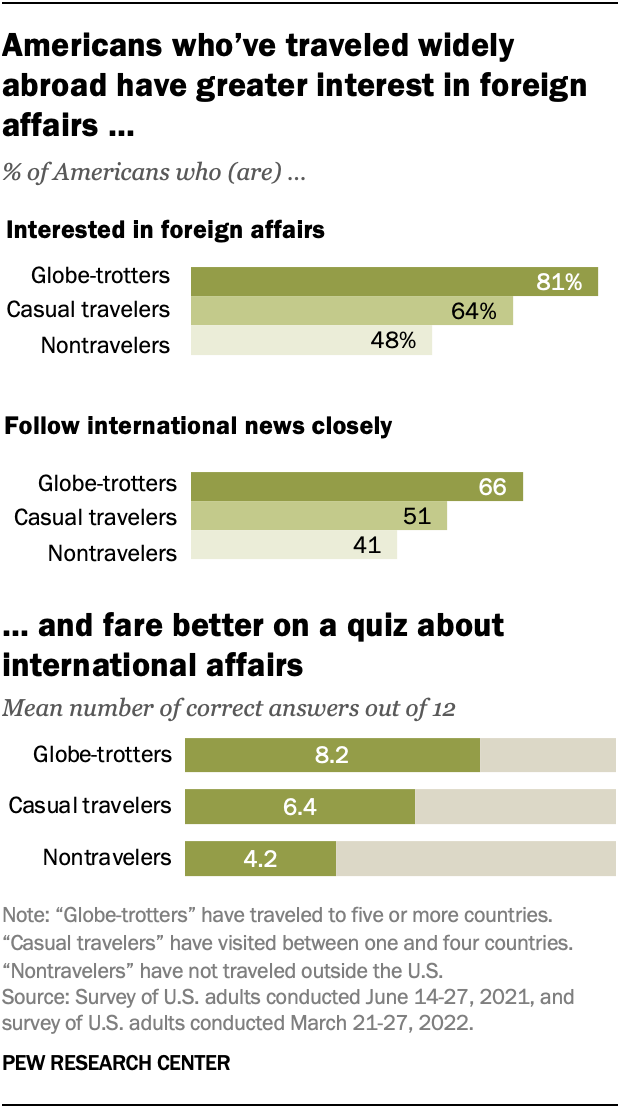
Globe-trotters are especially likely to say they are interested in foreign affairs and follow international news. Casual travelers, in turn, are more likely than nontravelers to do so.
Globe-trotters are also the most knowledgeable about international affairs. In 2022, we conducted an international affairs quiz , asking Americans 12 questions related to international news. On average, globe-trotters got 8.2 of the 12 questions correct, compared with 6.4 for casual travelers and 4.2 for nontravelers.
Is international travel related to views of global engagement?

International travel experience is also linked to Americans’ views about international affairs and their feelings of connection to other people around the world.
When asked which comes closest to their view, 57% of globe-trotters say the U.S. should be active in world affairs, while 43% say the U.S. should pay less attention to problems in other countries and concentrate on problems at home. In contrast, most casual travelers and nontravelers say the U.S. should focus on problems at home.
In all three groups, at least half of respondents say that when the U.S. is making foreign policy, it should take other countries’ interests into account – even if that means making compromises. But globe-trotters are especially likely to hold that view.
Globe-trotters are also particularly likely to say they feel close to people around the world, with 42% saying so. By comparison, 34% of casual travelers and 30% of nontravelers say this.
- International Affairs

Richard Wike is director of global attitudes research at Pew Research Center

Janell Fetterolf is a senior researcher focusing on global attitudes at Pew Research Center
A growing share of Americans have little or no confidence in Netanyahu
Fewer americans view the united nations favorably than in 2023, what are americans’ top foreign policy priorities, rising numbers of americans say jews and muslims face a lot of discrimination, younger americans stand out in their views of the israel-hamas war, most popular.
1615 L St. NW, Suite 800 Washington, DC 20036 USA (+1) 202-419-4300 | Main (+1) 202-857-8562 | Fax (+1) 202-419-4372 | Media Inquiries
Research Topics
- Age & Generations
- Coronavirus (COVID-19)
- Economy & Work
- Family & Relationships
- Gender & LGBTQ
- Immigration & Migration
- Internet & Technology
- Methodological Research
- News Habits & Media
- Non-U.S. Governments
- Other Topics
- Politics & Policy
- Race & Ethnicity
- Email Newsletters
ABOUT PEW RESEARCH CENTER Pew Research Center is a nonpartisan fact tank that informs the public about the issues, attitudes and trends shaping the world. It conducts public opinion polling, demographic research, media content analysis and other empirical social science research. Pew Research Center does not take policy positions. It is a subsidiary of The Pew Charitable Trusts .
Copyright 2024 Pew Research Center
Terms & Conditions
Privacy Policy
Cookie Settings
Reprints, Permissions & Use Policy
Promises Donald Trump has made so far in his campaign for a second term
Former President Donald Trump, now the presumptive Republican nominee, has made a number of promises on the campaign trail, including rolling back car pollution rules, building 10 new cities and appointing a special prosecutor to investigate President Joe Biden and his family.
While some of Trump’s plans are lacking in detail, here are some of the policies he says he would enact if elected for a second term.
Immigration
Trump has made immigration and the border a central campaign issue, successfully pressuring Republicans to reject a major bipartisan border deal last month and making a trip to the southern border on February 29, where he touted his previous hard-line immigration policies.
In a Des Moines Register op-ed published roughly a week before winning the Iowa caucuses in January, Trump vowed to use the “Alien Enemies Act to remove known or suspected gang members, drug dealers, or cartel members from the United States.”
“We will shift massive portions of federal law enforcement to immigration enforcement — including parts of the DEA, ATF, FBI, and DHS,” he wrote.
In a video posted on Truth Social in late February before his border visit, Trump also promised to “carry out the largest domestic deportation operation in American history.”
We will shift massive portions of federal law enforcement to immigration enforcement — including parts of the DEA, ATF, FBI, and DHS.”
After the Israel-Hamas war began last October, Trump also promised to terminate the visas of “Hamas’ sympathizers.”
“We’ll get them off our college campuses, out of our cities and get them the hell out of our country, if that’s OK with you,” he added.
Drug cartels
The former president has also made waging “war” on drug cartels a priority for his second term. If elected, Trump said in his November 2022 campaign announcement that he would ask Congress to ensure that drug smugglers and human traffickers can receive the death penalty for their “heinous acts.”
Trump also vowed to “take down” drug cartels by imposing naval embargos on cartels, cutting off cartels’ access to global financial systems and using special forces within the Department of Defense to damage the cartels’ leadership.
Trump announced plans in a September 2023 campaign video to close the Department of Education and send “all education and education work and needs back to the states.”
“We want them to run the education of our children, because they’ll do a much better job of it,” he added.
The former president has also promised to “put parents back in charge and give them the final say” in education. In a January 2023 campaign video , the former president said he would give funding preferences and “favorable treatment” to schools that allow parents to elect principals, abolish teacher tenure for K-12 teachers, use merit pay to incentivize quality teaching and cut the number of school administrators, such as those overseeing diversity, equity and inclusion initiatives.
We want them to run the education of our children, because they’ll do a much better job of it.”
Trump also said in that campaign video that he would cut funding for schools that teach critical race theory and gender ideology. In a later speech , Trump said he would bring back the 1776 Commission , which was launched in his previous administration to “teach our values and promote our history and our traditions to our children.”
The former president said he would charge the Department of Justice and the Department of Education with investigating civil rights violations of race-based discrimination in schools while also removing “Marxists” from the Department of Education. A second Trump administration would pursue violations in schools of both the Constitution’s Establishment and Free Exercise clauses, which prohibit the government establishment of religion and protect a citizen’s right to practice their own religion, he said.
Health care
Last November, Trump promised to replace the Affordable Care Act , known colloquially as Obamacare, in a series of posts on Truth Social. A Trump-backed effort to repeal and replace Obamacare failed in 2017 after three Republicans senators joined with Democrats to vote against the bill.
“Getting much better Healthcare than Obamacare for the American people will be a priority of the Trump Administration,” he said .
“It is not a matter of cost, it is a matter of HEALTH. America will have one of the best Healthcare Plans anywhere in the world. Right now it has one of the WORST!,” he continued. He also doubled down on his vow during a speech in early January.
Getting much better Healthcare than Obamacare for the American people will be a priority of the Trump Administration.”
Trump also vowed in a June 2023 campaign video to reinstate his previous executive order so that the US government would pay the same price for pharmaceuticals as other developed countries. Some of the former president’s pharmaceutical policies were overturned by Biden.
Gender care
“I will revoke every Biden policy promoting the chemical castration and sexual mutilation of our youth and ask Congress to send me a bill prohibiting child sexual mutilation in all 50 states,” Trump said at the 2023 Conservative Political Action Conference last March.
Trump added in a campaign video that he would issue an executive order instructing federal agencies to cut programs that promote gender transitions, as well as asking Congress to stop the use of federal dollars to promote and pay for gender-affirming procedures. The former president added that his administration would not allow hospitals and health care providers to meet the federal health and safety standards for Medicaid and Medicare if they provide chemical or physical gender-affirming care to youth.
Justice system
Trump has promised to use the Department of Justice to attack critics and former allies. In several videos and speeches, the former president also laid out plans to gut the current justice system by firing “radical Marxist prosecutors that are destroying America.”
“I will appoint a real special prosecutor to go after the most corrupt president in the history of the United States of America, Joe Biden, and the entire Biden crime family,” Trump said in June 2023 remarks . “I will totally obliterate the Deep State.”
Trump said in a campaign video last year that he would reinstate a 2020 executive order to remove “rogue” bureaucrats and propose a constitutional amendment for term limits on members of Congress.
I will appoint a real special prosecutor to go after the most corrupt president in the history of the United States of America, Joe Biden, and the entire Biden crime family.”
To address what he labeled the “disturbing” relationship between technology platforms and the government, the former president said in a January 2023 video that he would enact a seven-year cooling off period before employees at agencies such as the FBI or CIA can work for platforms that oversee mass user data.
Trump added in multiple campaign releases that he would task the Justice Department with investigating online censorship, ban federal agencies from “colluding” to censor citizens and suspend federal money to universities participating in “censorship-supporting activities.”
In a September 2023 speech at the Family Research Council’s Pray Vote Stand Summit in Washington, DC, Trump also touted plans to continue appointing conservative judges.
“I will once again appoint rock-solid conservative judges to do what they have to do in the mold of Justices Antonin Scalia; Samuel Alito, a great gentleman; and another great gentleman, Clarence Thomas,” he said.
Trump has also pledged to “appoint U.S. Attorneys who will be the polar opposite of the Soros District Attorneys and others that are being appointed throughout the United States.”
In a September 2023 speech in Washington, DC, Trump also announced that he would appoint a task force to review the cases of people he claimed had been “unjustly persecuted by the Biden administration.” Trump noted that he wanted to “study the situation very quickly, and sign their pardons or commutations on day one.”
It’s a move that could lead to potential pardons of many rioters from the January 6, 2021, insurrection – which he suggested he would do at a CNN town hall in May 2023.
* Only promises on judge appointments and congressional term limits are similar to prior campaigns
Trump said in two February 2023 campaign videos that if “Marxist” prosecutors refuse to charge crimes and surrender “our cities to violent criminals,” he “will not hesitate to send in federal law enforcement to restore peace and public safety.”
Trump added that he would instruct the Department of Justice to open civil rights investigations into “radical left” prosecutors’ offices that engaged in racial enforcement of the law, encourage Congress to use their legal authority over Washington, DC, to restore “law and order” and overhaul federal standards of disciplining minors to address rising crimes like carjackings.
Addressing policies made in what Trump calls the “Democrats’ war on police,” the former president vowed in a campaign video that he would pass a “record investment” to hire and retrain police, strengthen protections like qualified immunity, increase penalties for assaulting law enforcement officers and deploy the National Guard when local law enforcement “refuses to act.”
The former president added that he would require law enforcement agencies that receive money from his funding investment or the Department of Justice to use “proven common sense” measures such as stop-and-frisk.
Foreign policy
Trump has continued his attacks against member countries of NATO, a European and North American defense alliance. At a South Carolina rally last month, Trump said he would not abide by the alliance’s collective-defense clause and would encourage Russia to do “whatever the hell they want” if a member country didn’t meet spending guidelines.
“NATO was busted until I came along,” Trump said. “I said, ‘Everybody’s gonna pay.’ They said, ‘Well, if we don’t pay, are you still going to protect us?’ I said, ‘Absolutely not.’ They couldn’t believe the answer.”
The former president has also previously pledged to end the war in Ukraine, though he’s offered no details on how he would do so. “Shortly after I win the presidency, I will have the horrible war between Russia and Ukraine settled,” Trump said at a New Hampshire campaign event last year, adding in another speech that it would take him “no longer than one day” to settle the war if elected.
NATO was busted until I came along. I said, ‘Everybody’s gonna pay.’ They said, ‘Well, if we don’t pay, are you still going to protect us?’ I said, ‘Absolutely not.’”
Trump further addressed his strategy of stopping the “never-ending wars” by vowing to remove “warmongers,” “frauds” and “failures in the senior ranks of our government,” and replace them with national security officials who would defend America’s interests. The former president added in a campaign video that he would stop lobbyists and government contractors from pushing senior military officials toward war.
In addition, Trump has said he would restore his “wonderful” travel ban on individuals from several majority-Muslim countries to “keep radical Islamic terrorists out of our country” after Biden overturned the ban in 2021.
New cities and flying cars
Trump said in multiple campaign videos that he would spearhead an effort to build so-called “Freedom Cities” to “reopen the frontier, reignite American imagination, and give hundreds of thousands of young people and other people, all hardworking families, a new shot at home ownership and in fact, the American Dream.”
In his plan, the federal government would charter 10 new cities on federal land, awarding them to areas with the best development proposals. The former president said in a campaign video that the Freedom Cities would bring the return of US manufacturing, economic opportunity, new industries and affordable living.
In the March 2023 video, Trump added that the US under a second Trump administration would lead in efforts to “develop vertical-takeoff-and-landing vehicles for families and individuals,” not letting China lead “this revolution in air mobility.” The former president said these airborne vehicles would change commerce and bring wealth into rural communities.
Electric vehicles
Trump has promised to roll back new car pollution rules at the Environmental Protection Agency that could require electric vehicles to account for up to two-thirds of new cars sold in the US by 2032. Biden’s electrical vehicle-related policies, Trump claimed at a Michigan rally last September , “spell the death of the US auto industry.”
“On day one, I will terminate Joe Biden’s electrical vehicle mandate, and I will cancel every job-killing regulation that is crushing American autoworkers,” Trump added.
Trump has promised to reduce energy prices by increasing domestic production. In several campaign appearances, he has laid out plans to end delays in federal drilling permits and leases.
“We’re going to ‘drill, baby, drill’ right away,” Trump told a crowd of supporters in Des Moines, Iowa, during a victory speech after winning the state’s Republican caucuses in January.
At a South Carolina rally in February, he pledged to remove limits on American natural gas exports.
At the same rally in South Carolina, Trump pledged to impose “stiff penalties on China and other trade abusers.”
“It’s called you screw us, and we screw you,” Trump said.
Under his proposed “Trump Reciprocal Trade Act,” the former president said if other countries impose tariffs on the US, the country would impose “a reciprocal, identical” tariff right back .
It was the same pledge Trump made in a campaign video in 2023: to impose the same tariffs that other countries may impose on the US on those countries. The goal, the former president said then, is to get other countries to drop their tariffs.
It’s called you screw us, and we screw you.”
As part of a larger strategy to bring jobs back into the US, Trump also said he would implement his so-called “ America First ” trade agenda if elected. By setting universal baseline tariffs on a majority of foreign goods, the former president said Americans would see taxes decrease as tariffs increase. His proposal also includes a four-year plan to phase out all Chinese imports of essential goods , as well as stopping China from buying up America and stopping the investment of US companies in China.
Trump also said in February that he would consider imposing a tariff upward of 60% on all Chinese imports if he’s reelected.
The former president has particularly focused on China, vowing in a January 2023 campaign video to restrict Chinese ownership of US infrastructure such as energy, technology, telecommunications and natural resources. Trump also said he would force the Chinese to sell current holdings that may put national security at risk. “Economic security is national security,” he said.
Trump has promised to extend the cuts from his 2017 Tax Cuts and Jobs Act, notably the TCJA’s individual income tax breaks. The former president has also talked about reducing the corporate tax rate from the current 21% to 15%.
“I will make the Trump tax cuts the largest tax cut in history,” the former president said last month at the Black Conservative Federation’s Honors Gala in South Carolina. “We’ll make it permanent and give you a new economic boom.”
I will make the Trump tax cuts the largest tax cut in history.”
Trump has also pledged to repeal Biden’s tax hikes , “immediately tackle” inflation and end what he called Biden’s “war” on American energy production.
Second Amendment
“I will take Biden’s executive order directing the federal government to target the firearms industry, and I will rip it up and throw it out on day one,” Trump said at the 2023 National Rifle Association Institute for Legislative Action leadership forum last April.
The former president also promised in the speech that the government would not infringe on citizens’ Second Amendment rights and that he would push Congress to pass a concealed carry reciprocity.
“I will create a special team to rapidly review every action taken by federal agencies under Biden’s ‘equity’ agenda that will need to be reversed. We will reverse almost all of them,” Trump said in a campaign video .
Trump added in multiple campaign videos that he would revoke Biden’s equity executive order that required federal agencies to deliver equitable outcomes in policy and conduct equity training. If elected, Trump said he would also fire staffers hired to implement Biden’s policy, and then reinstate his 2020 executive order banning racial and sexual stereotyping in the federal government.
Related links
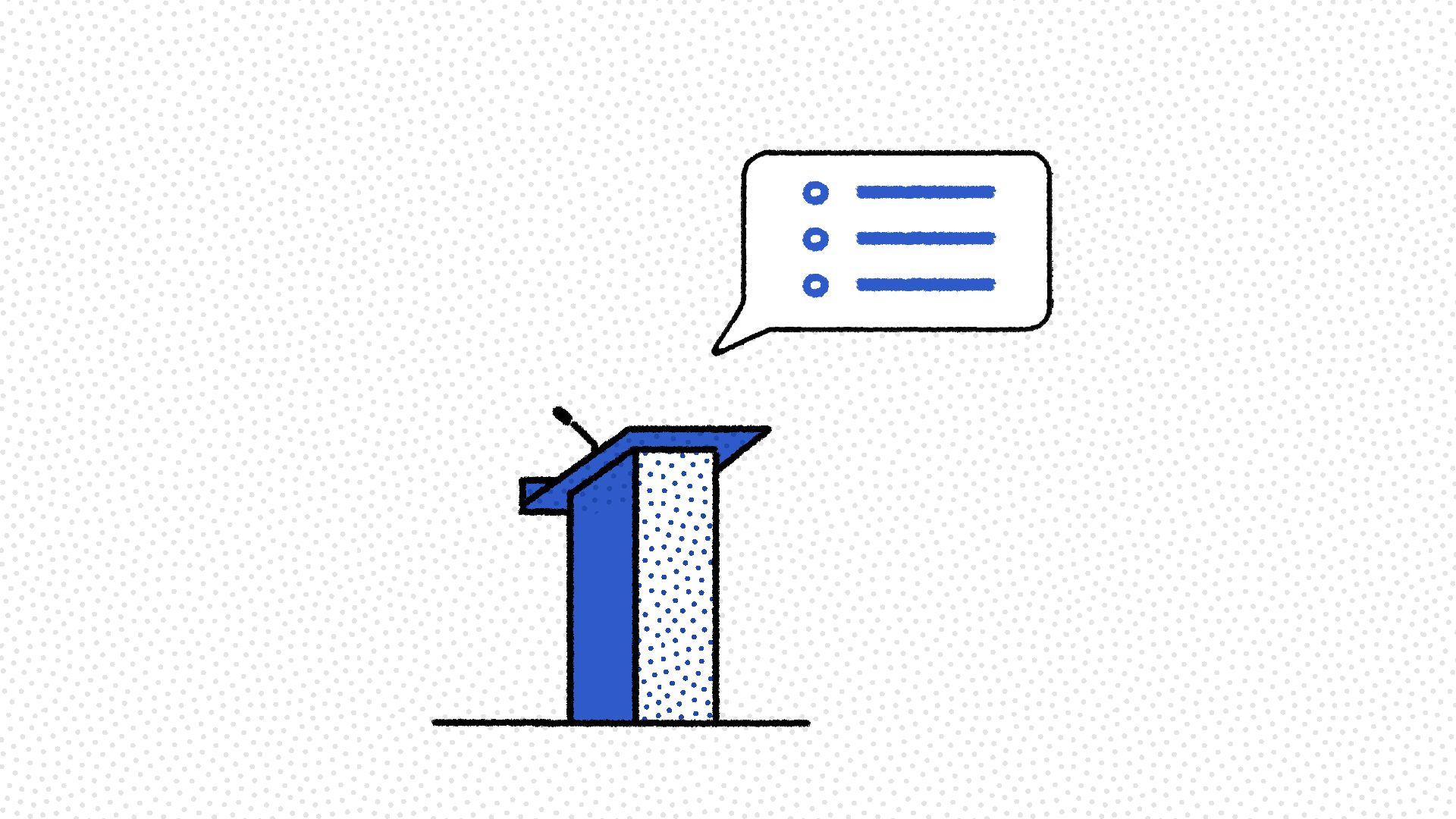

San Jose airport passenger rebound shows signs of losing altitude
S AN JOSE — Passenger travel at San Jose International Airport is showing a loss of altitude, leaving the Silicon Valley aviation hub well short of its pre-coronavirus heights.
The airport handled 930,522 passengers in March — 13.4% above the passenger totals for February, but 3.6% below the passenger activity reported for March 2023. Over the 12 months that ended in March, the airport reported it handled 12.05 million passengers. That was down 0.4% from the 12.1 million passengers the South Bay travel hub accommodated during 2023.
The airport’s performance over the most recent 12-month period is far below the record heights San Jose achieved in 2019, the final year before the outbreak of the coronavirus and the resulting collapse of the worldwide travel industry due to government-imposed business shutdowns and transportation restrictions. The airport reported 15.65 million passengers in 2019, nearly 23% more.
“Prior to the pandemic, a significant portion of San Jose Airport’s traffic was driven by business travel,” airport officials said in emailed comments. “We suspect that the slow rebound in business travel, which is yet to fully recover globally, is having a significant impact on our recovery.”
The three major regional airports are all facing a feeble post-coronavirus recovery. Over the year-long period that ended in February 2024, Oakland International Airport handled 11.27 million passengers. That was 16% below the 13.38 million passengers Oakland accommodated in 2019.
Related Articles
- Economy | California wants to crack down on airport line-skipping for Clear members
- Economy | SFO strikes back against Oakland Airport with lawsuit over ‘San Francisco Bay’ name change
- Economy | What’s in a name? Oakland airport’s identity crisis has two cities in a tug of war
- Economy | Oakland International Airport to add San Francisco Bay to name — legal war looms
- Economy | Opinion: Proposed Oakland airport name change would just confuse everybody
San Jose airport officials, in the statement, also acknowledge the changes in air travel, saying, “We have welcomed the arrival of low-cost carriers, ZIPAIR and Spirit Airlines, that have entered the market to meet the growing demand for more leisure and family travel,”
ZIPAIR has added a flight between San Jose and Japan, which means six weekly departures from San Jose to Tokyo Narita International Airport.
Spirit Airlines has added nonstop flights between San Jose and the destinations of Los Angeles; Portland, Oregon; and the Baltimore-Washington region.
“Post-pandemic, we are adapting to the market,” the statement said.
©2024 MediaNews Group, Inc. Visit at mercurynews.com. Distributed by Tribune Content Agency, LLC.
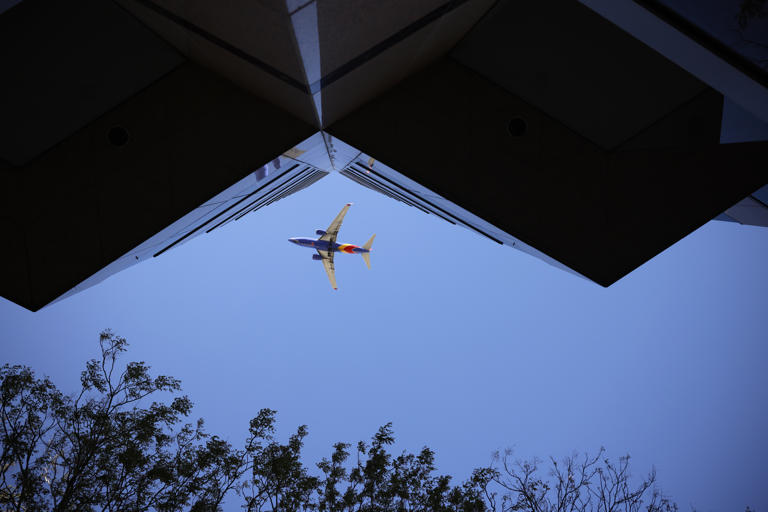
Louisville airport sees record-breaking 4.6M passengers in 2023. Here are 4 takeaways

More than 4.6 million people flew in and out of Louisville Muhammad Ali International Airport last year, making it the busiest year in the airport’s history.
Fueled by rebounding traveler interest coming out of the pandemic and an expansion of seat capacity and routes, the Louisville airport surpassed its previous record of nearly 4.3 million in 2019.
“None of this happens by accident," said Dan Mann, executive director of the Louisville Regional Airport Authority. "We have to be very intentional with growth ... none of this is possible without the airline partners trusting what we say, trusting our market and adding capacity and having faith that we'll do the right marketing to fill those airplanes up."
Here are some big takeaways from the airport’s record-breaking year and what’s on deck for 2024.
Passenger travel has bounced back from the pandemic
Passenger volume at Louisville’s main airport had been creeping up in the years before the pandemic brought air travel to a near standstill.
The airport recorded 3.87 million passengers in 2018 and followed it up with a (then) record-breaking 4.24 million passengers in 2019.
That figure plummeted and slowly rebuilt from 2020-2022, with nearly 1.64 million, 3.18 million, and 3.89 million passengers tallied each year, respectively.
Mann said while business travel hasn’t entirely returned to pre-pandemic levels, leisure travel has with an assist from the airport’s addition of ultra-low-cost carriers that make air travel more accessible to more people.
“These record-setting years are because we have 203,000 more seats on ultra-low-cost carriers,” he said, comparing 2023 to 2022. “It drives the pricing. The mainline carriers are reacting to that with larger aircraft and better fares. It really is a lot about the leisure market that frankly we didn't really have in 2018 and 2019.”
Louisville’s airport added Spirit Airlines and Breeze Airways in 2021 and Sun Country Airlines in 2023. Allegiant Air began service at the Louisville airport in 2017.
Last year saw a huge growth in the number of airplane seats flying in and out
Traffic peaked in October
While Kentucky Derby week, spring break and the Thanksgiving and Christmas holidays often conjure images of packed airport queues, October was actually the busiest month for the Louisville airport.
Some 465,000 passengers flew in and out of the airport that month, followed by July (452,000) and May (nearly 439,000).
Natalie Chaudoin, airport spokeswoman, said fall break helps drive October passenger traffic and well as increased business and convention travel.
“It’s a phenomenon in our industry,” said Doug Bennett, Louisville Tourism executive vice president. “I’m not surprised to hear this strongest month was October because that’s typically our strongest month, too.”
Growth is ‘proof of concept’ for landing more new destinations
After landing a long sought-after Boston service in 2022, Seattle and Toronto remain atop Mann’s list of new destinations to secure for Louisvillians.
“Every time every time an airline trusts us to add capacity and we fill the plane up, it just makes us less risky than some other community,” he said Friday. “We're competing for a very mobile asset, and so every success we have makes it easier for the airlines to bet on Louisville.”
The number of scheduled seats across the airport’s eight commercial airlines was up more than 25% in 2023 over the year before (United Airlines led this growth, with a 53% capacity jump).
This 2023 capacity growth, compared to 2022, helped make the Louisville airport the fastest growing airport among the top 100 airports in the continental U.S., said Anthony Gilmer, vice president of air service development and strategic marketing.
Mann said he wants to leverage the 2023 momentum to be a proof of concept that the Louisville airport can successfully handle more routes. The airport has 37 nonstop destinations as of early 2024.
“This foundation, this success just brings more success,” he said. “And we're really excited about 2024. More capacity. More ultra-low-cost carriers.”
Construction, new concessions, retail planned for 2024
The airport is part way through the massive $400 million SDF Next Program (Mann said a growing to-do list may push this figure closer to $500 million), and 2024 will see continued work on this renovation plan.
The most recent change is a temporary reconfiguration of the security checkpoint passenger lines , set to last into early April.
Both the Brooks Brothers and the Kentucky Bourbon Trail stores have now permanently closed to make way for an expanded passenger queuing area.
Construction work is taking over the previous queuing space, leading the airport to implement a single-file security line for both TSA PreCheck and general screening. A larger overhaul of the security checkpoint is due to begin later this year.
Mann also teased a new retail concept for the post-security rotunda, saying only that it's "much more in demand."
Airport staff is also working on introducing pop-up bars at limited times of the year, such as during spring break season.
“They'll be in key points where you go get your cocktail, go back to the gate and wait for the airplane,” he said.
Growth & development reporter Matthew Glowicki can be reached at [email protected], 502-582-4000 or on Twitter @mattglo.
Alaska Airlines was named America's favorite airline for the 2nd year in a row — months after a hole blew in the side of one of its planes
- A major consumer survey found that Alaska Airlines is the most popular airline in the US for the second year running.
- The airline topped the American Customer Satisfaction Index, despite its infamous panel blowout in January.
- Overall, US air travel customers were happier than last year with their experiences.

Alaska Airlines is the most popular airline in the US for the second year running, according to a major consumer survey.
The airline comfortably topped the annual American Customer Satisfaction Index with a score of 82, a one-point improvement compared to 2023.
American Airlines was second with 79 points, while low-cost carrier Allegiant Air beat better-known legacy names like United and Delta to take third place. Allegiant registered a four-point rise in overall customer satisfaction, making it one of the fastest climbers this year.
United Airlines was the only carrier to lose ground, sliding three points to a score of 75.
The index, which has been running since 1994, tracks customer satisfaction across five travel industries — airlines, car rentals, lodging, online travel agencies, and ridesharing platforms.
Related stories
To determine the rankings, 16,352 customers were asked to rate their experiences with companies based on nineteen different factors, such as ease of making a reservation, check-in process, cleanliness of cabin and lavatory, courtesy and helpfulness of flight crew, and timeliness of arrival. By collating this information, the American Customer Satisfaction Index says it provides a "definitive measure of passenger satisfaction."
Alaska Airline's top ranking comes despite the airline's nightmare safety incident in January 2024, during which a decommissioned door plug flew off during one of its flights at an altitude of 16,000 feet.
The plane, a Boeing 737 Max 9 made a safe landing back at Portland International Airport 35 minutes after takeoff, with all 177 people on board surviving.
14 passengers on the flight have since filed a class-action lawsuit against Boeing and Alaska Airlines, asking for monetary damages to cover injuries sustained during the incident and claims that some oxygen masks malfunctioned.
US airlines are getting better
Overall, the data found that customers were increasingly happy with airline travel, with ratings for all nineteen areas of customer satisfaction across airlines either improving or staying level with responses from 2023.
The polled customers were particularly happy with app services, the ease of making reservations, and airlines' websites, pointing to the importance of developing customer-friendly technology offerings.
As they become happier with travel experiences, customers are also travelling more. This February, the International Air Transport Association (IATA) reported a 21.5% rise in global air passengers compared to the previous year.
Watch: Why Hooters Air, Pan Am, and the Concorde all disappeared from the skies
- Main content

IMAGES
COMMENTS
If you follow our itinerary, you go to Bcharré from Tripoli. Take a bus leaving from the roundabout in Abdel Hamid Karameh Square (exact location: 34.4345947, 35.8361633). Those buses have a set schedule, so make sure you come on time. They leave every day from Tripoli to Bcharré at 9:05am, 1pm, and 5:30pm.
Read the entire Travel Advisory. Do Not Travel to: Southern Lebanon due to the potential for armed conflict; The border with Syria due to terrorism and armed conflict; Refugee settlements due to the potential for armed clashes. Country Summary: U.S. citizens in Lebanon should be aware of the risks of remaining in the country and review their ...
Call us in Washington, D.C. at 1-888-407-4747 (toll-free in the United States and Canada) or 1-202-501-4444 (from all other countries) from 8:00 a.m. to 8:00 p.m., Eastern Standard Time, Monday through Friday (except U.S. federal holidays). See the State Department's travel website for the Worldwide Caution and Travel Advisories.
Since October 2023, the Government of Canada has advised Canadians to leave Lebanon while commercial options remain available. If you are in Lebanon, including in Beirut: be extremely vigilant and aware of your surroundings. book a flight to leave the country. expect a heightened security presence.
The floors will most likely be carpeted! Men should avoid wearing shorts or tank tops in mosques, as your shoulders and legs need to be covered, too. 12. Transportation and Getting Around when Traveling in Lebanon. You could theoretically rent a car and drive while traveling in Lebanon, but I wouldn't recommend it.
The Ultimate Travel Guide to Lebanon. Last Updated: 22 Feb 2023. This guide will tell you everything you need to know for visiting Lebanon during the current crisis, updated regularly with the latest pandemic travel restrictions and for changes caused by Lebanon's current crises. ... I'm travelling to Lebanon for a week in 30th May - 6th ...
This is the most complete Lebanon travel guide available on the internet, which includes a 2-week itinerary plus plenty of travel tips. ... April 3, 2023 at 1:38 am. Hi, Many thanks for an excellent blog post! Great to know about bringing currency to exchange before visiting Lebanon. I am visiting Lebanon for the first time in May for two weeks.
Assistance: U.S. Embassy in Beirut - Lebanon. Awkar - Facing the Municipality. Main Street Beirut, Lebanon. 961-4- 543 600. [email protected]. State Department - Consular Affairs. 1-833-890-9595 (toll free) and 606-641-0131 (local) Enroll in Smart Traveler Enrollment Program (STEP) to receive security updates.
Latest FCDO travel advice for Lebanon including on entry ... Lebanon experienced strong aftershocks from an earthquake in Turkey in February 2023. There is a risk of further aftershocks. ...
If you need urgent help (for example, you've been attacked, arrested or someone has died), call +961 (0)1 960 800. If you're in Lebanon and you need advice which is not covered by reading our ...
Based on the data on the World Bank, Lebanon had 1,936,000 international visitors last 2019.Most of these tourists had a pretty safe experience. Whilst there are a fair few factors you should consider before embarking on your trip, travelling to Lebanon is typically safe.However, there are places you should definitely avoid (like near the Syrian or Israeli borders, and Palestinian refugee camps).
Lebanon is a relatively safe place to travel, with some caveats. The UN violent crime rate is 4 per 100k inhabitants (36% lower than the global average), but terrorist attacks and kidnappings have occurred from time to time, so Lebanon may not be the best pick for solo travelers. In any case, I would recommend avoiding crowds and practicing situational awareness.
3. North Lebanon. Ok fellow explorers, now we've conquered the south, let's dive into North Lebanon! As is the old adage, there's no rest for the wicked, so suit up, shades on, and let's get cracking! There are 3 main areas that are seriously worth visiting in Northern Lebanon: Jbeil, Batroun, and Tripoli.
If your travel plans in Lebanon include outdoor activities, take these steps to stay safe and healthy during your trip. Stay alert to changing weather conditions and adjust your plans if conditions become unsafe. Prepare for activities by wearing the right clothes and packing protective items, such as bug spray, sunscreen, and a basic first aid ...
Travel within Beirut & Mount Lebanon: This area is generally safe. However, Beirut's southern suburbs have high rates of criminality and kidnappings, including the Camille Chamoun Sports City Stadium near Rafik Hariri International Airport; and the neighbourhoods of Bourj el Barajneh, which is Hezbollah controlled.
Lebanon definitely is not the safest place to visit. On the Global Peace Index, it ranks a lowly #138 out of 163 total countries on the list. However, for comparison, keep in mind that the United States barely ranks higher than Lebanon, coming in at #129 on the same list. According to official statistics, crime is not the biggest problem in ...
Beirut June 20, 2019 Beirut is the capital city of Lebanon and by far its biggest city (and since… Israel November 26, 2017 Israel is a small Middle Eastern country located on the southeastern shore of the Mediterranean Sea… West Lebanon May 23, 2023 West Lebanon, New Hampshire, is part of the Lebanon community, with nearly 15,000 residents ...
Do not travel to Lebanon due to the volatile security situation and the risk of the security situation deteriorating further. This may also result in airspace closures, flight cancellations and diversions and other travel disruptions. There is a possibility of an increase in armed conflict that could affect wider areas of Lebanon.
3, 4 or 7 nights. Starting $371. All Inclusive Family Packages 7 nights. From 01 June till 30 September 2024. Starting $2330. Wellness & Yoga. Vitalica - Wellness & Detox. From 01 April till 30 December 2024. Stay 1 to 15 nights.
False, this website is calculating the costs based on the 1USD = 1500 LBP rate and it doesn't seem like it's up to date. As you can see they refer to L£161,539 as ($106) per day. Which means, if you take the daily cost of $106 that would be 4,579,200 LBP with 1USD = 43200 LBP currently. Reply.
April 6 - 2023 Israel-Lebanon shellings: At least 34 rockets are fired, four of which landed, ... August 5 - Saudi Arabia, along with other Gulf and European countries, announces travel restrictions and bans in Lebanon after the Ain al-Hilweh clashes and urged their citizens to flee the country.
Location: Lebanon The Department of State reissued the Travel Advisory for Lebanon on March 5, 2021 with updates to security information. The Travel Advisory can be found here. In case of an emergency involving a U.S citizen in Lebanon, please contact [email protected] or the contact telephone numbers below. Assistance:
Barakat Travel is a leading travel agency in Lebanon. Barakat Travel is a leading travel and tourism agency since 1980. Through collaborations with touristic agencies worldwide and visa application centers we are… Read more. Celebrate Hope & Renewal: Barakat Easter Packages.
Americans who have traveled internationally are more interested in and knowledgeable about foreign affairs, feel closer to others around the world, and favor a more active foreign policy, according to the survey of 3,576 U.S. adults conducted in spring 2023. We also surveyed people in 23 other countries about their international travel habits.
Trump announced plans in a September 2023 campaign video to close the Department of Education and send "all education and education work and needs back to the states." "We want them to run ...
Unfortunately, the carrier's Boeing 777-300ER only welcomes four first class passengers since its other long-haul aircraft, including the Airbus A350-900, A350-1000, A380, and Boeing 787-10 ...
Over the 12 months that ended in March, the airport reported it handled 12.05 million passengers. That was down 0.4% from the 12.1 million passengers the South Bay travel hub accommodated during 2023.
This 2023 capacity growth, compared to 2022, helped make the Louisville airport the fastest growing airport among the top 100 airports in the continental U.S., said Anthony Gilmer, vice president ...
Amid Hostage Talks, Netanyahu, Biden Speak on Phone, Discuss Rafah Incursion IDF Spokesperson: Amount of Humanitarian Aid Entering Gaza Will Increase in Coming Days Gaza Aid Flotilla Halted After Vessels Flag Removed, Activists Say World Central Kitchen Announces the Resuming of Gaza Operations War Cabinet Minister Gantz Says Gov't Would Have No Right to Exist if It Prevents a Hostage Deal
The 2023-2024 American Customer Satisfaction Index's annual Travel Survey reveals which companies are most popular with US travellers. The 2023-2024 American Customer Satisfaction Index's annual ...